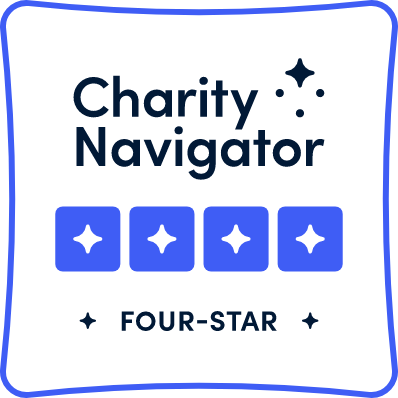Half-Earth Day 2024
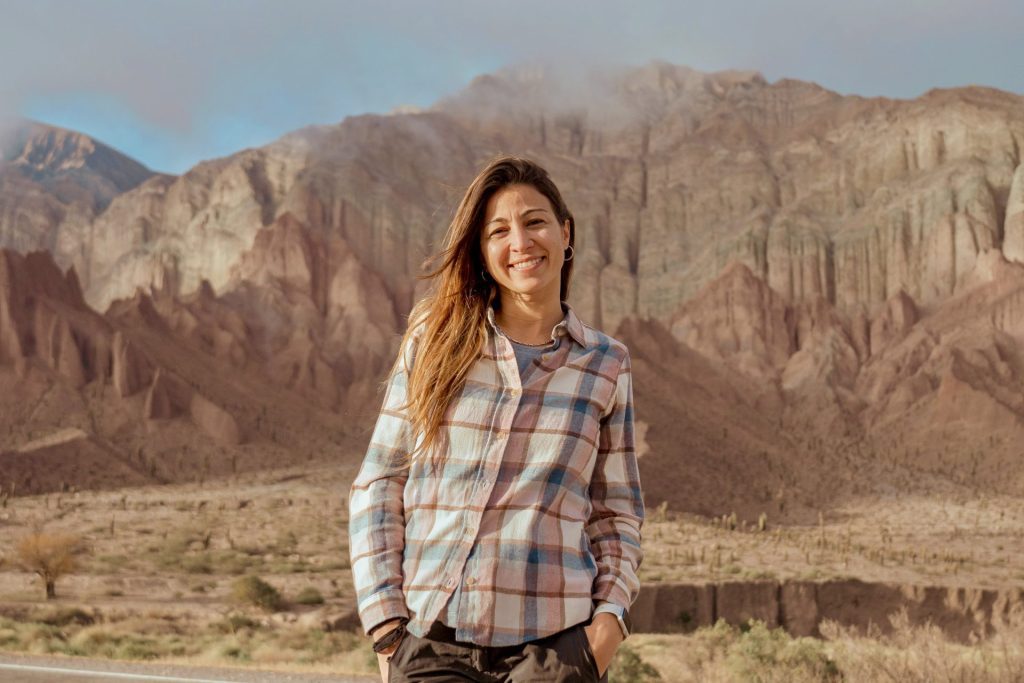
Lucila Castro, Directora Ejecutiva, Natura Argentina
Lucila Castro graduated with a degree in biology from the National University of Córdoba. She is the Argentina Director of Natura Argentina, a NGO committed to the conservation of natural ecosystems through the creation of protected areas by promoting the participation of local actors and working closely with governments, universities, and other organizations. She has a lifelong interest in conservation, population ecology, and protected areas, and her work addresses the articulation of scientific and technical work, institutional and government sector interactions, and local community outreach, all aimed at the accomplishment of clear conservation goals. Lucila is a member of the GCFA (High Andean Flamingo Conservation Group) and coordinates the flamingo census at the Mar Chiquita Lake in Córdoba Province. She is also a member of the Flamingo Specialist Group of the IUCN.
As Executive Director, Lucila leads the organization’s strategic conservation planning alongside her team. She works to spearhead the fundraising efforts, and on the advocacy front, she navigates the political landscape to promote public policies that benefit conservation efforts. Lucila’s responsibilities also encompass selecting strategic partnerships that amplify the impact of the NGO. She also remains connected to her scientific background by leading conservation projects. Leveraging her strong communication skills, Lula actively engages with the media, raising awareness about the critical conservation work and garnering public support for Natura Argentina’s mission.
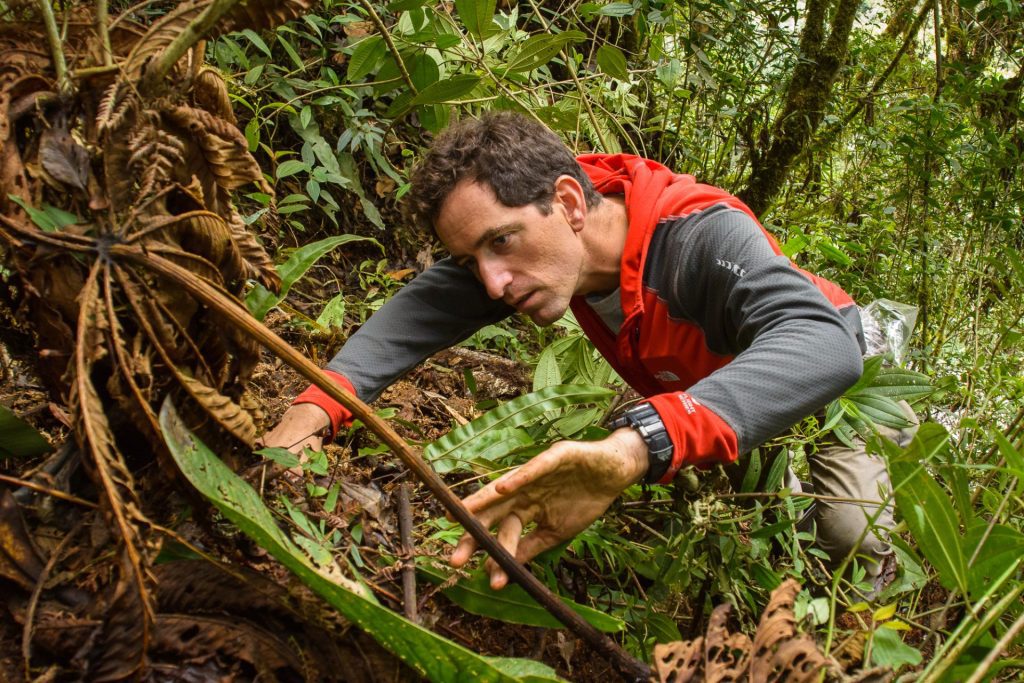
Alessandro Catenazzi, Half-Earth Chair, E.O. Wilson Biodiversity Foundation; Associate Professor, Florida International University
Dr. Alessandro Catenazzi is the newest Half-Earth Chair of the E.O. Wilson Biodiversity Foundation’s principal program, the Half-Earth Project. Alessandro is a Swiss-Peruvian herpetologist with a strong interest in conservation biology. His impressive work spans several disciplines, including taxonomy, community ecology, disease ecology, and physiology, with the primary goal of preserving biological diversity. He leads urgent work on the pathogenic fungus Batrachochytrium dendrobatidis, quantifying its impact on amphibian biodiversity and tracing the pathogen’s spread in the Amazon’s cloud forests and slopes of the Andes. Alessandro’s research on the vulnerability of reptiles and amphibians to climate warming is multi-faceted, employing experimental, observational, and modeling approaches. In addition to these lines of research, Alessandro is making tremendous advances in our biodiversity knowledge by describing several new amphibian and reptile species and genera to science. His commitment to the conservation of reptiles and amphibians is reflected in his work for the IUCN Red List Authority since 2009. The RLA provides up-to-date information on the extinction risk of every amphibian known to science (~7400). He is actively involved in stewarding the next generation of Latin American scientists as an associate professor at Florida International University, where he mentors undergraduate and graduate students and teaches courses in conservation biology. Alessandro also leads field courses at the Amazon Center for Environmental Education and Research in Peru to train Peruvians, international students, and primary/secondary teachers in tropical biology.
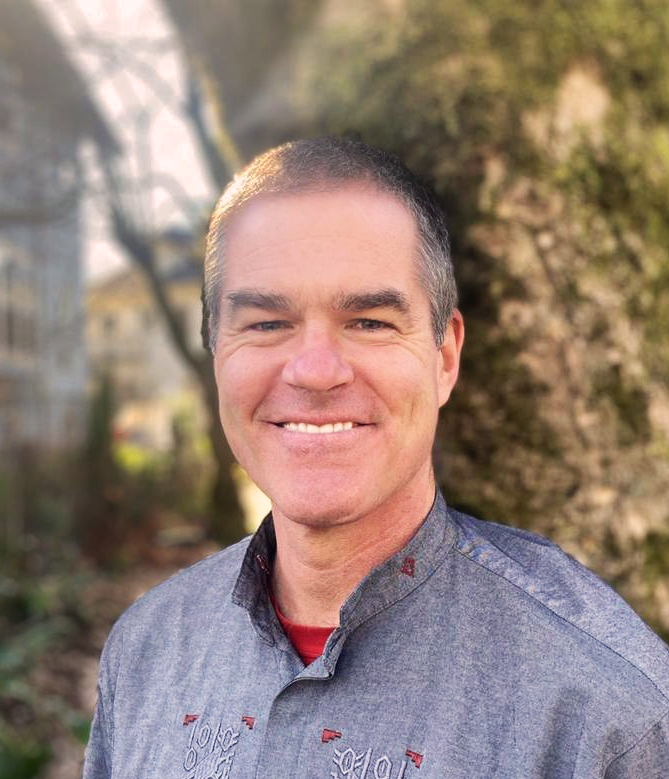
Matt Clark, President and Executive Director, Nature & Culture International
Matt started with Nature and Culture International in 2015, as an advisor in the Loja, Ecuador office, before being promoted to Executive Director in 2018 and moving back to the United States. Native to Portland, Oregon, Matt worked for years on watershed restoration and salmon recovery. Additionally, he’s worked extensively for Native American tribal governments in the US, supporting their treaty fishing and water rights. Matt first fell in love with Latin America —its vibrant cultures, stunning landscapes and incredible biodiversity —while in Honduras in the 1990s as a Peace Corps volunteer. He has a BA from Stanford University and a Master’s in Environmental Management from Yale University. Matt, his wife, Abby and their two boys enjoy music, rafting, camping, and travel.
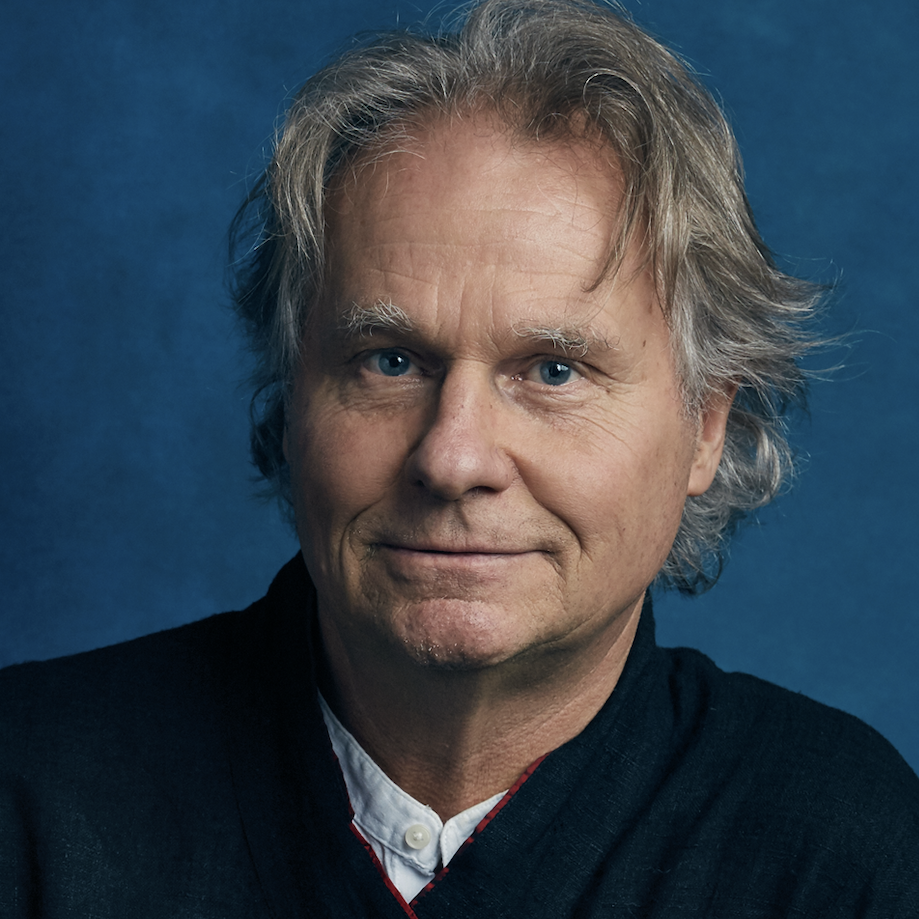
Wade Davis, Professor Emeritus, Anthropology, University of British Columbia
Wade Davis is Professor Emeritus of Anthropology at the University of British Columbia. Between 2000 and 2013 he served as Explorer-in-Residence at the National Geographic Society. Named by the NGS as one of the Explorers for the Millennium, he has been described as “a rare combination of scientist, scholar, poet and passionate defender of all of life’s diversity.”
An ethnographer, writer, photographer and filmmaker, Davis holds degrees in anthropology and biology and received his Ph.D. in ethnobotany, all from Harvard University. Mostly through the Harvard Botanical Museum, he spent over three years in the Amazon and Andes as a plant explorer, living among 15 indigenous groups while making some 6000 botanical collections. His work later took him to Haiti to investigate folk preparations implicated in the creation of zombies, an assignment that led to his writing The Serpent and the Rainbow (1986), an international best seller later released by Universal as a motion picture. In recent years his work has taken him to East Africa, Borneo, Nepal, Peru, Polynesia, Tibet, Mali, Benin, Togo, New Guinea, Australia, Colombia, Vanuatu, Mongolia and the high Arctic of Nunavut and Greenland.
Davis is the author of 385 scientific and popular articles and 24 books, published in 23 languages, including the international bestsellers The Serpent and the Rainbow (1985), One River (1996), The Wayfinders (2009), and Into the Silence (2011), which won the Samuel Johnson Prize, the top award for nonfiction in the English language. Recent books include Magdalena:River of Dreams (2020) and Beneath the Surface of Things: New and Selected Essays (2024).
Davis’s photographs have been widely exhibited and have appeared in 38 books and 130 magazines, including National Geographic, Time, Geo, People, Men’s Journal, and Outside. He was curator of The Lost Amazon: The Photographic Journey of Richard Evans Schultes, first exhibited at the National Museum of Natural History, Smithsonian Institution. In 2012 he served as guest curator of No Strangers: Ancient Wisdom in the Modern World, at the Annenberg Space for Photography in Los Angeles. He was curator of Everest: Ascent to Glory, Bowers Museum, February12-August 28, 2022. National Geographic has published two collections of his photographs, Light at the Edge of the World (2001) and Wade Davis: Photographs (2018).
His 40 film credits include Light at the Edge of the World, an 8-hour documentary series written and produced for the National Geographic. His most recent film, El Sendero de la Anaconda, a 90-minute feature documentary shot in the Northwest Amazon, is available on Netflix.
A professional speaker for 35 years, Davis has lectured at over 200 universities and 250 corporations and professional associations. In 2009 he delivered the CBC Massey Lectures. He has spoken from the TED main stage five times, and his three posted talks have been viewed by 8 million.
Davis, one of 20 Honorary Members of the Explorers Club, is Honorary Vice-President of the Royal Canadian Geographical Society, and recipient of 12 honorary degrees, as well as the 2009 Gold Medal from the Royal Canadian Geographical Society, the 2011 Explorers Medal, the 2012 David Fairchild Medal for botanical exploration, the 2015 Centennial Medal of Harvard University, the 2017 Roy Chapman Andrews Society’s Distinguished Explorer Award, the 2017 Sir Christopher Ondaatje Medal for Exploration, and the 2018 Mungo Park Medal from the Royal Scottish Geographical Society. In 2016, he was made a Member of the Order of Canada. In 2018 he became an Honorary Citizen of Colombia.
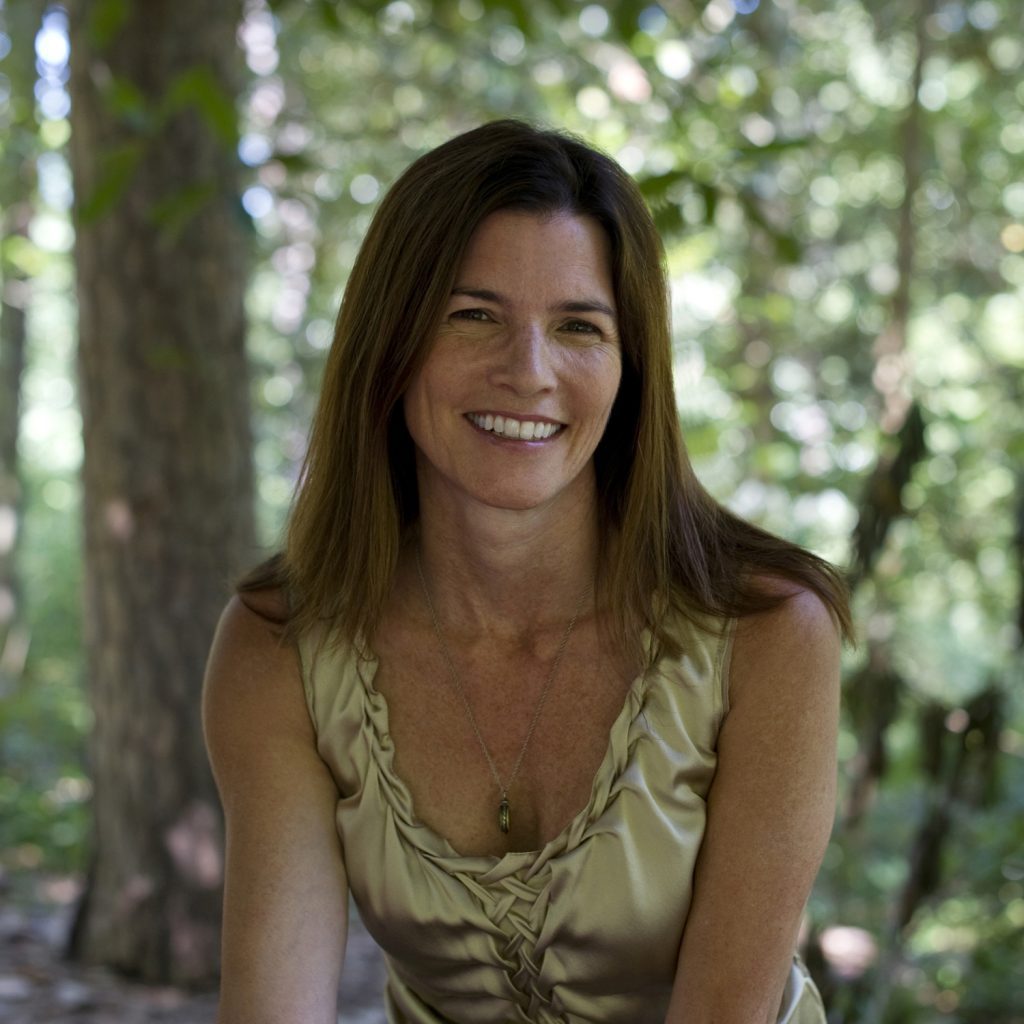
Paula J. Ehrlich, President & CEO, E.O. Wilson Biodiversity Foundation; Co-Founder, Half-Earth Project
Paula J. Ehrlich, DVM, PhD, is President & CEO of the E.O. Wilson Biodiversity Foundation, whose purpose is to inspire informed collective action to save the biosphere. Dr. Ehrlich pioneers innovation, leads strategic activities & fosters collaborations that support worldwide protection of biodiversity. She leads a diverse team of scientists, educators & communication leaders who share a moral conviction to act to protect biodiversity as one of humanity’s transcendent goals.
Dr. Ehrlich is co-Founder of the Half-Earth Project, the leading voice for E.O. Wilson’s Half-Earth call to protect half the land and sea in order to safeguard the bulk of biodiversity. The Half-Earth Project is playing a significant role in ensuring we leave no species behind through research that provides scientific leadership in service of a resilient planet, education that fosters an intergenerational commitment to stewardship of the Earth, and engagement of a global community that perceives and celebrates the inherent value of nature.
She has led the development of the Half-Earth Project Map, raising over $20M to create a global, spatially-explicit, and taxonomically comprehensive map of species for public engagement and decision-making. Recent updates inform how well conserved places are protecting species and identify priorities for future conservation.
Dr. Ehrlich is founder of Half-Earth Day, now in its 8th year, which brings together people from around the world and across disciplines to share perspectives & thought leadership on how to achieve Half-Earth and ensure the health of our planet for future generations. Half-Earth Day has been held in DC, NYC, Berkeley, London, Montreal, and virtually, attracting thousands of participants from around the globe.
Dr. Ehrlich has over 30 years of strategic scientific management and research expertise, and diverse academic, non-profit, and corporate leadership experience. As CEO of the non-profit Drug Discovery Center of Innovation, she fostered strategic innovation in early drug development for unmet medical needs. At Merck she led initiatives to establish imaging biomarkers and proof-of-concept for over 12 lead compounds, which are in clinical trials.
A keen adventurer & explorer, Paula is an avid hiker, and has summited Mt Rainier. She has been an equine surgeon at universities in 3 countries, and has worked to empower women’s cooperatives in S. Sudan. Always driven by challenge and a desire to make a difference in the world, her current work embodies the hopes of the greatest naturalist of our time, E.O. Wilson.
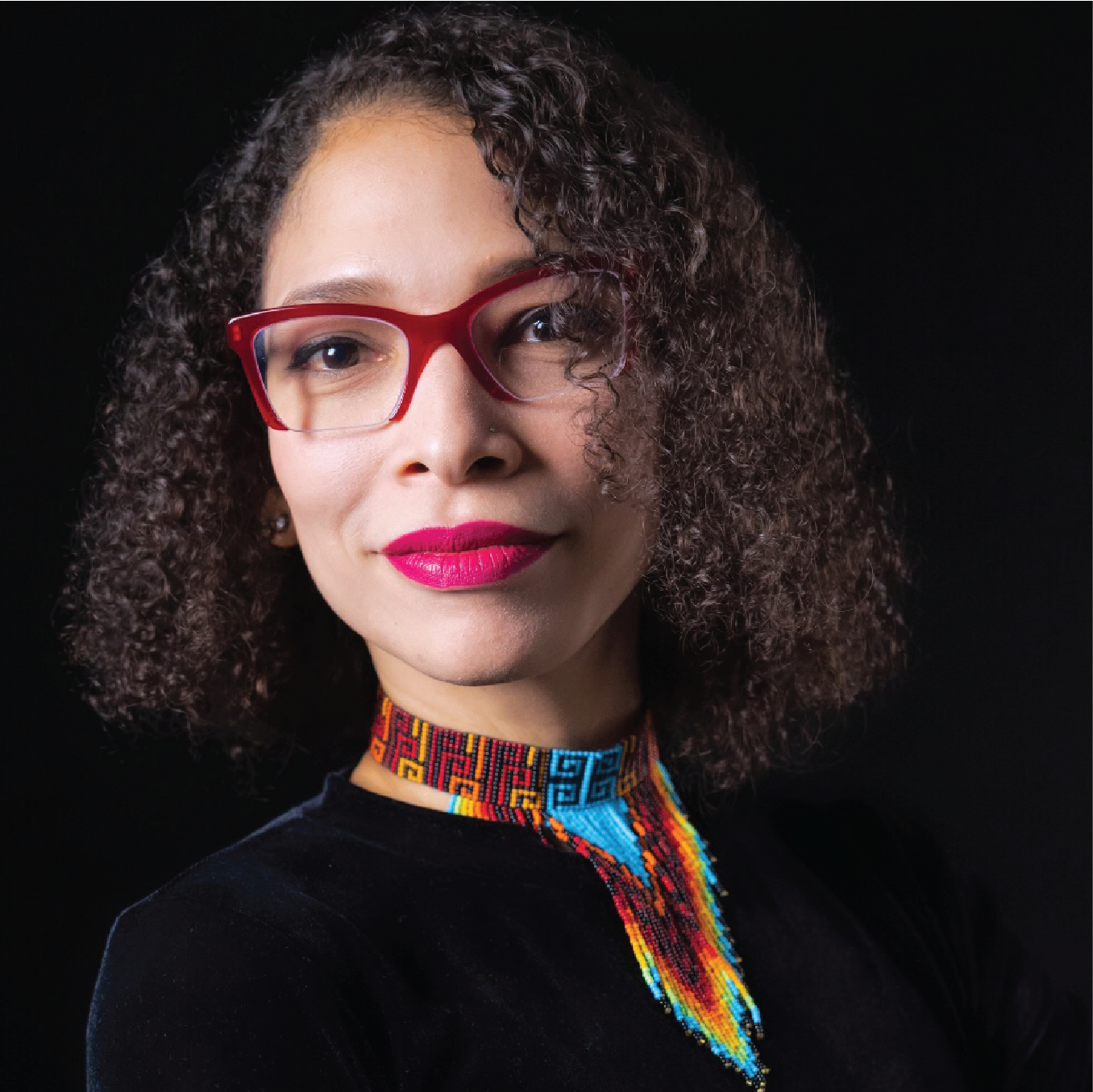
Carmen Guerra, Policy Manager, Nia Tero
Carmen, a Kankuama from the Sierra Nevada de Gonawindúa in northern Colombia, is a mother, human rights defender, and Policy Manager at NIA TERO. She has a law degree specializing in Constitutional Law and Project Management for Development and is currently pursuing a Master’s in Human Rights and Protection Systems. Carmen has dedicated her career to defending the rights to life and integrity of Indigenous Peoples. She took part in the consultative process between Indigenous Peoples and the Integral System of Truth, Justice, Reparation, and Non-Repetition. Additionally, she has been involved in advocacy processes and the development of policies to protect Indigenous Peoples’ rights at national and international levels. Moreover, Carmen has played a key role in promoting capacity-building processes for the organizations and Indigenous peoples she has worked with.
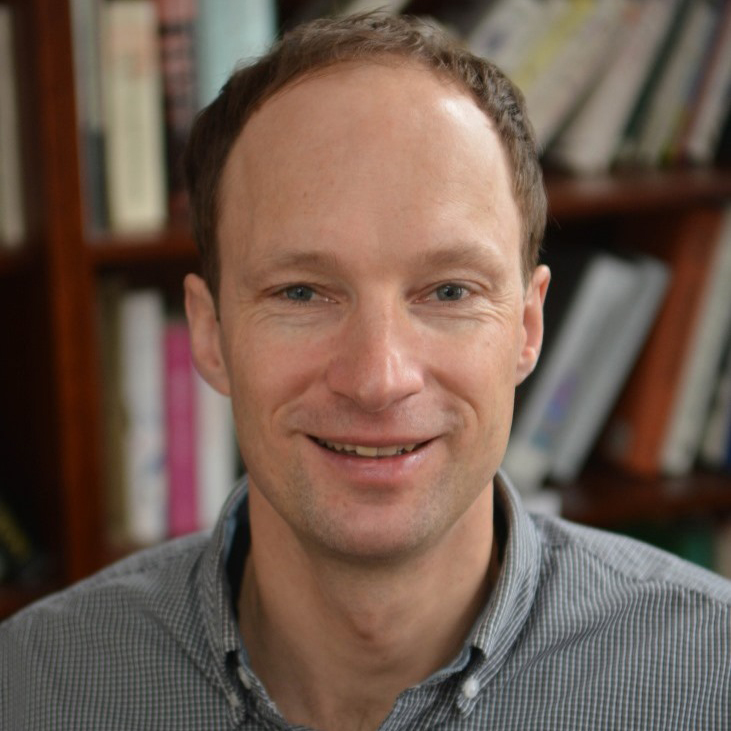
Walter Jetz, Jack and Laura Dangermond Scientific Chair, E.O. Wilson Biodiversity Foundation
Walter Jetz, MSc, PhD is a Professor of Ecology and Evolutionary Biology and Adjunct Professor in the School of Forestry and the Environment at Yale University. Dr. Jetz is Director of the Yale Center for Biodiversity and Global Change, which links scientists, students and practitioners engaged in the environment, biological, informatics, policy or health aspects and implications of global biodiversity change. Dr. Jetz leads the Map of Life at Yale University, which utilizes geospatial species distribution data and analytics to guide where we have the best opportunity to conserve the most species.
Dr. Jetz’ work addresses patterns and mechanisms of changing biodiversity distribution and the resulting implications on conservation and environmental management. His research combines remote sensing, phylogenetic, functional, and spatiotemporal biodiversity data with new modeling approaches and informatics tools. Dr. Jetz is particularly interested in how environmental, ecological, and macroevolutionary mechanisms combine to determine the co-occurrence of species and the structure of species assemblages.
In addition to his work at Yale, Dr. Jetz chairs the Intergovernmental Science-Policy Platform on Biodiversity and Ecosystem Services (IPBES) Task Group on Biodiversity Indicators and is Co-Lead of the GEO BON Working Group on Species Distributions. Dr. Jetz was previously a professor of biological sciences at the University of California San Diego. Dr. Jetz earned his MSc in Integrative Bioscience and PhD in Zoology from the University of Oxford.
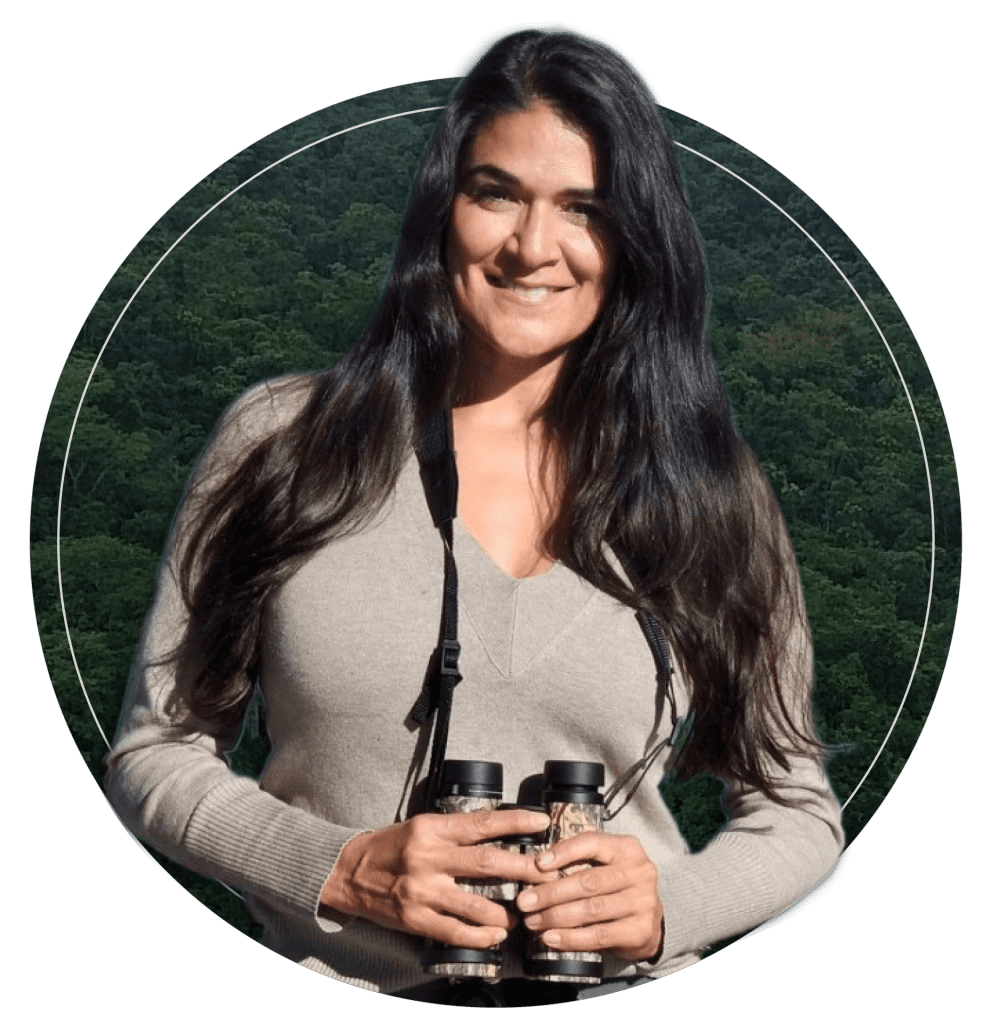
Sara Inés Lara, President, Women for Conservation; Executive Director, Fundación ProAves
Sara Ines Lara, a dedicated conservationist and advocate for women’s empowerment, was born in 1973 with indigenous heritage in the Andean mountains of Cauca, Colombia. Trained initially in Civil Engineering, Sara worked on major infrastructure projects, including the UK Channel Tunnel Rail Link. However, a deep calling for positive change and gender equality led her to transition into conservation.
With over two decades of experience spanning Latin America, Sara collaborates closely with international organizations, communities, and governments. In 2003, she became the founding Executive Director of Fundación ProAves, overseeing the establishment of 27 nature reserves dedicated to saving endangered species and their habitats. In 2004, Sara established Women for Conservation, intertwining her love for nature and her commitment to empowering women.
Inspired by the indigenous concept of Pachamama (Mother Earth), Sara’s approach is rooted in building trust and nurturing relationships between people and the Earth. Her work is a multigenerational legacy, carried on with her daughter by her side. With empathy and love, Sara embodies a maternal dedication to protecting threatened species and nurturing communities often overlooked and exploited. As President of Women for Conservation and Executive Director of Fundación ProAves, she continues to inspire positive change on both personal and global scales.
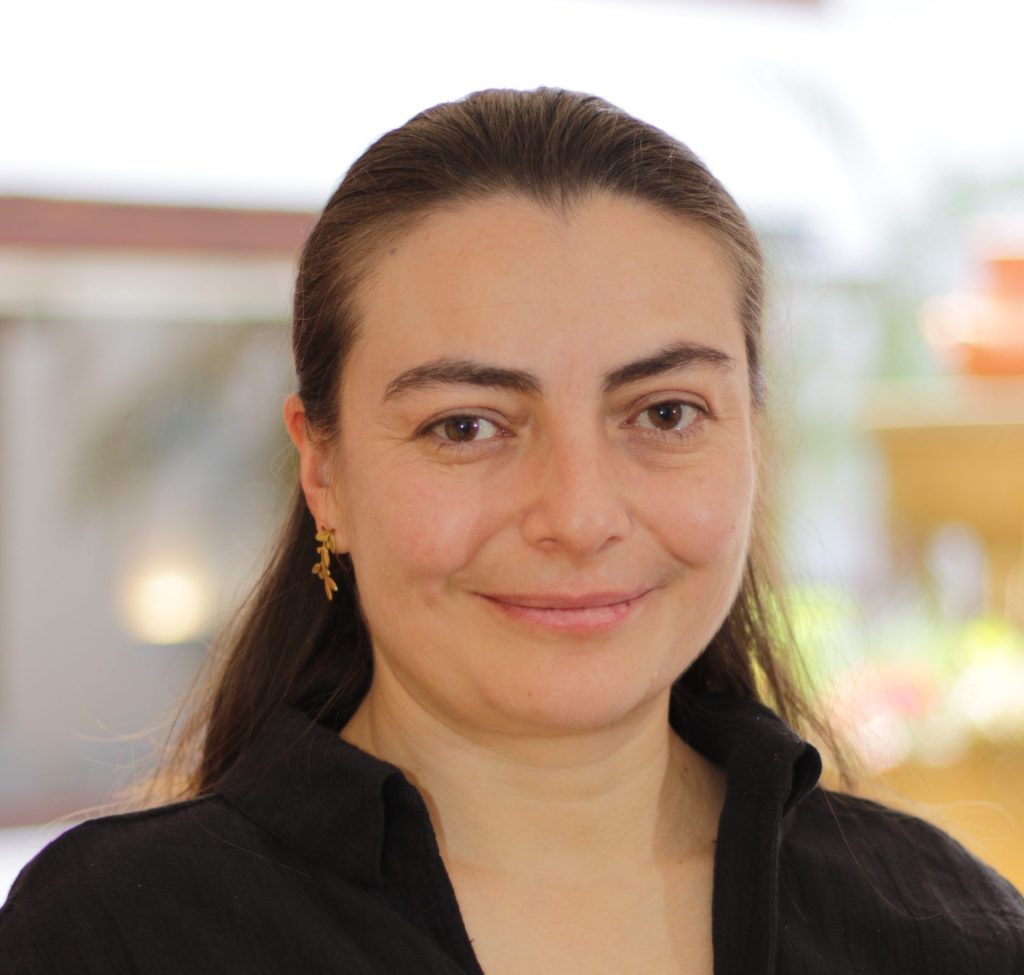
María Cecilia Londoño Murcia, Senior Information Manager, Humboldt Institute
María Cecilia Londoño is a biologist from the Universidad de los Andes in Colombia, with a Master and PhD from the Universidad Nacional Autónoma de México. Currently, Maria Cecilia is the Scientific Information Manager of the Humboldt Institute, co-chair of theGlobal Biodiversity Observations Network GEOBON and coordinator of the Colombian Biodiversity Information System, SiB Colombia, national node of the GBIF (Global Biodiversity Information Facility) network; she has 12 years of experience in biodiversity information management. Her work focuses on leading the development and maintenance of IT infrastructure, policies and governance processes that allow the publication and production of biodiversity data and indicators. As well as the development of analysis and web platforms for the dissemination of data and indicators on this topic. Maria Cecilia coordinates and conducts research under the principles of trust and active participation, building knowledge to solve problems related to biodiversity and sustainable development.
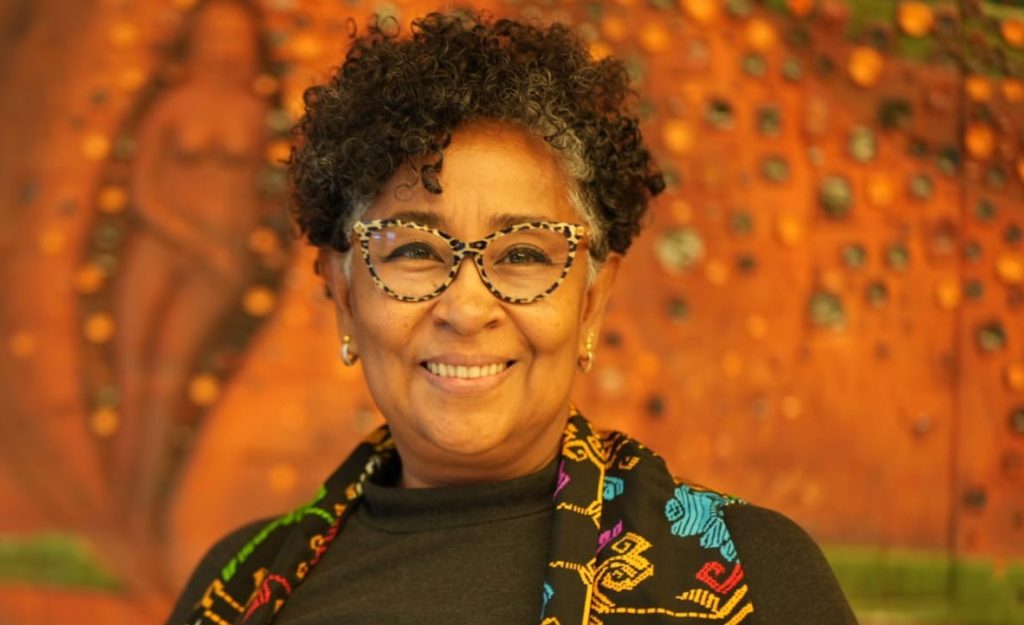
Martha Cecilia Rosero Peña, Social Inclusion Director (Afro Descendants Fellow), Conservation International
Martha Rosero-Peña is an Afro-Colombian scholar and the Director of Social Inclusion in Conservation at Conservation International, where she leads the “Afro-descendants in Conservation: Irreplaceable Places and Resilient People” initiative across the Americas. With a Ph.D. in Environmental Sociology from the University of Florida and an M.Sc. from Wageningen University, Martha has over three decades of experience in socio-environmental research, focusing on key conservation regions in the Amazon and Colombian Pacific. She has led participatory research on socio-economic and cultural resilience, specifically with Indigenous Peoples and Afro-descendants, and has held roles coordinating regional programs and projects for international NGOs and the University of Florida. Martha has actively contributed to international platforms such as the Intergovernmental Science-Policy Platform on Biodiversity and Ecosystem Services (IPBES) and is a scientist member of the Science Panel for the Amazon, presented at COP26.
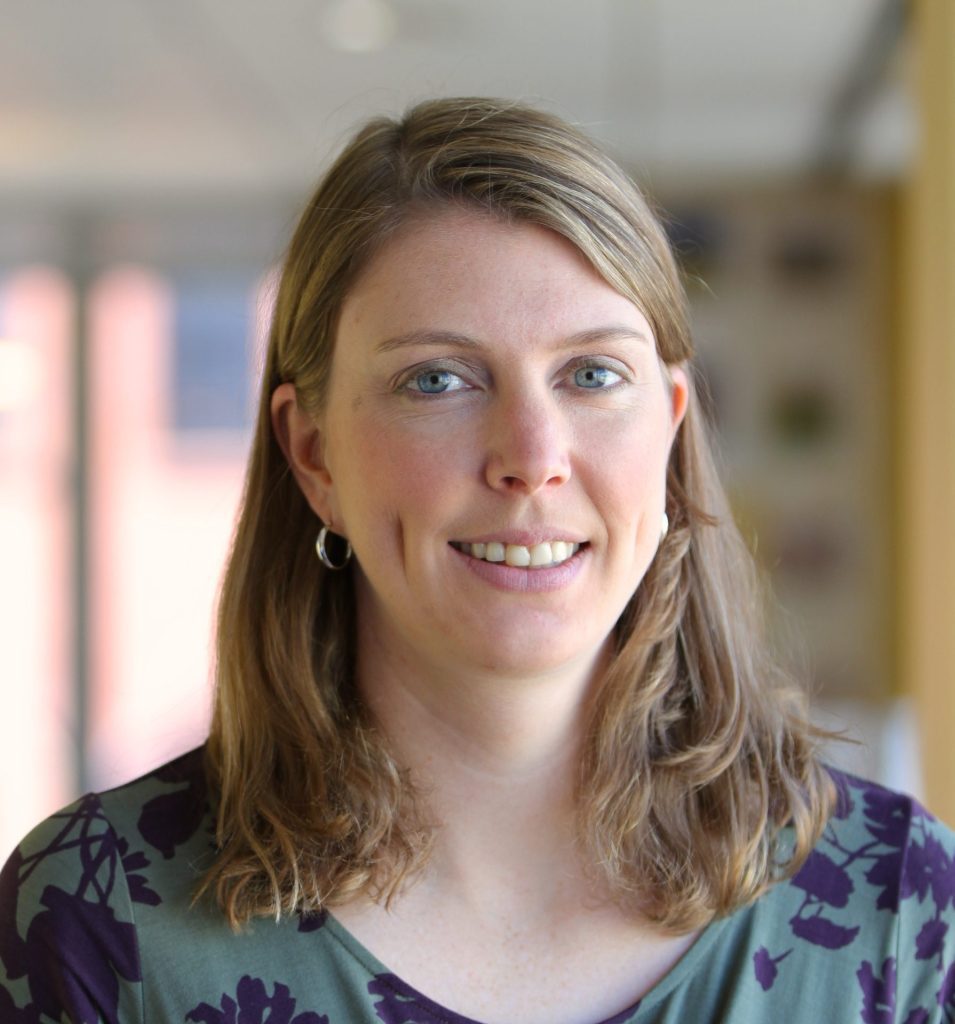
Katie Reytar, Senior Research Associate, World Resources Institute
Katie Reytar is a Senior Research Associate at World Resources Institute with the Land & Carbon Lab Initiative. She is the technical lead and data manager for LandMark: The Global Platform of Indigenous and Community Lands (www.landmarkmap.org). She has more than 20 years of experience in the environmental management sector, specializing in geospatial analysis and data applications to inform research literature and policy decisions. Her co-authored publications include Undermining Rights: Indigenous Lands and Mining in the Amazon; Climate Benefits, Tenure Costs; Securing Rights, Combating Climate Change; and A Global Baseline of Carbon Storage in Collective Lands. She holds degrees in Environmental Engineering from Johns Hopkins University and Environmental Science and Management from the University of California, Santa Barbara.
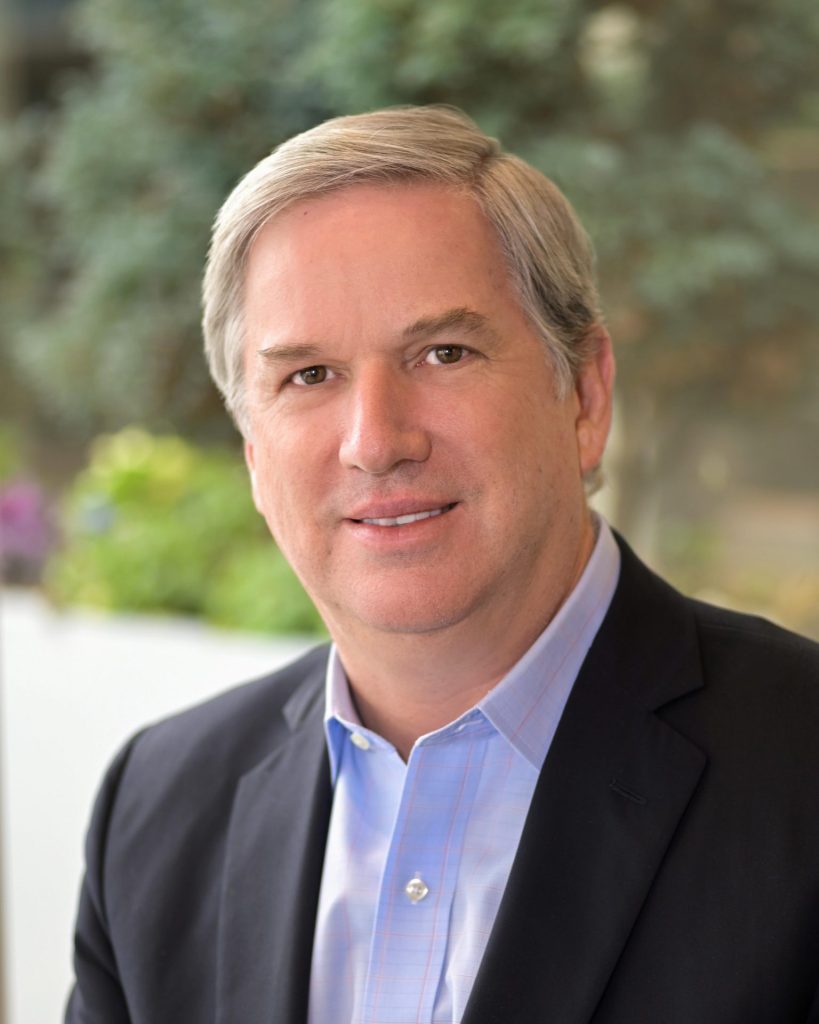
Cristián Samper, Managing Director and Leader for Nature Solutions, Bezos Earth Fund
Cristián Samper is the Managing Director and Leader for Nature Solutions at the Bezos Earth Fund, overseeing our work related to the protection and restoration of nature, as well as the transformation of food systems.
Prior to joining us, he served as President & Chief Executive Officer of the Wildlife Conservation Society (WCS) for a decade from 2012 to 2022, overseeing the largest network of urban wildlife parks, hosting four million visitors each year, and carried long-term field research and conservation programs in more than 60 countries.
Prior to joining WCS, Dr. Samper served as Director of the Smithsonian’s National Museum of Natural History from 2003 to 2012 and was the founding director of Colombia’s Alexander von Humboldt Biodiversity Institute in 1995. He served as Chair of the science advisory body of the UN Convention on Biological Diversity and was one of the leaders of the Millennium Ecosystem Assessment. He is a member of the Council on Foreign Relations and a Fellow of the American Academy of Arts and Sciences.
Raised in Colombia, Dr. Samper studied biology at the Universidad de Los Andes and earned his MA and PhD from Harvard University.
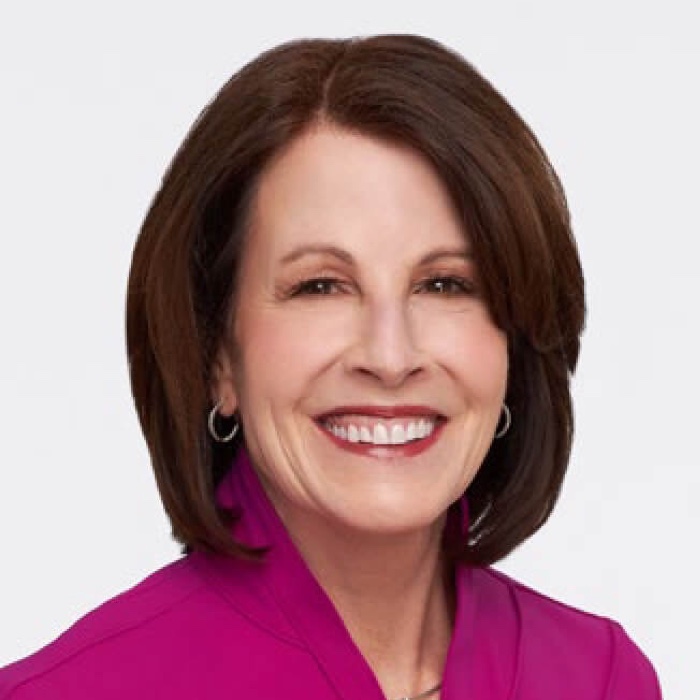
Alison Taylor, Chief Sustainability Officer, ADM; Climate Leader in Residence, Duke University; Board of Directors, E.O. Wilson Biodiversity Foundation
Alison Taylor is Chief Sustainability Officer for ADM. She oversees the company’s global sustainability strategy and works closely with the Sustainability and Corporate Responsibility Committee of ADM’s Board of Directors. She oversees many facets of the company’s progress toward achievement of the UN Sustainable Development Goals, including Zero Hunger and Climate Action. She guides implementation of the company’s Respect for Human Rights policy, No-Deforestation policy, Strive 35 environmental stewardship program, and ADM’s philanthropic efforts through ADM Cares.
Prior to joining ADM, Taylor worked for Siemens Corporation, where she was Vice President and Chief Sustainability Officer of the Americas. Taylor also worked on Capitol Hill as counsel for the U.S. House of Representatives Committee on Energy and Commerce, and chief counsel of the U.S. Senate Committee on Environment and Public Works. She was previously a partner in the law firm now known as Davis Graham & Stubbs, LLC.
Taylor currently serves on the boards of the Nicholas Institute at Duke University, the Peggy Notebaert Nature Museum in Chicago, the Nature Conservancy-Illinois, and the Leadership Council of the Corporate Eco-Forum. She is also chairs the ADM Cares Committee and serves on the external advisory board of the ADM Institute for the Prevention of Postharvest Loss. She holds a bachelor’s degree from Duke University and a Juris Doctor from the University of Denver.
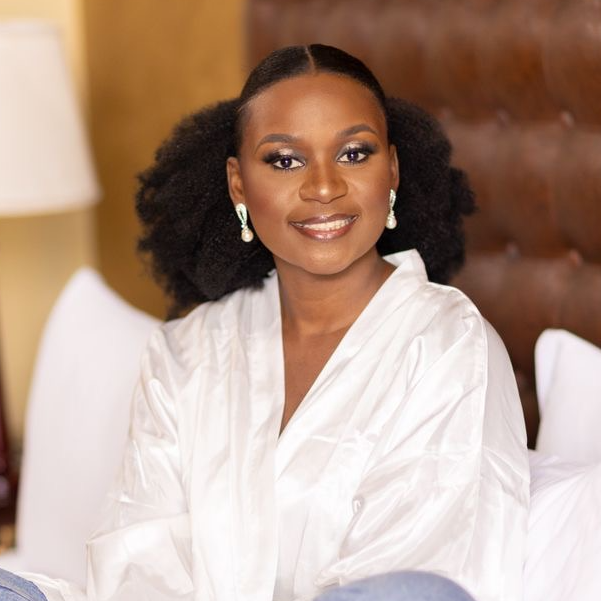
Doucette Kayombo Useni, Partnerships Liaison, Institut Congolais pour la Conservation de la Nature (ICCN)
Doucette Kayombo Useni is the Partnerships Liaison to the Managing Director at the Institut Congolais pour la Conservation de la Nature (ICCN), the national wildlife authority of the Democratic Republic of Congo (DRC). With rich biodiversity and unique ecosystems, the DRC faces significant challenges, including armed conflict, illegal mining, and threats to conservation efforts. Doucette leverages her background in psychology and communication to build and strengthen partnerships that promote biodiversity protection and community development while enhancing the well-being of conservation professionals.
Currently pursuing a dual master’s degree in MBA in International Business and MSc in Project Management, Doucette oversees the establishment of a psycho-organizational unit to support ICCN field staff (especially rangers) and provides technical assistance to ensure strategic alignment with international partners. She emphasizes culturally sensitive communication with Indigenous communities and actively travels to remote locations to foster stakeholder relationships. Her initiatives focus on enhancing the mental health and holistic well-being of rangers and engaging youth in conservation efforts, ensuring that these programs prioritize human development and community benefits.
Outside of her professional endeavors, Doucette is passionate about music, art, and culture. She enjoys meeting people from diverse backgrounds, enriching her understanding of the communities she serves, and has a keen interest in learning new languages.
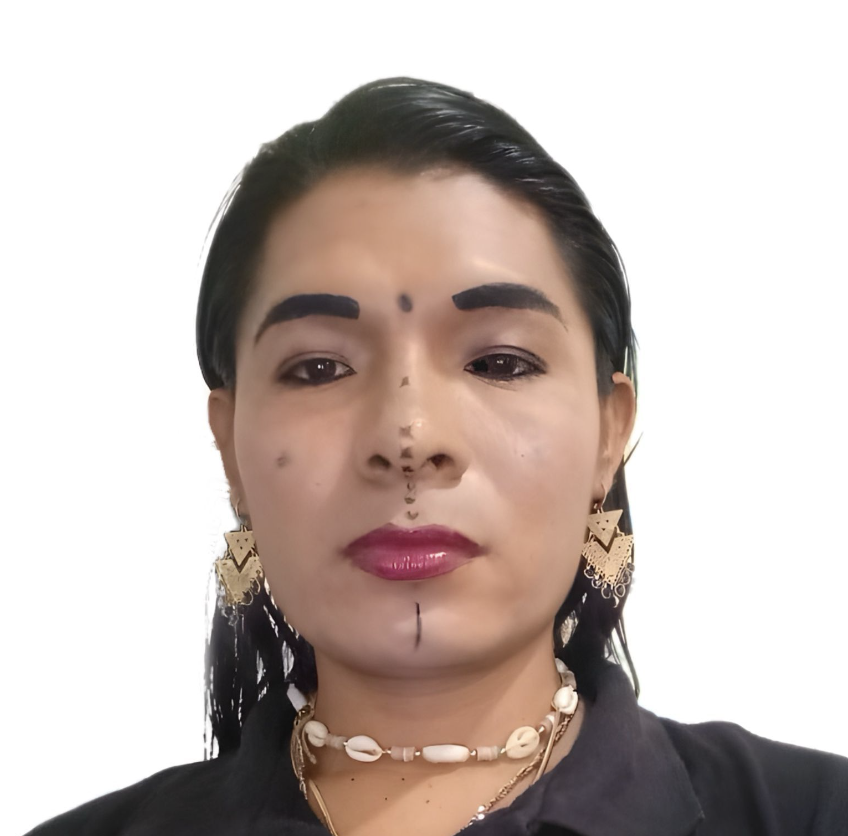
Chadiz Valentina, Resguardo Indígena, Urada Jiguamiando
Brave Indigenous Trans Woman Committed to Nature Conservation in Colombia. At 27 years old, Chadiz clearly understands the importance of spreading love and respect for life throughout the world, as well as the need to care for and protect our planet’s biodiversity to ensure the survival of all living beings that inhabit it.
Her story began in the Urada Jiguamiandó Indigenous Reserve, located in the municipality of Carmen del Darién in the Chocó department. She was born surrounded by the forests and vegetation of Colombia’s Pacific region.
From a young age, Chadiz was aware of her identity within the Indigenous community she belongs to. After a process of self-recognition and acceptance, she decided to transition to become the person she always wanted to be. She introduced herself to her family, community, and the world as a trans woman, leader, and defender of the rights of many others who remain silent, both within and outside Indigenous communities.
She faced numerous obstacles, including discrimination, exclusion, mistreatment from her community, and even persecution by armed groups active in the area. However, these challenges only strengthened her determination to continue her leadership, grounded in the legal right of the diverse population to actively participate in processes of social transformation.
Her connection to ProAves Colombia became possible due to her deep connection with the environment and her passion for educating and promoting nature conservation. In this organization, she has developed and enhanced her teaching and learning skills, becoming the first Indigenous trans woman educator and guardian of nature, responsible for spreading the message of biodiversity conservation in the Belén de Bajirá area, within the Atrato River basin.
She has reached schools and settlements in the seven communities of this Pacific region, sparking interest in conservation and sharing knowledge about cultural diversity and wildlife care.
Chadiz’s journey in conservation continues. She is currently advancing her studies to become a public health technician, after earning her high school diploma. The support, love, and acceptance from her family, especially her mother and siblings, have been key to her personal and professional growth.
Half-Earth Day 2024 Performers

Ensamble Pacífico
The Ensamble Lírico Colombia is a versatile company dedicated to providing exceptional live music for events across Colombia and beyond. Featuring top-tier artists and internationally acclaimed musicians, they deliver music of the highest quality. Their soloists have garnered numerous prestigious awards, including Grammys, showcasing their excellence in each musical discipline.
Among their most celebrated offerings is the ELC Orchestra, a crossover music group known for its performances at high-profile weddings and corporate events, both in Colombia and internationally. This time, the Ensamble Pacífico will highlight some of the most respected artists in traditional Pacific music from the Colombian coast.
Under the direction of Javier Varat for 15 years, Ensamble Lírico has been captivating audiences with outstanding concerts both in Colombia and around the world, proudly representing Cali on the global stage.
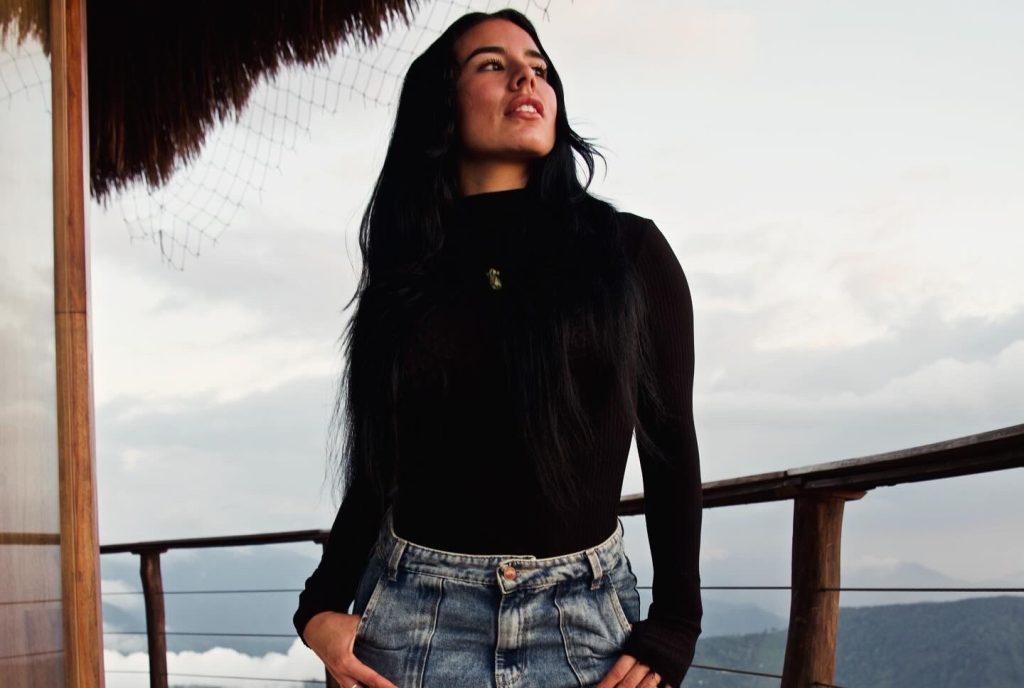
Isabella Cortes Lara, ISAVIBE
Isabella Cortes Lara, also known as ISAVIBE, is a renowned artist, activist, and Executive Director of Women for Conservation. With over a decade of experience, Isabella has been empowering women in the Sierra Nevada de Santa Marta through conservation initiatives, community projects, and public murals. Drawing from her Yanakona indigenous heritage from Cauca, Colombia, Isabella integrates ancestral wisdom with modern conservation efforts, focusing on environmental education, sustainable livelihoods, and family planning. She leads the ‘Women Guardians’ program, equipping indigenous and campesino women to protect Colombia’s fragile paramo ecosystems. In honor of her contributions, a newly discovered hummingbird species, Eriocnemis isabellae, was named after her.
As the creative director of the Rana Chiva Project, pioneered by Fundación ProAves, Isabella transformed a traditional Chiva bus into a mobile classroom that raises awareness about endangered species, including the endemic Lynch’s Colombian tree frog. Her innovative approach combines art, music, and conservation to foster environmental stewardship. The project is evolving, with the latest iteration, Reinita Chiva 2.0, focusing on migratory bird conservation. This version will be officially launched at COP16 in Cali, Colombia, in 2024.
Beyond conservation, Isabella, as ISAVIBE, blends her indigenous roots with Latin urban, reggaetón, and folklore in her music, raising awareness about environmental and cultural preservation. Her song “Agüita de Páramo,” composed for the Rana Chiva project, serves as a conservation anthem, incorporating the sounds of Colombia’s unique ecosystems to inspire action. Her art and music are featured in murals, galleries, and nature reserves, powerfully advocating for indigenous rights, reproductive justice, and environmental sustainability.
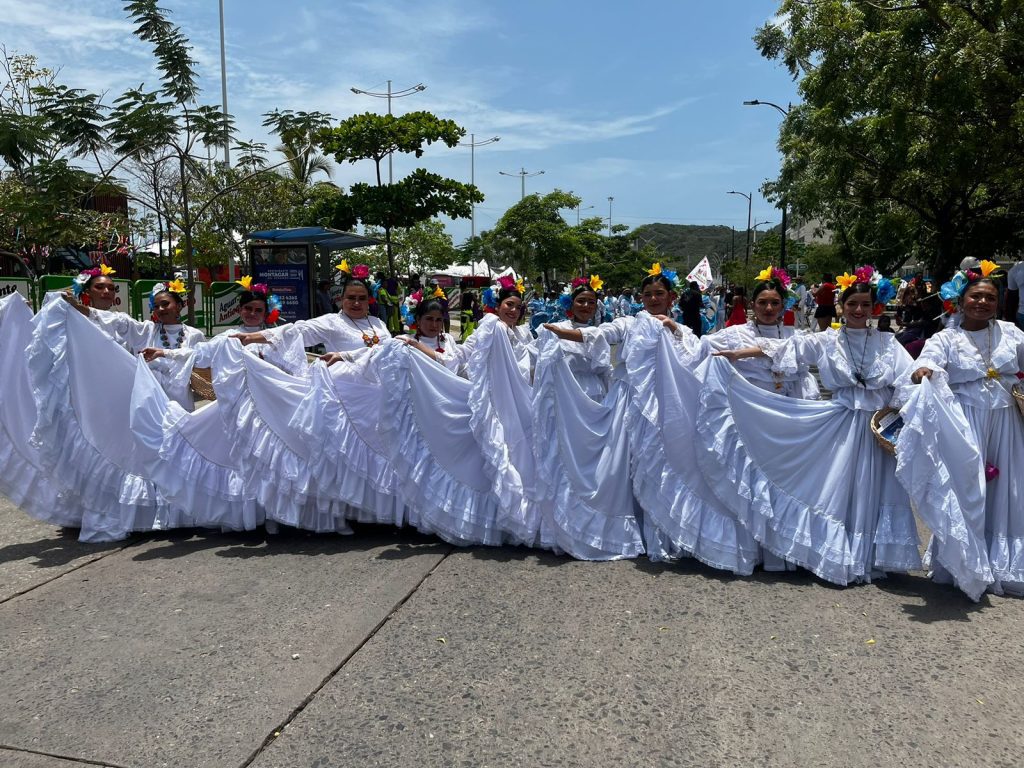
Women SINESAMA
Founded in 2019, Women SINESAMA was born from the need to involve mountain women in training, conservation and productivity processes.
In that year, the WOMEN FOR CONSERVATION ASSOCIATION, headed by director SARA LARA, reached out to the women of the Vista Nieves village, located in the Minca La Tagua subregion, in the Sierra Nevada de Santa Marta.
SARA LARA shared the philosophy and principles of her association and expressed the desire that women in this region become involved in the process and transformation of their own development. She shared her life story as a reference inspiring the women to recognize the opportunities available to them to grow as mothers, producers, entrepreneurs, and leaders. All the women in attendance expressed great interest in being part of their own transformation as well as being part of the transformation of the communities in the Sierra Nevada de Santa Marta.
They said: We are women with dreams that are somewhat frustrated by a lack of opportunities, by a lack of training, by abandonment, by radical machismo.
This is how a whole process of training in gastronomy, bird watching, participation and training in environmental processes and care for the environment began. The need arose to appoint a leader to coordinate these activities with the Women for Conservation Foundation.
Over the past five years, women have participated in activities and implemented environmental and community projects, becoming increasingly competent in learning, where knowledge, action and, above all, being are integrated. Every day, women have become empowered and have created businesses that involve their family nucleus to strengthen the economy and improve the quality of life for families.
The group of women from the Sierra Nevada de Santa Marta grew steadily, and became involved in community activities, sports, and culture. Each woman plays a role within the family and the community and is sensitive to the difficulties and needs of the environment. And so, the need to create and legalize an Association was born.
In 2024, this group of women from the Sierra Nevada de Santa Marta created the ASSOCIATION FOR PRODUCTIVE AND CULTURAL CONSERVATION OF THE SIERRA NEVADA DE SANTA MARTA (WOMEN SINESAMA).
Its social objective is to foster among its members an awareness of environmental conservation and the transformation of its agricultural and artisanal resources in order to become competent in the commercial and economic spheres. To promote female entrepreneurship in all sectors, as well as the integral, emotional, productive, economic and cultural development of the Sierra Nevada de Santa Marta. To promote the productive and cultural development of women, in rural and non-rural areas, taking into account the rescue of traditions. To train women and young people and the community in general in productivity, mental health and culture projects and to generate a sustainable economy.
Yesterday, Today and Tomorrow, Women SINESAMA promotes the development of the Sierra Nevada de Santa Marta, promoting environmental awareness and building a more humane and sustainable community.
Half-Earth Day 2023
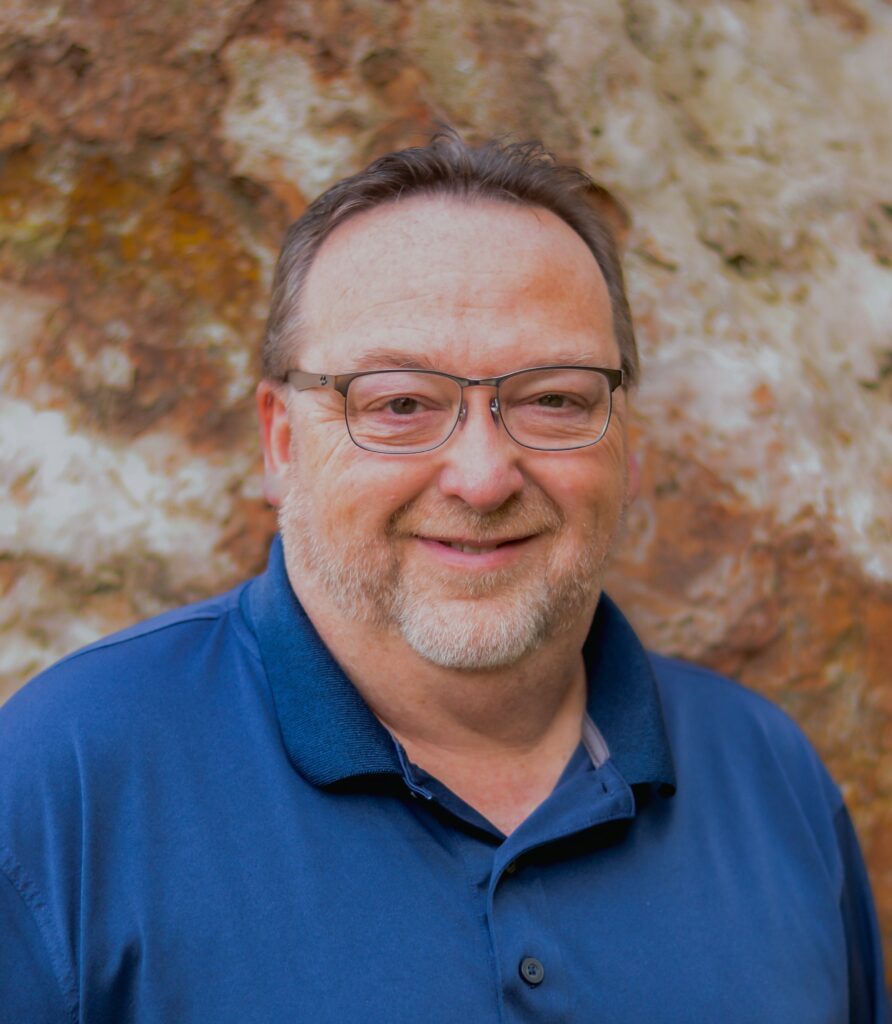
Sean Breyer, Program Manager, ArcGIS Living Atlas of the World, Esri
Sean Breyer is Esri’s Program Manager for ArcGIS Living Atlas of the World. As such, he oversees the world’s foremost collection of global geographic information and services, including maps, map layers, services, and apps for location analysis. Since joining Esri in 2011, Sean has helped federal, state, and private entities develop geospatial technology strategies as they plan new projects, manage risk, and develop data-driven solutions to some of the world’s most challenging issues. Before coming to Esri, Sean worked at Rand McNallyf as Director of Data Services. His other roles have included Director of GIS at the South Carolina Department of Commerce and as Lead GIS and Database Manager at Sandia National Laboratories Environmental Restoration Program.
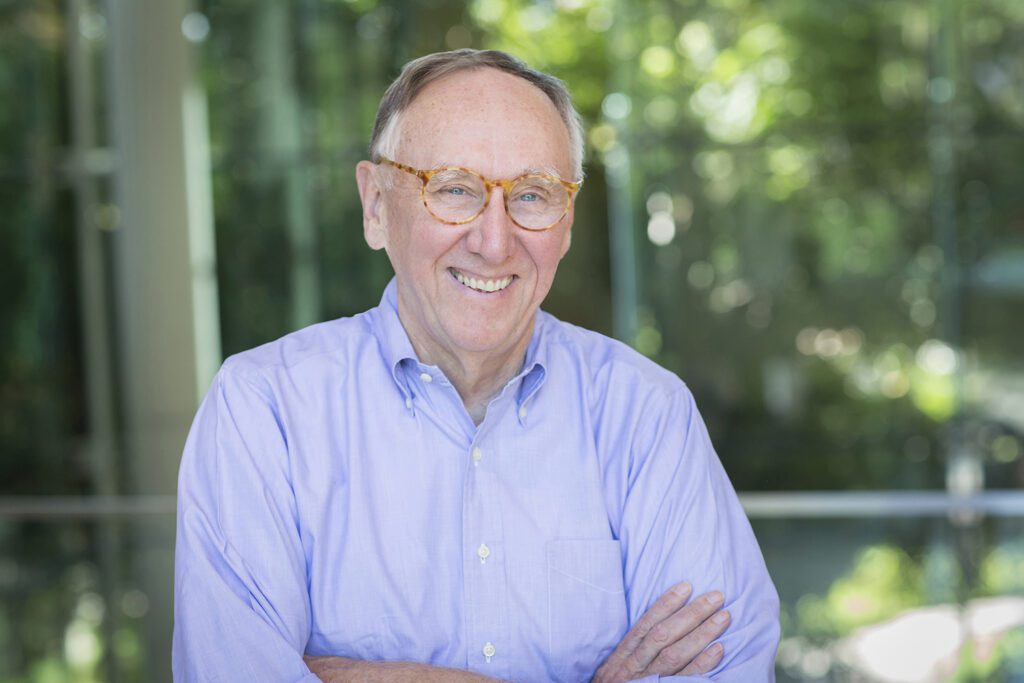


Jack Dangermond, Founder and President, Environmental Systems Research Institute (Esri)
A landscape architect by training, Jack Dangermond founded the Environmental Systems Research Institute (Esri) in 1969 with a vision that computer mapping and analysis could help design a better future. Under Dangermond’s leadership, that vision has continued to guide Esri in creating cutting-edge GIS and Geodesign technologies used in every industry to make a difference worldwide.
Dangermond fostered the growth of Esri from a small research group to an organization recognized as the world leader in GIS software development. Esri employs more than 4,000 people worldwide; many who shared his passion for GIS in the early days are still with the company and remain dedicated to helping our users be successful.
Dangermond’s vision for Esri goes beyond building the leading GIS technology. He keeps the company mindful of global challenges and the needs of specific industries. The ongoing drive is to engineer ArcGIS to aggregate and integrate increasing quantities of data, to visualize and analyze the data to gain holistic understanding, and to help individuals and organizations make impactful evidence-based decisions.
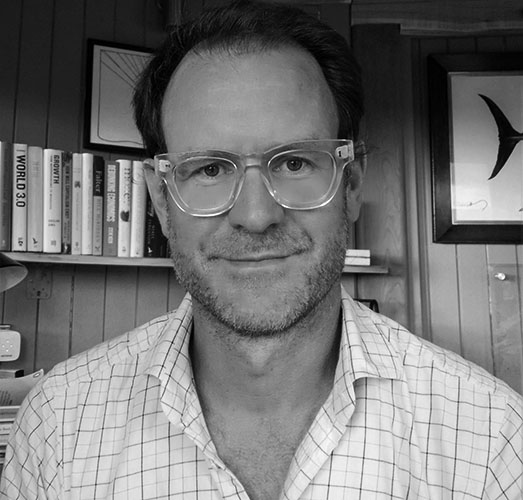

James d’Ath, Technical Lead for Data and Analytics, TNFD
James d’Ath has a wide range of experience working across financial markets and sustainability. In 2015, he founded a sustainable finance advisory business. His current roles include Technical Lead for Data and Analytics at TNFD, Co-Chair of the Nature-related Data Catalyst, Finance Sector Engagement Specialist for Global Canopy, Senior Consultant for the World Economic Forum, and ESG Director for Edison Group.
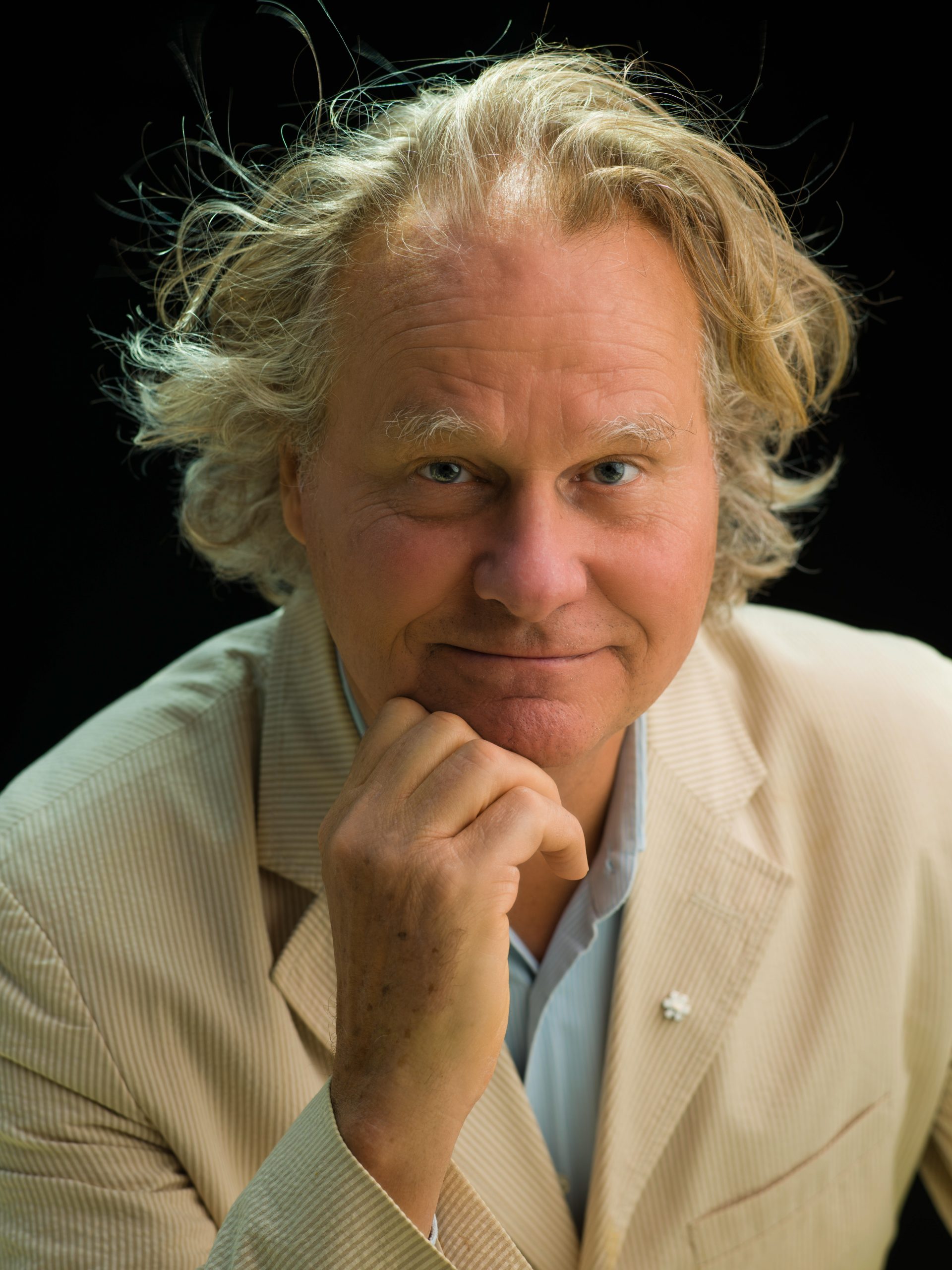

Wade Davis, Professor of Anthropology, BC Leadership Chair in Cultures and Ecosystems at Risk, University of British Columbia
Wade Davis is Professor of Anthropology and the BC Leadership Chair in Cultures and Ecosystems at Risk at the University of British Columbia. Between 2000 and 2013, he served as Explorer-in-Residence at the National Geographic Society. Named by the NGS as one of the Explorers for the Millennium, he has been described as “a rare combination of scientist, scholar, poet, and passionate defender of all of life’s diversity.”
An ethnographer, writer, photographer, and filmmaker, Davis holds degrees in anthropology and biology and received his Ph.D. in ethnobotany, all from Harvard University. Mostly through the Harvard Botanical Museum, he spent over three years in the Amazon and Andes as a plant explorer, living among 15 indigenous groups while making some 6,000 botanical collections. His work later took him to Haiti to investigate folk preparations implicated in the creation of zombies, an assignment that led to his writing The Serpent and the Rainbow (1986), an international best seller later released by Universal as a motion picture. In recent years, his work has taken him to East Africa, Borneo, Nepal, Peru, Polynesia, Tibet, Mali, Benin, Togo, New Guinea, Australia, Colombia, Vanuatu, Mongolia, and the high Arctic of Nunavut, and Greenland.
Davis is the author of 375 scientific and popular articles and 23 books, including One River (1996), The Wayfinders (2009), Into the Silence (2011), and Magdalena (2020). His photographs have been widely exhibited and have appeared in 37 books and 130 magazines, including National Geographic, Time, Geo, People, Men’s Journal, and Outside. He was curator of The Lost Amazon: The Photographic Journey of Richard Evans Schultes, first exhibited at the National Museum of Natural History, Smithsonian Institution. In 2012, he served as guest curator of No Strangers: Ancient Wisdom in the Modern World at the Annenberg Space for Photography in Los Angeles. He was curator of Everest: Ascent to Glory, Bowers Museum, February 12–August 28, 2022. National Geographic has published two collections of his photographs, Light at the Edge of the World (2001) and Wade Davis: Photographs (2018).
His 40 film credits include Light at the Edge of the World, an 8-hour documentary series written and produced for National Geographic. His most recent film, El Sendero de la Anaconda, a 90-minute feature documentary shot in the Northwest Amazon, is available on Netflix.
A professional speaker for 35 years, Davis has lectured at over 200 universities and 250 corporations and professional associations. In 2009, he delivered the CBC Massey Lectures. He has spoken from the main stage at TED five times, and his three posted talks have been viewed by 8 million. His books have appeared in 22 languages, with close to a million in worldwide sales.
Davis, one of 20 Honorary Members of the Explorers Club, is Honorary Vice-President of the Royal Canadian Geographical Society and recipient of 12 honorary degrees, as well as the 2009 Gold Medal from the Royal Canadian Geographical Society, the 2011 Explorers Medal, the 2012 David Fairchild Medal for botanical exploration, the 2015 Centennial Medal of Harvard University, the 2017 Roy Chapman Andrews Society’s Distinguished Explorer Award, the 2017 Sir Christopher Ondaatje Medal for Exploration, and the 2018 Mungo Park Medal from the Royal Scottish Geographical Society. In 2016, he was made a Member of the Order of Canada. In 2018, he became an Honorary Citizen of Colombia.
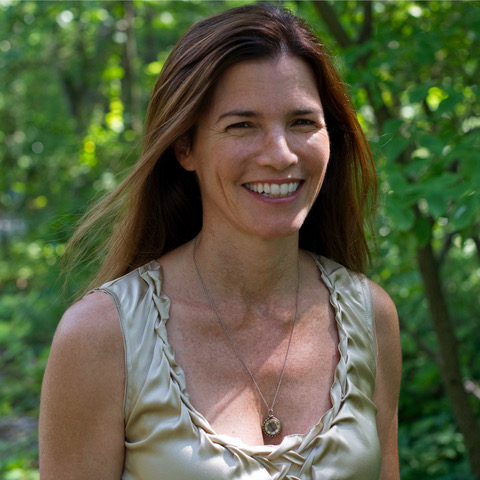







Paula J. Ehrlich, President and CEO, E.O. Wilson Biodiversity Foundation, Co-Founder, Half-Earth Project
Paula J. Ehrlich, DVM, PhD, is President and CEO of the E.O. Wilson Biodiversity Foundation, whose mission is to reimagine the way we care for our planet through actionable scientific research that supports communities in their stewardship of biodiversity.
Dr. Ehrlich is also co-founder of the Half-Earth Project and has led the development of the Half-Earth Project Map, a global, spatially explicit, and taxonomically comprehensive map of species, which informs how well-conserved places are protecting species and identifies priorities for future conservation. She is the founder of Half-Earth Day, which brings together worldwide participants from across disciplines to share perspectives and thought leadership on how to achieve Half-Earth and ensure the health of our planet for future generations.
Dr. Ehrlich has over 30 years of strategic scientific management and research expertise and diverse academic, non-profit, and corporate leadership experience. Her current work embodies the hopes of the greatest naturalist of our time, E.O. Wilson.


Sam Hunter, Natural Resources Monitor, Weenusk First Nation
Sam Hunter was born in October 1965 at Hawley Lake, located on the southern shore of Hudson Bay in Ontario’s far north. While growing up, he lived in tents and sod teepees in his homelands, which many term “trapline.” Today, Sam is currently building an energy-efficient home that will be cool in the summer and warm during the winter months. The new home will harness energy from the sun, wind, and water. This is an essential element for the green economy concept.
Currently, Sam lives in the remote Cree community of Peawanuck, Ontario, in the middle of Polar Bear Provincial Park. He grew up in the wilderness and practices traditions regularly. Being in a remote community, he isn’t totally dependent on his survival skills; however, he chooses to live his life that way, as that is what makes him happiest.
Sam has a lifetime of stories to tell, from being born in a tent to being dragged out of his tent by a polar bear. He was forced to attend residential school as a child, where he would later lose his brother. At the age of 14, he started taking tourists out to see polar bears, earning him the nickname “Polar Bear Guide.” There are so many stories that he usually tops the last one each time he gets together with family and friends.
Sam mentors youth with trips to the wilderness and is very interested in bringing in outside programming mentors to teach science, climate change, adaptations, and visual arts. Sam understands the benefits of mentoring young people. Stories of teens whose lives have been changed by a mentoring adult are powerful.







Walter Jetz, Scientific Chair, E.O. Wilson Biodiversity Foundation, Professor, Yale University
Walter Jetz, MSc, PhD is a Professor of Ecology and Evolutionary Biology and Adjunct Professor in the School of Forestry and the Environment at Yale University. Dr. Jetz is Director of the Yale Center for Biodiversity and Global Change, which links scientists, students, and practitioners engaged in the environment, biological, informatics, policy, or health aspects and implications of global biodiversity change. Dr. Jetz leads the Map of Life at Yale University, which utilizes geospatial species distribution data and analytics to guide where we have the best opportunity to conserve the most species.
Dr. Jetz’ work addresses patterns and mechanisms of changing biodiversity distribution and the resulting implications on conservation and environmental management. His research combines remote sensing, phylogenetic, functional, and spatiotemporal biodiversity data with new modeling approaches and informatics tools. Dr. Jetz is particularly interested in how environmental, ecological, and macroevolutionary mechanisms combine to determine the co-occurrence of species and the structure of species assemblages.
In addition to his work at Yale, Dr. Jetz chairs the Intergovernmental Science-Policy Platform on Biodiversity and Ecosystem Services (IPBES) Task Group on Biodiversity Indicators and is Co-Lead of the GEO BON Working Group on Species Distributions. Dr. Jetz was previously a professor of biological sciences at the University of California San Diego. Dr. Jetz earned his MSc in Integrative Bioscience and PhD in Zoology from the University of Oxford.
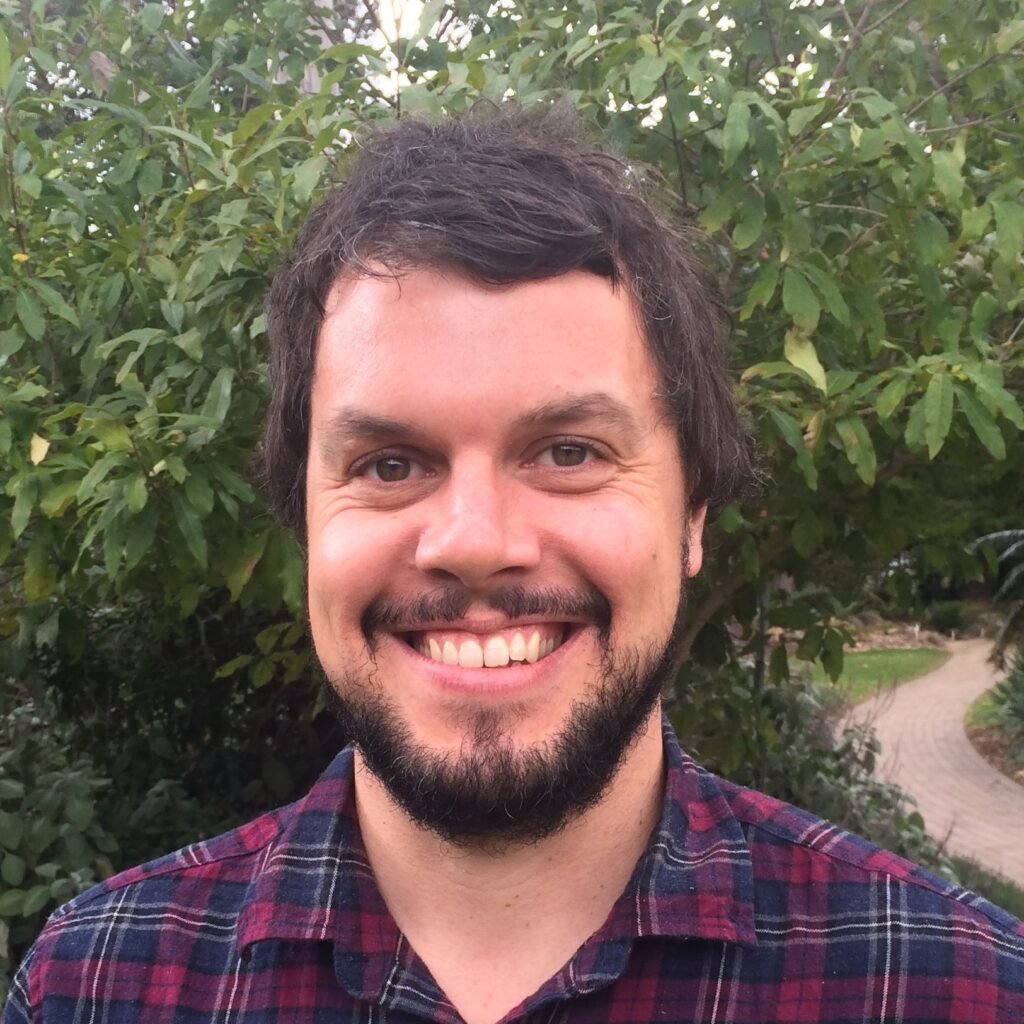

Luke Kelly, Associate Professor in Quantitative Ecology, University of Melbourne
Luke is an Associate Professor in Quantitative Ecology at the University of Melbourne and leads teams working locally and internationally. He studies the dynamics of plant and animal populations, educates about biodiversity and human well-being, and collaborates with diverse stakeholders to prevent species extinction.
He has over a decade of experience generating research and knowledge to help conserve biodiversity. His expertise is in ecological and evolutionary dynamics, such as how land use shapes animal habitats and whether plant populations can evolve through key traits to keep up with the rate of environmental change.
Luke has been invited to lead papers in high-impact journals such as Science and Annual Review of Environment and Resources. His work has revealed that changes in fire patterns threaten 4,403 plant and animal species across the globe with extinction and highlighted ways that knowledge and practice of fire can help to achieve the 17 Sustainable Development Goals adopted by the United Nations.
He has received numerous awards and fellowships for his interdisciplinary research, including a prestigious Woodward Medal in Science and Technology, a Centenary Fellowship at the University of Melbourne, and a three-year Victoria Fellowship where he was based in Spain at the Forest Science and Technology Centre of Catalonia.
Luke’s research, teaching, and engagement are underpinned by a commitment to people and nature. He values and supports diverse perspectives and cultures, and believes science is at its best when inclusive and collaborative.
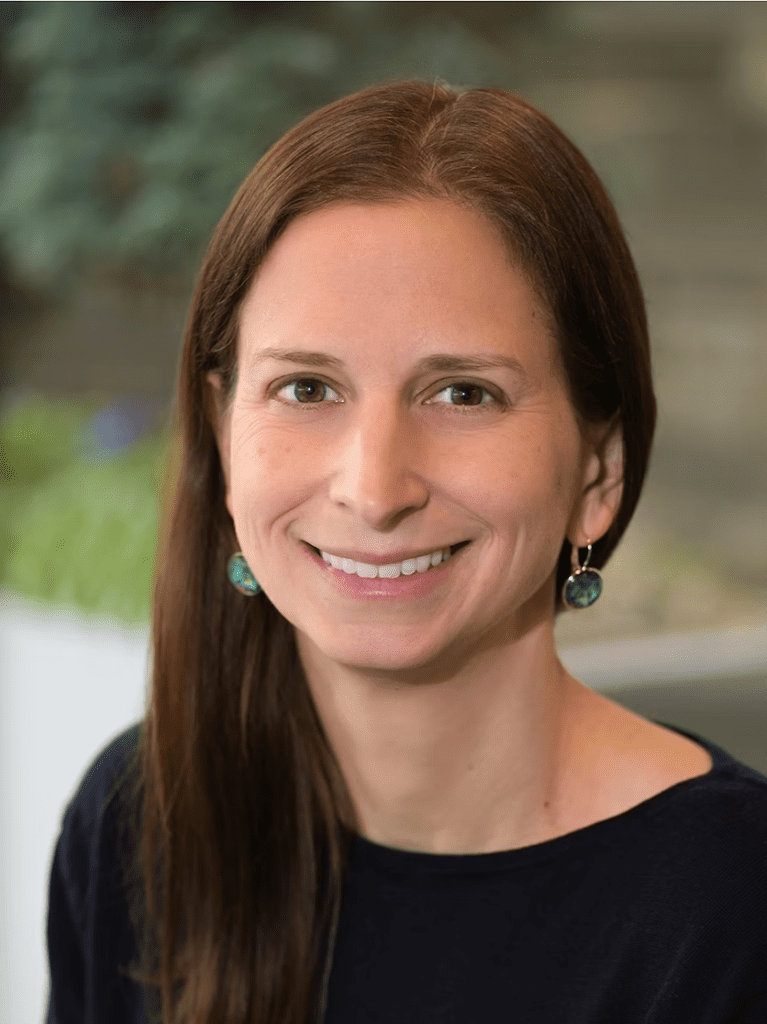

Kelly Levin, Chief of Science, Data and Systems Change, Bezos Earth Fund
Kelly is Chief of Science, Data and Systems Change for the Bezos Earth Fund. In this role, she brings data, analysis, and evidence to inform the Fund’s strategic direction. Kelly is also Co-Director of the Systems Change Lab, which monitors, learns from, and accelerates the transformational change required to protect people and the planet.
Before coming to the Earth Fund, Kelly spent 12 years at the World Resources Institute, where she was the Director of Tracking and Strengthening Climate Action in WRI’s global climate program. Kelly holds a PhD and Master of Environmental Management from Yale’s School of Environment and a B.A. in Ecology and Evolutionary Biology from Yale College.
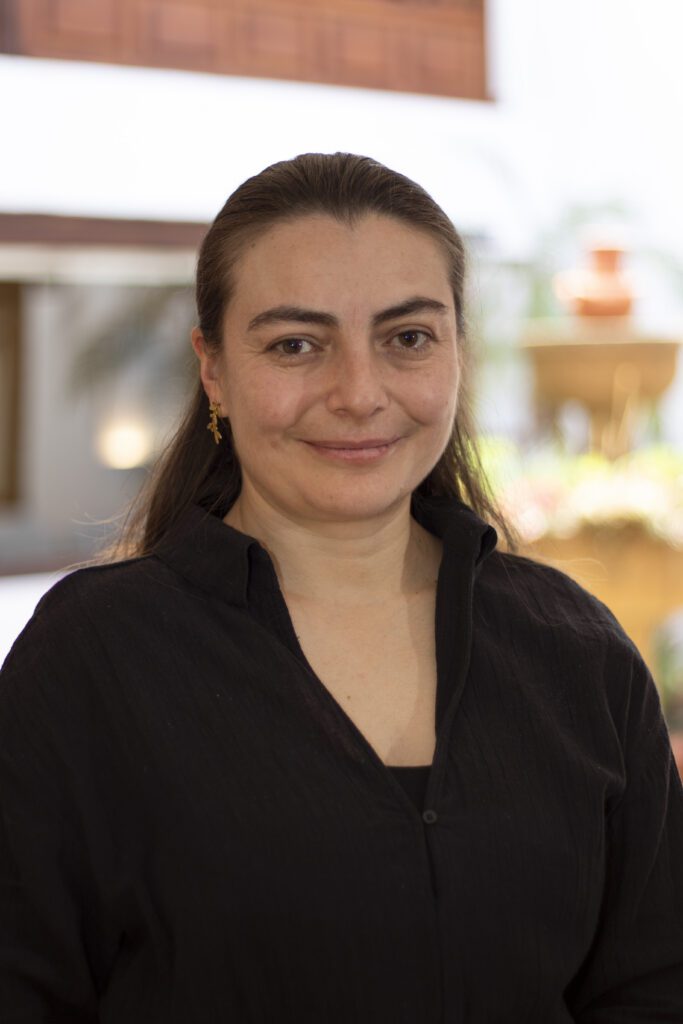

María Cecilia Londoño, Senior Information Manager, Humboldt Institute
María Cecilia Londoño is the Scientific Information Manager at the Alexander von Humboldt Institute in Colombia and co-chair of the Group on Earth Observations Biodiversity Observation Networks (GEO BON). Maria Cecilia’s main experience is in the use of biodiversity geographic analysis for decision-making, working on the production of biodiversity indicators for multiple users, and the development of web platforms for biodiversity data dissemination. Maria Cecilia coordinates and performs research that contributes to implementing the knowledge-to-action cycle related to specific problems in the context of biodiversity conservation and sustainable development.
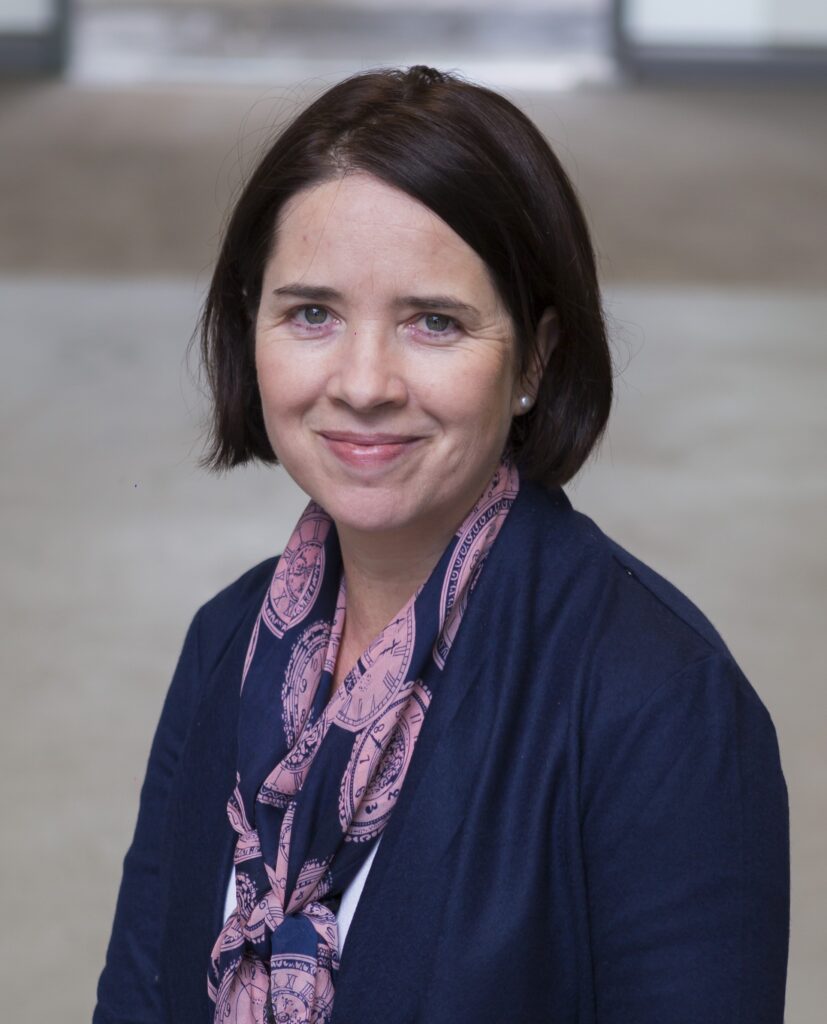

Melodie McGeoch, Professor, LaTrobe University, Adjunct Professor, Monash University
Melodie McGeoch is Professor of Ecology at Monash and La Trobe Universities. She is internationally recognized for her work on the measurement and monitoring of biodiversity change and the translation of biodiversity science for policy. Professor McGeoch is a leading scientist on biodiversity measurement and indicators, with more than 200 publications and 20 years of experience working across ecological theory, protected areas, and systems impacted by climate change and biological invasions.
Melodie is Coordinating Lead Author of the recent IPBES Assessment on Invasive Alien Species and their Control. She is 1st Vice Chair of the Global Biodiversity Information Facility (GBIF) Science Committee, and Co-Chair of the Species Populations Working Group of the Group on Earth Observations Biodiversity Observation Network (GEO BON).
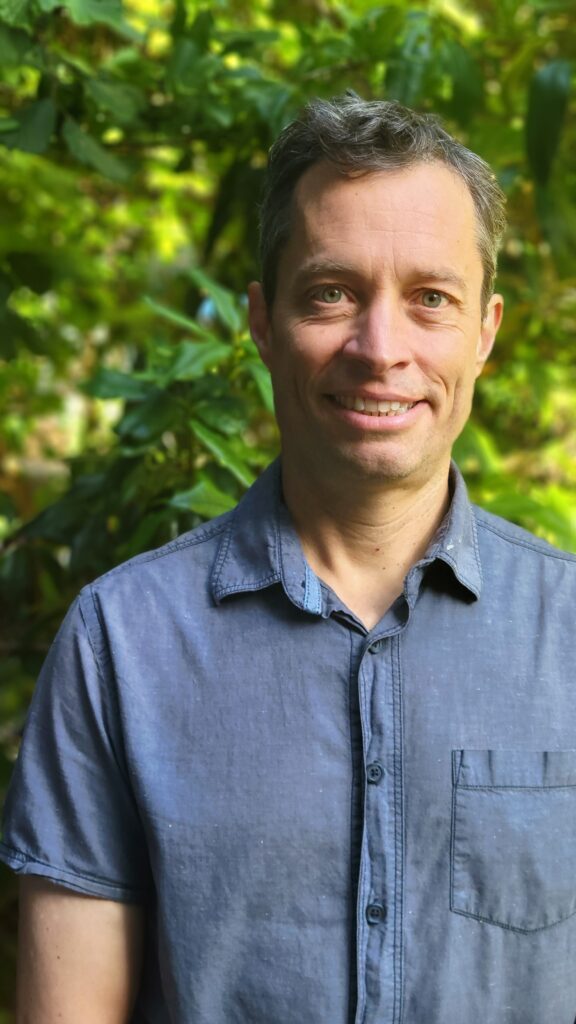

Eliot McIntire, Research Scientist, Canadian Forest Service
Dr. McIntire got his PhD from the University of British Columbia, in the Faculty of Forestry, working on Forest Fires and Mountain Pine Beetle in Southern BC. He then completed a postdoctoral fellowship at the University of Montana in Wildlife Biology and held a Canada Research Chair in Forest Modeling in the Faculty of Forestry at Laval University. In 2011, he became a Research Scientist at the Canadian Forest Service, in Victoria, BC. He has been working on ways to confront the “all models are wrong” problem in Ecology for many years. In light of this, he is currently working on improving how we bring evidence to decision-making through new approaches to prediction and forecasting.
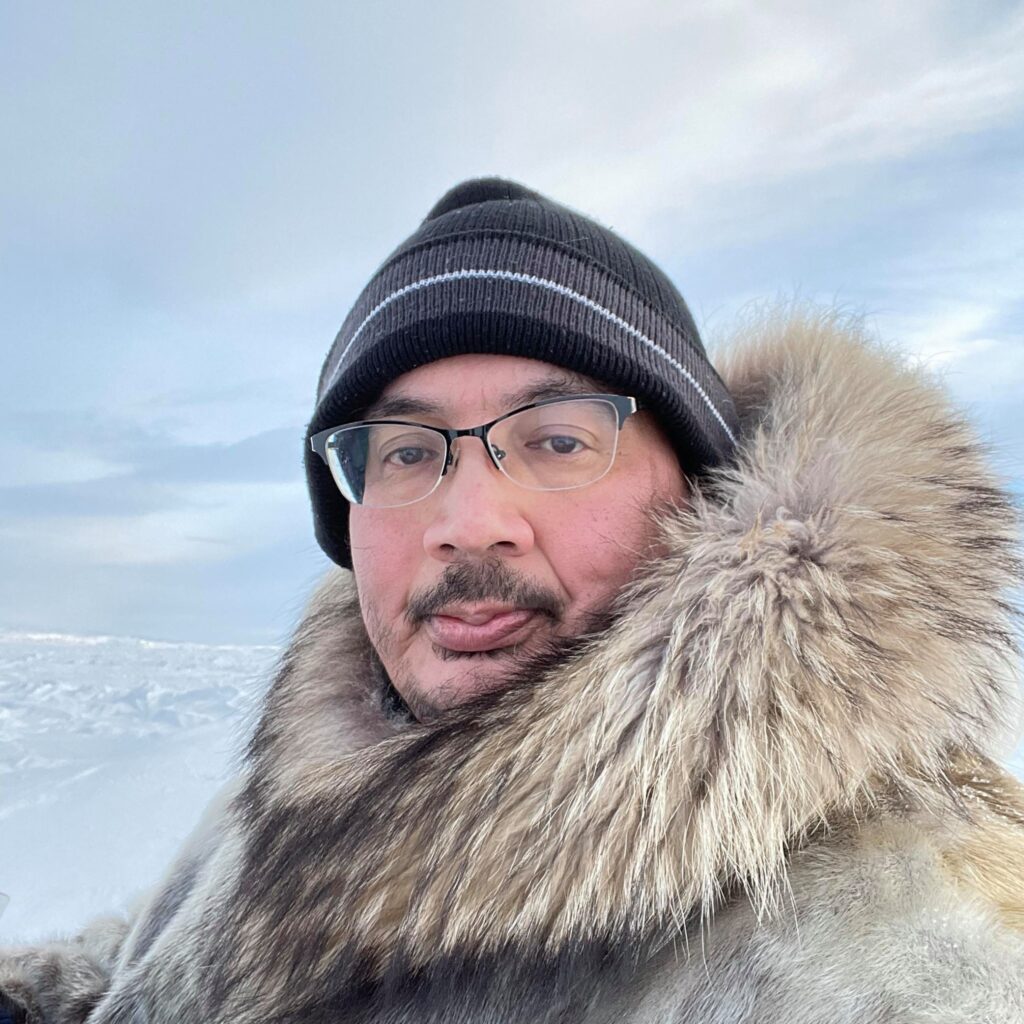

Richard Paton, Assistant Executive Director, Marine and Wildlife Stewardship, Qikiqtani Inuit Association (QIA)
Richard is the Assistant Executive Director of Marine and Wildlife Stewardship at QIA. Richard joined QIA in July of 2020. Richard is an accomplished communicator, leader, and strategist. Previously, he held Senior Management positions within several departments of the Government of Nunavut and as Chief Operating Officer for Nunavut Tunngavik. He has been a strong advocate for Inuit employment and self-governance. His 20 years of work towards advancing Inuit employment have strengthened his resolve towards advancing Inuit governance in conservation in the Qikiqtani region.
He is a hunter, fisherman, and father of five boys from the community of Iqaluit, Nunavut, Canada.
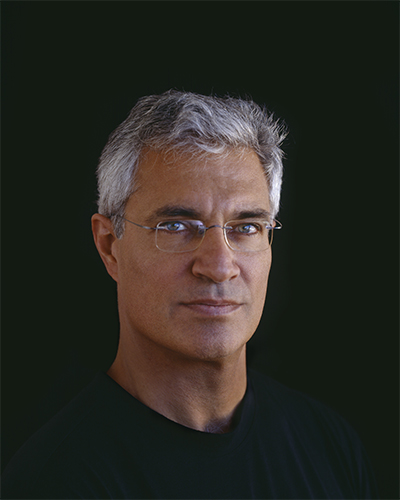

Louie Psihoyos, Oscar-winning filmmaker, Executive Director, Oceanic Preservation Society (OPS), National Geographic Photographer, Founder of Projecting Change
Louie Psihoyos is an Academy Award-winning filmmaker and Executive Director of the Oceanic Preservation Society (OPS). He is recognized as one of the top still photographers in the world, having created iconic images for National Geographic for 18 years and hundreds of covers for other magazines. Believing that film can be the most powerful weapon in the world, Louie founded OPS with Silicon Valley entrepreneur Jim Clark in 2005.
An ardent diver and dive photographer, Psihoyos’ mission is to show the world the decline of the oceans—our planet’s most crucial resource. Circling the globe dozens of times on photographic missions, he collects the imagery and stories underlying the compelling issues that challenge and threaten the natural world while connecting with environmentalists who are working to save the planet.
Psihoyos’ first documentary film, The Cove, won the Academy Award for Best Documentary Film of 2009 and over 75 other awards around the world. An annual dolphin hunt in a secret cove in Taiji, Japan suggests a microcosm of a larger picture: man’s disregard for the planet. The film garnered immense critical praise and has been seen by millions of viewers worldwide.
His second film, Racing Extinction, follows a team of artists and activists as they expose the hidden world of extinction with never-before-seen images. The film premiered on Discovery in 220 countries and territories on the same day, was nominated for an Emmy (Exceptional Merit in Documentary Filmmaking) and an Academy Award (Best Song), and sparked the #StartWith1Thing movement. With partner Obscura Digital, Psihoyos was the creative mind behind the unprecedented large-scale video projections of endangered species onto the United Nations Headquarters, Empire State Building, and the Vatican.
Psihoyos most recently finished directing The Game Changers, executive-produced by James Cameron. The film tells the story of James Wilks — an elite special forces trainer and winner of The Ultimate Fighter — as he travels the world on a quest for the truth behind the world’s most dangerous myth: that meat is necessary for protein, strength, and optimal health. What James discovers permanently changes his relationship with food and his definition of true strength.
Through the production of compelling film and imagery underlined by moving narratives, contemporary crises, and heroic film subjects, Louie Psihoyos is radically changing how people perceive documentaries.
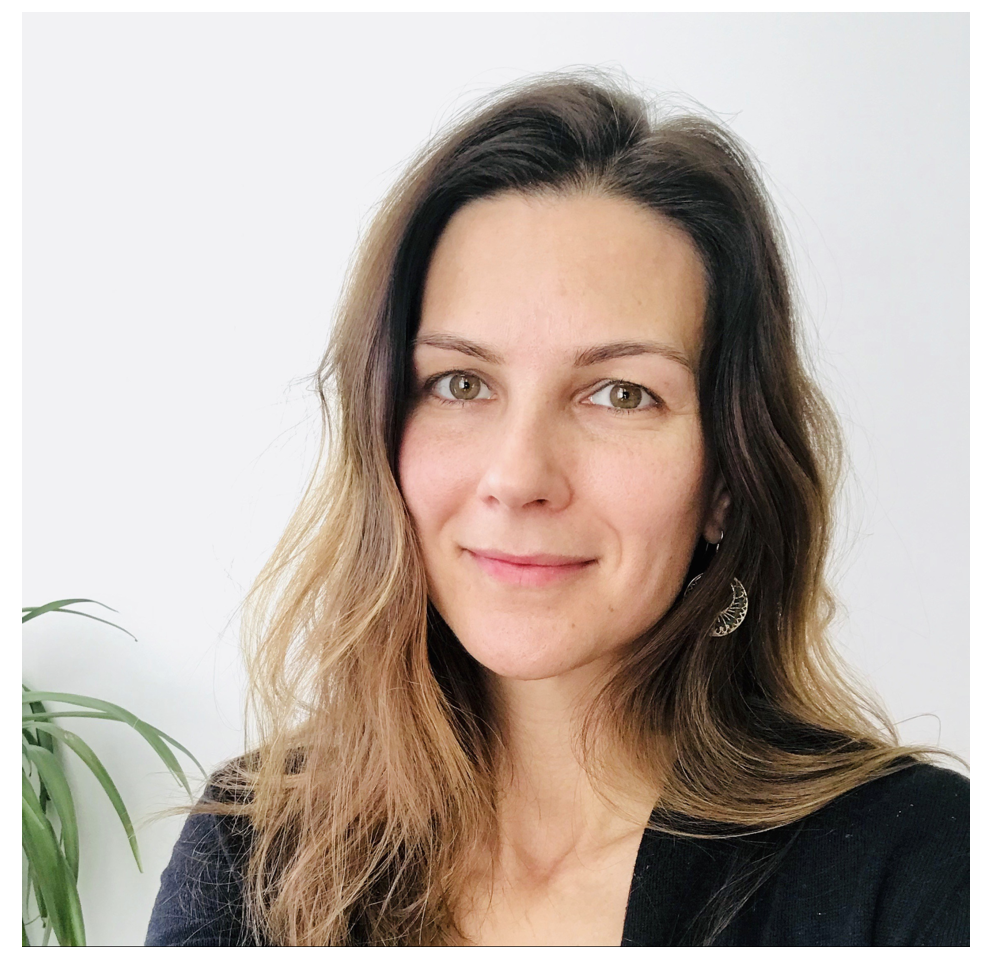

Laura Pollock, Assistant Professor, McGill University
Laura Pollock is an Assistant Professor who leads the Quantitative Biodiversity Lab in the Biology Department at McGill University in Montréal. She develops novel methods for linking large-scale biodiversity data, with conservation applications with a focus on identifying conservation hotspots, predicting biodiversity change, and developing conservation indicators.
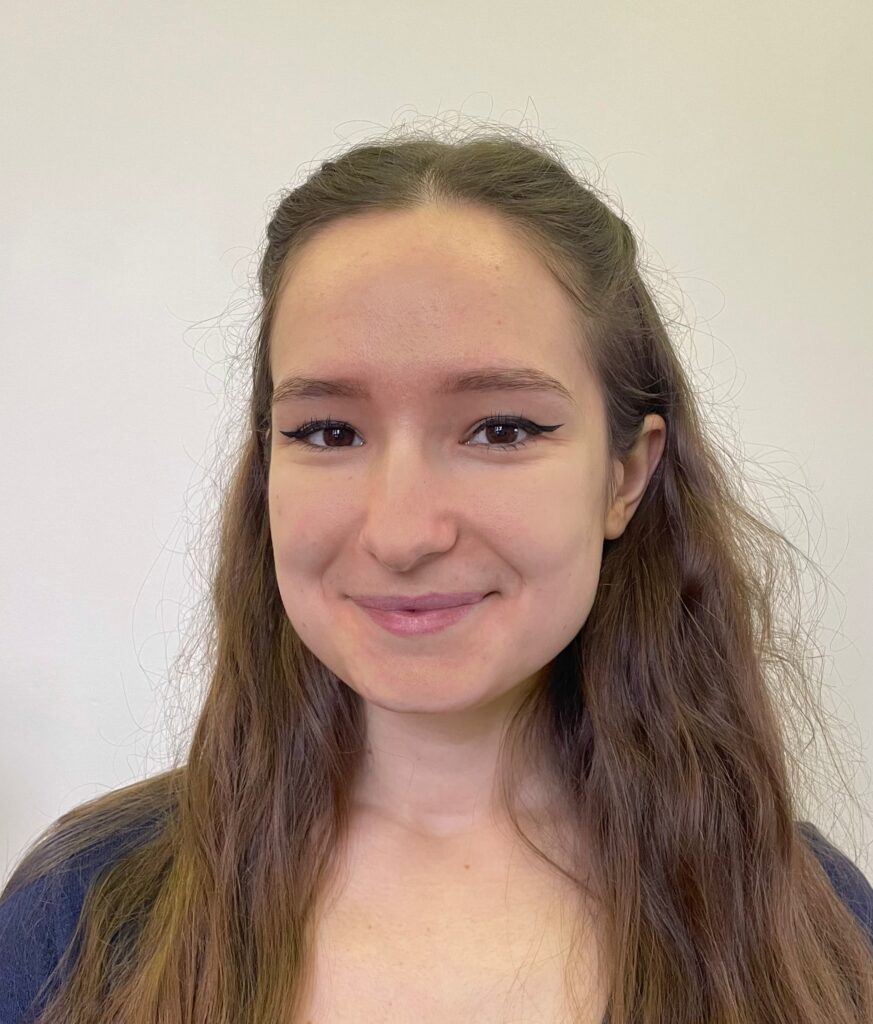

Tamara Rudic, Science Communications Specialist, Center for Biodiversity and Global Change, Yale University
Tamara is the science communication specialist at the Yale Center for Biodiversity and Global Change (BGC), where she focuses on connecting biodiversity data and tools developed at the BGC to conservation users and decision-makers worldwide. Her work involves the creation of multi-media communications products, product prototyping for online biodiversity tools, and collaborating with partner organizations to co-produce better interfaces and tools for delivering rigorous biodiversity data to conservation users. Tamara is passionate about viewing environmental and biodiversity issues through the lens of intersectionality and ensuring that human dimensions and environmental justice are always involved in conservation.
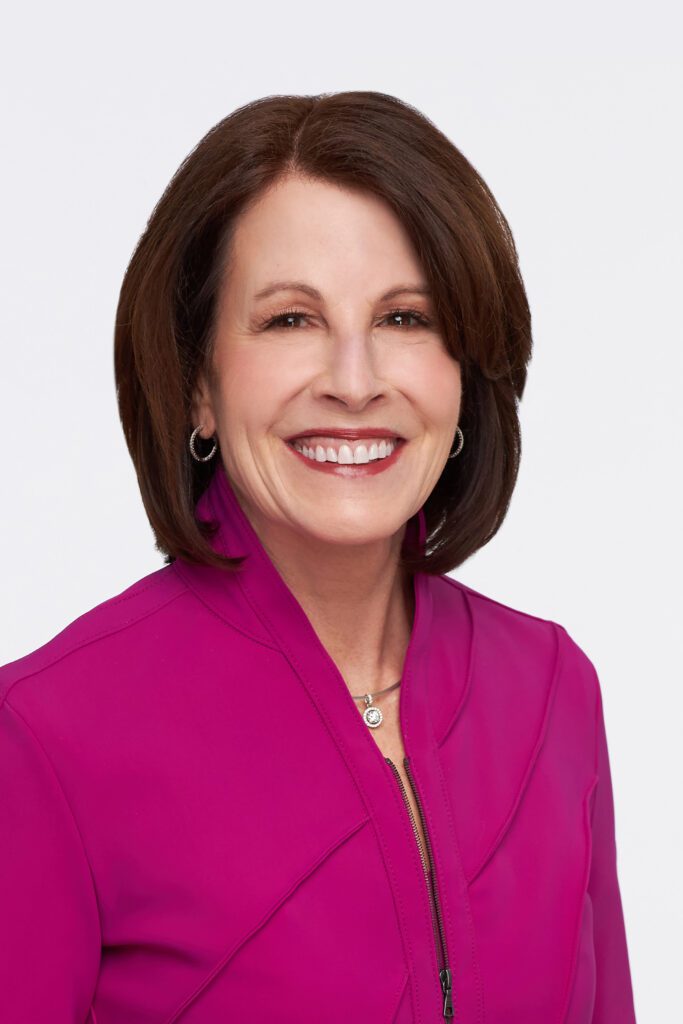

Alison Taylor, Chief Sustainability Officer, ADM
Alison Taylor is chief sustainability officer for ADM. She oversees the company’s global sustainability strategy and works closely with the Sustainability and Corporate Responsibility Committee of ADM’s Board of Directors. She oversees many facets of the company’s progress toward achievement of the UN Sustainable Development Goals, including Zero Hunger and Climate Action. She guides the implementation of the company’s Respect for Human Rights Policy, No-Deforestation Policy, Strive 35 Environmental Stewardship Program, and ADM’s philanthropic efforts through ADM Cares.
Prior to joining ADM, Taylor worked for Siemens Corporation, where she was Vice President and Chief Sustainability Officer of the Americas. Taylor also worked on Capitol Hill as counsel for the U.S. House of Representatives Committee on Energy and Commerce, and chief counsel of the U.S. Senate Committee on Environment and Public Works. She was previously a partner in the law firm now known as Davis Graham and Stubbs, LLC.
Taylor currently serves on the boards of the Nicholas Institute at Duke University, the Peggy Notebaert Nature Museum in Chicago, the Nature Conservancy-Illinois, and the Leadership Council of the Corporate Eco-Forum. She also chairs the ADM Cares Committee and serves on the external advisory board of the ADM Institute for the Prevention of Postharvest Loss. She holds a bachelor’s degree from Duke University and a Juris Doctor from the University of Denver.
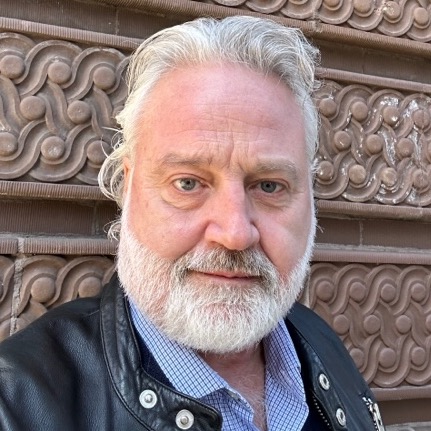

Jorgen Thomsen, Director, Climate Solutions, MacArthur Foundation
Jorgen Thomsen is the Director of Climate Solutions at the John D. and Catherine T. MacArthur Foundation. Prior to joining the foundation in 2009, Thomsen spent 14 years with Conservation International as Senior Vice President of the organization’s Conservation Funding Division and as Executive Director of the Critical Ecosystem Partnership Fund, which included leading a $260 million grant-making and partnership development facility for civil society organizations in the most biodiversity-rich areas of the world.
Before this, he was the chief executive of TRAFFIC, an organization that monitors trade in natural resources, and he held positions at WWF and IUCN, as well as in the Danish Ministry of Environment. Thomsen has a Master of Science in Zoology and also attended law school at the University of Copenhagen in his native Denmark.
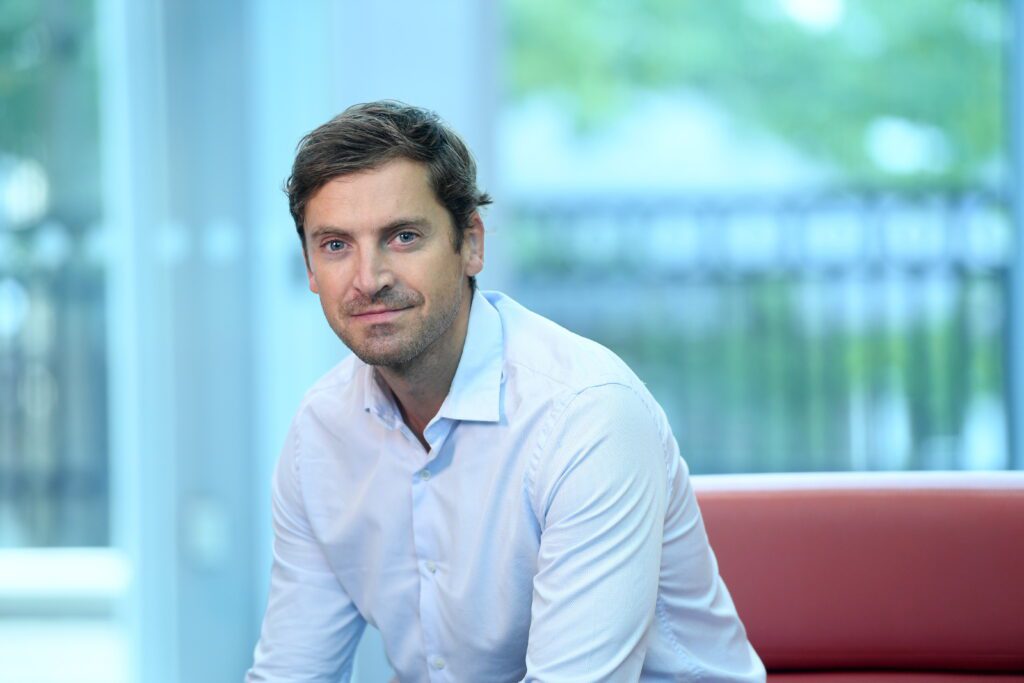

Derek Tittensor, Associate Professor and Jarislowsky Chair, Dalhousie University
Derek Tittensor is a Professor and the Jarislowsky Chair in Marine Ecosystem Forecasting in the Department of Biology at Dalhousie University in Halifax, Canada. Prior to this, he worked with the United Nations Environment Programme World Conservation Monitoring Centre to help mobilize scientific research on marine biodiversity. His work focuses on human impacts on marine biodiversity, particularly climate change, and on how we can better anticipate and adapt to impacts through improved conservation and management. His research has also helped to inform policy processes and platforms in the national and international biodiversity arenas. He also believes in the power of outreach and education and is currently working with local communities in Nova Scotia to restore seagrass meadows.
Half-Earth Day 2022
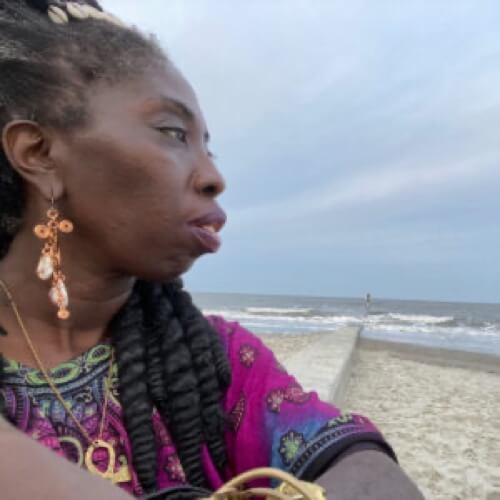

Queen Quet, Chieftess of the Gullah/Geechee Nation
Queen Quet Marquetta L. Goodwine is a published author, computer scientist, lecturer, mathematician, historian, columnist, preservationist, environmental justice advocate, environmentalist, film consultant, and “The Art-ivist.” She is the founder of the premiere advocacy organization for the continuation of Gullah/Geechee culture, the Gullah/Geechee Sea Island Coalition.
Queen Quet was vetted by the US White House as an Expert Commissioner in the Department of the Interior. As an expert commissioner, she was also the Chair of the Gullah/Geechee Cultural Heritage Corridor General Management Plan. Queen Quet also served as a member of the “National Park Relevancy Committee” and proudly continues to work to protect the environment and ensure that diverse groups of people engage in the outdoors and the policies governing them. Queen Quet has engaged in several White House conferences on this issue. She has also been a part of the United Nations COP 22 Climate Change Conference in Marrakech, Morocco, and COP 25 in Madrid, Spain. She also spoke at the United Nations Ocean Action Summit in Korea.
Queen Quet was selected, elected, and enstooled by her people to be the first Queen Mother, “head pun de bodee,” and official spokesperson for the Gullah/Geechee Nation. As a result, she is respectfully referred to as “Queen Quet, Chieftess and Head-of-State for the Gullah/Geechee Nation.” This bio represents a small portion of Queen Quet’s work and accolades; see her full bio at www.QueenQuet.com.
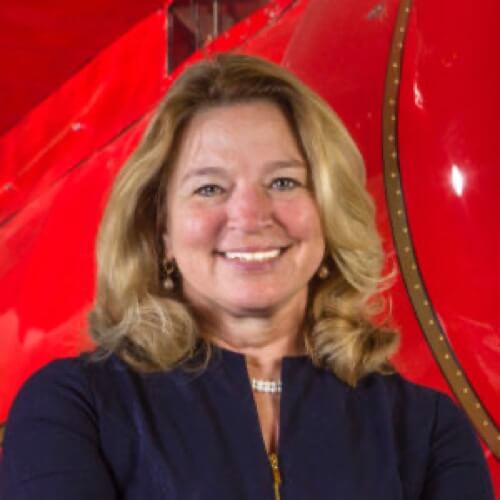

Ellen Stofan, Under Secretary for Science and Research, Smithsonian
Ellen Stofan is Under Secretary for Science and Research at the Smithsonian, where she oversees the Smithsonian science research centers as well as the National Museum of Natural History and the National Zoo. The Smithsonian Libraries and Archives, Office of International Relations, Smithsonian Scholarly Press, and Scientific Diving Program also report to Stofan. Her focus is the Smithsonian’s collective scientific initiatives and commitment to research across the institution, especially addressing issues such as biodiversity, global health, climate change, species conservation, astrophysics, and the search for life outside Earth’s solar system.
Previously, Stofan was the John and Adrienne Mars Director of the Smithsonian’s National Air and Space Museum (2018–2021), where she was the first woman to hold that position. Under her leadership, the museum began its seven-year renovation of its flagship building in Washington, D.C., in 2018. Stofan also oversaw the momentous celebration of the 50th anniversary of the first moon landing in July 2019 at the museum and on the National Mall.
Before joining the Smithsonian, Stofan had more than 25 years of experience in space-related organizations and a deep research background in planetary geology. She was chief scientist at NASA (2013–2016), serving as the principal advisor to former Administrator Charles Bolden on NASA’s strategic planning and programs. She helped guide the development of a long-range plan to get humans to Mars and worked on strategies for NASA to support commercial activity in low Earth orbit as it transitions from the International Space Station to sending humans to the moon and Mars in the mid-2020s.
She earned her bachelor’s degree in geology at the College of William & Mary in Williamsburg, Virginia, and her master’s and doctoral degrees at Brown University, both in geological sciences. While finishing her doctoral degree, Stofan joined the Jet Propulsion Lab (JPL) as a postdoctoral fellow and became the deputy project scientist for the Magellan Mission to Venus.
In 1994, Stofan became JPL’s chief scientist for the New Millennium Program, where she managed a team of about 100 scientists working on new technologies. The following year, Stofan moved to London while continuing to work at JPL and was, and continues to be, an honorary professor at University College London.
For 13 years (2000–2013), Stofan was vice president and senior scientist at Proxemy Research, a consulting firm in the Washington area specializing in planetary research.
She has published extensively, and received many awards and honors, including the Presidential Early Career Award for Scientists and Engineers and the NASA Distinguished Service Medal, and was named one of “CNN’s Extraordinary People of 2014.” She is co-author of the books Planetology: Unlocking the Secrets of the Solar System and Next Earth: What Our World Can Teach Us About Other Planets, both published by National Geographic.
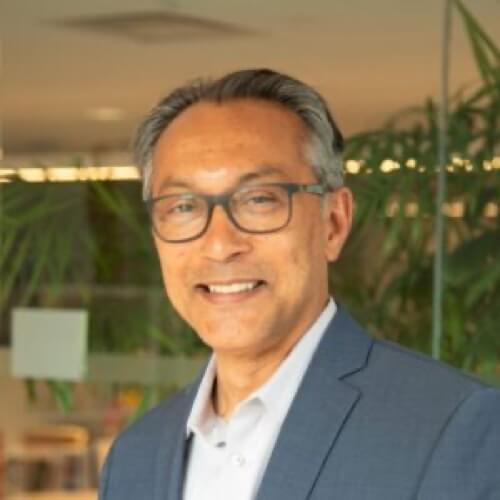

Ani Dasgupta, President and CEO, World Resources Institute
Ani Dasgupta is President and CEO of World Resources Institute, where he works to advance the institute’s global vision to improve the lives of all people and ensure that nature can thrive. He took the helm at WRI after seven years as Global Director of WRI Ross Center for Sustainable Cities, which is dedicated to shaping a future where cities work better for all people.
Under his leadership, he brought an increased focus on research to the Cities program, spearheading a number of new initiatives, including the World Resources Report: Towards a More Equal City, launching new platforms like the Coalition for Urban Transitions and the New Urban Mobility Alliance (NUMO), as well as the Prize for Cities, which supports innovative urban projects.
He developed his expertise in positions ranging from nonprofits in India to the World Bank. A widely recognized leader in the areas of sustainable cities, poverty alleviation, and building cultures of inclusion. Dasgupta has a history of building strong cross-sector, multi-national coalitions with governments, corporations, and civil society.








Paula J. Ehrlich, President and CEO, E.O. Wilson Biodiversity Foundation, Co-Founder, Half-Earth Project
Paula J. Ehrlich, DVM, PhD, is President and CEO of the E.O. Wilson Biodiversity Foundation, whose mission is to reimagine the way we care for our planet through actionable scientific research that supports communities in their stewardship of biodiversity. Dr. Ehrlich is co-founder of the Half-Earth Project, which is working to inspire informed collective action to save the biosphere and ensure we leave no species behind.
Dr. Ehrlich has led the development of the Half-Earth Project Map, a global, spatially explicit, and taxonomically comprehensive map of species that informs how well-conserved places are protecting species and identifies priorities for future conservation. She is the founder of Half-Earth Day, which brings together worldwide participants from across disciplines to share perspectives and thought leadership on how to achieve Half-Earth and ensure the health of our planet for future generations.
Dr. Ehrlich has over 30 years of strategic scientific management and research expertise and diverse academic, non-profit, and corporate leadership experience. Her current work embodies the hopes of the greatest naturalist of our time, E.O. Wilson.
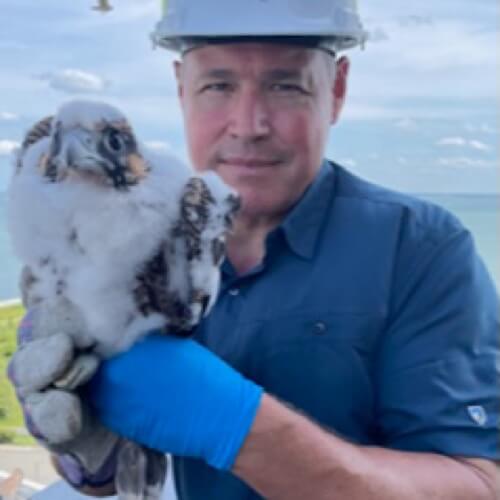

Jeff Corwin, Wildlife Biologist, TV Host
Jeff’s television work has been awarded multiple Emmys and the top broadcast industry awards. His very first TV series was the wildly successful Going Wild with Jeff Corwin on Disney Channel. His Animal Planet series, The Jeff Corwin Experience, was a global sensation. Jeff is also the creator and co-presenter of CNN’s groundbreaking documentary Planet in Peril, hosted alongside Anderson Cooper and Sanjay Gupta. Jeff is Executive Producer and host of ABC’s Ocean Treks, five seasons of powerful and compelling stories exploring journeys of culture, adventure, and nature around the globe. Jeff is an Executive Producer and Presenter for the giant screen film Expedition Chesapeake and the Narrator for David Attenborough’s powerful, cinematic documentary Galapagos, Nature’s Wonderland. During the Gulf oil spill, Jeff served as an environmental correspondent for both CBS and NBC News. In April 2020, Jeff created and executively produced the critically acclaimed TV series Alaska Animal Rescue for Nat Geo Wild, now on Disney Plus.
Beyond television, Jeff’s acclaimed NBC documentary and book, 100 Heartbeats, engaged both the readers and broadcast audience in the 21st-century plight of endangered species. Jeff is also. the author of 10 books on wildlife and nature, including Living on the Edge: Amazing Relationships in the Nature World. Jeff is a leader in conservation, recognized through his work as a television host, producer, journalist, author, explorer, and wildlife biologist. Jeff’s education includes Bachelor of Science Degrees in Anthropology and Biology from Bridgewater State University and a Master of Wildlife and Fisheries of Conservation from the University of Massachusetts, Amherst. Jeff is the recipient of numerous Honorary Doctorate Degrees in Education and Environmental Science. His lifelong global exploration, academic training, and partnerships with top scientists allow Jeff exclusive access to compelling stories from the battlefront of conservation. Jeff’s love for adventure and discovery has fueled his life-long career. He has been striving to change the world, one species at a time, and leave a vital legacy for future generations. “We cannot protect what we do not cherish, and we will not cherish what we do not know…” – Jeff Corwin
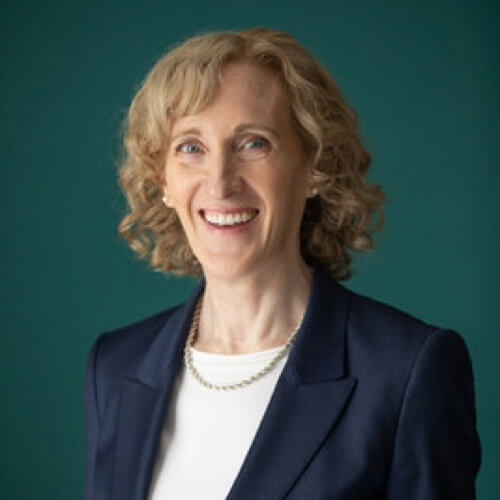

Elizabeth Gray, CEO, Audubon
Elizabeth joined Audubon in 2021, first as president and chief conservation officer before being appointed as Audubon’s first woman chief executive officer. Prior to joining Audubon, she was the Global Managing Director of The Nature Conservancy’s (TNC) Climate Change program. Trained as an ornithologist, she has spent 30+ years as a dedicated conservationist, spending considerable time in the field nationally and abroad.
Elizabeth has been a leader on equity issues, from founding the first urban conservation program in Washington, D.C., to empowering the next generation of conservation leaders through a young professional’s network and youth advocacy program, to serving as one of five members of TNC’s Global Gender Equity Council.
Elizabeth will be based in Audubon’s Washington, D.C. office. She holds a Ph.D. in ecology from the University of Washington and an A.B. with highest honors in psychology from Harvard University.
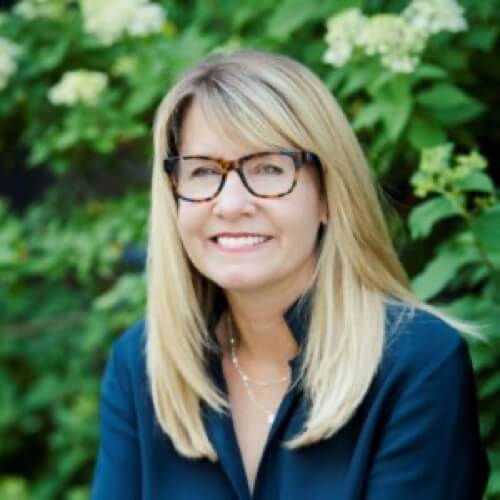

Jennifer Morris, CEO, The Nature Conservancy
Jennifer Morris is Chief Executive Officer of The Nature Conservancy, a global conservation organization that partners with communities across the globe to overcome the barriers to climate and biodiversity solutions. Jennifer leads over 4,000 global staff working together to develop breakthrough tools and ideas, amplify local knowledge, influence decision-making, and forge new paths to funding in pursuit of a world where people and nature thrive.
For more than 25 years, Jennifer has dedicated her life to protecting the environment for people and nature. She brings decades of global leadership, proven management skills, and a passion for conservation to the organization and its ambitious mission—conserving the lands and waters on which all life depends. Almost 30 years ago, Jennifer was teaching in Namibia with an eye on a career in public health.
Years of working and living in a small community showed her that the health of each individual and each family was inextricably linked to the health of the environment. This realization propelled her to serve by working in economic development, and she went on to receive a master’s degree in international affairs from Columbia University with a focus on business development and microfinance. After a short stint at Women’s World Banking, she joined Conservation International.
Jennifer was previously president at Conservation International (CI), where she developed some of CI’s most enduring programs, partnerships, and innovative strategies using business development as a tool to protect nature for the well-being of humanity. Prior to her role as president, she was CI’s chief operating officer and oversaw significant growth in budget and staff. Jennifer is a passionate storyteller, avid outdoors enthusiast, and mentor to future generations of conservation leaders. She lives in Washington, D.C., with her husband and daughter.
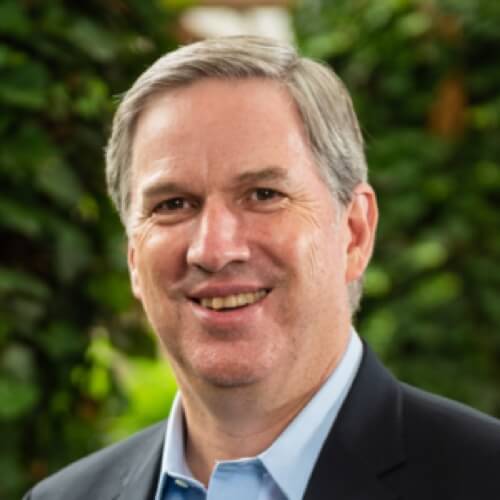

Cristián Samper, Managing Director and Leader of Climate Solutions, Bezos Earth Fund
Dr. Cristián Samper is the Managing Director and Leader of Nature Solutions at the Bezos Earth Fund (BEF), designed to support climate and nature solutions. He is a biologist and has worked on environmental science, policy, and education throughout his career. Prior to joining BEF, Cristián served as President and CEO of the Wildlife Conservation Society (2012-2022), Director of the Smithsonian’s National Museum of Natural History (2003-2012), and was the founding director of the Alexander von Humboldt Institute of Colombia. He grew up in Colombia, studied at the Universidad de Los Andes, and received his master’s and doctoral degrees in biology from Harvard University.
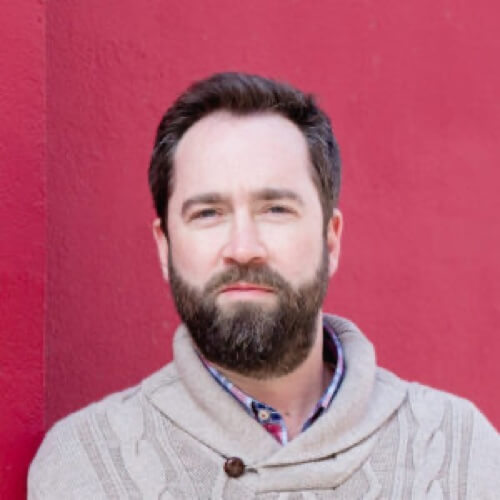

Lucas St. Clair, President, Elliotsville Foundation, Inc.
Lucas was born in Dover-Foxcroft, Maine, and spent his childhood in a hand-built log cabin with few amenities and a focus on living in harmony with nature. After graduating from high school, Lucas immersed himself in outdoor wilderness adventures: hiking the Appalachian Trail, paddling the Northern Forest Canoe Trail, and fine-tuning leadership and technical skills with the National Outdoor Leadership School in Patagonia. He then pursued an interest in organic and sustainable food and graduated from the prestigious Le Cordon Bleu Cooking School in London. Following his graduation, he worked in the food and wine industry for nearly a decade in New York City, Seattle, and Maine. Lucas is an avid fly fisherman, boater, and mountain climber. Lucas is now the President of Elliotsville Foundation, Inc., a private operating foundation in Maine whose mission is to advance the dynamic relationship of innovative land conservation and community-based economic and community development in Maine.
On August 24th, 2016, the Elliotsville Foundation completed a multi-year campaign to establish Katahdin Woods and Waters National Monument with an 89,000-acre donation of land to the National Park Service. Elliotsville continues to support the Katahdin Woods and Waters as well as conduct work to build more outdoor recreational infrastructure in Maine. Lucas is a former congressional candidate in ME-2 and now serves on the boards of the Quimby Family Foundation, Maine Conservation Voters, Friends of Katahdin Woods and Waters, Maine Public, and the Northern Forest Center. He chairs the National Board of the Trust for Public Land and serves on the National Park Foundation’s National Council. He lives in Falmouth, Maine, with his wife, Yemaya, and their two children.
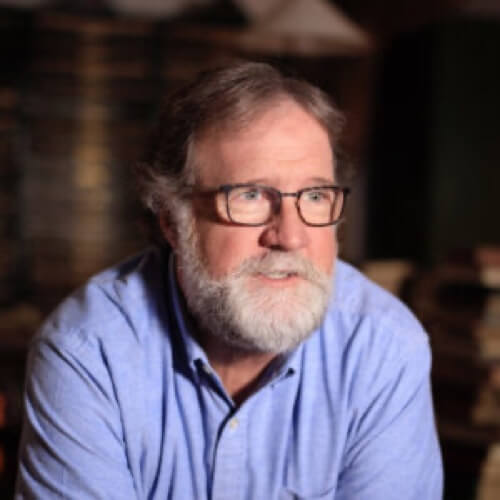

Sean B. Carroll, Head of Studio, HHMI Tangled Bank Studios
An internationally recognized biologist, award-winning author, and two-time Emmy-winning executive producer, Sean Carroll is Head of HHMI’s Tangled Bank Studios, whose mission is to bring great stories about science and scientists to broad audiences. Sean has served as executive producer on a wide variety of feature documentaries, IMAX, and short films. As leader of HHMI’s Department of Science Education, Carroll also oversees the largest portfolio of privately supported science education activities in the United States.
A frequent public speaker and prominent storyteller in print, film, and on radio, Carroll is the author of several books, including Remarkable Creatures which was a finalist for the 2009 National Book Award, and The Serengeti Rules, which was the basis for an Emmy-winning feature documentary.
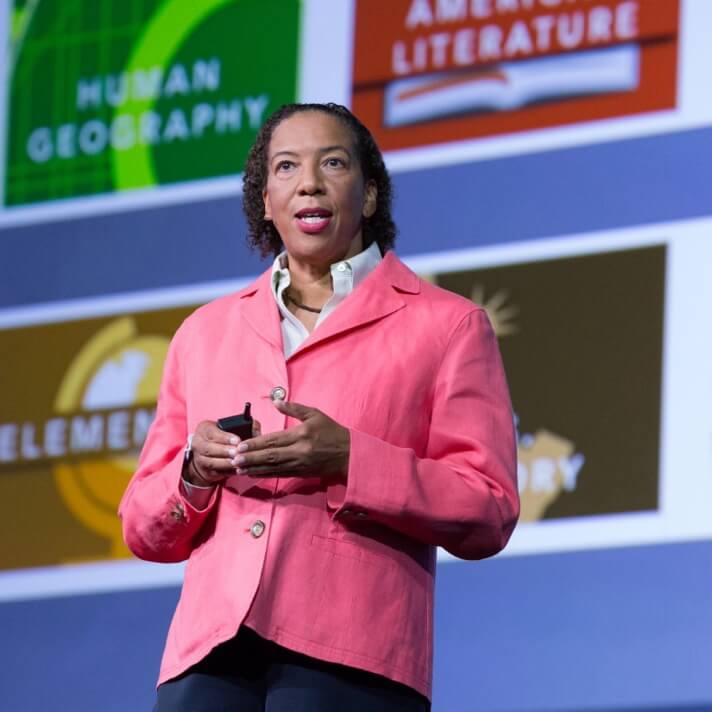




Dawn Wright, Chief Scientist, Esri, Board Member, E.O. Wilson Biodiversity Foundation
Dr. Dawn Wright is Chief Scientist of the Environmental Systems Research Institute (aka Esri), a world-leading geographic information system (GIS) software and data science company. The core of Esri’s mission is to inspire and enable people to positively impact their future by connecting them with the geoanalytic knowledge needed to make the critical decisions shaping the planet. Hence, Esri believes that geography is at the heart of a more resilient and sustainable future. As Chief Scientist, Dawn is responsible for strengthening the scientific foundation for Esri software and services while representing Esri to the international scientific community. She also serves on the Half-Earth Council and the E.O. Wilson Biodiversity Foundation Board of Directors and is still a Professor of Geography and Oceanography at Oregon State University where she has been on the faculty since 1995.
In the early 1990s, Dawn was the first female of African descent to dive to the ocean floor in the deep submersible Alvin. On July 12, 2022, she became the first person of any gender and of African descent to dive to Challenger Deep, the deepest point on Earth, and successfully operate a sidescan sonar at full-ocean depth. This was accomplished in the deep submersible Limiting Factor.
In April 2021, Dawn was elected to both the National Academy of Sciences and the American Academy of Arts and Sciences. She holds an Individual Interdisciplinary Ph.D. in Physical Geography and Marine Geology from UC Santa Barbara, an M.S. in Oceanography from Texas A&M, and a B.S. cum laude in Geology from Wheaton College (Illinois). Follow her on Twitter at @deepseadawn.
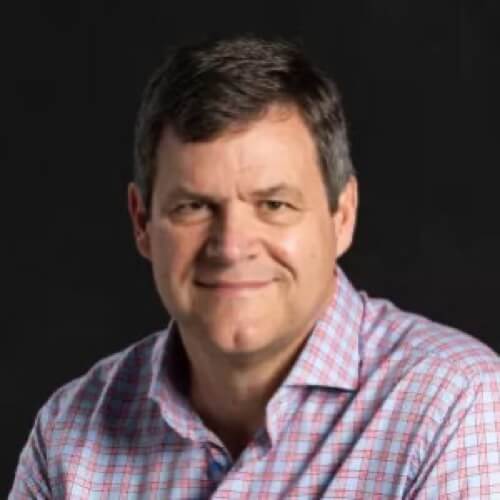

Kirk Johnson, Sant Director, Smithsonian National Museum of Natural History
Dr. Kirk Johnson is the Sant Director of the Smithsonian National Museum of Natural History, where he oversees the world’s largest natural history collection. The museum hosts nearly 5 million visitors each year. In 2018, its scientists published 586 scientific research papers and named 310 new species. In 2019, the museum opened The David H. Koch Hall of Fossils—Deep Time, an exhibition that interprets the history of life on Earth and its relevance to the future of humanity.
Before his arrival at the Smithsonian in 2012, Kirk was a paleontologist at the Denver Museum of Nature & Science, where he led expeditions in 18 states and 11 countries. His research focuses on fossil plants and the extinction of the dinosaurs. In 2011, he led an ice age excavation near Snowmass Village in Colorado that recovered parts of more than fifty mastodon skeletons. He is known for his scientific articles, popular books, museum exhibitions, documentaries, and collaborations with artists.
His recent documentaries include Making North America and The Great Yellowstone Thaw, both of which aired on PBS channels. He is the host of NOVA’s Polar Extremes, a documentary about the ancient climate of the Arctic and Antarctic, which premiered on February 5, 2020. His latest book, Cruisin’ the Fossil Coastline: The Travels of an Artist and a Scientist along the Shores of the Prehistoric Pacific explores the deep history of the West Coast from California to Alaska.
Kirk is originally from Bellevue, Washington, and has a bachelor’s degree from Amherst College, a master’s degree from the University of Pennsylvania, and a doctorate in geology and paleobotany from Yale University.
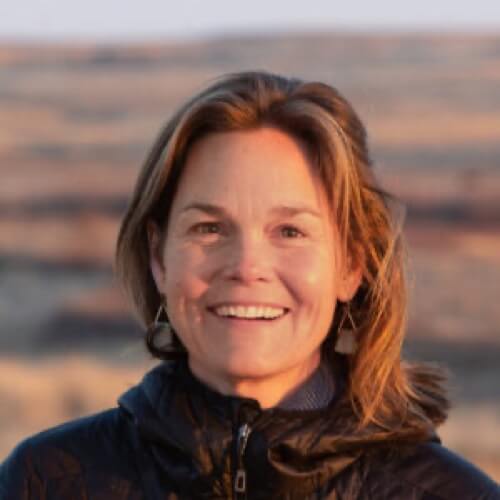

Alison Fox, CEO American Prairie
Alison is the CEO of American Prairie, a nonprofit with the vision of restoring and sharing with the public a fully functioning shortgrass prairie ecosystem in north-central Montana. With hundreds of thousands of acres already under the organization’s management, American Prairie works with scientists, biologists, neighboring landowners, and other collaborators to restore the full suite of biodiversity that comprises a grassland ecosystem, manages a conservation herd of bison, and provides thousands of visitors each year the opportunity to connect with nature on a truly grand scale.
Ms. Fox has led the organization as CEO since February 2018 and had various leadership and management roles with the organization since 2007, including communications, marketing and branding, institutional partnerships, and philanthropy. She holds an MBA from the McDonough School of Business at Georgetown University, where she focused on marketing and nonprofit management, and a BA in History from Dartmouth College. She is a member of the Big Sky Chapter of the Young Presidents Organization, Inc. (YPO) and the Advisory Board of William & Mary’s Institute for Integrative Conservation.
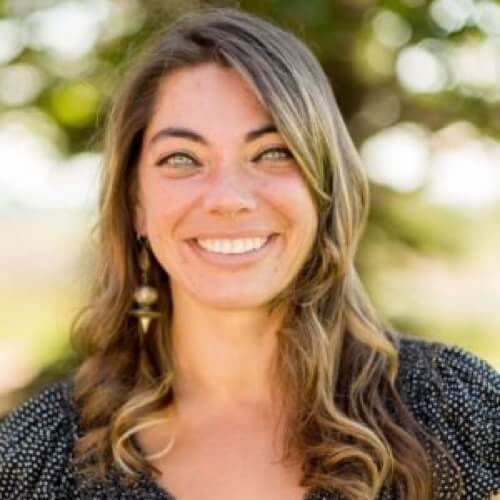

Heather Tallis, Assistant Director for Biodiversity and Conservation Science, The White House Office of Science and Technology Policy
Heather Tallis is the Assistant Director for Biodiversity and Conservation Sciences and the Acting Director of the National Nature Assessment in the White House Office of Science and Technology Policy. She has deep experience advancing science and policy that bridges nature, the economy, and health. She provides evidence-based input to the Biden-Harris Administration’s America the Beautiful effort, leads cross-agency action on nature-based solutions, and, with the US Global Change Research Program, established the National Nature Assessment. Through previous work with The Nature Conservancy and the Natural Capital Project, she has designed and informed conservation practices with local communities, Indigenous groups, governments, and companies around the globe. Heather is an avid explorer of forests, rivers, the ocean, and the Natural History Museum’s Hall of Geology, Gems, and Minerals! She also serves as Visiting Professor at the University of California, Berkeley’s School of Public Health.







Walter Jetz, Scientific Chair, E.O. Wilson Biodiversity Foundation, Professor, Yale University
Walter Jetz is a Professor of Ecology and Evolutionary Biology and Adjunct Professor in the School of Forestry and the Environment at Yale University. Dr. Jetz is Director of the Yale Center for Biodiversity and Global Change, which links scientists, students, and practitioners engaged in the environment, biological, informatics, policy, or health aspects and implications of global biodiversity change. He also leads the Map of Life, which consolidates global biodiversity distribution data sources into a single asset to provide the best possible species range information and species lists for any geographic area worldwide.
Dr. Jetz’ work addresses patterns and mechanisms of changing biodiversity distribution and the resulting implications on conservation and environmental management. His research combines remote sensing, phylogenetic, functional, and spatiotemporal biodiversity data with new modeling approaches and informatics tools. Dr. Jetz is particularly interested in how environmental, ecological, and macroevolutionary mechanisms combine to determine the co-occurrence of species and the structure of species assemblages.
In addition to his work at Yale, Dr. Jetz chairs the IPBES Task Group on Biodiversity Indicators and is Co-Lead of the GEO BON Working Group on Species Distributions. Dr. Jetz was previously a professor of biological sciences at the University of California San Diego.
Dr. Jetz earned his MSc in Integrative Bioscience and DPhil in Zoology from the University of Oxford.
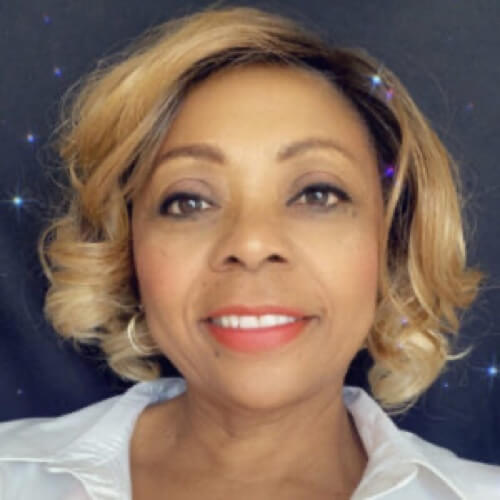

Mamie Parker, Trustee, Chesapeake Bay Foundation
An executive coach, facilitator, and inspirational public speaker, Mamie Parker is a retired fish and wildlife biologist who rose to the rank of Assistant Director for the United States Fish and Wildlife Service (USFWS) in Washington, DC. She made history when she was appointed the first African American USFWS Northeast Regional Director in the Senior Executive Service. She also served as Chief of Staff and Chief of Fisheries. Mamie has vast experience in water resources planning, the National Environmental Policy Act (NEPA), the Clean Water Act, wetland protection, and restoration.
As the USFWS Assistant Director, she served as the facilitator at the White House Conference on the Environment. Dr. Parker played a major role in implementing the Coastal Barrier Resources Act system mapping and flood insurance, the Coastal Program, and protecting our nation’s waters from pollutants and invasive species, such as listing the snakehead fish as an injurious wildlife species. She helped create the National Fish Habitat Action Plan in partnership, for which the President of the United States presented her with the Presidential Rank Award, the highest award given to government employees. She also received the Department of Interior’s Silver Award, presented by the Secretary of the USFWS.
Dr. Parker is a leader in various organizations and serves on the Board of Directors of the Chesapeake Bay Foundation, the Virginia Chapter of The Nature Conservancy, Duke University School of the Environment Visitors Board, Northland College, Student Conservation Association, the National Wildlife Refuge Association, Brown Advisory Sustainable Investment, Marstel-Day Consulting Company, Defenders of Wildlife, the Potomac Conservancy, and the Chesapeake Conservancy.
The Governor of Virginia recently appointed her to the Board of Directors of the Game and Inland Fisheries. The Council of World Women Leaders awarded her with an Aspen Institute Fellowship where she worked in the Kingdom of Lesotho and in Cape Town and Johannesburg, South Africa. She is a 2018 winner of the prestigious William K. Reilly Award from the American University School of Public Affairs’ Center for Environmental Policy and a 2015 Champion of the Chesapeake from the Chesapeake Conservancy. Born and raised in Arkansas, she was inducted into the Arkansas Outdoor Hall of Fame by the Governor.
Dr. Parker holds a Bachelor of Science in biology from the University of Arkansas at Pine Bluff (UAPB), a Master of Science in fish and wildlife kate management, and a doctoral degree in limnology from the University of Wisconsin. She also received executive leadership training at Harvard’s John F. Kennedy School of Government at Harvard University. When she is not working, Mamie enjoys watching movies, hiking, and mentoring young ladies.
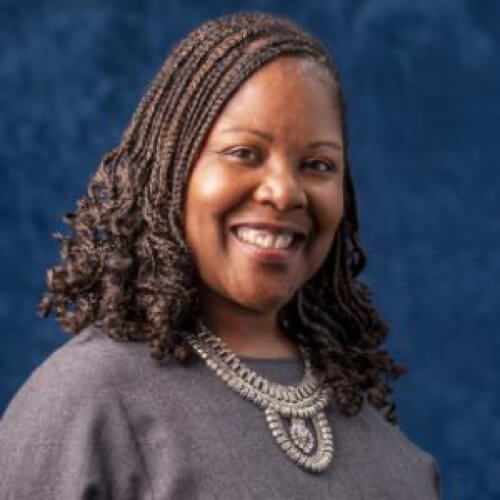

Melanie A. Adams, Director, Smithsonian Anacostia Community Museum
Melanie A. Adams is the director of the Smithsonian’s Anacostia Community Museum. With more than 25 years of community engagement experience in museums and higher education, she is dedicated to bringing stakeholders together to address relevant community issues.
Previously, beginning in 2016, Adams served as deputy director for learning initiatives at the Minnesota Historical Society. She led efforts at the society to develop strategic partnerships, audiences, and resources within local communities. As deputy director, she managed 26 historic sites and museums throughout Minnesota. During her tenure, she created the community outreach department to provide partnerships and programs outside the museum walls.
Adams was the managing director of the Missouri Historical Society for 11 years (2005–2016), where she oversaw more than 700 St. Louis community programs annually, including events with more than 100 community partners. Her work focused on addressing the cultural and social concerns of the St. Louis community.
Adams was president of the Association of Midwest Museums from 2014 to 2016, and she currently serves on the council of the American Association for State and Local History. As a facilitator of workshops on topics related to museums and race, she helps professionals understand barriers to connecting with diverse audiences.
Her past work has focused on racial inequality in education. Appointed by the St. Louis mayor in 2007 to the Special Administrative Board of St. Louis Public Schools, she worked for nine years with students, staff, and the public to help the district regain accreditation. Adams has received numerous accolades for her community work; she was named a St. Louis NAACP 100 Community Leader in 2009 and the Royal Vagabonds Foundation Extraordinary St. Louis Trailblazer in 2014.
Adams holds a bachelor’s degree in English/African-American studies from the University of Virginia, a master’s degree in education from the University of Vermont, and a doctorate from the University of Missouri St. Louis, in educational leadership and policy studies.
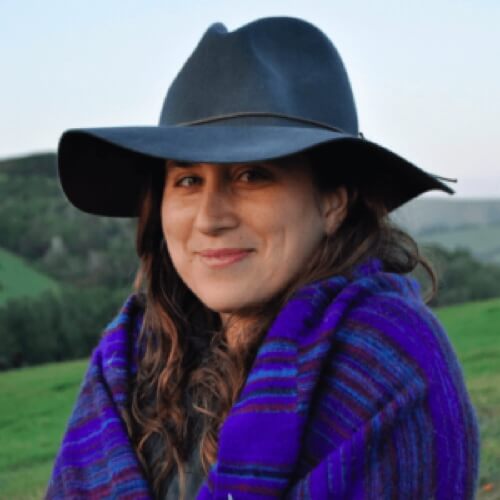

Alyssa Ravasio, Founder and CEO, Hipcamp
Alyssa Ravasio is the founder and CEO of Hipcamp, a global online platform that brings the sharing economy to one of the planet’s most plentiful resources—land. Built on the belief that getting outside should be simple, Hipcamp partners with private landowners across the United States, Canada, Australia, and the United Kingdom to create new spaces for recreation, increasing access to the outdoors while providing sustainable revenue to protect nature. To date, Hipcamp has unlocked access to more than 4 million acres of private land and helped people enjoy more than 6 million nights under the stars.
Alyssa has received industry recognition for her achievements. She has served on the Outdoor Industry Association’s Recreation Advisory Council, and in 2022, she was recognized by Outside Business Journal as one of the 20 most influential people in the outdoor industry.
Alyssa earned her bachelor’s degree in Digital Democracy and Complexity Science from the University of California, Los Angeles. She lives in the wilds of Marin County with her husband and young son, and one of her deepest passions is shaping how the internet impacts our humanity and our planet.
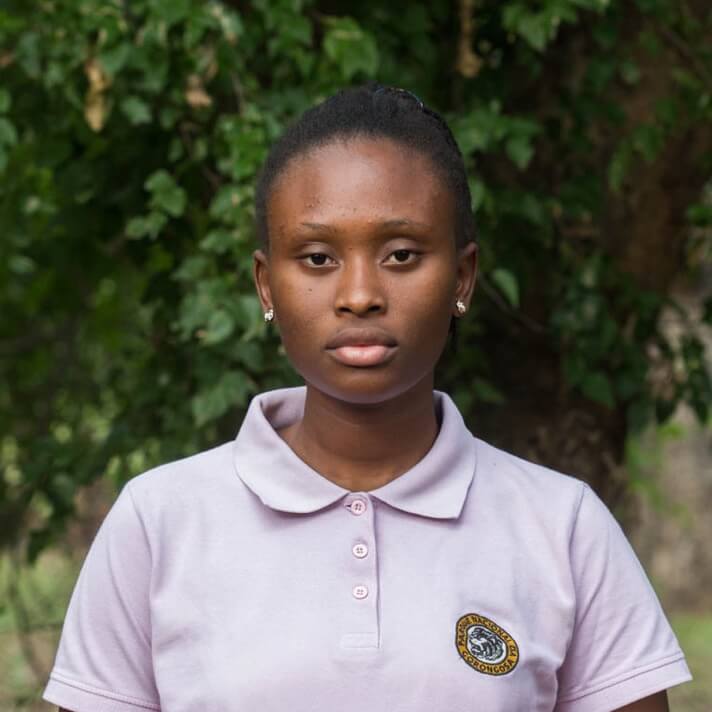


Norina Vicente, Half-Earth Project Chairs and Scholars
Norina Vicente was born in Tete Province, Mozambique. She is an Entomologist in training and a photographer. She earned her B.Sc. degree in Ecotourism, Wildlife, and Management from Instituto Superior Politécnico de Manica (Manica province).
She is a Half-Earth Scholar and an associate Research Scientist at Gorongosa National Park. Currently, she is pursuing a master’s program at San Francisco State University in Integrative Biology. Her interest involves understanding the Evolutionary, Ecology, and Conservation Biology of insects, particularly ants.
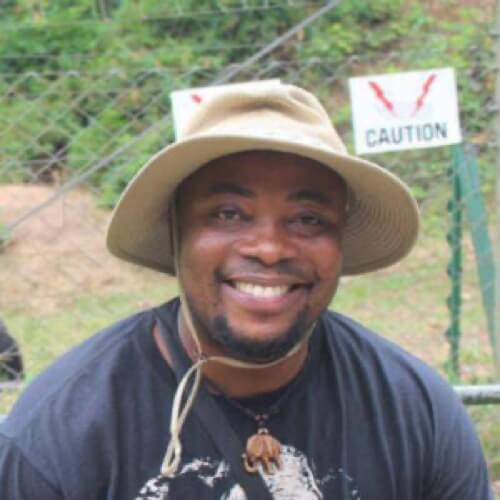

Adams Cassinga, National Geographic Explorer, Founding Director, Conserv Congo
Adams Cassinga is a wildlife criminal investigator, wildlife activist, civic leader, and public speaker from the Democratic Republic of Congo, Africa. After running a successful mining consulting business for years, he decided to dedicate his life to protecting Congolese biodiversity.
A DRC honorary ranger, he is currently the founder and CEO of Conserv Congo, a nature conservation-aligned NGO that fights poaching and wildlife trafficking and environmental conservation through education in the Congo.
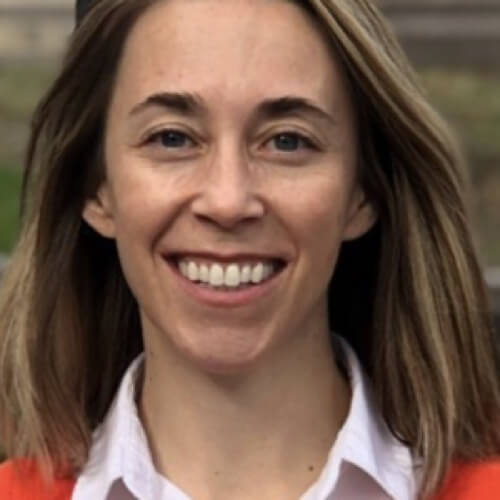

Kate Kelly, Deputy Chief of Staff – Policy, U.S. Department of the Interior
Kate Kelly most recently was the Public Lands Director at the Center for American Progress. During the Obama administration, Kate served as senior advisor to then-Secretary of the Interior Sally Jewell and also served as communications director on behalf of Secretary Jewell and former Secretary of the Interior Ken Salazar. Prior to joining the Interior Department, Kate worked in the U.S. Senate. Kate received her bachelor’s degree from Washington University in St. Louis and hails from Colorado.
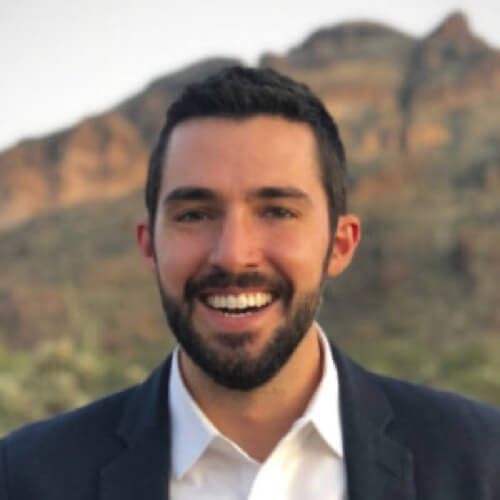

Alex Killion, Managing Director, Yale Center for Biodiversity and Global Change
Alex Killion, PhD, is the Managing Director of the Center for Biodiversity and Global Change at Yale University where he oversees several data-driven biodiversity initiatives. Alexander has over a decade of experience deploying geospatial platforms for biodiversity conservation and leading transdisciplinary research. He builds effective teams and fosters collaboration across sectors to develop and deploy actionable scientific products on a global scale.
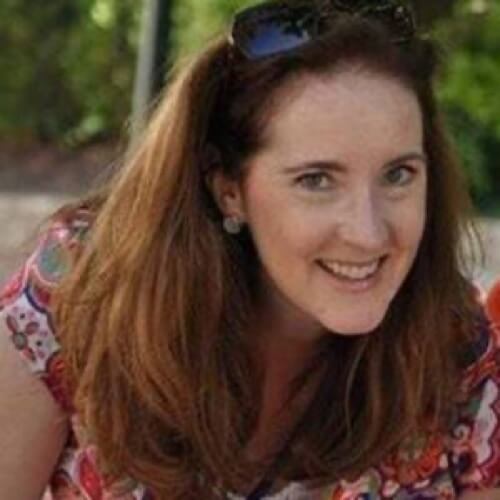

Kameran Onley, Director of North American Policy and Government Relations, The Nature Conservancy
Kameran Onley is Director of North American Policy and Government Relations for The Nature Conservancy. Prior to joining the Nature Conservancy, she served as Associate Vice President with PBS&J, Inc., an environmental engineering firm focused on large-scale ecosystem restoration. Most notably, Onley held the position of acting Assistant Secretary for Water and Science at Department of the Interior, during the George W. Bush Administration, where she provided policy development, management, and oversight to the projects and programs of the Bureau of Reclamation and the U.S. Geological Survey. She also served as the principal advisor to the Interior Department Secretary and Deputy Secretary on significant environmental policy issues, such as Everglades’s restoration, western water issues, and ocean and coastal matters. Onley also served as Associate Director for Environmental Policy at the White House Council on Environmental Quality. She received a B.S. in Economics from Seattle University and a Masters in Agricultural Economics from Clemson University.





Sean Breyer, Program Manager, ArcGIS Living Atlas of the World, Esri
Sean Breyer is Esri’s Program Manager for ArcGIS Living Atlas of the World. As such, he oversees the world’s foremost collection of global geographic information and services, including maps, map layers, services, and apps for location analysis. Since joining Esri in 2011, Sean has helped federal, state, and private entities develop geospatial technology strategies as they plan new projects, manage risk, and develop data-driven solutions to some of the world’s most challenging issues. Before coming to Esri, Sean worked at Rand McNallyf as Director of Data Services. His other roles have included Director of GIS at the South Carolina Department of Commerce and as Lead GIS and Database Manager at Sandia National Laboratories Environmental Restoration Program.
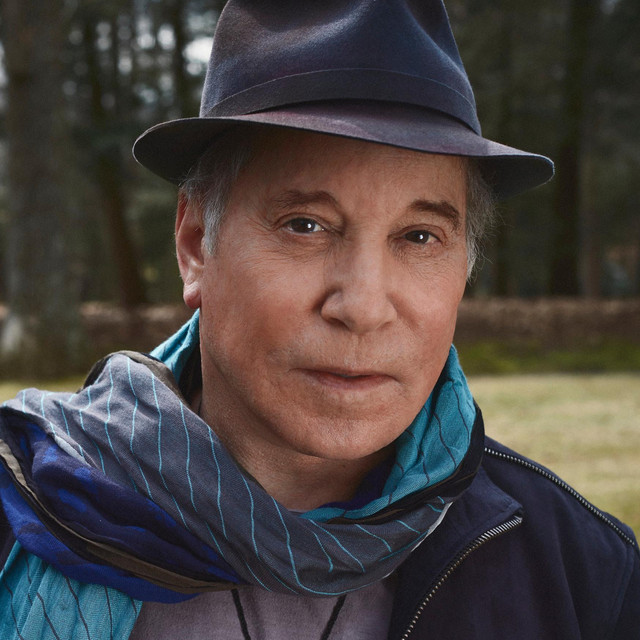




Paul Simon, Legendary Recording Artist
In June 2017, net proceeds from Paul Simon’s month-long U.S. tour were donated to benefit the Half-Earth Project, an initiative of the E.O. Wilson Biodiversity Foundation, which is committed to stopping the species extinction crisis by conserving half the planet’s lands and oceans. Paul Simon is a member of the Half-Earth Council and a member of the Board of Directors of the E.O. Wilson Biodiversity Foundation.
During his distinguished career, Paul Simon has been the recipient of many honors and awards, including 16 Grammy Awards. In 2003, he received a Grammy Lifetime Achievement Award for his work as half of the duo Simon & Garfunkel. Simon is a member of the Songwriters Hall of Fame and has been inducted into the Rock ‘n’ Roll Hall of Fame both as a member of Simon & Garfunkel and as a solo artist. Simon was a recipient of the Kennedy Center Honors in 2002 and was named one of Time magazine’s “100 People Who Shape Our World” in 2006. In 2007, Simon was awarded the inaugural Library of Congress Gershwin Prize for Popular Song, which recognizes the profound and positive effect of popular music on the world’s culture. He was elected to the American Academy of Arts and Sciences in 2011. In 2012, he was named the recipient of the prestigious Polar Music Prize along with Yo-Yo Ma. Simon’s philanthropic work includes the co-founding of the Children’s Health Fund (CHF), which donates and staffs 53 mobile medical units that bring health care to low-income children and their families in urban and rural locations around the United States. Since its inception in 1987, CHF has provided more than 3 million doctor/patient visits. Over his career, Simon has also raised millions of dollars for worthy causes as varied as Autism Speaks, The Nature Conservancy, CURE, and Tibet House.
Half-Earth Day 2021
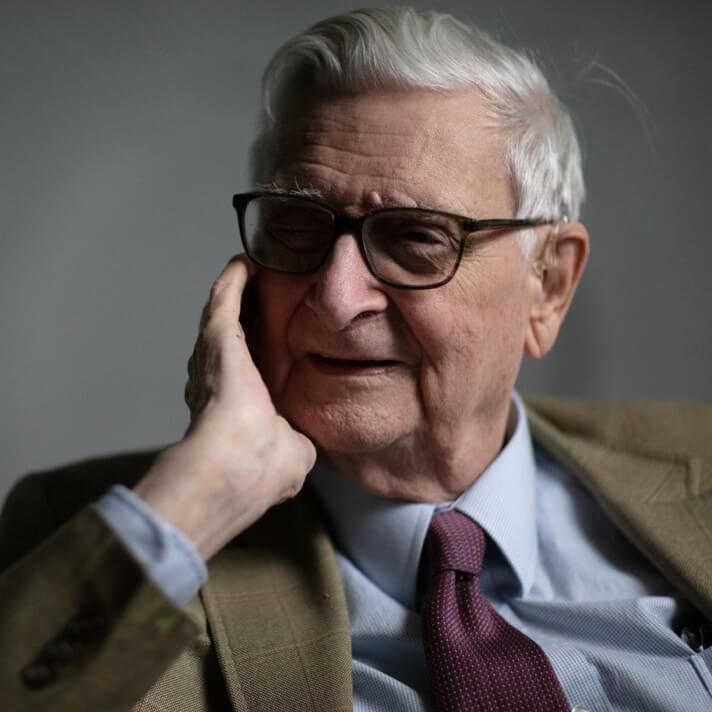





E.O. Wilson, Biologist and Naturalist
Edward O. Wilson is currently Honorary Curator in Entomology and University Research Professor Emeritus at Harvard University, Chairman of the E.O. Wilson Biodiversity Foundation Board of Advisors, and Chairman of the Half-Earth Council. He is generally recognized as one of the leading scientists in the world. He is also recognized as one of the foremost naturalists in both science and literature, as well as a synthesizer in works stretching from pure biology across to the social sciences and humanities. Wilson is acknowledged as the creator of two scientific disciplines (island biogeography and sociobiology), three unifying concepts for science and the humanities jointly (biophilia, biodiversity studies, and consilience), and two major advances in global biodiversity conservation (the Encyclopedia of Life and Half-Earth).
Among more than one hundred awards he has received worldwide are the U.S. National Medal of Science, the Crafoord Prize (equivalent of the Nobel, for ecology) of the Royal Swedish Academy of Sciences, and the International Prize of Biology of Japan; and in letters, two Pulitzer Prizes in non-fiction, the Nonino and Serono Prizes of Italy and COSMOS Prize of Japan. For his work in conservation, he has received the Gold Medal of the Worldwide Fund for Nature and the Audubon Medal of the Audubon Society. The authorized biography of E.O. Wilson, “SCIENTIST, Edward O. Wilson: A Life in Nature” by Richard Rhodes, is forthcoming in 2021 by Doubleday.
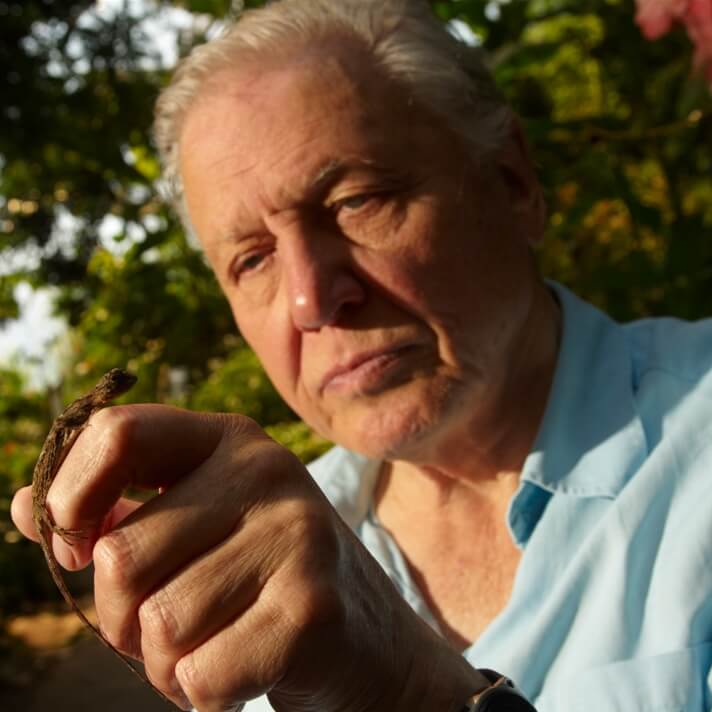

Sir David Attenborough, Broadcaster and Natural Historian, Former Senior Manager, BBC
Sir David Attenborough is a former senior manager at the BBC, having served as controller of BBC Two and director of programming for BBC Television in the 1960s and 1970s. His filmography as writer, presenter and narrator spans eight decades; it includes Zoo Quest, Natural World, Wildlife on One, the Planet Earth franchise, The Blue Planet and its sequel. He is the only person to have won BAFTAs for programs in black and white, color, high-definition, 3D and 4K resolutions.
While Sir David’s earlier work focused more on the wonders of the natural world, his later work has been more vocal in support of environmental causes. He has advocated for restoring planetary biodiversity, limiting population growth, renewable energy, reducing meat consumption, and setting aside more areas for natural preservation.
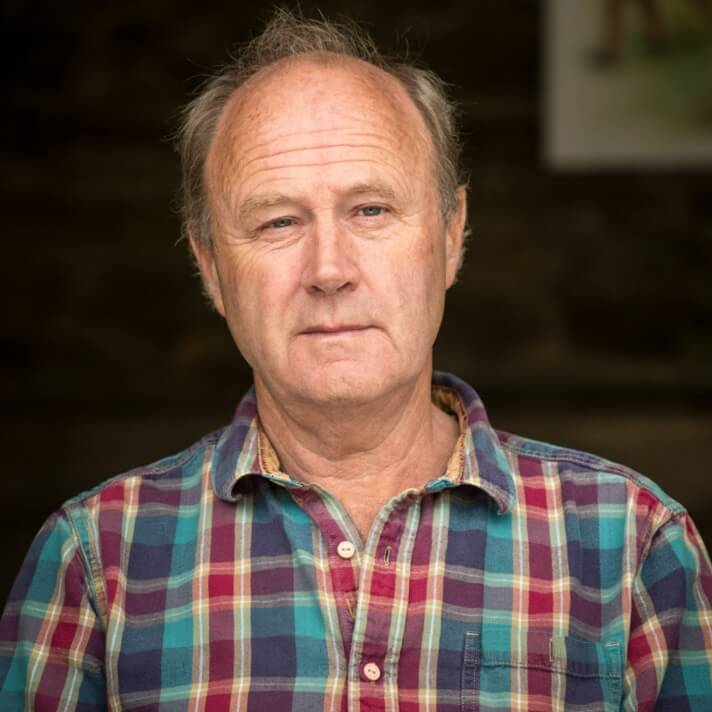

Sir Tim Smit, Co-Founder, Eden Project, Executive Vice Chair, Eden Project Ltd, Executive Chairman, Eden Project International Ltd
Sir Tim Smit is Co-founder of the Eden Project, Executive Vice Chair of Eden Project Ltd and Executive Chairman of Eden Project International Ltd. He was born in Holland on 25 September 1954. He read Archaeology and Anthropology at Durham University. Tim worked for ten years in the music industry as composer/producer in both rock music and opera. In 1987 Tim moved to Cornwall where he and John Nelson together ‘discovered’ and then restored the Lost Gardens of Heligan. Tim remains a Director of the gardens to the present day. The Eden Project began as a dream in 1995 and opened its doors to the public in 2000 when more than 22 million people came to see what was once a sterile pit turned into a cradle of life containing world-class horticulture and startling architecture symbolic of human endeavor.
Tim is a Trustee, Patron and Board Member of a number of statutory and voluntary bodies both locally and nationally. He has received a variety of national awards including The Royal Society of Arts Albert Medal (2003). In 2002 he was awarded an Honorary CBE in the New Years Honours List and in June 2012 he was appointed Knight Commander of the Most Excellent Order of the British Empire (KBE) by Her Majesty the Queen. He has received Honorary Doctorates and Fellowships from a number of Universities. Tim is also Executive Chairman for Eden Project International which aims to have an Eden Project on every habited continent by 2025.
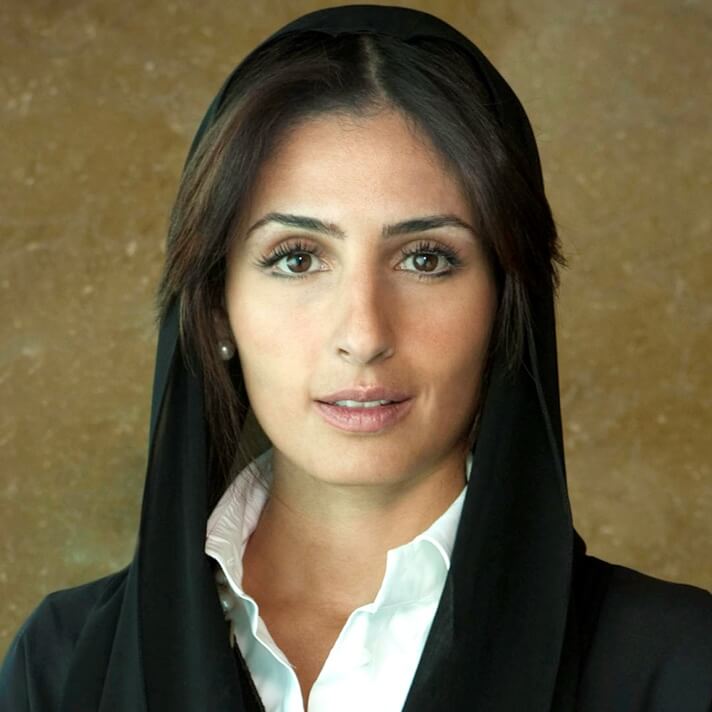

Razan Al Mubarak, President, International Union of Conservation of Nature
Razan Al Mubarak is President of the International Union for Conservation of Nature (IUCN), one of the world’s largest and best-known conservation institutions.
She is the first woman from the Arab world to head IUCN and only the second woman to lead the 73-year-old conservation organization composed of 1,400 government bodies and NGOs. The group is perhaps best known for its Red List of Threatened Species, which helps set conservation priorities worldwide. Razan is also the Managing Director of both the Environment Agency – Abu Dhabi and the Mohamed bin Zayed Species Conservation Fund.
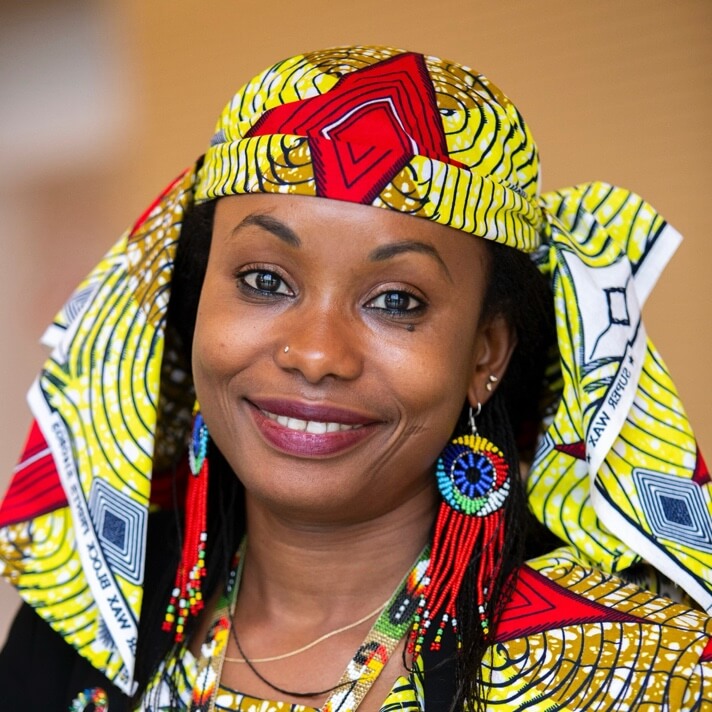

Hindou Oumarou Ibrahim, Coordinator, Peul Indigenous Women and Peoples Association of Chad, Co-Chair of the International Indigenous Peoples Forum on Climate Change, Member of the Executive Committee of the Indigenous Peoples of Africa Coordinating Committee (IPACC)
Hindou Oumarou Ibrahim (pronounced HIN-du U-ma-ru EE-bra-heem) is an indigenous woman from the Mbororo (BO-rorow) pastoralist community in Chad and an expert in adaptation and mitigation of indigenous peoples and women in relation to climate change, traditional knowledge, and the adaptation of pastoralists in Africa. She is a coordinator of the Peul Indigenous Women and Peoples Association of Chad, a co-chair of the International Indigenous Peoples Forum on Climate Change, and a member of the executive committee of the Indigenous Peoples of Africa Coordinating Committee (IPACC).
Hindou is also CSO panel member of the United Nations Convention to Combat Desertification, a policy board member of the United Nations Indigenous Peoples Partnership, a member of Reseau Climat & Development and REDD+ RPP Chad national committees, and a co-chair of the Pan-African Alliance Climate Justice. She has organized several international workshops in Chad focused on both science and traditional knowledge, and recently conducted a 3D participatory mapping project with UNESCO, IPACC, CTA, CI, and the government of Chad. She also successfully organized indigenous peoples to negotiate at the Paris Agreement for climate change. She works in French, English, Arabic, and her mother tongue, Fulfulde.
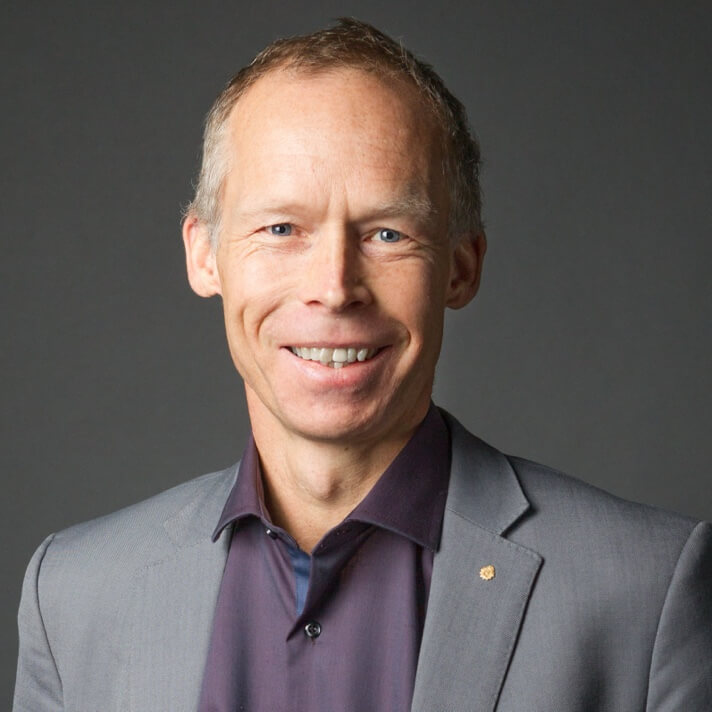

Johan Rockström, Director, Potsdam Institute for Climate Impact Research, Professor in Earth System Science, University of Potsdam
Johan Rockström is Director of the Potsdam Institute for Climate Impact Research and Professor in Earth System Science at the University of Potsdam. He is an internationally recognized scientist on global sustainability issues and led the development of the Planetary Boundaries framework for human development in the current era of rapid global change. Professor Rockström is a leading scientist on global water resources, with more than 25 years experience in applied water research in tropical regions, and more than 150 research publications in fields ranging from applied land and water management to global sustainability.
Johan is a member of European Commission expert group: Mission Board for adaptation to climate change including societal transformation, chair of the Earth Commission, Chief Scientist of Conservation International, and elected member of the German Academy of Sciences Leopoldina.








Paula J. Ehrlich, President and CEO, E.O. Wilson Biodiversity Foundation, Co-Founder, Half-Earth Project
Paula J. Ehrlich is President & CEO of the E.O. Wilson Biodiversity Foundation, whose purpose is to inspire informed collective action to save the biosphere. Dr. Ehrlich pioneers innovative approaches, leads strategic activities, and fosters collaborations that encourage a knowing stewardship of our world and inform worldwide protection of biodiversity.
Dr. Ehrlich is Co-Founder of the Half-Earth Project, the leading voice for E.O. Wilson’s Half-Earth call to protect half the land and sea in order to safeguard the bulk of biodiversity. Dr. Ehrlich has led the development of the Half-Earth Project Map, raising over $20M in support of this research endeavor to provide a global, spatially explicit, and taxonomically comprehensive high-resolution map of species distributions for use in conservation planning and public engagement with the goal of Half-Earth.
Dr. Ehrlich has over 30 years of strategic scientific management and research expertise, and diverse academic, non-profit, and corporate leadership experience. As CEO of the non-profit Drug Discovery Center of Innovation, she fostered strategic innovation in early drug development for unmet medical needs. A keen adventurer and explorer, Paula is an avid hiker, and has summited Mt Rainier. She has taught and done research as an equine orthopedic surgeon at universities in three countries, and has worked as a veterinarian to empower and support women’s cooperatives in Southern Sudan.
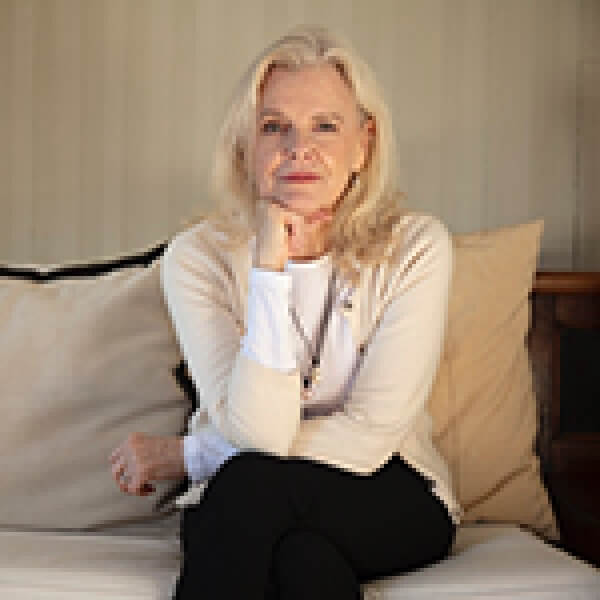


Kristine Tompkins, Co-Founder and President, Tompkins Conservation, UN Patron of Protected Areas
Kristine McDivitt Tompkins is the president and co-founder of Tompkins Conservation, an American conservationist, and former CEO of Patagonia, Inc. For nearly 30 years, she has committed her career to protecting and restoring wild beauty and biodiversity by creating national parks, restoring wildlife, inspiring activism, and fostering economic vitality as a result of conservation. As the president of Tompkins Conservation, Kristine Tompkins oversees a multitude of projects rewilding the Americas. Having protected approximately 14.7 million acres of parklands in Chile and Argentina through Tompkins Conservation and its partners, Kristine and Douglas Tompkins, her late husband, are considered some of the most successful national park-oriented philanthropists in history. Kristine Tompkins serves in various positions of global leadership in conservation, including as Chair of National Geographic Society’s Last Wild Places campaign. She was the first conservationist to be awarded the Carnegie Medal of Philanthropy. In 2018 she was named the United Nations’ Global Patron for Protected Areas. Her 2020 TED Talk, “Let’s Make the World Wild Again,” has millions of views.
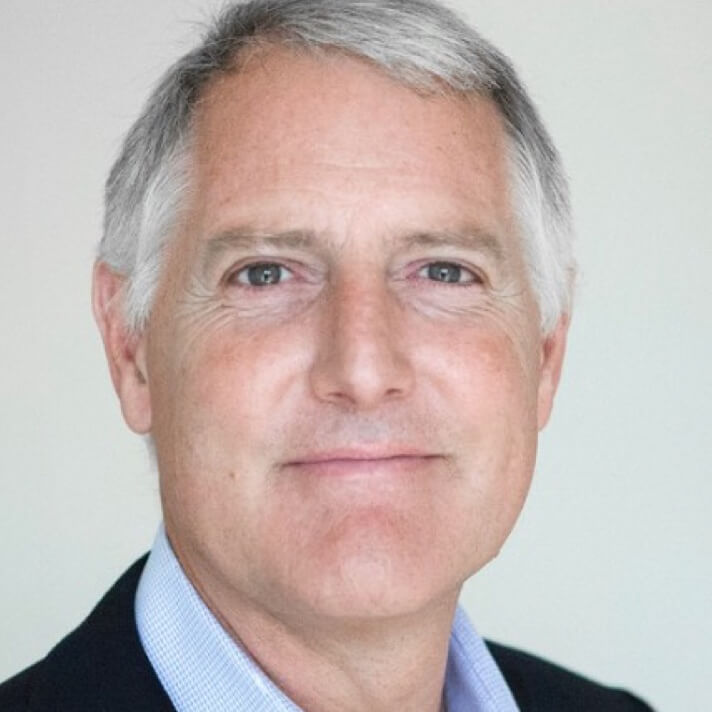

Keith Tuffley, Managing Director & Vice Chairman, Global Co-Head, Sustainability & Corporate Transitions, Citi
Keith is the Global Co-Head of Citi’s Sustainability & Corporate Transitions Group. In this role, Keith leads Citi’s sustainability engagement with its corporate clients, supporting them with strategic and M&A advice, financing and capital markets solutions, and investor engagement, as they transition their businesses towards more sustainable models.
Prior to Citi, Keith was the CEO of The B Team, an NGO comprised of a group of 24 CEO’s of global companies, leading entrepreneurs, and civil society leaders to drive a better way of doing business. Keith was an active participant in the Paris Climate Agreement process and the launch of the UN Sustainable Development Goals (SDGs), and led the creation of the first “net-zero companies” in 2015. He was a Founding Board Member of the We Mean Business climate coalition.
Keith was the Head of Investment Banking, a Partner, and Board Member of Goldman Sachs in Australia. He co-led the negotiations for the successful merger of Goldman Sachs Australia and JB Were, and then led the merged Investment Banking business as it grew to a top 3 position in the Australasian market. Prior to joining Goldman Sachs, he was a Managing Director at UBS in Australia. Keith commenced his career as a commercial lawyer for Allen Allen & Hemsley.
Keith is the Founder of impact investing company, NEUW Ventures SA; Chairman of the Global Footprint Network (National Footprint Accounts and Earth Overshoot Day); a Director of the EO Wilson Biodiversity Foundation (Half-Earth Project); a Governor of WWF Australia; a Global Ambassador for the Wilderness Foundation Global; a Senior Advisor to WILD11; and a member of the Rewilding Europe Circle.
He holds the following qualifications: Bachelor of Economics; Master of Laws (Sydney University); Advanced Management Program (INSEAD); Master of Studies in Sustainability Leadership (Cambridge University, UK).
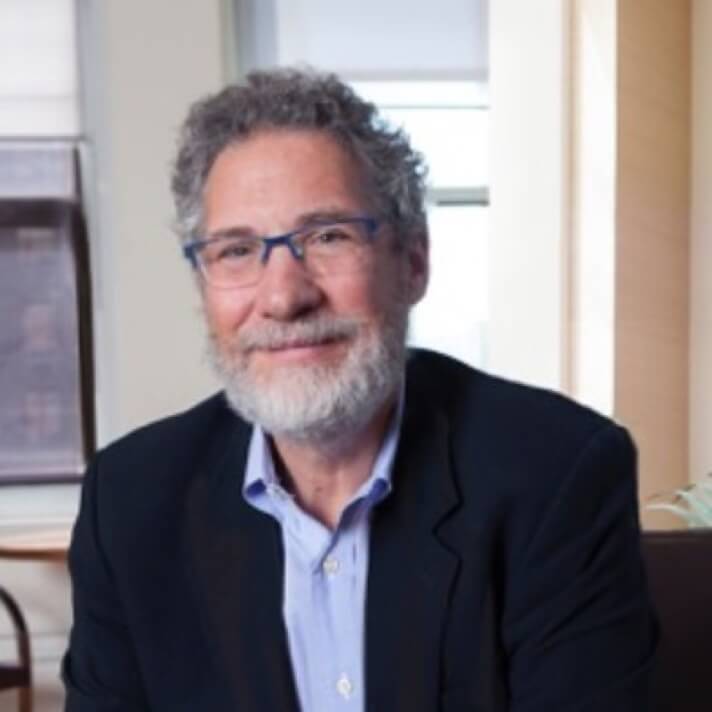

Jonathan F.P. Rose, Founder, Jonathan Rose Companies LLC, Co-Founder, Garrison Institute
Jonathan F.P. Rose’s business, public policy, teaching, research, writing and not-for-profit work focuses on creating more environmentally, socially, and economically resilient cities. In 1989, Mr. Rose founded Jonathan Rose Companies LLC, a multidisciplinary real estate development and investment firm, to address the challenges of the poor distribution of opportunity through the development of affordable and mixed-income housing. Mr. Rose also advises global cities on planning, affordable housing, environmental, and social issues. Mr. Rose’s book on how to create resilient cities, The Well-Tempered City: What Modern Science, Ancient Civilizations and Human Nature Teach Us About the Future of Urban Life, was published by Harper Wave in 2016, and won the 2017 PROSE Award for Outstanding Scholarly Work by a Trade Publisher. Mr. Rose is a Trustee of Enterprise Community Partners.
He and his wife Diana Calthorpe Rose are the co-founders of the Garrison Institute and he serves as Chair on its Board and leads its Pathways to Planetary Health program. He graduated from Yale University in 1974 with a B.A. in Psychology and Philosophy, and received a Master’s in Regional Planning from the University of Pennsylvania in 1980.
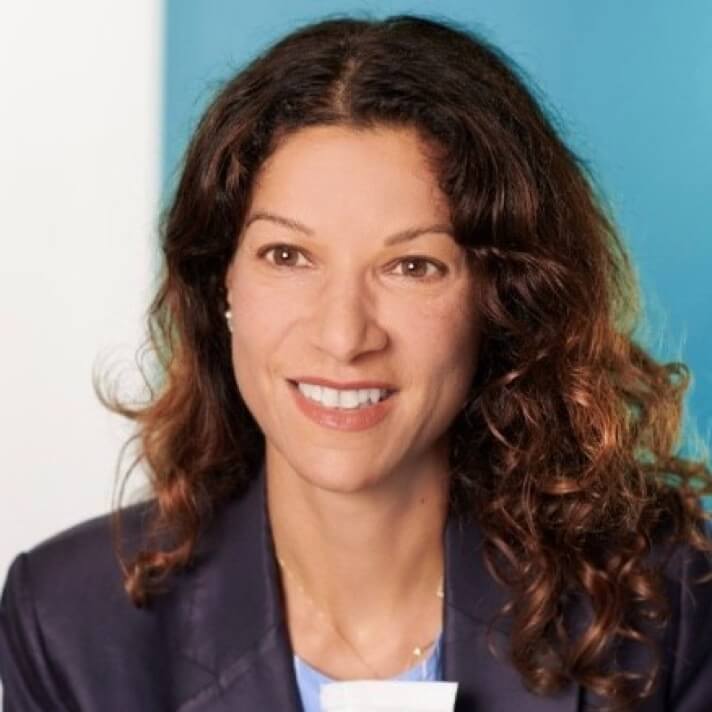

Anita McBain, Managing Director, Head of EMEA ESG Research, Citi
Anita McBain is Managing Director, Head of EMEA ESG Research at Citi. Prior to joining M&G, she held a variety of roles in buy-side and sell-side firms in the climate change and sustainability sectors as well as in fixed income research. She has lived and worked in Singapore, is a graduate of City University of London, holds an MBA from the University of Edinburgh, and has completed postgraduate studies in Sustainability at the University of Cambridge.
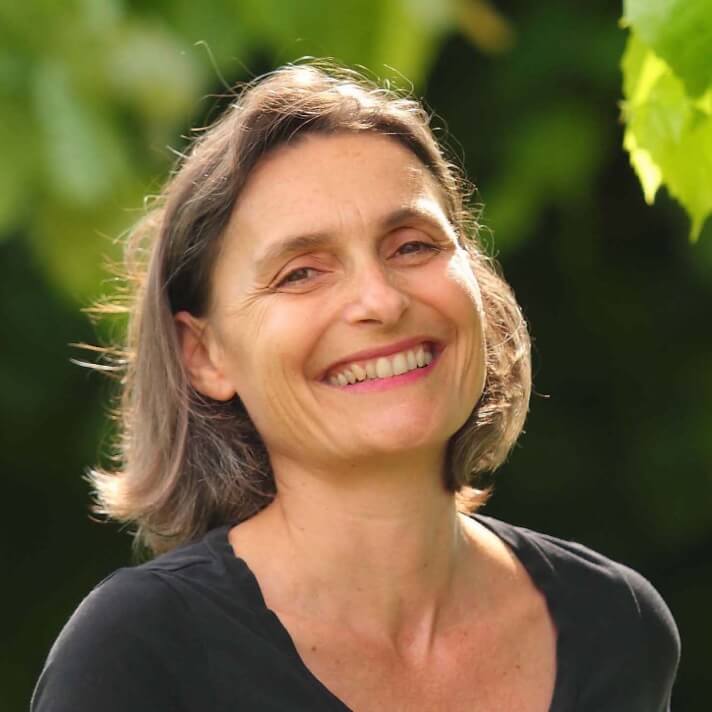

Delphine Malleret King, Director, The Long Run, UK
Dr. Delphine Malleret King is Director of The Long Run, a membership organization that supports a global network of tourism-based Privately Protected Areas (PPAs). It supports, connects, and inspires members to operate according to a holistic balance of The 4Cs — Conservation, Community, Culture, and Commerce, and delivers the leading Global Ecosphere Retreats® standard. Delphine studied Development Economics in France, and then carried out her postgraduate studies in marine conservation. She has worked for more than 20 years at the interface of government, community, and privately protected areas globally. Prior to joining the Long Run in 2014, she co-ran the Laikipia Wildlife Forum (Kenya) protecting the integrity of the Ewaso Ecosystem and supporting social and economic development.
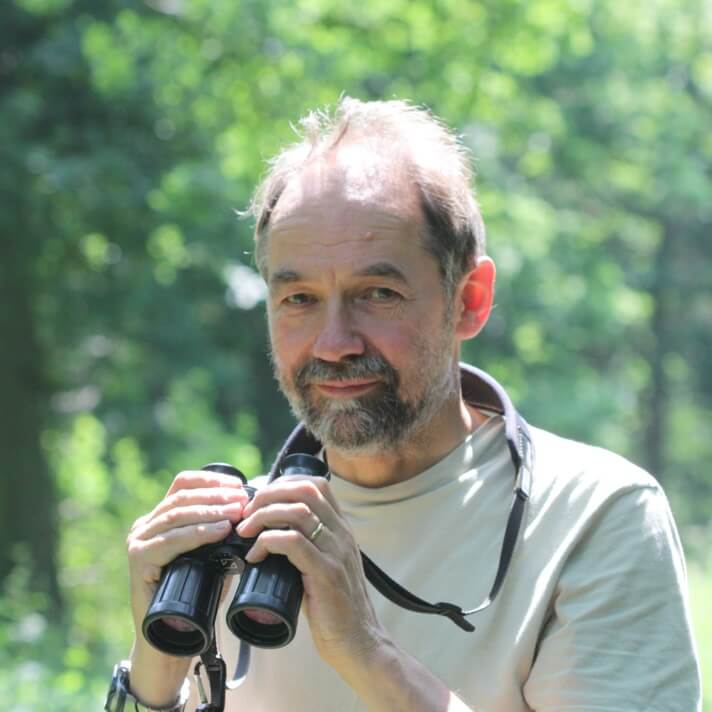

Bill Sutherland, Miriam Rothschild Chair in Conservation Biology, University of Cambridge, Professorial Fellow, St Catharine’s College
William Sutherland holds the Miriam Rothschild Chair in Conservation Biology at the University of Cambridge and is a Professorial Fellow in St Catharine’s College. Much of his original research was on applying ecological models to answer applied problems but over the last fifteen years he has focussed on improving the effectiveness of conservation practice especially though embedding evidence in policy and practice. With over a thousand collaborators the Conservation Evidence team have read 1.5 million paper titles in seventeen languages and reviewed the evidence for the effectiveness of 3155 conservation actions. He was part of a team that established the Cambridge Conservation Initiative comprising the University and nine conservation organisations now located in The David Attenborough Building in Cambridge where it provides space for 550 conservationists. He was president of the British Ecological Society, is a highly cited researcher, has written over 500 papers, is an author of six books and edited another nine. He was made a CBE in 2021 for Services to evidence-based conservation.
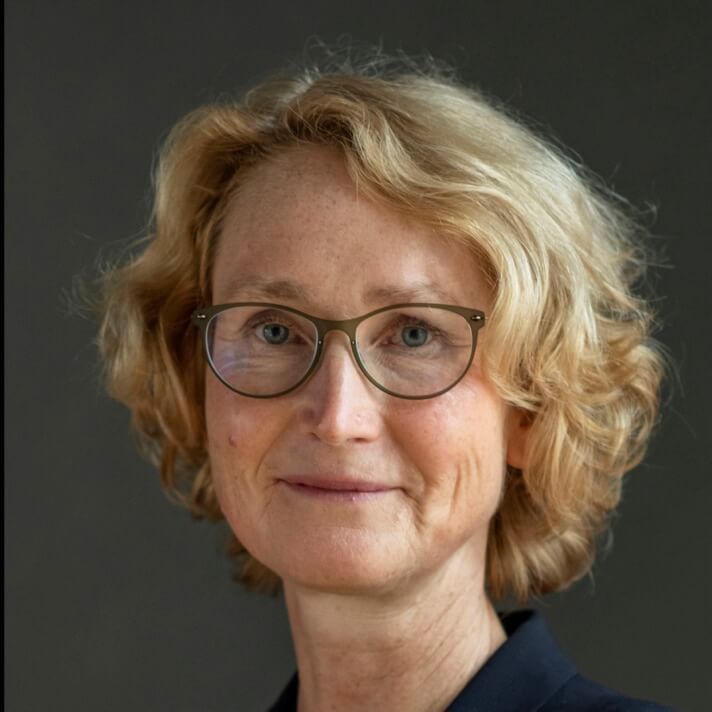

Katrin Böhning-Gaese, Director, Senckenberg Biodiversity and Climate Research Centre, Professor at Goethe University Frankfurt
Katrin Böhning-Gaese is director of the Senckenberg Biodiversity and Climate Research Centre, professor at Goethe University Frankfurt, and member of the directorate of Senckenberg. She is a member of the German Academy of Sciences Leopoldina, the “Akademie der Wissenschaften und Literatur Mainz”, and vice-president of the Leibniz Association.
Her research focuses on macroecology, community ecology, and social-ecological systems. She is interested in the influence of global change on animal communities, the relationships between animal communities, ecosystem functions and ecosystem services, and the relationships between biodiversity and human well-being in social-ecological systems. She has published more than 200 publications, including several well-cited publications in Nature, Science, and PNAS.
She has led and is leading large interdisciplinary research consortia, e.g. the DFG research unit “The role of nature for human well-being in the Kilimanjaro Social-Ecological System (Kili-SES)”. She is very engaged at the science-policy interface, for example as a spokesperson of a working group of the German Academy of Sciences Leopoldina which recently published recommendations on “Biodiversity and management of agricultural landscapes”. She is responsible for Senckenberg’s Science & Society program, and hence for the Senckenberg museums, citizen science projects, communication, scientific policy advice, and knowledge transfer.





Dawn Wright, Chief Scientist, Esri, Board Member, E.O. Wilson Biodiversity Foundation
Dr. Dawn Wright is Chief Scientist of the Environmental Systems Research Institute (Esri), a world-leading geographic information system (GIS) software and data science company. Core to Esri’s mission is to inspire and enable people to positively impact their future by connecting them with the geo-analytic knowledge needed to make the critical decisions shaping the planet. Hence, Esri believes that geography is at the heart of a more resilient and sustainable future.
As Chief Scientist, Dawn is responsible for strengthening the scientific foundation for Esri software and services, while representing Esri to the international scientific community. As such, she has served on many advisory boards including the NOAA and EPA Science Advisory Boards, the National Academy of Sciences Ocean Studies Board, and the Science Advisory Boards of Conservation International, COMPASS Science Communication, and the Ocean Discovery XPRIZE. Dawn is also Professor of Geography and Oceanography at Oregon State University. In April 2021 she was elected to both the National Academy of Sciences and the American Academy of Arts & Sciences. She enjoys road cycling, 18th-century pirates, her dog Riley, and SpongeBob Squarepants. Follow her on Twitter @deepseadawn.
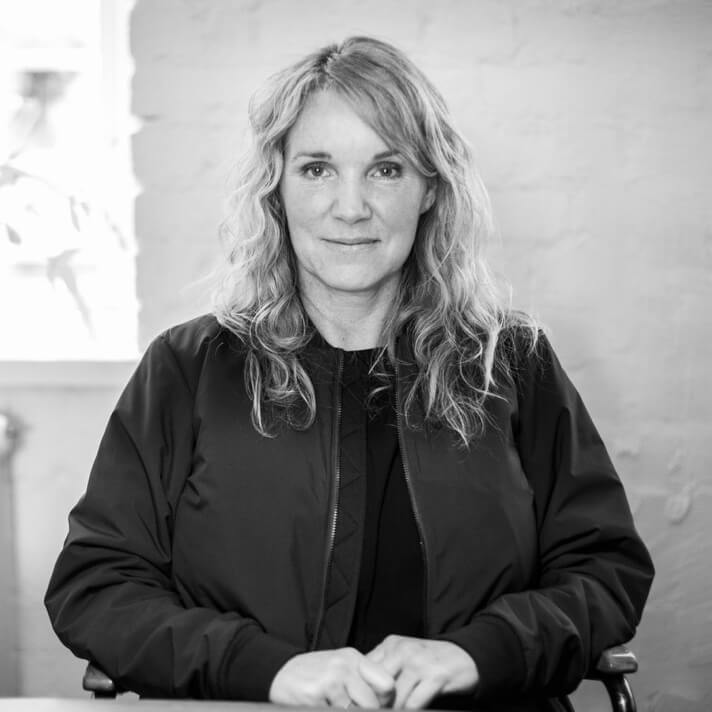


Eva Karlsson, CEO, Houdini Sportswear
Eva Karlsson is the CEO of Houdini Sportswear, a brand pioneering the outdoor clothing space by making truly circular business. With rental services, subscription services and 100% of the fabrics being utilized in this season’s range being recycled, recyclable, biodegradable or bluesign certified, Houdini is on a mission to change the trajectory of the industry. The latest project, Mono Air, has seen the creation of a fleece jacket which can be recycled and enormously reduces microplastic shedding. The design principles behind this jacket have been shared openly online, a first in the industry.
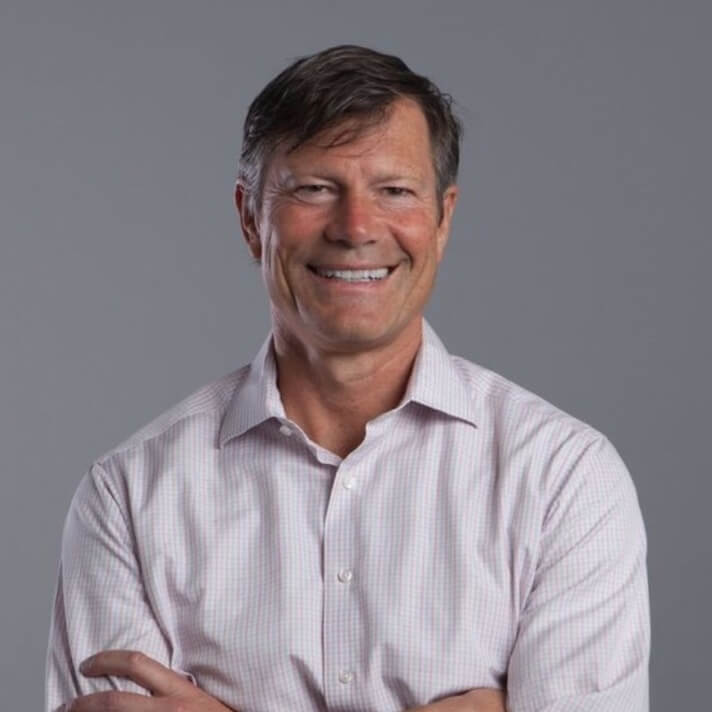



Jeff Ubben, Founder and Managing Partner, Inclusive Capital Partners, Board Member, E.O. Wilson Biodiversity Foundation
Jeff Ubben is a Founder, Managing Partner, and the Portfolio Manager of Inclusive Capital Partners. Mr. Ubben is a retired Founder of ValueAct Capital, where he was Chief Executive Officer, Chief Investment Officer, and Portfolio Manager. Mr. Ubben is also a Founder and served as Portfolio Manager of the ValueAct Spring Fund. Prior to founding ValueAct Capital in 2000, Mr. Ubben was a Managing Partner at Blum Capital Partners for more than five years. Mr. Ubben is a director of The Exxon Mobil Corporation, AppHarvest, Enviva Partners, LP, and Nikola Corporation. He is a former director of The AES Corporation, former chairman and director of Martha Stewart Living Omnimedia, Inc., and a former director of Catalina Marketing Corp., Gartner Group, Inc., Mentor Corporation, Misys plc, Sara Lee Corp., Twenty-First Century Fox Inc., Valeant Pharmaceuticals International, Willis Towers Watson plc, and several other public and private companies. In addition, Mr. Ubben serves on the boards of Duke University, World Wildlife Fund and the E.O. Wilson Biodiversity Foundation, and formerly served as Chair of the National Board of the Posse Foundation for nine years. Mr. Ubben has a B.A. from Duke University and an M.B.A. from the Kellogg School of Management at Northwestern University.
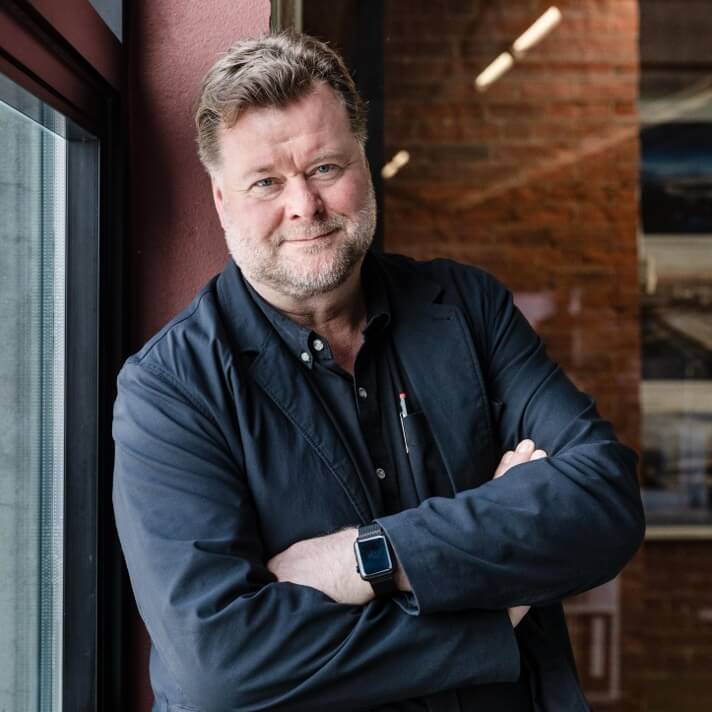

Andrew Whalley, Partner in Charge, Grimshaw Architects
Andrew Whalley has been an instrumental part of Grimshaw since the earliest days of the practice and has been Partner in Charge of projects in diverse sectors including education, performing arts, transportation, and workplace. His award-winning projects include the International Terminal at Waterloo, the Eden Project in Cornwall, the redevelopment of the historic Paddington Station in London and the Sustainability Pavilion for Dubai Expo 2020. In 2001, he played a key role in establishing the Grimshaw New York studio. Throughout his career, Andrew has had a passionate interest in Sustainability.
Andrew has been involved with academia throughout his career. This has included the Royal College of Art Industrial Design Department, The Bartlett, UCL and the Architectural Association. In the US, he has been a visiting Professor at Washington University and recently completed his appointment as Adjunct Professor at POLIMI Milano.
He is a member of RIBA, FRSA and was elected to the AIA College of Fellows for Design and was awarded an Honorary Doctorate of Letters from his alma mater, The Glasgow School of Art. The Consortium for Sustainable Urbanisation honored Andrew with their 2021 Champion Award. He is qualified as an architect in the UK and USA.
Andrew was appointed as Deputy Chairman in 2011 and succeeded Sir Nicholas Grimshaw as Chairman in June 2019; the Chairman’s Office is responsible for managing the practices core design ethos and long-term strategies.
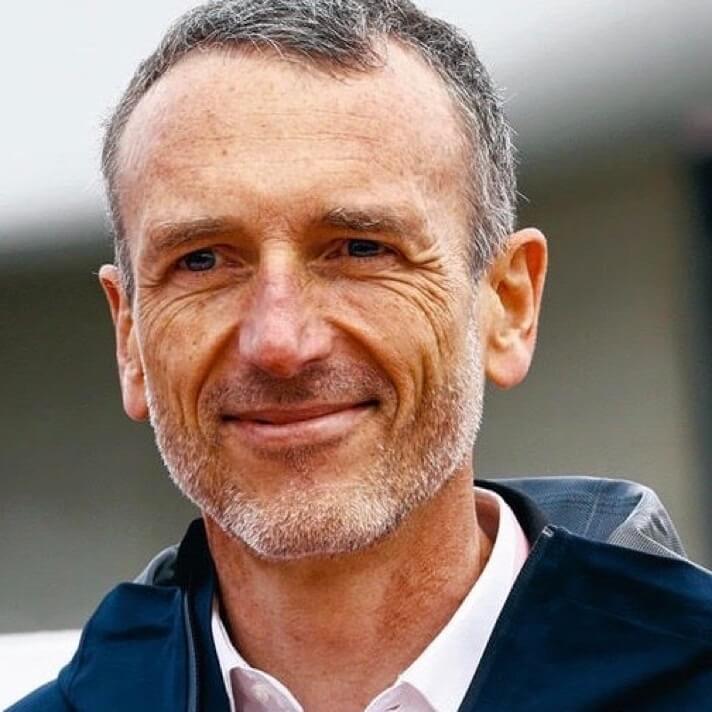

Emmanuel Faber, Former Chair and CEO, Danone
Emmanuel Faber is the former Chair and CEO of Danone, a trailblazer for regenerative food and agriculture practices and social inclusion. He led the multinational company to become an environmental, social and governance leader, which culminated with the adoption by a 99% vote of shareholders of the new French status of Entreprise à Mission in 2020, and Danone to become yet the only stock market listed company in the world that reports its financial earnings on a scope-3 CO2-adjusted basis. Emmanuel is the founder and Chair of the One Planet Business for Biodiversity coalition, pushing for agricultural biodiversity and soil health, a founder of the G7 Business for Inclusive Growth coalition, co-chaired with OECD Secretary General. He is a member of the UK G7 Impact Taskforce and a member of the Transformational Economics Commission of the Club of Rome. He is also the former co-chair of the Consumer Goods Forum. Emmanuel is French, married with three children, and an avid rock climber and alpinist.
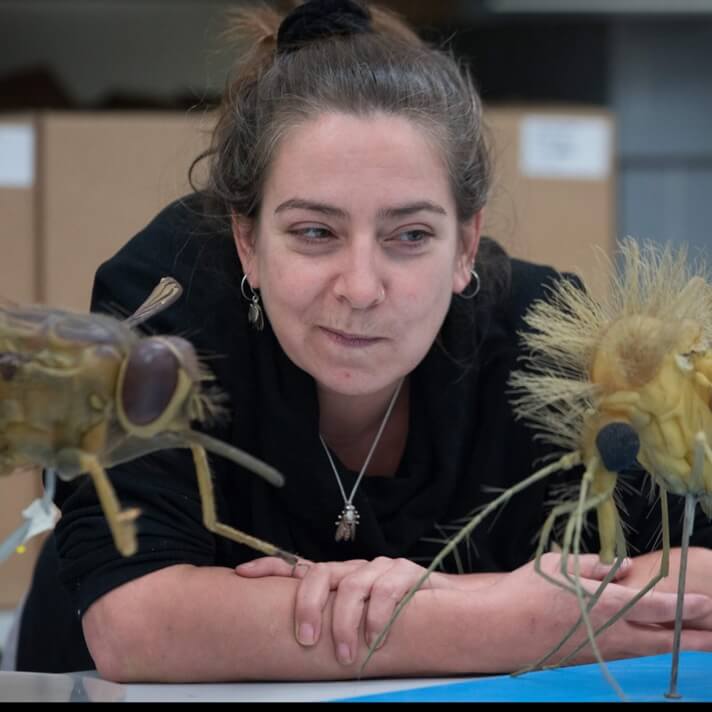

Erica McAlister, Senior Curator in Diptera (Flies) and Siphonaptera (Fleas), Natural History Museum, London
Dr. Erica McAlister Hon. FRES, is a senior curator in Diptera (Flies) and Siphonaptera (Fleas) at the Natural History Museum, London. Her current research includes working on the biodiversity of Flies of Dominica (new species descriptions and ecological interactions), Robber flies of South Australia, as well working on UK Diptera Biodiversity (including the Insects from Knepp rewilding Estate). She is part of a team researching non-destructive methods of DNA extraction of museum Mosquito specimens, an invaluable tool in unlocking historical data from the collection.
She lectures in several master’s courses and conducts outreach in schools to students of all ages. She regularly takes global trips to conduct field work where she is involved in both research and training. In addition to her research and teaching, she has written two popular science books on flies (The Secret Life of Flies, The Inside Out of Flies), has presented several radio shows on Insects (and appeared on many more), and is a huge advocate of scientific outreach – giving talks and presentations to Natural History Societies, research organizations and other scientific/non-scientific audiences.
She has just retired as President of the Amateur Entomologists’ Society but about to commence as the Chairperson of the Dipterists Forum – the UK society dedicated to the conservation and study of flies.







Walter Jetz, Scientific Chair, E.O. Wilson Biodiversity Foundation, Professor, Yale University
Walter Jetz is a Professor in the Ecology and Evolutionary Biology Department and the School of the Environment at Yale University as well as the founder and director of the Yale Center for Biodiversity and Global Change. His research addresses global biodiversity dynamics in a changing world and integrates ecological, evolutionary, geographical, and environmental perspectives. One particular focus is the use of new technologies and data flows to study biodiversity distributions and responses to change across scales. Dr. Jetz’s flagship projects include Map of Life, a research, education, and information platform addressing the global geographic distribution of species, the Half-Earth Project Map addressing global priorities for area-based conservation, and EarthEnv, encompassing near-global high-resolution environmental data for biodiversity applications. Walter Jetz is the Scientific Chair of the E.O. Wilson Biodiversity Foundation.
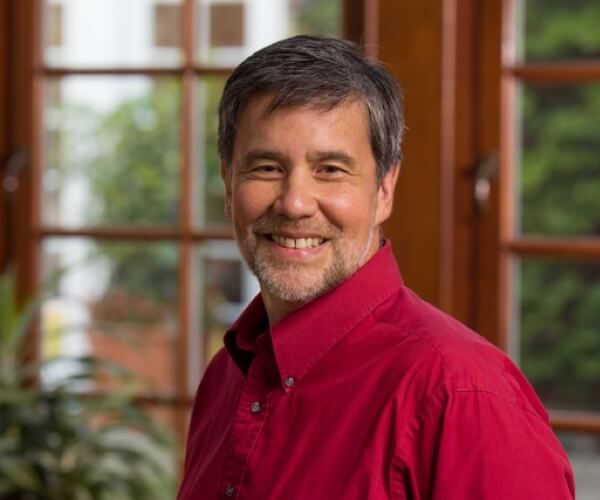



Dennis W. Liu, VP of Education, E.O. Wilson Biodiversity Foundation
Dennis Liu, PhD, is a nationally recognized expert in science education with a passion for helping diverse audiences engage in scientific inquiry and thinking. Dennis is Vice President of Education for the E.O. Wilson Biodiversity Foundation and the Half-Earth Project.
Prior to joining the Foundation, Dennis directed the production of educational media at the Howard Hughes Medical Institute for two decades. In his role as Executive Director of HHMI’s Tangled Bank Studios, he was executive producer and editorial advisor on over a dozen film projects for theatre, broadcast television, large screen, and digital science programs aimed at the general public. His work has received numerous awards and honors including Emmy nominations, The Pirelli Top Prize for the Diffusion of Scientific Culture and Thinking, recognition from Science Magazine, and several Aurora and Telly Awards. Dr. Liu has recently been elected the new President for the American Conservation Film Festival, a non-profit organization based in Shepherdstown, WV.
Liu was a zoology major at the University of Wisconsin, then received his Ph.D. in biology from the University of Oregon doing research in the Neuroscience Institute. Following postdoctoral studies, he was faculty in the department of genetics at University of Washington and then worked at Microsoft and VideoDiscovery developing multimedia science content.
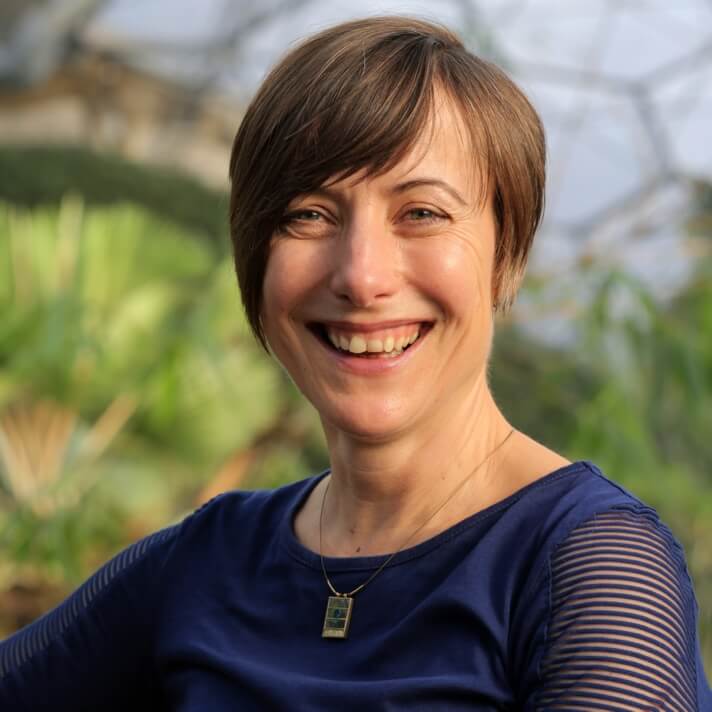

Sam Kendall, Education Manager, Eden Project
Sam leads all of Eden Project’s work with schools, young people and their teachers and has done so since 2010. She’s been a member of Eden’s Education Team since the project opened in 2001, establishing Eden as a must-go school visit destination for schools across the UK and maintaining a focus on high quality teaching and learning across Eden’s learning programs – at Eden and online. Her passion is sharing Eden’s mission; to connect people with the living world and with each other to create a sustainable future for all. Following a first degree in Natural Science at Jesus College, Cambridge, she qualified as a primary school teacher, with science specialism, in 1997 and worked in schools in Bristol, Cornwall, Karachi and South Africa prior to joining Eden in 2001. She has recently completed a MSc in Environment and Human Health.
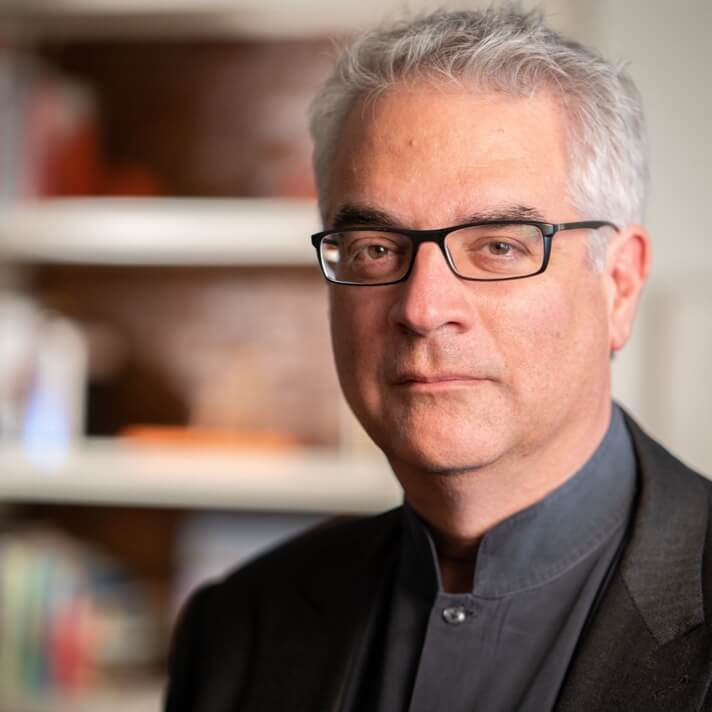

Nicholas Christakis, Sterling Professor of Social and Natural Science, Yale University
Nicholas A. Christakis, MD, PhD, MPH, is the Sterling Professor of Social and Natural Science at Yale University. His work is in the fields of network science, biosocial science, and behavior genetics. He directs the Human Nature Lab and is the Co-Director of the Yale Institute for Network Science. He was elected to the National Academy of Medicine in 2006; the American Association for the Advancement of Science in 2010; and the American Academy of Arts and Sciences in 2017.
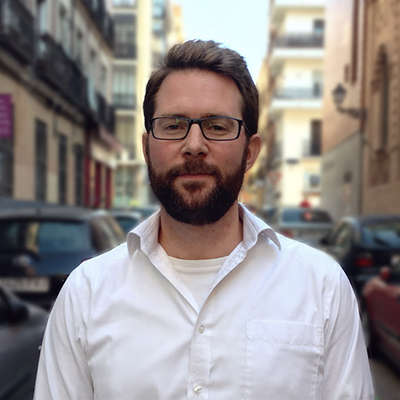



Craig Mills, CEO, Vizzuality
Craig Mills is CEO of Vizzuality, a mission-driven digital agency focused on climate change and biodiversity. Before joining Vizzuality, he spent 7 years working with the UN Environment Programme running technology projects across the world and the previous 7 years with the UK government undertaking marine geospatial research.
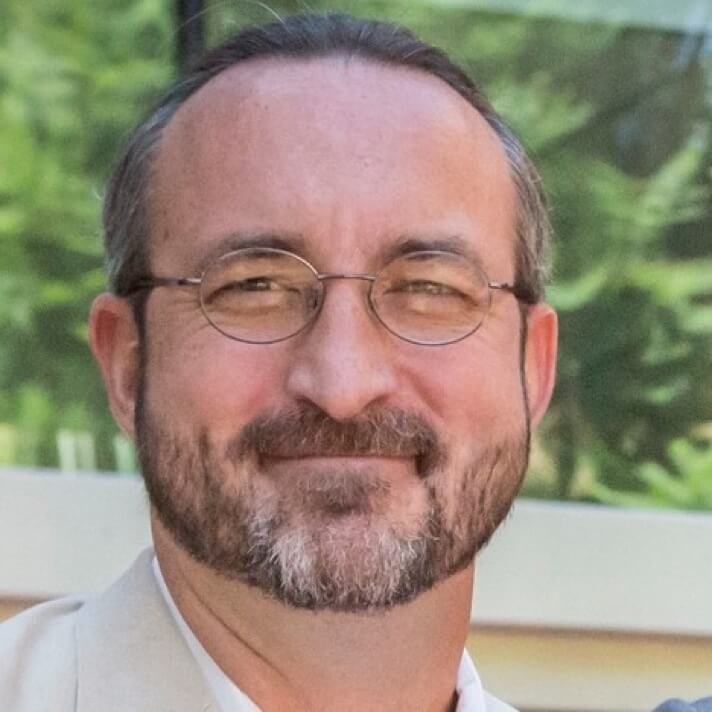

David Gadsden, Director of Conservation Solutions, Esri
David Gadsden, Esri’s Director of Conservation Solutions, is an applied geographer with more than two decades of experience applying geospatial technology to address complex humanitarian and conservation challenges. Gadsden earned a geography degree from the University of Washington in 1995 and later served as a US Peace Corps volunteer in rural Tanzania, working on community-based natural resource management. In his early career he architected and implemented GIS solutions to address environmental, social, public safety, emergency response and construction engineering challenges while working for both commercial and nonprofit organizations. In 2002, Gadsden joined Esri, where he initially served as a technical advisor to the United Nations, US Department of State, and USAID. He has helped a diverse community leverage the “Science of Where” to address complex challenges ranging from global health, disaster response, wildlife protection, green infrastructure, tribal governance, historic preservation and community development.
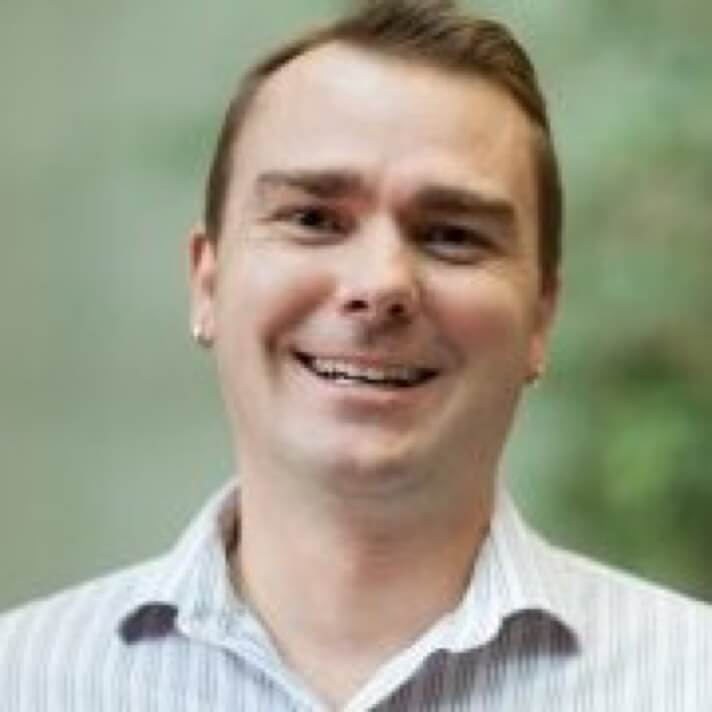

Ryan Perkl, Green Infrastructure Lead, Esri
Dr. Ryan Perkl is Esri’s green infrastructure lead, the industry practice lead for geodesign, the GeoPlanner product manager, and is a senior consultant on the natural resources team in the Professional Services Division. He provides thought leadership throughout Esri and manages a wide portfolio of environmentally focused consulting projects.





Sean Breyer, Program Manager, ArcGIS Living Atlas of the World, Esri
Sean Breyer is the Living Atlas of the World Program Manager for Esri. He and his team manage a massive collection of cloud-based ready-to-use content made available to the GIS community. Sean has been in the GIS industry for over 25 years, working in the federal space at Sandia National Labs, in state government as GIS Manager for the South Carolina Department of Commerce, and the commercial industry as GIS/IT Director at Rand McNally before moving to Esri. Sean is a strong advocate for GIS in the K-12 and supports many global conservation projects ranging from ecosystems mapping, climate change, flood prediction mapping, and the Half-Earth Project.
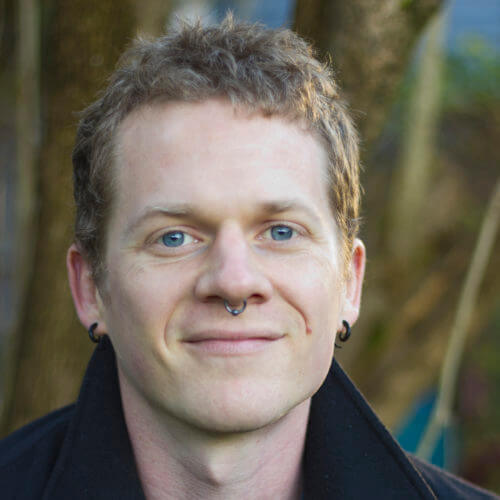


D. Scott Rinnan, Post-Doctoral Associate in Ecology and Evolutionary Biology, Yale University
Scott Rinnan is a Post-Doctoral Associate in Ecology & Evolutionary Biology at Yale University with a Ph.D. in Quantitative Ecology and Resource Management from the University of Washington.
Scott’s research uses conservation prioritization to identify areas of conservation importance, while incorporating global patterns of biodiversity, human pressures, and currently protected areas. His work provides spatially-explicit conservation objectives that facilitate the protection of all species, one of the primary goals of Half-Earth.


Dan Ryan, Environmentalist, Eden Project
The Eden Project is an educational charitable trust with a basecamp in Cornwall (UK) where an old quarry was transformed into a global garden and visitor destination. At Eden plants from all over the world are grown in vast geodesic greenhouses, or ‘biomes’ and in this audacious stage the mission is to connect people artfully and joyfully with nature to inspire more positive futures for all.
A biologist and science communicator by training Dan Ryan is an environmentalist based at the Eden. His career began many years ago as a tour guide and has since taken him around the world working on the grand challenges of our time; from waste and pollution, to climate change and biodiversity loss.
As an educator Dan runs Eden Project’s MSc Sustainability degree and is a regular teacher and lecturer on Eden’s various education programmes. He also consults with businesses, from trying to solve corporate sustainability challenges, to creating learning and leadership programmes for some of the world’s biggest companies.
Dan currently works for Eden Project International – the team responsible for creating new Eden Projects on every habitable continent of the world.
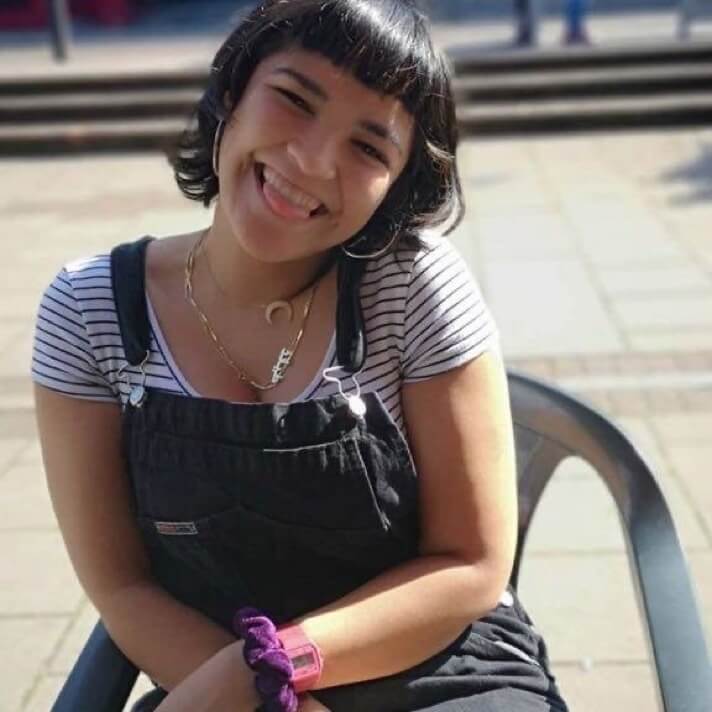

Allia Fredericks, London National Park City Ranger
Allia Fredericks runs the Keeping it Wild program at London Youth, an inclusive youth environmental social action project that provides opportunities for young people across London to engage in creative wildlife conservation and campaigning. She has a background working with young women & girls, LGBTQ youth and with CAMHS. Her greatest passion is creating spaces for young people to be heard, seen, supported to thrive, be creative and make a radical impact and change in the world and in their local environment.


Majdouline El Hichou, Founder, OUMMY AFRIKA
Majdouline El Hichou is an anthropologist and educator who is passionate about grassroots women’s empowerment, community development, and indigenous rights. She has lived in Africa and Latin America where she has spent most of her time doing field research and participatory community workshops with various indigenous communities around issues of preservation of culture, land and alternative reality construction. She is also the founder of OUMMY AFRIKA, an ethical fashion brand focused on the preservation of disappearing indigenous African textile traditions, while building collaborative and ecologically-rooted pieces of clothing and directly supporting the powerful artisans behind each ancestral piece of heritage used.
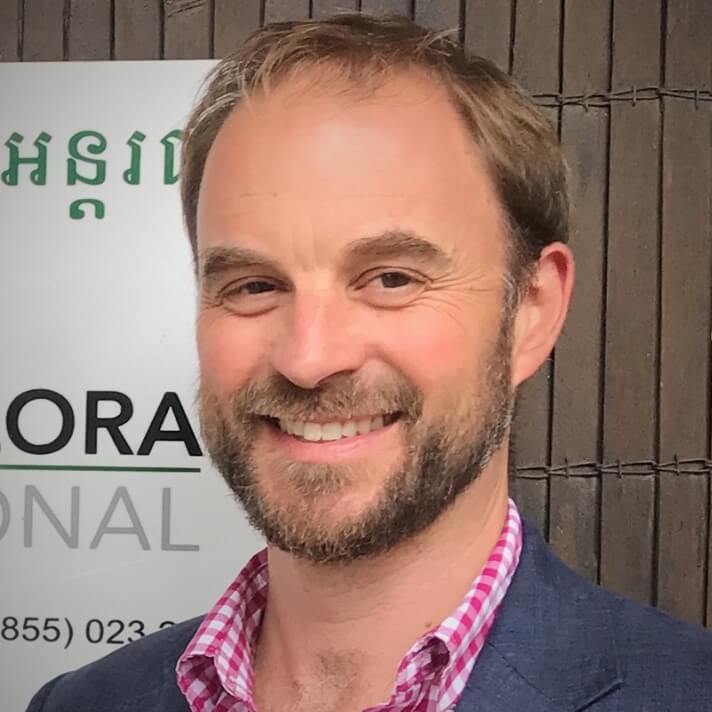

Matt Walpole, Strategy Design Advisor, WWF International
Matt Walpole advises on strategy design at WWF International, with a particular focus on area-based conservation.
An ecologist by training, Matt spent ten years at the Durrell Institute of Conservation and Ecology exploring human-wildlife conflict and coexistence in Africa and Asia. For a further ten years, Matt was based at UNEP-WCMC in Cambridge, developing and delivering global biodiversity indicators and assessments for the Convention on Biological Diversity and helping governments to mainstream biodiversity into wider development decision-making. Matt has occupied roles on various UN fora and for six years was a scientific adviser to the Ramsar Convention on Wetlands. He also directed the secretariat of the UK National Ecosystem Assessment, the first of its kind to explore the value of nature to society.
More recently, Matt worked at Fauna & Flora International, overseeing a varied suite of conservation efforts worldwide. He is a longstanding member of the judging panel of the World Responsible Travel Awards and has worked and travelled in over 70 countries.
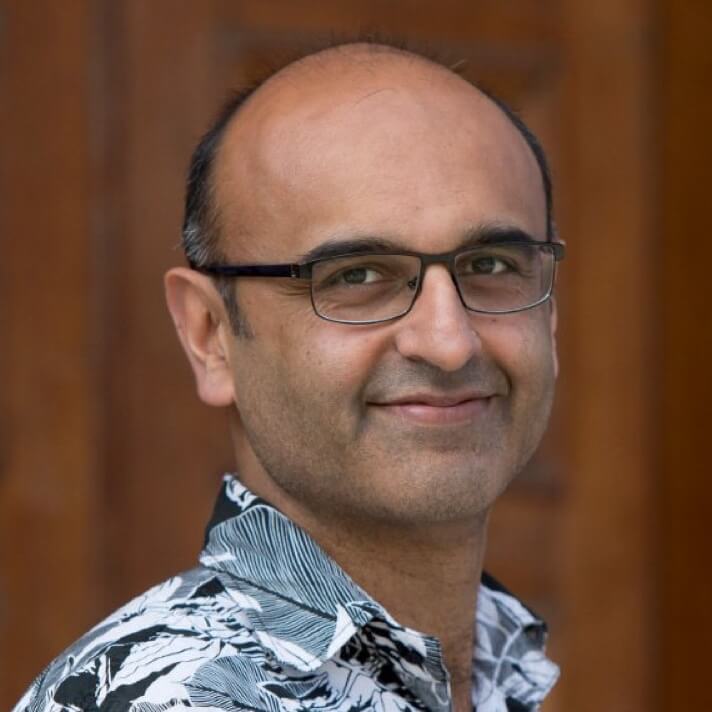

Yadvinder Malhi, Professor of Ecosystem Science, University of Oxford
Yadvinder Malhi is Professor of Ecosystem Science at the University of Oxford. His work focuses on the interactions between the biosphere and global change, with a particular focus on tropical biomes. He has conducted extensive fieldwork in tropical countries, and is founder of the Global Ecosystems Monitoring network, which conducts detailed studies of ecosystem processes and climate change in field sites ranging across Amazonia, Africa, and Asia. More broadly he is interested in the challenge of maintaining a flourishing and sustaining biosphere under the challenges of global change. He is a Fellow of the Royal Society, and was awarded a CBE in the 2020 Queens’ Birthday Honours for his work on ecosystem science. He is a Trustee of the Natural History Museum of London and President-Elect of the British Ecological Society.
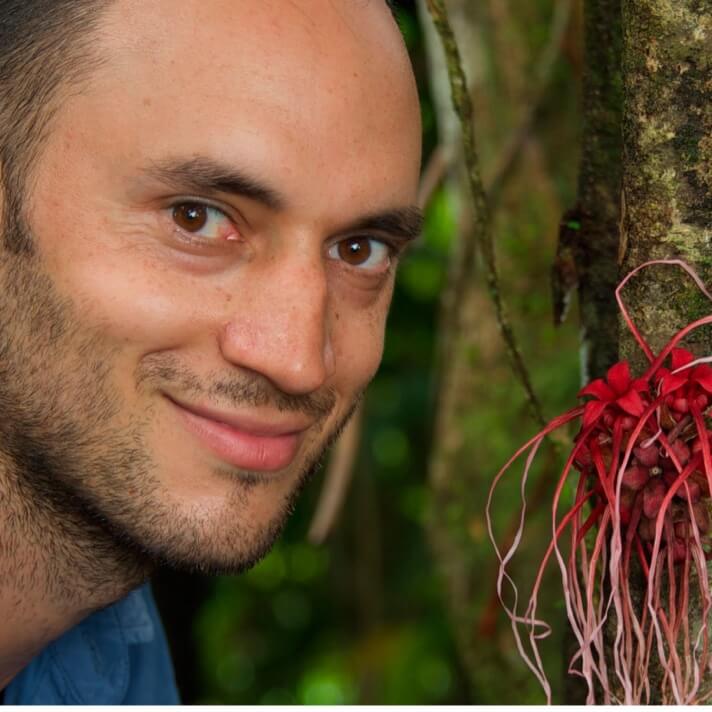

Alexandre Antonelli, Director of Science, Royal Botanic Gardens, Kew
Professor Alexandre Antonelli is the Director of Science at the Royal Botanic Gardens, Kew. He is also Professor in Biodiversity and Systematics at the University of Gothenburg in Sweden and Visiting Professor at the Department of Plant Sciences at the University of Oxford. He was the founder and first Director of the Gothenburg Global Biodiversity Centre, established during his time as Scientific Curator of the Gothenburg Botanical Garden.
Antonelli’s mission is the same as RBG Kew’s: to understand and protect biodiversity for the well-being of people and the future of all life on Earth. To this end, he studies the distribution, evolution, threats and sustainable uses of species and develops methods to speed up scientific discovery and innovation. His research focuses on the tropics, where most species occur and the threats are most acute. Most recently he has been particularly interested in the application of machine learning techniques for biodiversity research and conservation. He has published over 170 peer-reviewed scientific articles and book chapters and his work has been cited over 11,000 times.
You can read more about his work at antonelli-lab.net and kew.org/science/our-science/people/alexandre-antonelli
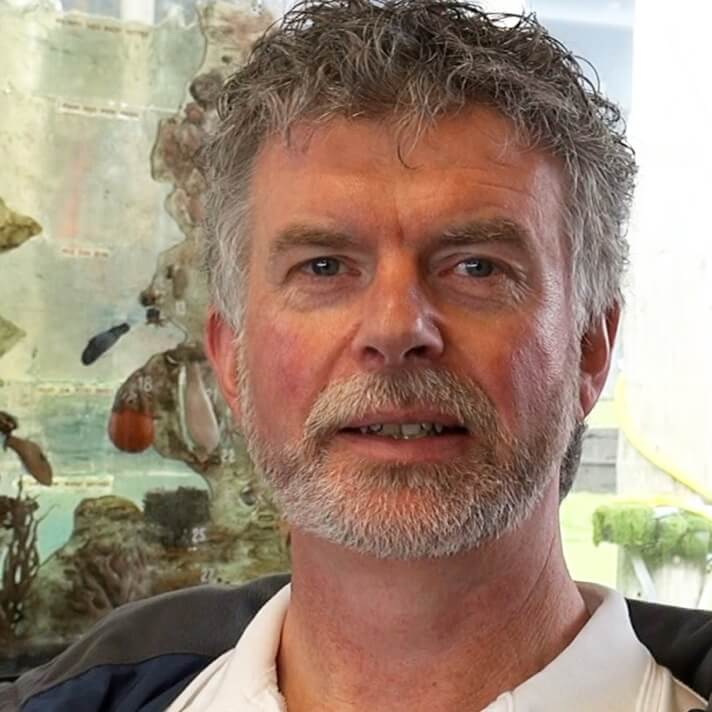

Mark Costello, Ecologist
An ecologist specialising in biogeography, Marine Protected Areas, and the effects of climate change on biodiversity. He pioneered ‘ocean biodiversity informatics’; leading the establishment of the World Register of Marine Species and Ocean Biodiversity Information System databases on all 240,000 marine species and 80 million distribution records. Related discoveries concern estimates of how many species exist and are not yet named, evidence of global scale climate change effects, and where to best protect marine biodiversity globally.
Mark has over 230 peer-reviewed publications, supervised 65 graduate students, and played leading roles in many international organisations, including the Marine Biodiversity Observation Network and being a lead author in the present Intergovernmental Panel on Climate Change global assessment.
From Ireland, a fascination with wildlife led to studying in Galway, a PhD based in Ireland’s only Marine Reserve, post-docs in England and Scotland, a lectureship in Trinity College Dublin, establishing the company EcoServe, and a term as Executive Director of the Huntsman Marine Science Centre in Canada until returning to an academic position in Auckland New Zealand. He is currently a professor at Nord University, Arctic Norway.
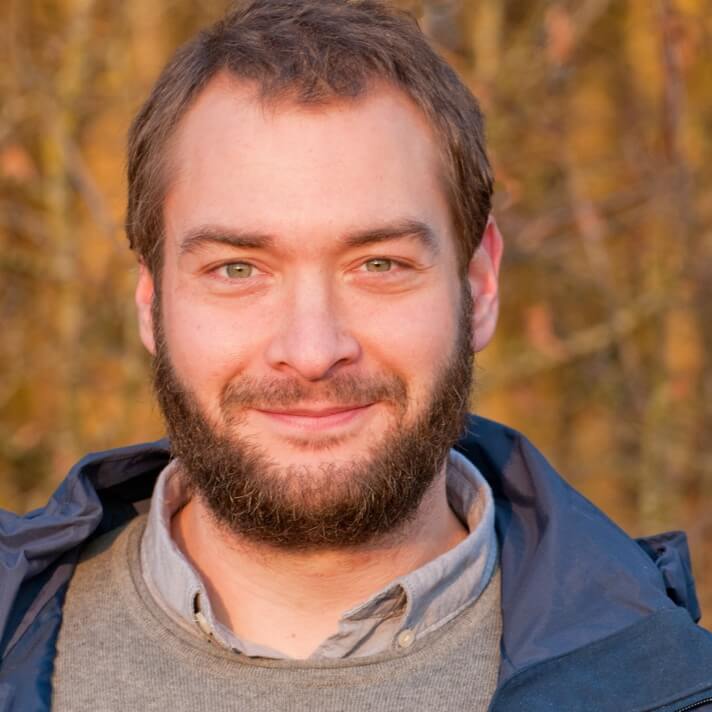

Stefan Pinkert, Postdoctoral Associate, Center for Biodiversity and Global Change, Yale University
Pinkert’s research focuses on assessing the global biodiversity of insects and on understanding the processes that shape diversity patterns from a functional and phylogenetic perspective. Given the limited availability of essential biodiversity data on insect species, an integral part of his work is to develop approaches for the mobilization of distributional data and the automatic quantification of trait variation using image analysis techniques and artificial intelligence-based object recognition. Furthermore, his research informs about regions and taxa for which we lack essential biodiversity information.
As a Postdoctoral Associate at Yale and the Center for Biodiversity and Global Change, Pinkert compiles global taxonomic information that allow us to integrate expert range maps, occurrence records, inventories, country-level distribution information and species’ habitat affinities. He uses these distributional and functional data in combination with phylogenies for butterflies and Odonata to address important question in ecology and evolution as well as to inform strategies for the effective conservation of hitherto largely neglected taxa.
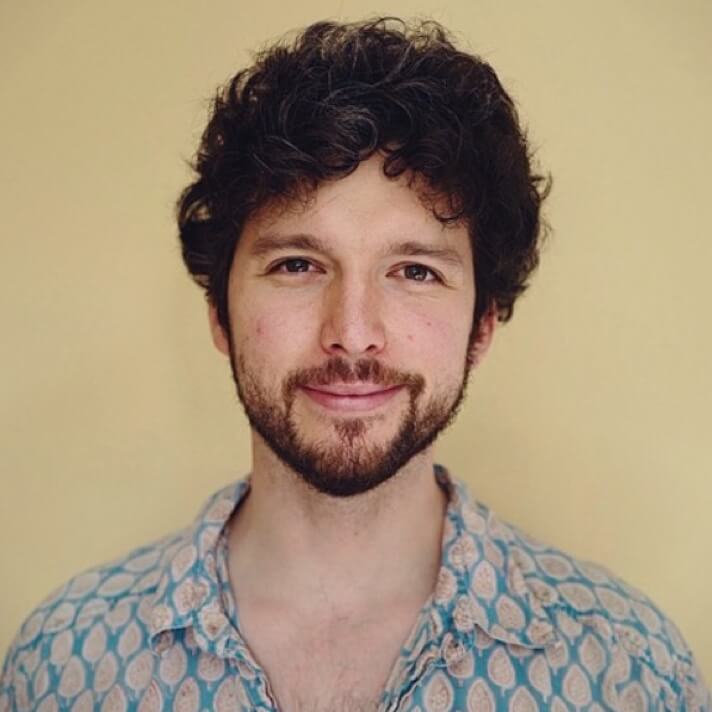

Matthew Shribman, Scientist, Environmentalist, Teacher
Matthew Shribman is a scientist, environmentalist and teacher focused on projects for the future of life on Earth. He has appeared across the BBC, spoken for TEDxLondon and advises the World Congress of Science & Factual Producers. Specialising in reaching beyond the echo chamber, his online videos have over 25 million views and his environmental campaigns have been supported by Peter Gabriel and Sir Paul McCartney. Matthew holds a 1st Class MChem from the University of Oxford.
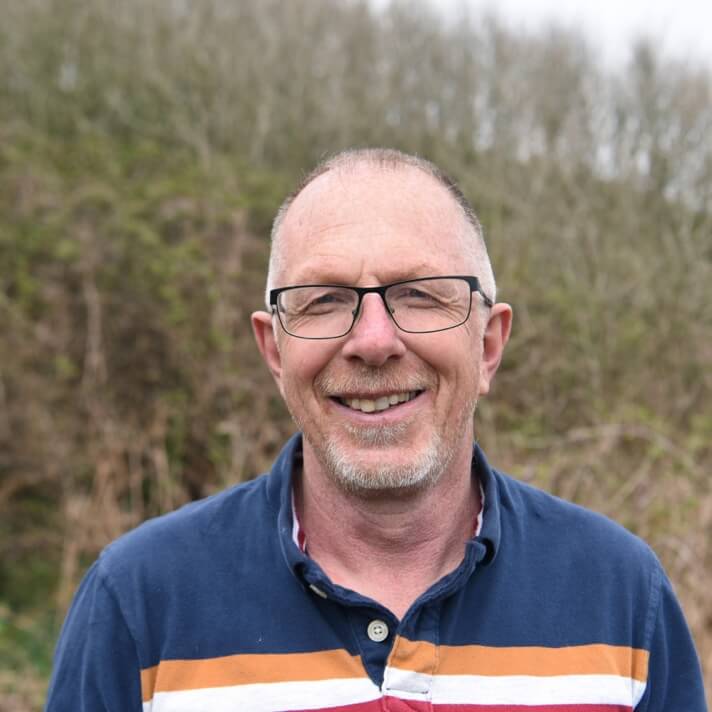

Mat Strevens, Headteacher, Trythall Community Primary School
Mat Strevens has been Headteacher at Trythall Community Primary School for 11 years. Trythall is a unique, small (70 children) school situated in the middle of nowhere: in the moorlands of Penwith, the ‘nearly Island’, at the most westerly point of Cornwall in the UK. He has helped develop a curriculum centred on outdoor, project-based learning making use of the wild surroundings. The children at Trythall are active environmentalists. They have pledged to save a species, the endangered Long-horned Bee (Eucera Longicornis) as part of their project Peas4Bees, in Partnership with Paddy Saunders (Kernow Ecology).
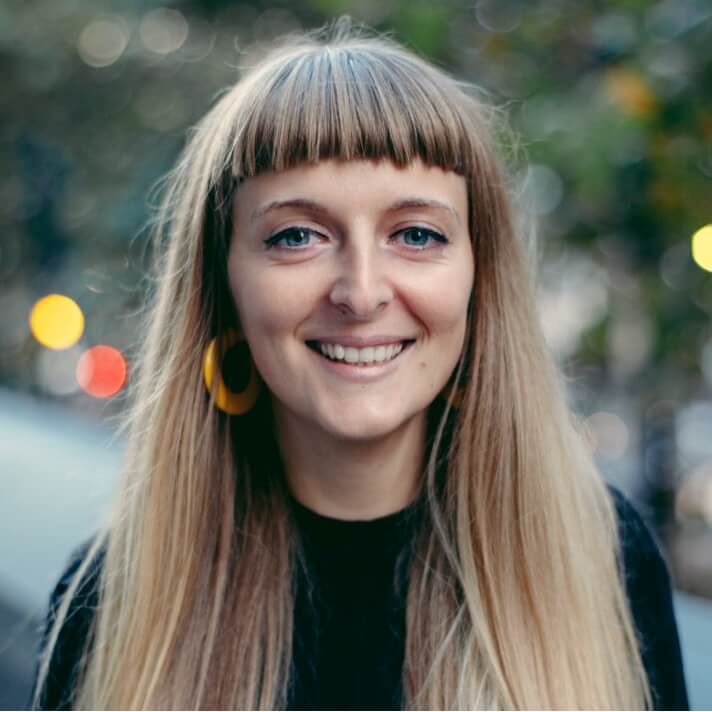

Floree Zama-Neagra, Ranger Programme and Community Manager, London National Park
Floree Zama-Neagra is the Ranger Programme and Community Manager working with talent and purpose led organizations to accelerate social and environmental change. Her interest lies in innovation tools and systems change methodologies that can tackle and solve complex problems. She does this through her interdisciplinary specialism in coaching, action learning, facilitation, business development, innovation / co-production, community building and content design. Floree is an activist for indigenous rights and biodiversity; a nature lover with a passion for holistic living. She loves creating spaces for people to come together, heal, connect, and explore what humane living is all about.
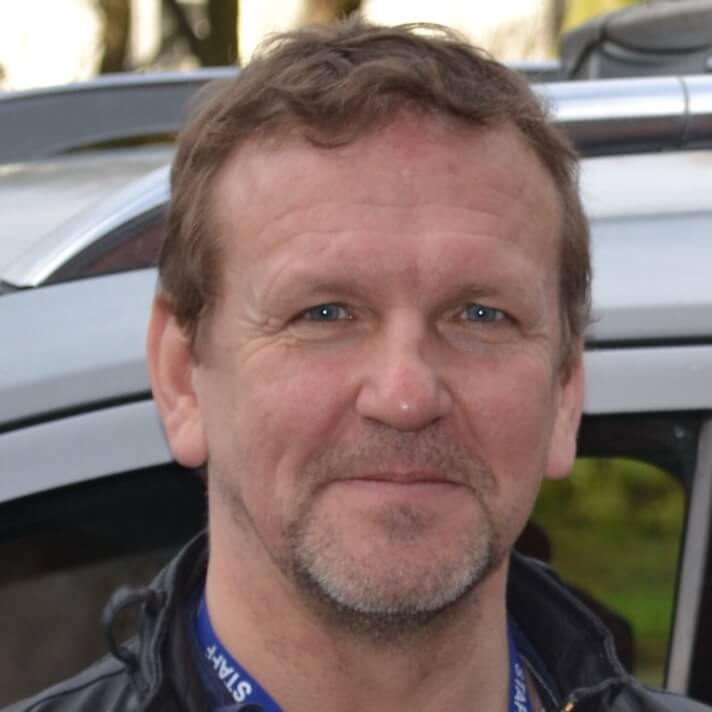

John Patterson, Principal, St. Vincent’s School
Dr. John A Patterson is principal at St. Vincent’s School, a non maintained school for sensory impaired and other needs in West Derby, Liverpool.
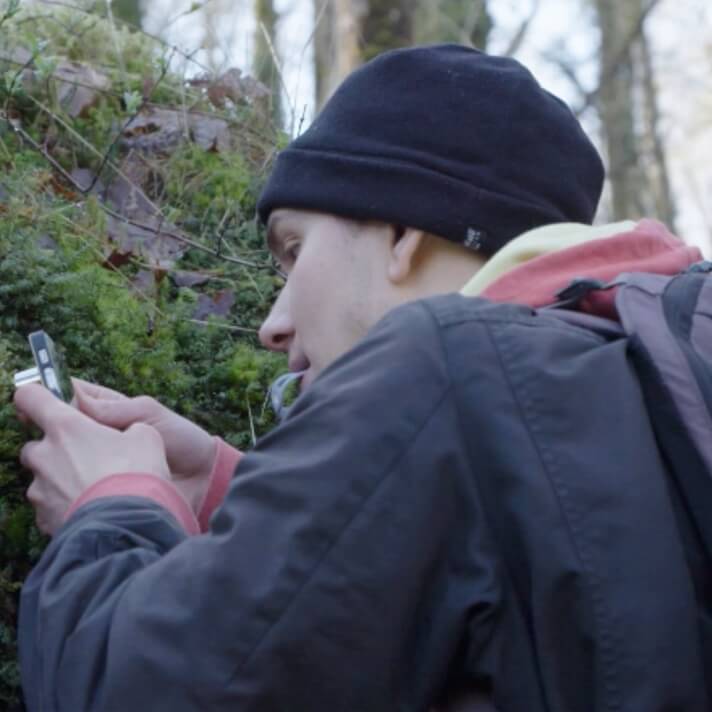

Alex Mills, Botanist and Ecologist, Natural England
Alex Mills is a botanist and ecologist working for Natural England. Undertaking the Identification Trainers for the Future traineeship at the Natural History Museum, London and an MSc in Plant Diversity (University of Reading) instilled in him a love of all things botanical, especially the flora of the British Isles.
He is fascinated by the biocultural connections between plants and people, as well as the weird, wonderful, and often overlooked nooks and crannies of the plant world – such as parasitic plants, ferns, and bryophytes.
A former research student of Renaissance and early modern theatre gone wild, Alex believes that anyone, given the support and opportunity, can (re-)learn to love the natural world. He hopes to encourage others to discover the beauty, importance, and joy of plants.
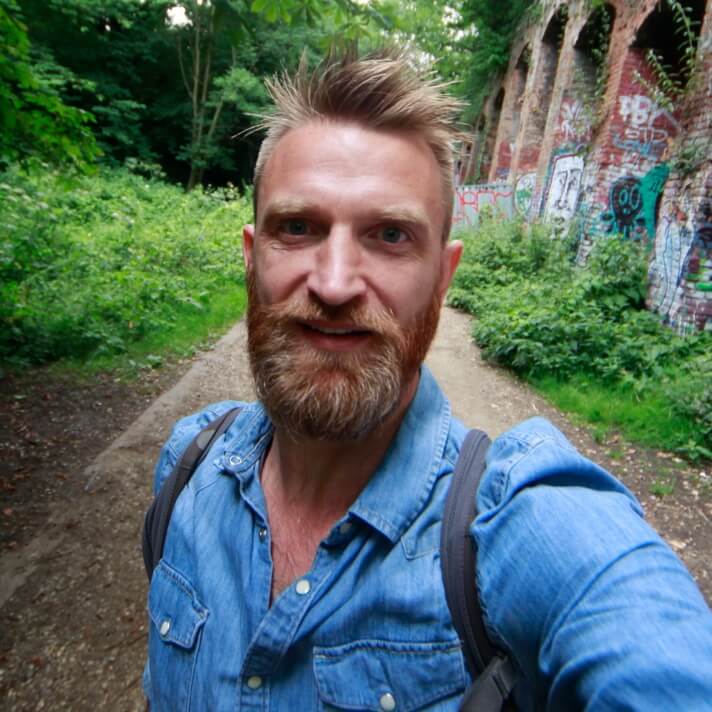

Daniel Raven-Ellison, London National Park City Ranger
Dan Raven-Ellison is a parent, guerrilla geographer, National Geographic Explorer, former geography teacher and leader of the campaign to make London the world’s first National Park City. His work focuses on challenging himself and others to see the world in new ways. He does this by combining creative exploration, geography, and communication to tackle social and environmental challenges. Dan works with the National Park City Foundation to support people who are working to transform their cities into National Park Cities, including community and political leaders in Adelaide, Glasgow, Sacramento, Manila, and Berlin.
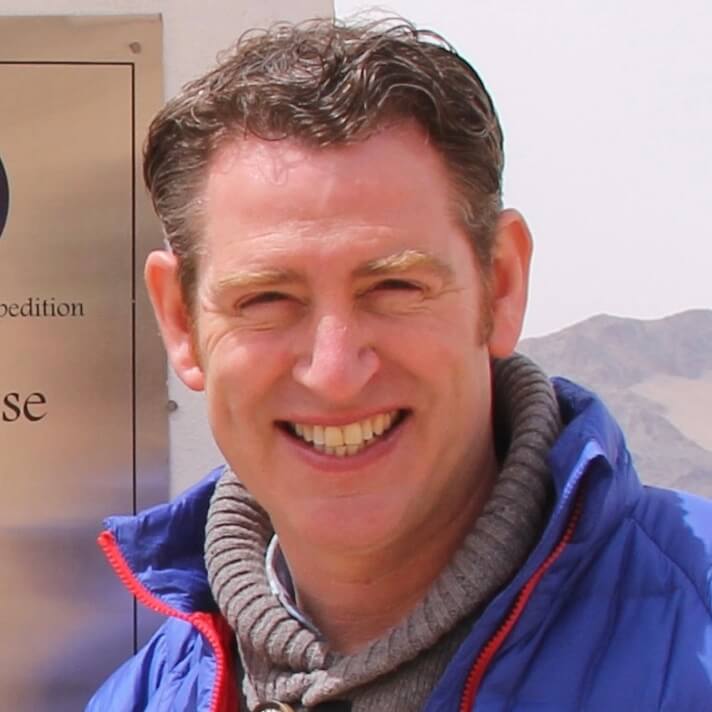

Richard Dunne, CEO, The Harmony Project
Richard Dunne is CEO of The Harmony Project and a former state school Headteacher. He has developed a new way of learning inspired by Nature’s principles of Harmony. In his presentation, Richard will outline each of the principles and how they enable any system or organization to be sustainable and well. The message that underpins the work of Harmony is simple. If we want to create a sustainable way of life, something we urgently need to do, we need to start by understanding the universal laws and principles of Nature and how they work. If we don’t, we will continue to develop practices that damage and degrade the soil, the air and the water, and, by definition, us.
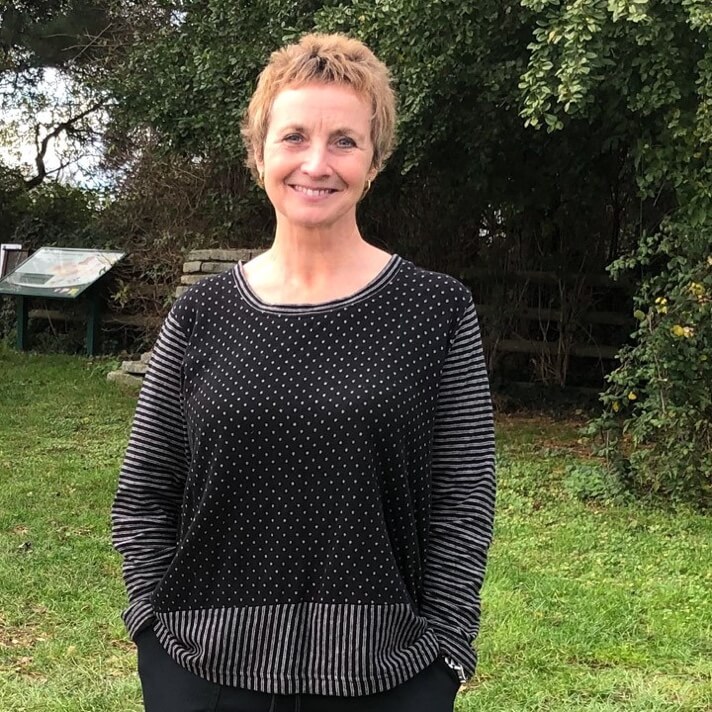

Mary Colwell, Author, Producer, Campaigner for Nature
Mary Colwell is an author, producer and campaigner for nature. Her articles have appeared in the Guardian, BBC Wildlife Magazine, The Tablet, Country Life and many other publications. She has made documentaries for the BBC Natural History Unit in both TV and radio, and has published three books: John Muir – the Scotsman Who Saved America’s Wild Places in 2014 (Lion Hudson), Curlew Moon in April 2018 (William Collins) and Beak Tooth and Claw (William Collins) due in April 2021.
In 2009 she won a Sony Radio Academy Gold award and in October 2017 she was awarded the Dilys Breese Medal by the BTO for outstanding science communication, the David Bellamy Award in 2018 from the Gamekeepers Association for her conservation work on Curlews and, in 2019, the WWT Marsh Award for Conservation.
In March 2021 she was appointed Chair of the government supported Curlew Recovery Partnership England – a roundtable of organisations charged with restoring Curlews, their habitats and associated wildlife across England. In 2020 she set up the charity, Curlew Action.
She is also spearheading the establishment of a GCSE in Natural History.
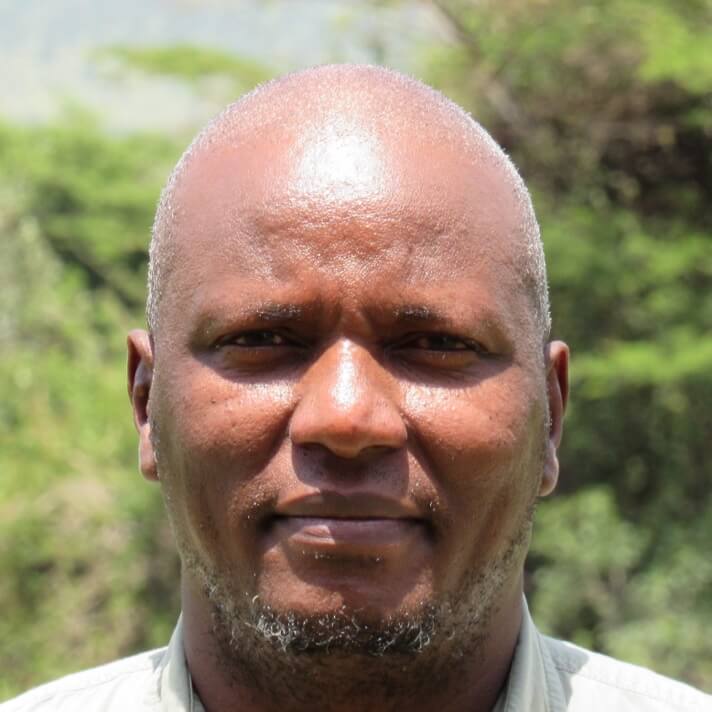

Douglas Nagi, Manager, Cottar’s 1920s Camp, Kenya
Douglas is the 4C Manager at Cottar’s 1920s Camp situated in the southeastern corner of Maasai Mara in Kenya bordering the Serengeti National park in Tanzania. Cottar’s 1920s camp is a Long Run Global Ecosphere Retreat and has won numerous travel awards among them, Africa’s best sustainable boutique hotel and Africa’s leading private villa.
Douglas’s role includes implementing the 4C plan, coordinating all the 4C activities and projects and evaluating progress of the 4C strategy.
Douglas is a gold guide with the Kenya Professional Safari Guides Association and has worked in the field for over 20 years. He has trained most of the guides from the local Maasai community to become some of the best field guides in the country.
Douglas aims at making an impact in conservation by empowering the community with education through the conservations clubs he has established in olderekesi conservancy and through supporting the community in their ownership of a community conservancy.
He is a nature enthusiast and a conservationist at heart who spends his time shaping the young generation to care for the world in acting today for a better tomorrow because conservation is about the people.
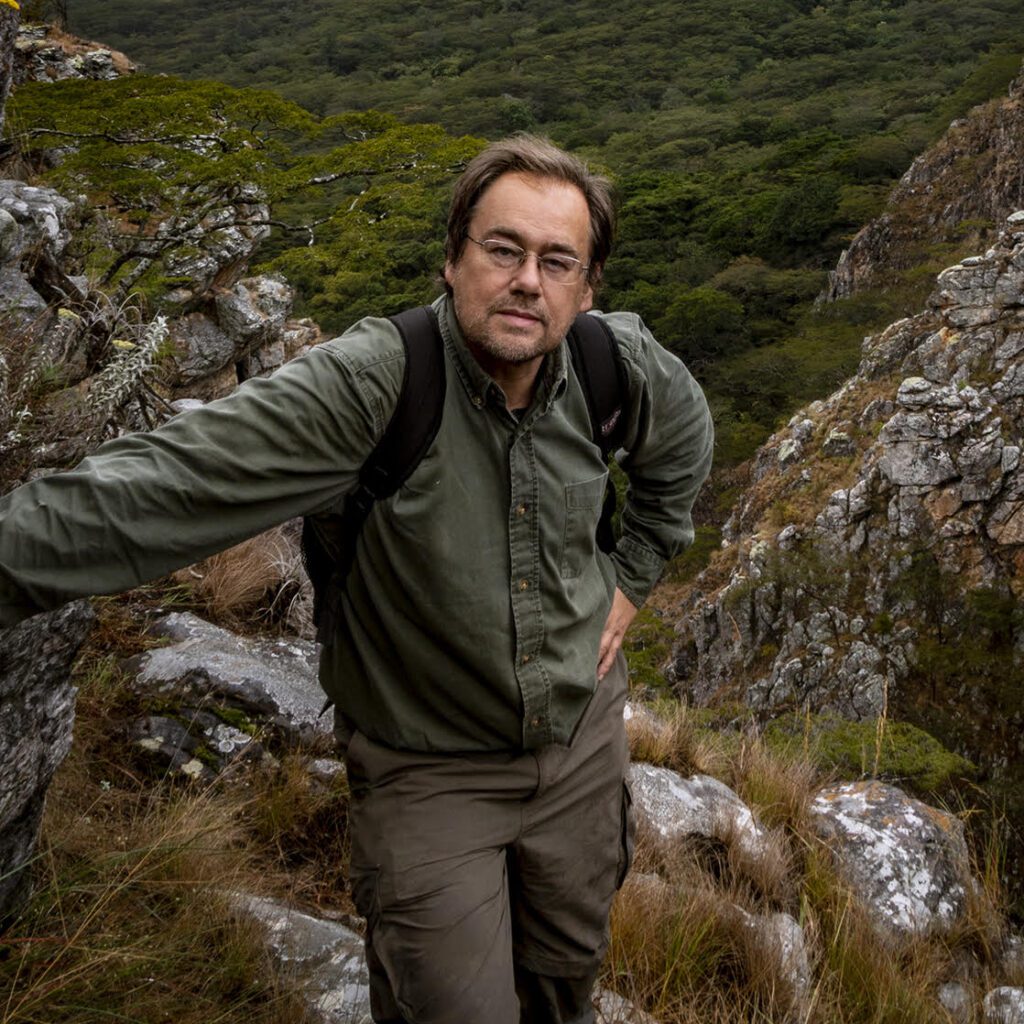



Piotr Naskrecki, Associate Director, E.O. Wilson Biodiversity Laboratory, Gorongosa National Park
Dr. Piotr Naskrecki is an entomologist, conservation biologist, author, and photographer, based at the Museum of Comparative Zoology at Harvard University. He currently directs the E.O. Wilson Biodiversity Laboratory at Gorongosa National Park in Mozambique where he trains a new cadre of Mozambican biologists and conservationists, and helps rebuild the park, which suffered during the recent civil war in that country. His scientific interests focus on the evolution of communication and sound production in insects and other animals, and the phylogenetic reconstruction of insect relationships. He is the author of over 50 scientific, peer-reviewed papers and book chapters.
Piotr’s work focuses on projects that include invertebrate animals in conservation practices and he strives to promote understanding, appreciation, and conservation of “non-charismatic” animals. In his popular writing and photography he tries to capture both their beauty and roles as vital, often critically important members of the planet’s ecosystems. He is one of the founding members of the International League of Conservation Photographers (ILCP) and his photographs and nature writing have been published in a number of national and international publications, including The Smithsonian Magazine, Natural History, National Wildlife, National Geographic, BBC Wildlife Magazine, BBC Knowledge, Terre Sauvage, Time magazine, Ranger Rick, and many others.
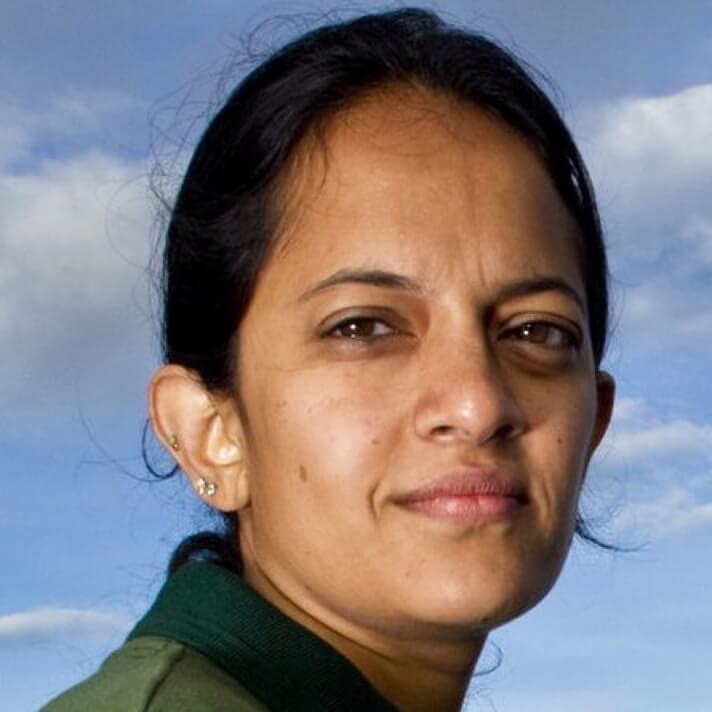

Krithi Karanth, Chief Conservation Scientist, Centre for Wildlife Studies
Krithi Karanth is chief conservation scientist at the Centre for Wildlife Studies, and an adjunct faculty member at Duke University and India’s National Centre for Biological Sciences. Karanth has been involved in scientific research and conservation in Asia for the last 21 years, focusing on the human dimensions of conservation. She has conducted macro-level studies assessing patterns of species distributions and extinctions, impacts of wildlife tourism, consequences of voluntary resettlement, land use change and understanding human-wildlife interactions. Karanth has published more than 90 scientific and popular articles and a children’s book. Karanth served on the editorial boards of Conservation Biology, Conservation Letters and Frontiers in Ecology and the Environment. Throughout her career, Karanth has mentored over 120 young scientists and engaged more than 500 citizen science volunteers.
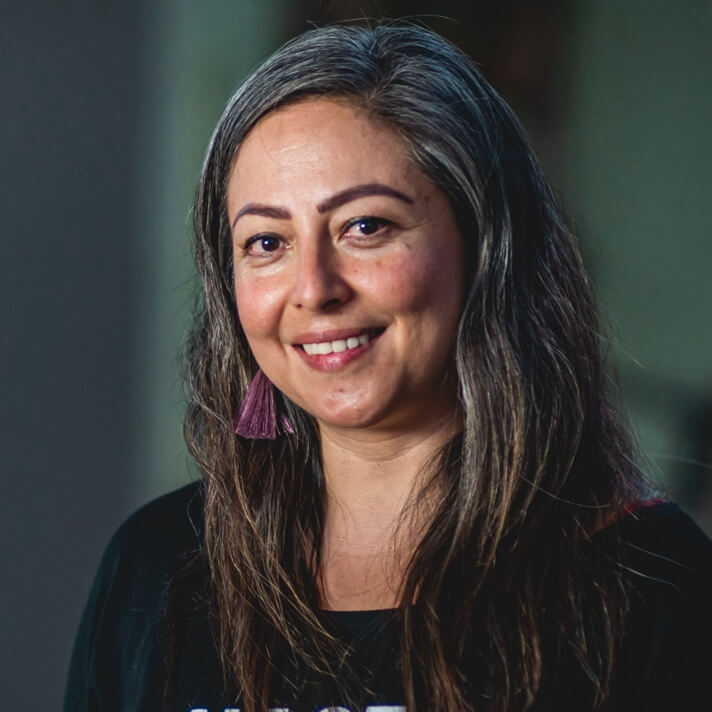

Liliana Gutiérrez Mariscal, Founder, Executive Director, Public Administrator
Liliana has a Bachelor’s degree in Biology from the Universidad Autónoma de Mexico (2000). She has a Master’s in Science from State University of New York (2003), and a Master’s in Public Administration from the Maxwell School of Citizenship and Public Affairs in Syracuse University (2002). As a member of a research group from the Ecology Institute in the UNAM, she participated in conservation and natural resource management programs in Distrito Federal, Michoacán, Guerrero and Oaxaca (1996-2000). From 2002-2007 she acted as Director of Environmental Policies in SEMARNAT, focusing her work in the coordination and design of what became the Sea Use Planning Federal Program for the Gulf of California (Ordenamiento Ecológico Marino del Golfo de California). Liliana joined the NOS team in July 2007 and in 2014 was promoted to be Executive director, she ended her cycle at NOS in June 2019 after the successful recovery of fisheries, the granting of a Commercial Concession and the local empowerment of women in El Manglito BCS that gave origin to the Guardianas del Estero El Conchalito Collective. Liliana is currently General Coordinator of the Mexican Initiative for Coasts and Seas. She is a graduated fellow of the Academy for Systems Change, National Geographic Explorer and Affiliate at Meridian Institute.



Norina Vicente, Half-Earth Project Chairs and Scholars
Norina Carlos de Jesus Francisco Vicente was born in a small town in Tete Province, Mozambique. She received her B.Sc degree in Ecotourism and Wildlife Management from Instituto Superior Politécnico de Manica in Manica province. In 2016, while still studying, she accepted an internship in Mozambique’s premier protected area, Gorongosa National Park. Since then, her passion has been to understand how organisms and ecosystems are organized and how knowledge of ecology, evolution and conservation biology can be used to develop better strategies to protect Mozambique’s national areas. Her interests concentrate on insects, taxonomy, new species, conservation of biodiversity, symbiosis between species, tritrophic interactions.
Currently she works at the E.O. Wilson Biodiversity Laboratory in Gorongosa National Park, Mozambique where she manages the biological collections, coordinate biodiversity data entry and digital imaging of specimens, identify species, and curate specimens. She regularly participates in biodiversity surveys of Gorongosa. Recently, she was admitted to San Francisco State University to pursue a master’s degree in Integrative Biology.
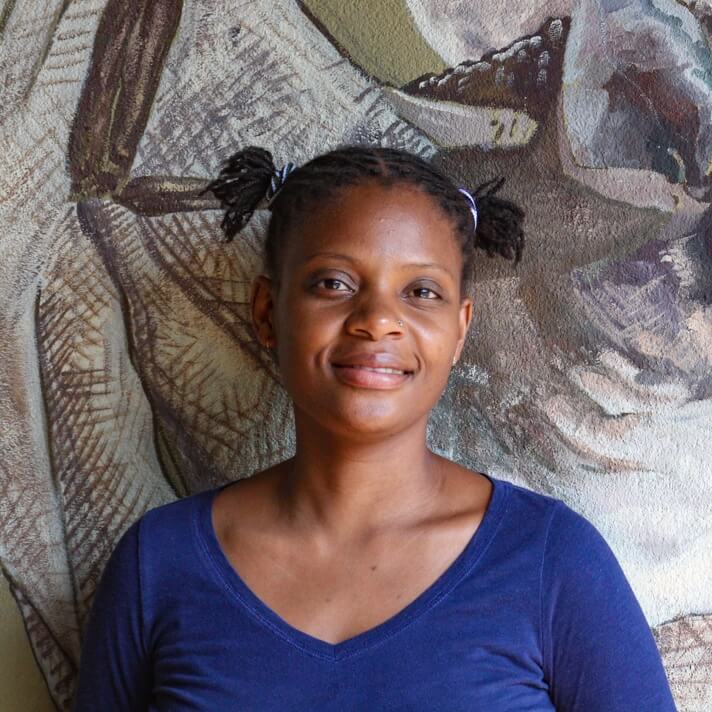

Ana Gledis, Biologist and Research Technician, Gorongosa National Park
Ana Gledis da Conceição Miranda da Conceição, born in Inhambane Province, is a finalist student of the master’s course in Conservation Biology at Gorongosa National Park, with the final research topic: “The relationship between morphology of the vestibular system and bat echolocation parameters in different habitats of Gorongosa National Park”.
In 2015 she graduated in Marine Aquatic and Coastal Biology in the Department of Biological Science at Eduardo Mondlane University, Maputo and then worked to raise awareness of dugong conservation communities at the Association for the Conservation of Dugongs and other species of marine animals. In 2017, she was invited to work in Gorongosa National Park as a Research Technician at the Pringle Laboratory, assisting researchers working in scientific research on floodplains and participated in Seminars on Ecology and Conservation of Mammals, Biodiversity Survey, conservation biology during which she discovered her passion for bats.
She has participated in international training on bat biology, identification and conservation at the Meletse Research and Conservation Training Center in South Africa and participated in Ecology training, Diversity, Conservation and Ecosystem Services by Global South Bats where she was named ambassador for bat conservation in Mozambique.
She is particularly interested in bat taxonomy and interactions between insects and bats because little or nothing is known about the movement of bat populations in Mozambique. One of her goals is to carry out a comprehensive assessment of Mozambican bat fauna to create an IUCN Regional Red List.
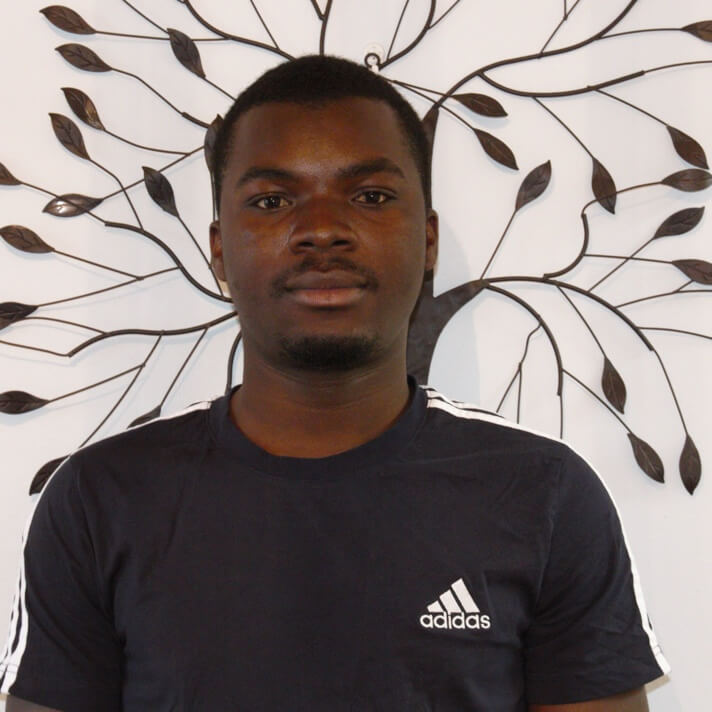

Ricardo Guta, Taxonomist, Conservationist, Research Technician, E.O. Wilson Biodiversity Laboratory, Gorongosa National Park
Ricardo Guta is a taxonomist, conservationist, and has seven years of work experience in E.O. Wilson Biodiversity laboratory, Gorongosa National Park as a research technician. He was born and raised in Mozambique. His interests lie in ecology, biogeography, systematics, photography, and conservation of insects, as well as applying his knowledge of entomology to practical areas such as agriculture and forensics.
He received a technical vocational education studying agriculture and livestock, and later on enrol for a Biological Science Course degree at Universidade Lúrio in Mozambique. Currently, he is enrolled for masters in Conservation Biology at University of Cape Town, South Africa funded by Half-Earth Project and E.O.Wilson Biodiversity.
For his research component, Ricardo is studying “Phylogeography, ecology and acoustic behaviour of an insects called flightless spring katydid” which are endemic to two biodiversity hotspot, the Fynbos and Succulent Karoo in South Africa.
This research aims to:
- Identify new katydid’s species group, and better understand the relationship between the species and time of diversification
- Provide their sound database, and understand the mating behavior
- Use these data to model the impact of climate change on the species, and the biomes they are confined to better conserve the species and the ecosystem as all.
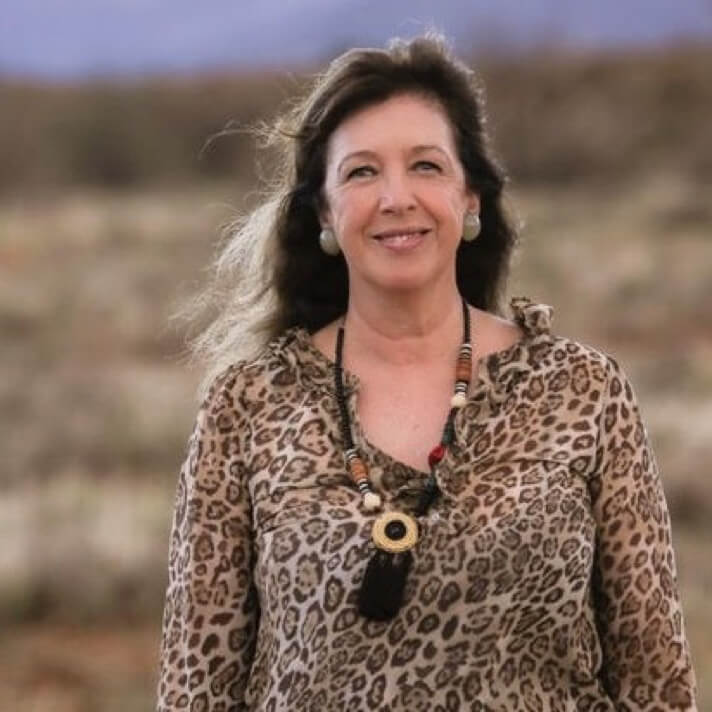

Sarah Tompkins, Co-Founder, Samara Game Reserve
Sarah Nicola Tompkins co-founded Samara Game Reserve in 1997 in the Great Karoo in South Africa. Sarah is a committed conservationist and the driving force in creating the catalyst for land-use change in the region, protecting a region in one of the worlds 36 biodiversity hotspots and second richest floristic region in Southern Africa. Some 1,900 endemic plant species are found here, of which 534 are classified as either Vulnerable, Endangered or Critically Endangered.
Sarah became a Fellow of the Royal Geographical Society in 2010 for her battle against fracking in South Africa. Her legal challenges against prospecting energy companies succeeded in setting a precedent for greater transparency and regulation regarding fracking in the region. Sarah is involved in rhino, cheetah, lion, cape mountain zebra and vulture conservation, working with South African National Parks, Endangered Wildlife Trust and other NGO’s to secure meta populations of endangered and critically endangered creatures on the planet.
Sarah is passionate about education and social upliftment and has created employment for 70 people in ecotourism and conservation and several local community initiatives. She helped found the S.A.C.T Tracker Academy, restoring indigenous knowledge of wildlife tracking and has initiated numerous ecological research projects with international Institutions.
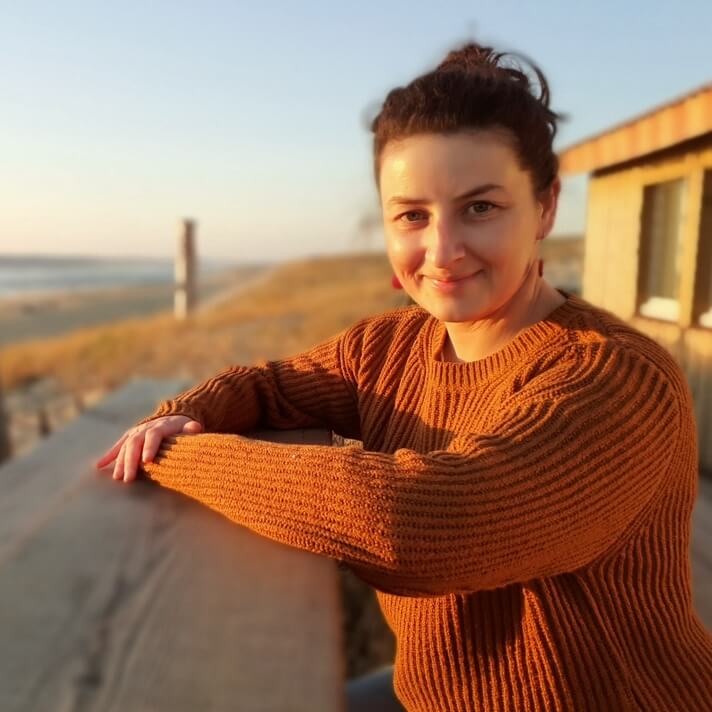

Aurore Maureaud, Quantitative Ecologist, Agricultural Engineer
Dr. Aurore A. Maureaud is a quantitative ecologist specialized in marine biodiversity synthesis, trait-based ecology, and species distributions. She is an agricultural engineer strained as fisheries and marine scientist, and she completed her PhD at the Centre for Ocean Life, part of the National Institute for Aquatic Resources at the Technical University of Denmark. There, she worked on coastal exploited communities sampled from scientific surveys to understand links between fish biodiversity and ecosystem functioning. She is involved in an international working group called FISHGLOB where she leads a consortium of international experts and data providers around the world to understand fish functional biodiversity under global change. Now, she is a Postdoctoral Associate at the Center for Biodiversity & Global Change at Yale University, where she is working on a synthesis of marine crabs to support the conservation of an under-studied taxonomic group through the Map of Life and Half Earth projects. To be able to model the range of crabs, she created the first benthic biogeography layer to associate species with their preferred habitat. At Yale University, Aurore is also working on the integration of taxonomy in ecology and conservation with a range of stakeholders. She is passionate about interdisciplinary science and she aspires to transform research into ethical and open science.
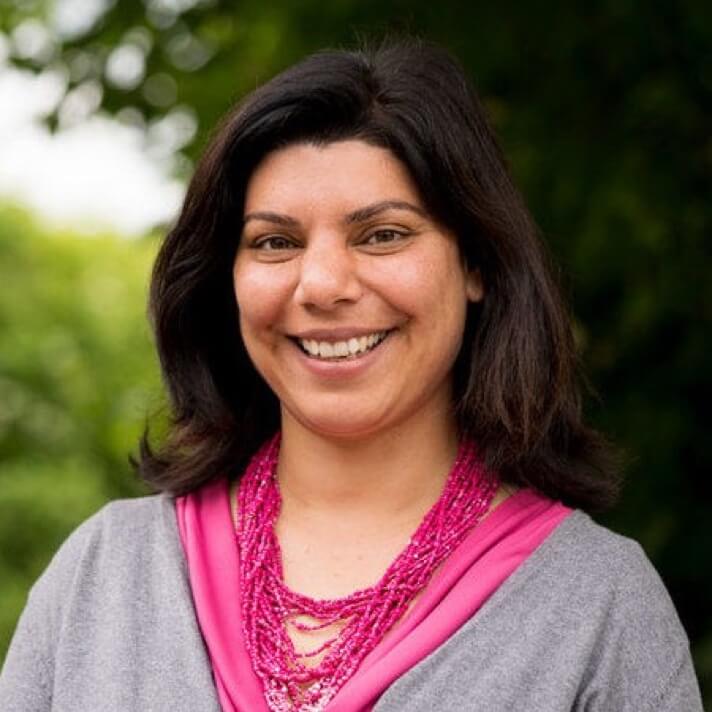

Nina Bhola, Senior Programme Officer, United Nations Environment Programme World Conservation Monitoring Centre (UNEP – WCMC)
Dr. Nina Bhola is a biodiversity conservation specialist working with intergovernmental, governmental, non-governmental partners across the world. Nina is currently a Senior Programme Officer at the United Nations Environment Programme World Conservation Monitoring Centre (UNEP – WCMC), where she works with a global team of experts to develop, resource and deliver a portfolio of area-based-related projects across land and seascapes, including connectivity and transboundary conservation. She participates in major conferences including the United Nations Inter-governmental conferences, leads and facilitates panels of experts on ocean governance; and coordinates international meetings bringing together experts from around the world to help ensure effective use of biodiversity knowledge in decision-making processes.
Nina has a lifelong passion for the environment and is motivated by working in collaboration with people across the world. She has a Ph.D. in biodiversity conservation from the University of Groningen in the Netherlands. Prior to this, she spent 5 years working with the World Wide Fund for Nature and as a researcher at The International Livestock Research Institute in Kenya, where she co-designed and co-implemented a range of sampling techniques and monitoring surveys for counting African mammals which led to several peer-reviewed publications with world-renowned ecologists.
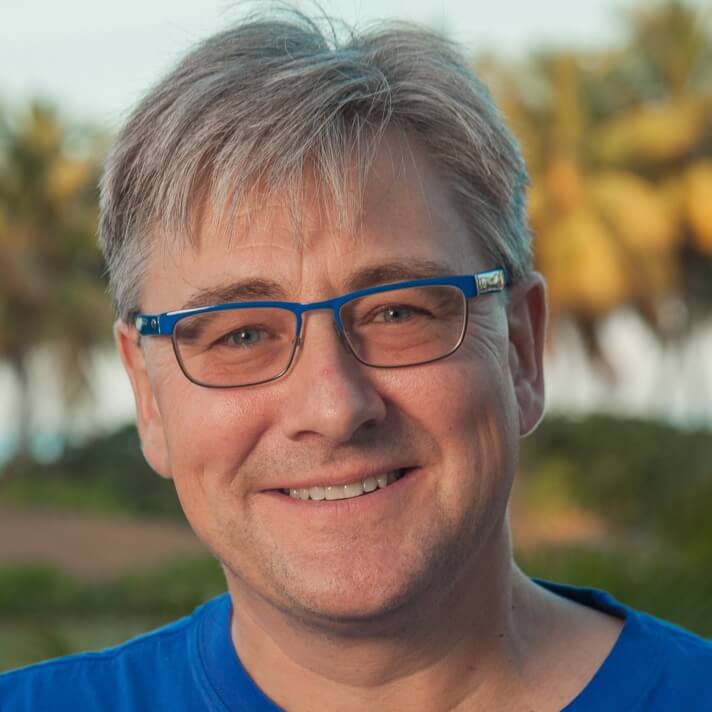

Callum Roberts, Professor of Marine Conservation, University of Exeter
Callum Roberts is Professor of Marine Conservation at the University of Exeter. His research focuses on threats to marine ecosystems and species and on finding the means to protect them. His team provided the scientific underpinning for a new ocean protection target – 30% by 2030 – which is gaining widespread international support. His latest book, Reef Life: An Underwater Memoir (Pegasus), is on the past and future of coral reefs, the world’s richest marine ecosystem. He was chief scientific advisor for the BBC’s Blue Planet II and is chief scientific advisor to Blue Marine Foundation, and Ambassador for WWF UK.
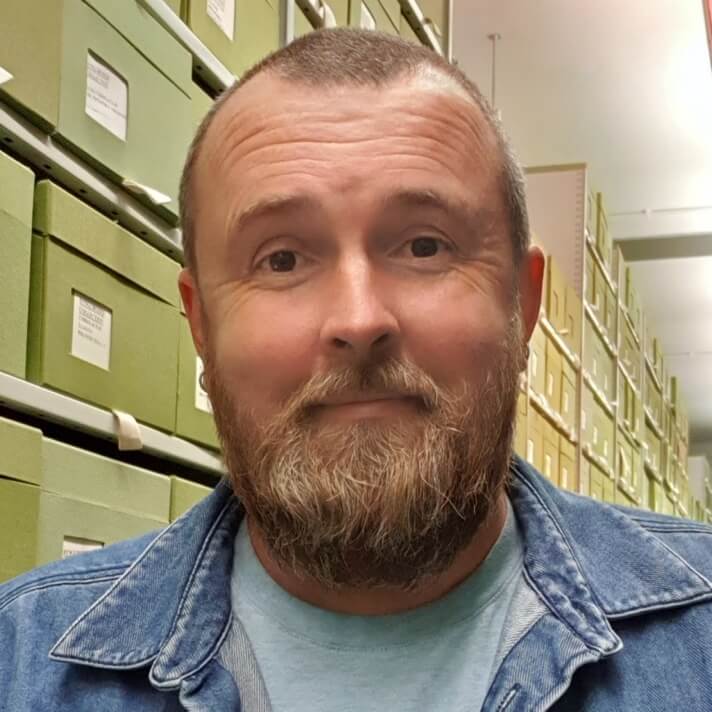

Lee Davies, Curator, Royal Botanic Gardens Kew
Lee Davies started his curatorial career as an invertebrate paleontology curator at the Natural History Museum in London, before moving to the Royal Botanic Gardens Kew. Having originally worked as Assistant Botanist on West African plants, seven years ago he moved across to the Fungarium and has found his true love with fungi.
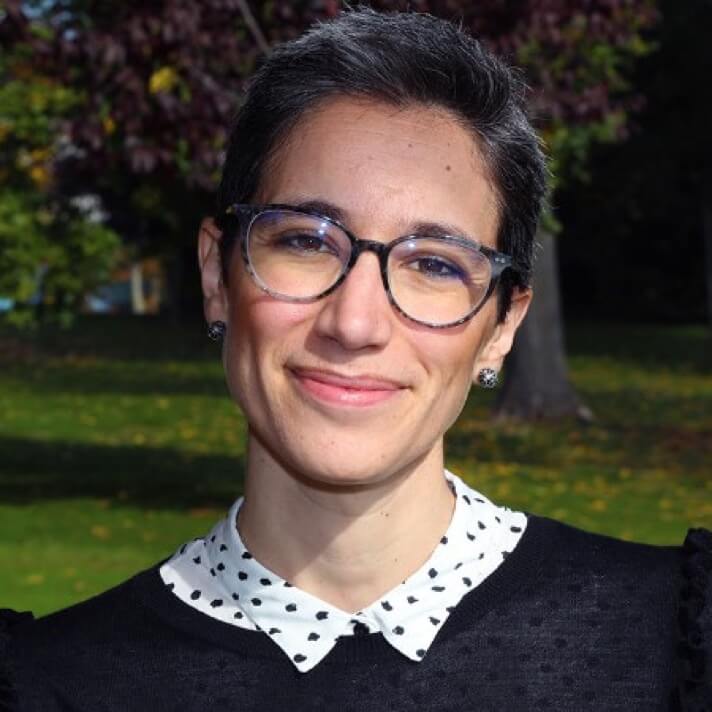

Susana Romao, Project Manager, Vizzuality
Susana Romao is project manager, linking Vizzuality, Map of Life and the E.O. Wilson Biodiversity Foundation together to create a seamless process to advance the Half-Earth Project Map. From academia to nonprofits to Vizzuality, via bio-research and an MBA, her journey has sought out the places where she can create a positive impact.
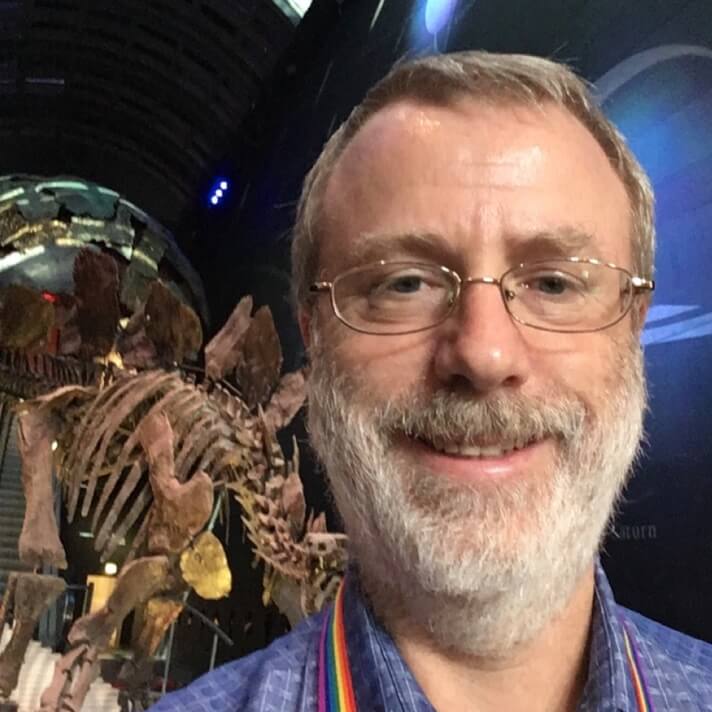

Andy Purvis, Research Leader, Natural History Museum, London
Professor Andy Purvis is a Research Leader at the Natural History Museum in London. He heads the PREDICTS project (Projecting Responses of Ecological Diversity In Changing Terrestrial Systems), which aims to model globally how local terrestrial biodiversity responds to human pressures and to use these models to project potential biodiversity futures under alternative scenarios of socioeconomic development. PREDICTS estimates the Biodiversity Intactness Index, the first indicator available on the Natural History Museum’s Biodiversity Trends Explorer. He was a Coordinating Lead Author on the first IPBES Global Assessment of biodiversity and ecosystem services, and scientific advisor on Sir David Attenborough’s documentary, “Extinction: The Facts”.
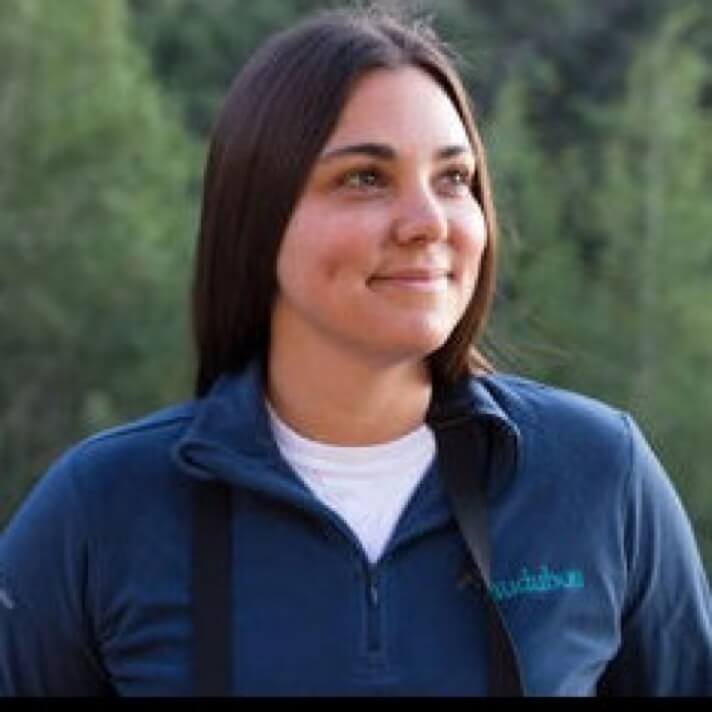

Brooke Bateman, Director of Climate Science, National Audubon Society
As the Director of Climate Science at the National Audubon Society, Dr. Brooke Bateman collaborates with scientists, volunteers, and Audubon’s Climate Initiative team to develop research focused on climate and the conservation of birds and the places they need today and in the future. In this role she led a team of scientists in developing Survival by Degrees: 389 Bird Species on the Brink, Audubon’s 2019 Birds and Climate Change Report. As director of Climate Watch, she works with community volunteers to understand how climate change currently affects birds in North America. Her research focus is on spatial ecology and conservation, emphasizing the effect that extreme weather events and climate change have on biodiversity. Brooke works closely with on-the-ground practitioners and stakeholders to link climate research to on-the-ground conservation and management actions.
Before joining the Audubon science team in 2016, Brooke conducted postdoctoral research on the influence of climate and weather on birds and marsupials with James Cook University, The University of Tasmania, and CSIRO in Australia. She also served as postdoctoral associate at the University of Wisconsin-Madison and, later as an assistant scientist, on a NASA project researching how extreme weather events affect birds. Brooke received her PhD in Zoology and Tropical Ecology at James Cook University in Australia in 2010, a Graduate Diploma of Research Methods from James Cook University in 2006, and a Bachelor of Science, cum laude, from Boston College in 2003. Brooke enjoys hiking, drawing, yoga, and birding with her daughter. Her favorite bird is the Common Loon.
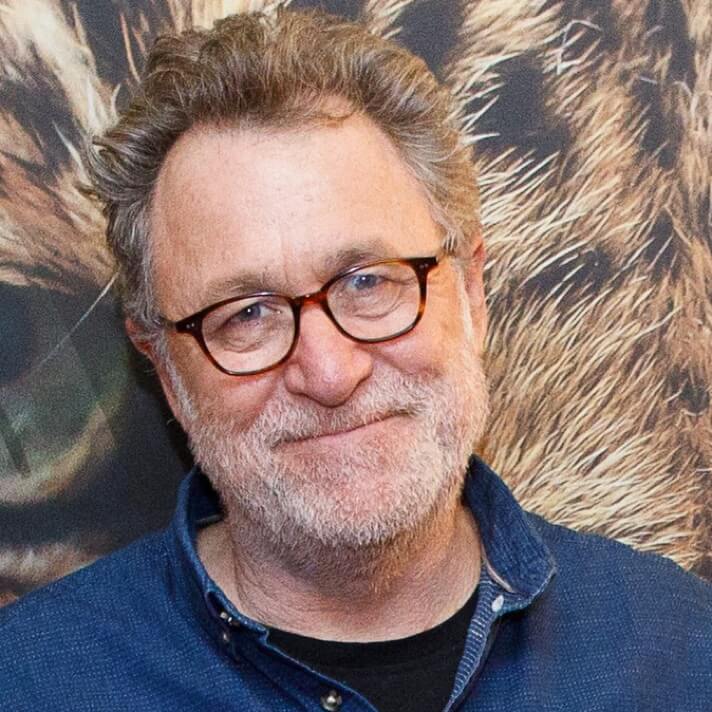

Martin Dohrn, Founder and Director, Ammonite Films
Martin Dohrn is Founder and Director of the award-winning production company, Ammonite Films. Taking refuge from the coronavirus pandemic, wildlife filmmaker Martin Dohrn set out to record all the bees he could find in his tiny urban garden in Bristol, England, filming them with one-of-a kind lenses he forged on his kitchen table. See his surprising discoveries in Nature: My Garden of a Thousand Bees, premiering nationwide Wednesday, October 20 at 8 p.m. ET on PBS (CHECK LOCAL LISTINGS), PBS.ORG/NATURE and the PBS VIDEO APP.
Martin has produced specialist landmark natural history television programs for over 20 years. During this time he has collaborated with Terra Mater, Discovery, Earth Touch, the BBC, and National Geographic, to name only a few. Over the years Martin has won several awards, including an ‘Emmy’ for Cinematography’ on the film Great Migrations, and multiple awards for Ammonite’s innovative children’s series Smalltalk Diaries. Leading the field in natural history low-light filming and macro, Martin and his team at Ammonite have painstakingly crafted these game-changing filming techniques to gain insight into the natural world. With a range of world-renowned tech including the Colour Starlight Camera and Frankencam, Ammonite can deliver 4K, colour footage from some of the darkest locations on Earth.
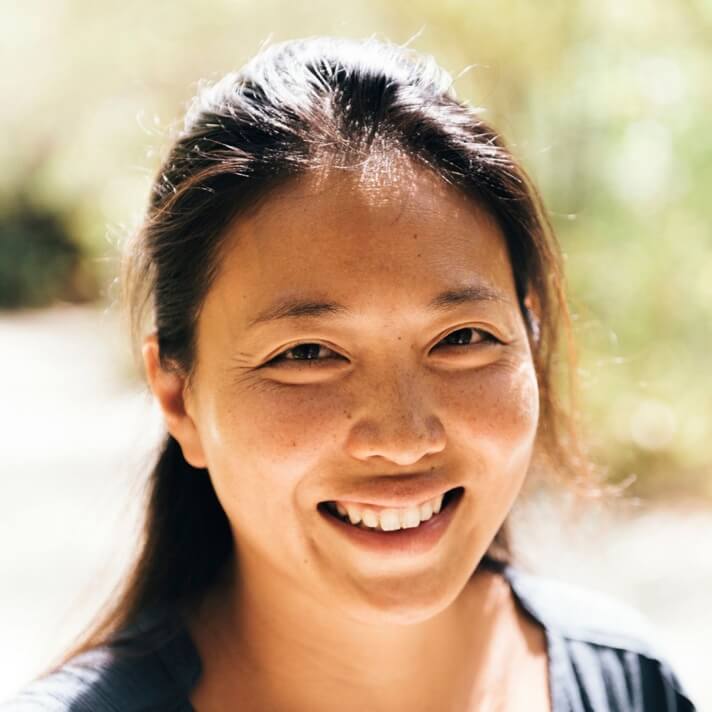

Cher Chua-Lassalvy, Co-Founder and Managing Director, Batu Batu
Cher Chua-Lassalvy is Co-founder and Managing Director of Batu Batu, a sustainably-minded off-grid island retreat in Malaysia with a focus on generating profits through tourism to create positive impacts in the local area. She is also the President and Founder of Tengah Island Conservation, a Malaysian non-profit biodiversity management NGO working within the Johor Marine Park. Batu Batu and TIC together, were the proud winners of the WTM World Responsible Tourism Silver Award for Best in Conservation & Wildlife (2019).
After completing her degree in Social Anthropology at the University of Cambridge, Cher spent ten years within the financial services industry in London before returning to Malaysia and switching sector to set-up and run the family-owned Batu Batu island project.
Cher has a particular interest in creating tourism products that support biodiversity and local communities and advocating for tourism as a force for good. As a native Johorean, she finds particular pleasure in developing projects in her home State. As part of this passion, in 2019 Cher co-created KakakTua Guesthouse & Community Space in Mersing, a tourism-for-communities project and is a founding and steering committee member of Sustainable Travel Mersing, a multi-stakeholder initiative supporting the development of Mersing District as a tourism destination supporting sustainable development.
Half-Earth Day 2020
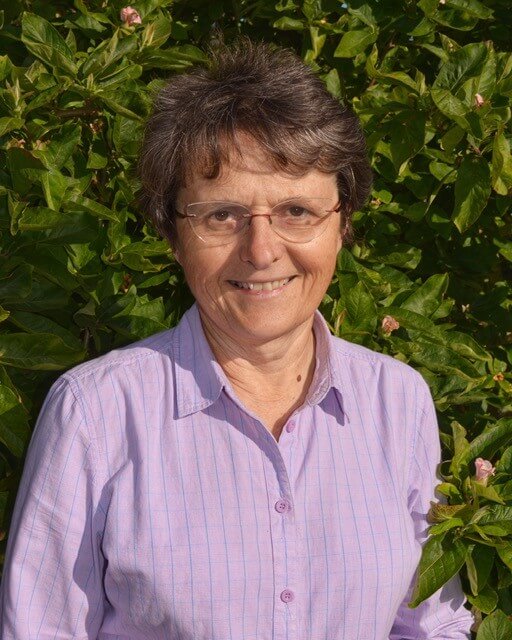

Hilary Allison, Head of the Ecosystem Assessment and Policy Support Programme, UNEP-WCMCj
Hilary Allison has been Head of the Ecosystem Assessment and Policy Support Programme at UNEP-WCMC since 2014, where she manages a team of experts engaged in work on biodiversity indicators, ecosystem assessments, engagement with multi-lateral environmental agreements, and biodiversity mainstreaming. She is a member of the Biodiversity Indicators Partnership Secretariat, worked on the latest Global Environmental Outlook published in March 2019, and, with her team, is actively supporting the Convention on Biological Diversity in the preparations for future monitoring of the post-2020 global biodiversity framework. Prior to joining UNEP-WCMC, she worked in UK environmental policy, advocacy, and communications. She is a former chair of Wildlife and Countryside Link, a coalition of 40 environmental NGOs in Britain that collaborate on policy and advocacy. For 17 years, she was Director of Policy at the Woodland Trust (one of the UK’s leading environmental NGOs), participating in several government-led processes on forest and tree health policy as well as leading advocacy work to enhance UK policy on woodland conservation. She became a Member of the Institute of Chartered Foresters in 2014 and has just been appointed by the UK government as a non-executive Forestry Commissioner.
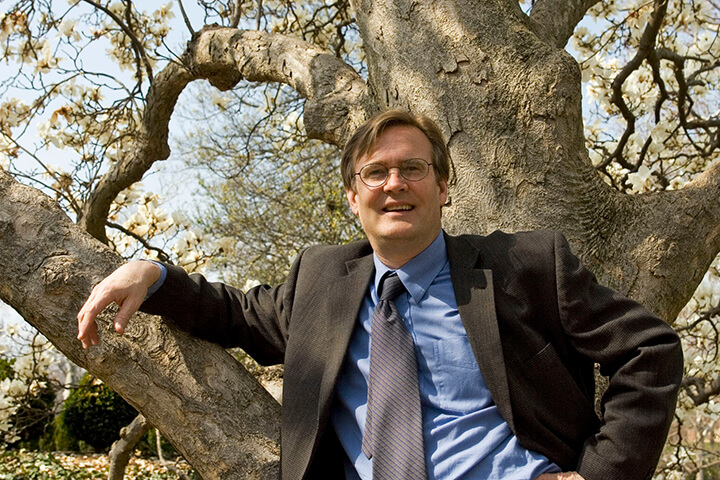

Tim Beatley, Founder and Executive Director, Biophilic Cities, Teresa Heinz Professor of Sustainable Communities, University of Virginia
Timothy Beatley is the Teresa Heinz Professor of Sustainable Communities, in the School of Architecture at the University of Virginia, where he has taught for the last thirty years. Beatley is the author or co-author of more than fifteen books, including Green Urbanism: Learning from European Cities, Native to Nowhere: Sustaining Home and Community in a Global Age, and Biophilic Cities: Integrating Nature Into Urban Design and Planning. Beatley directs the Biophilic Cities Project at UVA and co-founded UVA’s Center for Design and Health, within the School of Architecture.
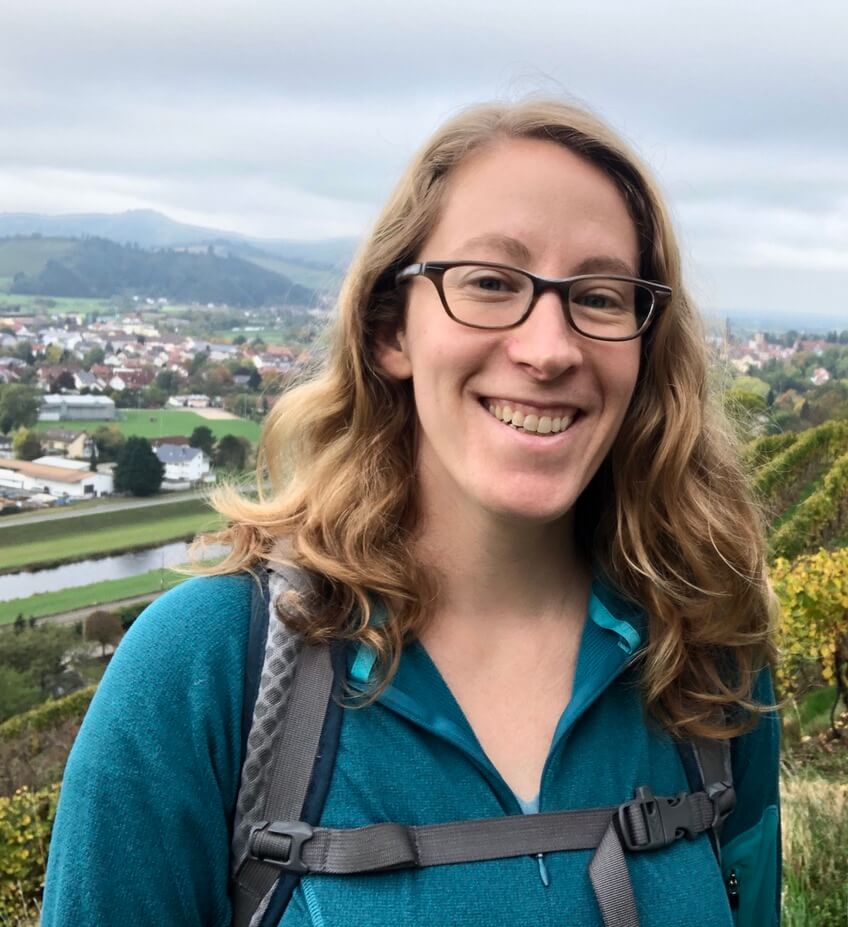

Rebecca Bright, Associate Editor and Subsidiary Rights Manager, Island Press
As an associate editor at Island Press, I acquire and edit books on the natural world, including projects on biodiversity and conservation, environmental justice, climate change, and natural history. Along with my work as an editor, I manage subsidiary rights for Island Press titles, including international and audio licensing. I moved to Washington, DC, and joined Island Press in 2010 after brief stints as a park ranger and sled dog handler in my home state of Alaska.
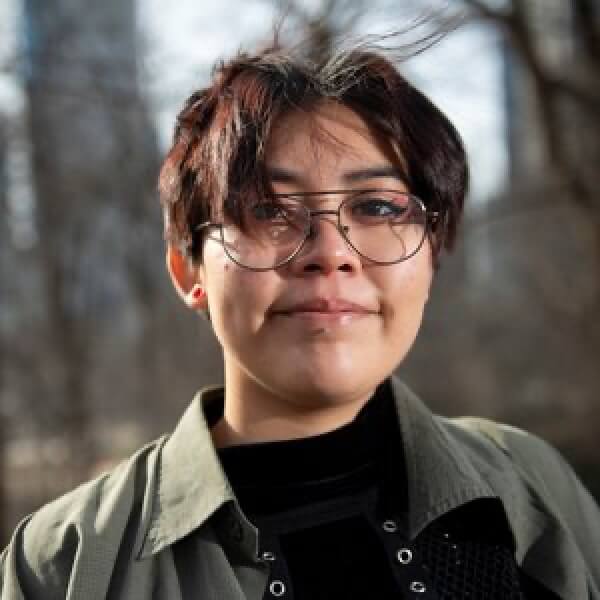

Jaime Butler, Plaintiff in Juliana v U.S., a youth-led federal constitutional climate change lawsuit
Jaime is of the Tangle People Clan, born for the Bitterwater Clan, her maternal Grandfathers are the Redhouse Clan, and her paternal Grandfathers are the Toweringhouse Clan. She grew up in Cameron, Arizona, on the Navajo Nation Reservation. In 2011, Jaime and her mother had to move from Cameron to Flagstaff because of water scarcity. Jaime and her extended family on the Reservation remember times when there was enough water on the Reservation for agriculture and farm animals, but now the springs they once depended on year-round are drying up. Jaime also sees firsthand the cultural and spiritual impacts of climate change, as participating in sacred Navajo ceremonies on the Reservation is an important part of Jaime’s life, and climate impacts are starting to harm the ability of Jamie and her tribe to participate in their traditional ceremonies. Since she was four years old, Jaime has been working to protect the earth. Beginning in elementary school, Jaime wrote letters to President Obama about her concerns for the environment. In 2011, she filed a lawsuit against the Arizona Department of Environmental Quality, also supported by Our Children’s Trust.


C.M. Butzer, Illustrator, Naturalist – A Graphic Adaptation
C.M. Butzer is an illustrator, printmaker, and cartoonist. His work has appeared in numerous books, publications, and textiles. In 2009, he wrote and drew Gettysburg: The Graphic Novel for Harper Collins. Butzer is also a storyboard and concept artist whose clients have included Facebook, Google, and Microsoft. After 13 years of residing in Brooklyn, he and his wife moved to Hilo, Hawaii, where he does not miss the winter.


Mason Clark, Student, University of Cincinnati
Mason Clark is a student at the University of Cincinnati, majoring in International Affairs and Spanish. Mason is a recent graduate from Granville High School, where he started working on a documentary project about the school’s interactive biological laboratory, or “Land Lab.” Mason Clark and Rodrigo Mayet filmed and edited “Legacy: A Land Lab Story” with the help of Brent Sodegren from the USFWS, Environmental Science teacher Jim Reading, Wildlife Photographer Brad Imhoff, and many other contributors who work with the land lab. The project was created to bring awareness to projects that help educate students about habitat and biological diversity.
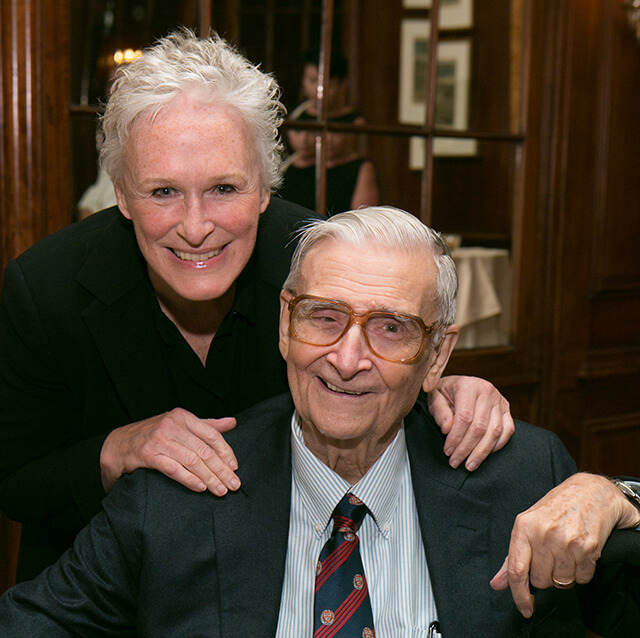

Glenn Close, Award-Winning Actress and Environmental Advocate
Glenn Close, a seven-time Academy Award nominee, made her feature debut in “The World According to Garp,” earning her first Oscar nomination. She was subsequently Oscar-nominated for “The Big Chill,” “The Natural,” “Fatal Attraction,” “Dangerous Liaisons,” and “Albert Nobbs”—for which she was also co-screenwriter, producer, and lyricist on the Golden Globe-nominated song, “Lay Your Head Down”—and most recently for “The Wife.” For the latter, she won the Golden Globe, SAG, Independent Spirit, and Critics Choice Awards as “Best Actress.” She’ll next be seen in “Hillbilly Elegy,” directed by Ron Howard.
Ms. Close made her theatre and Broadway debut in Harold Prince’s revival of “Love for Love.” Her theater credits include “The Crucifer of Blood,” “Barnum” (Tony nomination), and Tony Awards for her performances in “The Real Thing,” “Death and the Maiden,” and “Sunset Boulevard.” She reprised her role in “Sunset Boulevard” on Broadway in 2017 in a special production and starred in “The Mother of the Maid” at the Public Theater in 2018.
Starting in 2007, Ms. Close headlined the legal thriller “Damages” for five seasons, winning two consecutive Best Actress Emmys. Her 14 Golden Globe nominations include a Best Actress Award for “The Lion in Winter.” Among her 14 Emmy nominations is also a Best Actress Award for “Serving in Silence: The Margarethe Cammermeyer Story” (earning her a Peabody Award as executive producer).
In 2010, Glenn Close co-founded Bring Change to Mind, a charity dedicated to confronting, head-on, the stigma associated with mental illness. The organization works to normalize mental health conversations and build the awareness, understanding, and empathy necessary to inspire action, structural change, and the creation of new norms that will end stigma and discrimination.
Close actively supports Puppies Behind Bars and their program, Dog Tags: Service Dogs for Those Who’ve Served Us. She is a trustee emeritus of The Sundance Institute, having served as a board member for 16 years.








Paula J. Ehrlich, President and CEO, E.O. Wilson Biodiversity Foundation, Co-Founder, Half-Earth Project
Paula J. Ehrlich, DVM, PhD, is the President and CEO of the E.O. Wilson Biodiversity Foundation, where she oversees the Foundation’s broad activities to foster a knowing stewardship of our world through research and education initiatives that promote and inform worldwide protection of biodiversity. Dr. Ehrlich leads the Half-Earth Project, which is driving the research needed to better understand and care for our world, providing leadership to guide conservation efforts, and engaging people to participate broadly in the goal to conserve half the Earth and protect the bulk of biodiversity.
Dr. Ehrlich has more than 30 years of strategic scientific management and research expertise and diverse academic, non-profit, and corporate leadership experience. She was formerly President and CEO of the Drug Discovery Center of Innovation, Senior Director of Scientific Affairs at Ansaris and Locus Pharmaceuticals, and Preclinical Oncology Imaging Lead and Associate Franchise Director at Merck Research Laboratories. She has held research, clinical, and teaching positions at Tufts University School of Veterinary Medicine, the Atlantic Veterinary College, and the Royal Veterinary College.
Dr. Ehrlich has a B.S. in Zoology from Duke University, a Master’s degree in Environmental Planning from the University of Virginia, a DVM from the Virginia-Maryland Regional College of Veterinary Medicine, and a PhD in Bone Physiology from the Royal Veterinary College, University of London. She has Six Sigma Green Belt training and is a Diplomate of the American College of Veterinary Surgeons.
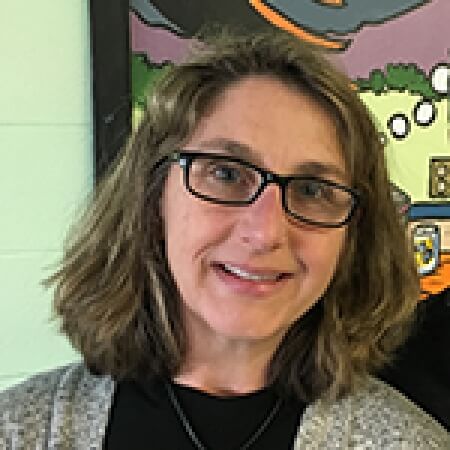

Sandra Fary, Middle School Science Teacher, Camels Hump Middle School, Richmond, Vermont
Sandra Fary is a native of Northern California who has been teaching in Vermont for over 20 years, sharing her love of nature and science with middle school students. As a Half-Earth Educator Ambassador, Sandra is bringing the project’s mission and goals to her students and fellow teachers. Currently teaching 7th and 8th graders, she uses the Half-Earth Mapping Biodiversity Activity to foster teamwork and critical thinking about conserving biodiversity while developing mapping skills. Sandra attended Half-Earth Day at the American Museum of Natural History in 2018 and participated in the mapping workshop. She took inspiration and practical resources back to her classroom and is currently engaging students in biodiversity work across the state of Vermont, organizing bioblitzes, and having students create models of “Half-School,” “Half-Yard,” and “Half-State.”
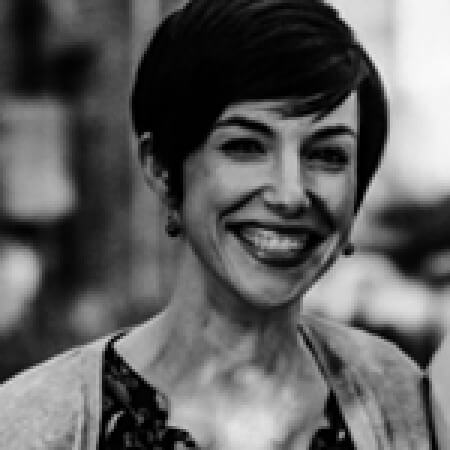

Lauren Genesky, English Teacher, North Carolina
Lauren Genesky is an English and literature instructor at Millbrook Magnet High School with Wake County Schools in North Carolina. A graduate of North Carolina State University with a master’s degree in new literacies, Lauren serves as an advisor for the North Carolina Department of Public Instruction’s English Language Arts Advisory Committee. Her work and passion both in and out of the classroom help to deepen conversations about literacy and instruction at the school and state levels and to push for diverse texts that allow students to find commonalities in content and their own experiences.
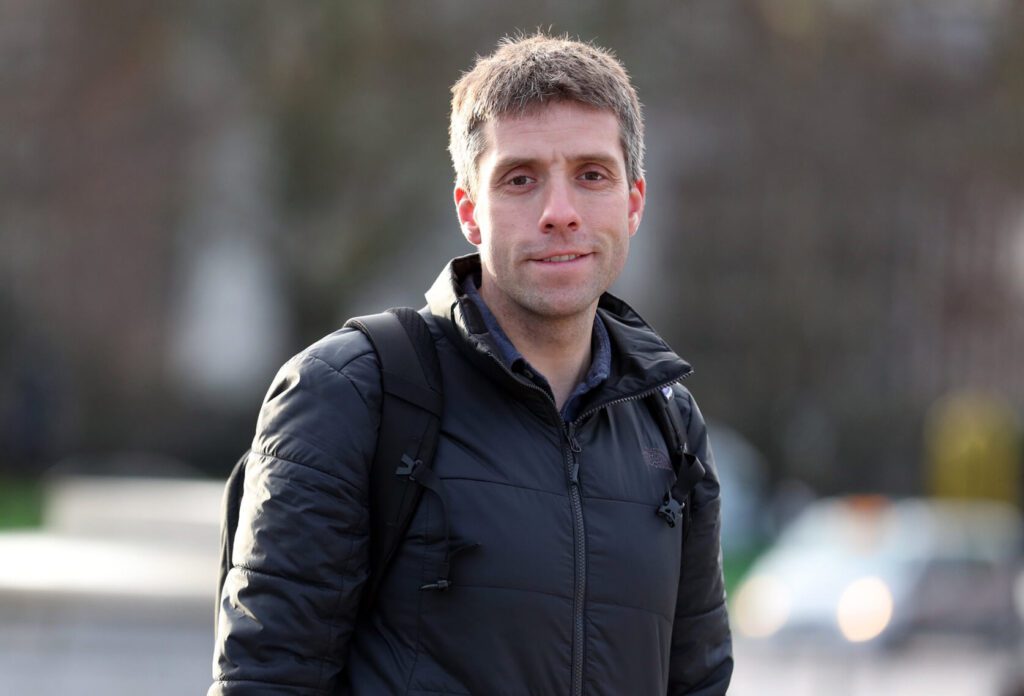


Joe Grabowski, Founder, Exploring by the Seat of Your Pants, Emerging Explorer and Fellow, National Geographic
Joe Grabowski is a science communicator and educator working to inspire the next generation of scientists and explorers. He is the founder of the non-profit Exploring by the Seat of Your Pants, which brings science, exploration, adventure, and conservation into classrooms across North America through virtual speakers and field trips. Since 2015, he’s hosted over 2,000 live events, connecting hundreds of thousands of students with leading scientists and explorers from over 80 countries. Joe is using technology to open the most remote corners of the planet to classrooms, sending textbook-sized satellite units into the field with explorers so they can live broadcast into classrooms from the most remote regions on the planet. In 2017, he was selected as a National Geographic Emerging Explorer and shortly after became National Geographic’s first Education Fellow. He founded National Geographic’s Explorer Classroom program and recently launched the Global Biodiversity Festival, a virtual event bringing biodiversity live to the general public in over 100 countries. Joe’s a top 50 finalist for the Global Teacher Prize and is a fellow of the Royal Canadian Geographical Society and Explorers Club. An avid scuba diver for the past decade, he’s always looking for an excuse to sink beneath the waves.
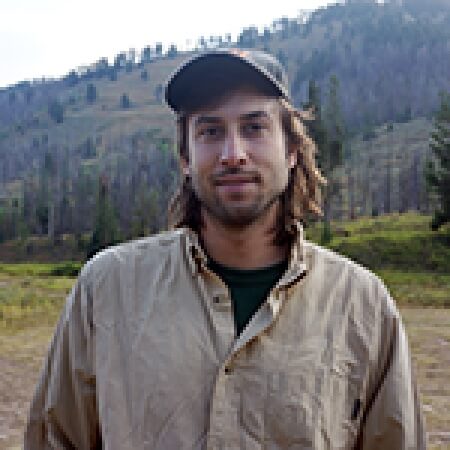

Eric Hagen, Field Naturalist Masters Student Collaborator
Eric Hagen received his master’s degree from the Field Naturalist Program at the University of Vermont in the spring of 2020 and his bachelor’s degree from Williams College in 2014. Eric is continuing to do research with the University of Vermont on the value of nature as mediated through human-nature relationships and is also working as an independent conservation consultant, focusing on ecological inventory, geospatial analysis, habitat restoration, and conservation planning.
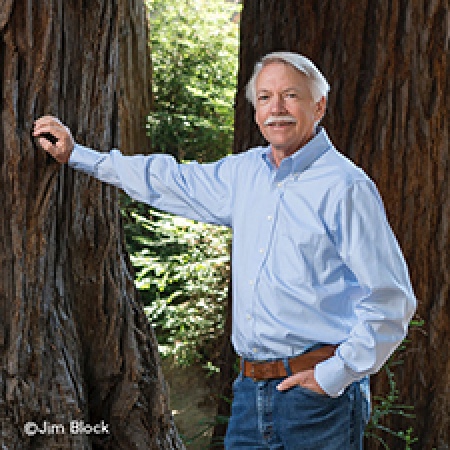

Jonathan Jarvis, Executive Director, The University of California, Berkeley, Institute for Parks, People, and Biodiversity, Former Director, National Park Service
Jonathan (Jon) B. Jarvis is the Executive Director of the Institute for Parks, People, and Biodiversity at the University of California, Berkeley, focused on bringing science to the many issues facing parks and protected areas around the world. He served for 40 years with the National Park Service as a ranger, biologist, and superintendent in national parks across the country. From 2009 to 2017, he served as the 18th Director of the National Park Service (NPS), serving for the entire Obama administration. During his tenure, he added 22 new parks, achieved the largest budget in history, and raised over $400 million in philanthropic support. Managing the NPS through its Centennial, Jarvis focused on several key areas that are critical for the future: stewardship of the places entrusted to the agency’s care; maximizing the educational potential of parks and programs; engaging new generations and audiences; bringing out untold stories of women and people of color; and ensuring the safety of National Park Service employees. In 2018, he co-authored “The Future of Conservation in America: A Chart for Rough Water” (UC Chicago Press) with his former science advisor and Clemson Professor, Dr. Gary Machlis.







Walter Jetz, Scientific Chair, E.O. Wilson Biodiversity Foundation, Professor, Yale University
Walter Jetz is a Professor of Ecology and Evolutionary Biology and of Forestry and the Environment at Yale University. He is Scientific Chair of the E.O. Wilson Biodiversity Foundation and the lead scientist for the Half-Earth Project Map. Dr. Jetz is Director of the Yale Center for Biodiversity and Global Change, which links scientists, students, and practitioners engaged in the environment, biological, infomatics, policy, or health aspects and implications of global biodiversity change. He also leads the Map of Life, which consolidates global biodiversity distribution data sources into a single asset to provide the best possible species range information and species lists for any geographic area worldwide. Dr. Jetz’ work addresses patterns and mechanisms of changing biodiversity distribution and the resulting implications on conservation and environmental management. His research combines remote sensing, phylogenetic, functional, and spatiotemporal biodiversity data with new modeling approaches and informatics tools. Dr. Jetz is particularly interested in how environmental, ecological, and macroevolutionary mechanisms combine to determine the co-occurrence of species and the structure of species assemblages. Dr. Jetz has chaired the IPBES Task Group on Biodiversity Indicators and is Co-Lead of the GEO BON Working Group on Species Distributions. Dr. Jetz was previously a professor of biological sciences at the University of California San Diego. Dr. Jetz earned his MSc in Integrative Bioscience and DPhil in Zoology from the University of Oxford.
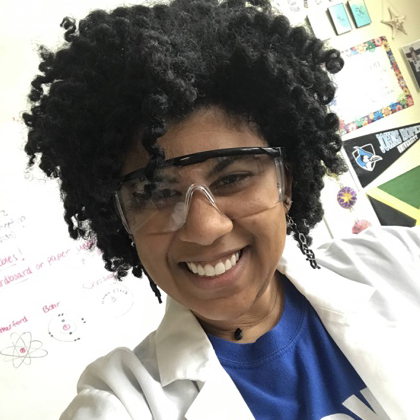

Tamara Jolly, High School Science Teacher, Baltimore City Public Schools
Tamara Jolly is an educator and lover of the natural sciences. She earned her bachelor’s degree in Biology from The Ohio State University, where she specialized in evolution, ecology, and organismal biology. After graduating, she went on to study education and earned a master’s of art in teaching from Johns Hopkins University. For the past 11 years, she has had the pleasure of teaching high school science in Baltimore City Public Schools. Tamara believes that science promotes the important skills of wonder and curiosity and works to inspire her students to explore and appreciate the natural world. Over the years, she has taught many scientific subjects, including biology, physics, chemistry, and science research techniques. Currently, she is taking a sabbatical year to attend the SUNY College of Environmental Sciences and Forestry Ranger School, where she is studying Environment and Natural Resources Conservation. She plans to become more of an expert in this content and field work in hopes of improving urban science education for future students. Tamara is also passionate about improving diversity, equity, and inclusion in our world and works as a DEI Coach, facilitating workshops with oneTILT.
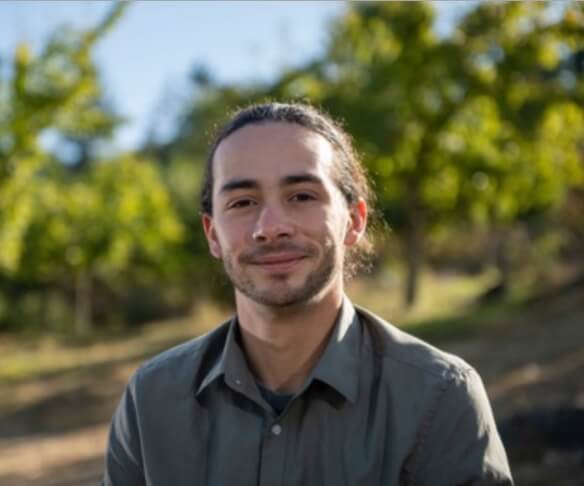

Jacob Lebel, Biodynamic Farmer, Activist, and Writer, Plaintiff in Juliana v U.S., A Youth-Led Federal Constitutional Climate Change Lawsuit
Jacob is an activist, writer, and biodynamic farmer who was born in Quebec and lives in Roseburg, Oregon. At the age of 18, he joined 20 other American children and teenagers in bringing the first youth federal climate change lawsuit against the United States government, arguing that the government has a constitutional duty to not destroy the lives and security of young people by causing climate change and environmental destruction. Since then, he has written about environmental and social issues on national and international outlets, and spoken to youths and adults at multiple universities and schools, and in interviews with CNN, CBC, the Weather Channel, Radio Canada, and other platforms. He aspires to help create self-sustainable living ecosystems for human communities worldwide and to promote unity based on a shared reflection on the importance of our environment.
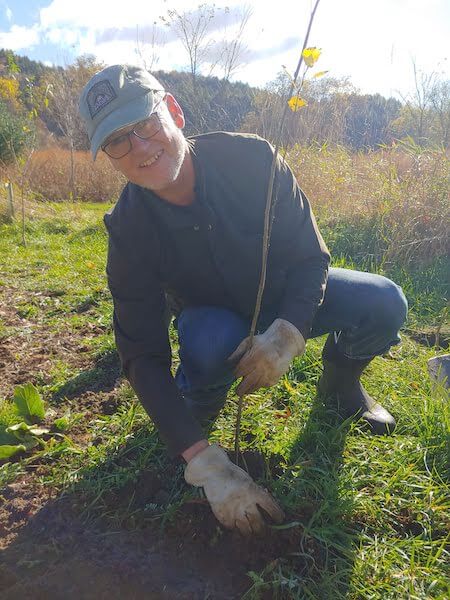

Curt Lindberg, Vermont Community for a Half-Earth Future
Curt Lindberg has had a long interest in complexity science and what advances in this young field suggest for improving the health and well-being of people, communities, and the natural environment. His dedication to this new science was inspired by Edward O. Wilson and his writings on biodiversity, ant behavior, and his book Consilience. Since moving to Vermont several years ago, he has worked to spread awareness of the Half-Earth Project and its call for action. Towards these ends, he joined with Vermonters to co-found the Vermont Community for a Half-Earth Future. Lindberg holds a doctorate degree in complex systems from the University of Hertfordshire.




Dennis W. Liu, VP of Education, E.O. Wilson Biodiversity Foundation
Dennis Liu is Vice President of Education at the E.O. Wilson Biodiversity Foundation. A nationally recognized expert in science education, Dennis Liu directed the production of educational media at Howard Hughes Medical Institute, and before that, with VideoDiscovery and Microsoft, designing multimedia science education programs. His signature programs with the E.O. Wilson Biodiversity Foundation include the Half-Earth Project Educator Ambassadors Program and the Half-Earth Project Chairs and Scholars Program.
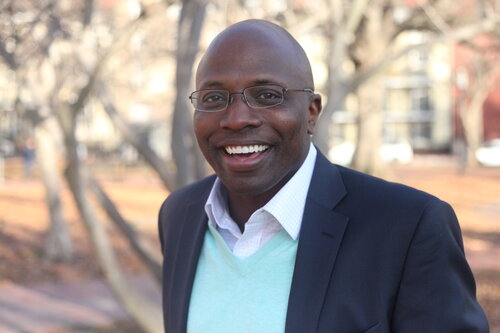

Reggie Love, VP and Head of External Affairs, HRS Management, Co-Founder, Apollo Global Management
Reggie Love is Vice President and Head of External Affairs for HRS Management, where he is responsible for communication strategy, brand management, and long-term strategic planning. Earlier in his career, Love served at the White House as personal aide to President Barack Obama, where he was responsible for assisting with the coordination and completion of the President’s daily schedule as well as coordinating long- and medium-range planning.
Love is a graduate of Duke University, holds an MBA from the Wharton School at the University of Pennsylvania, and is the author of the New York Times Best Seller, Power Forward, My Presidential Education, a collection of stories and principles learned while working for President Obama and as a team captain for the Duke Blue Devils under Mike Krzyzewski. Love serves on the boards of the National Summer Learning Association, Center for Environmental Farming Systems, Organizing for Action, Military Bowl Committee, Team Works, The New Renaissance, and the Caribbean Educational and Baseball Foundation.
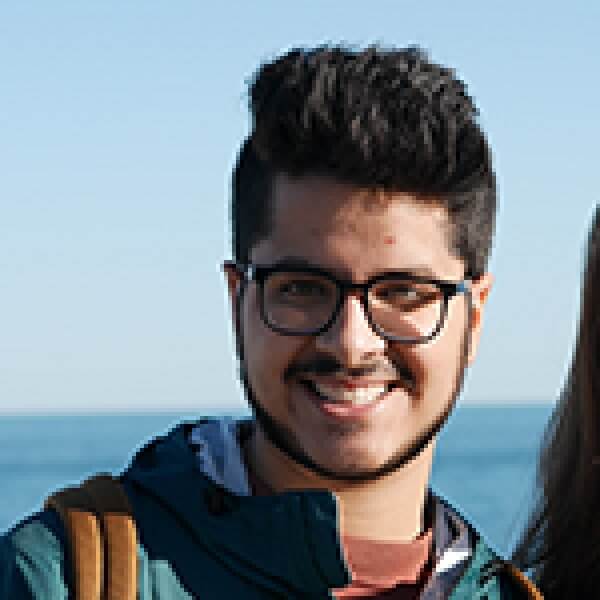

Rodrigo Mayet-Velasco, Student, Ohio State University
Rodrigo Mayet-Velasco is a third-year student at the Ohio State University currently working towards a bachelor’s in landscape architecture. He lives in Columbus as a full-time student. In his free time, Rodrigo works on multimedia projects, typically helping as the filmmaker and editor for other people’s projects or with organizations within OSU or around Columbus, such as some filming for the YMCA’s Youth and Government program.
Rodrigo is close friends with Mason Clark, a recent high school graduate and first-year at the University of Cincinnati. Together, they filmed, organized, and edited “Legacy: A LandLab Story,” a documentary about an educational nature preserve in Granville, Ohio. Rodrigo and Mason took this project on as a way to educate their community about the global impacts of biodiversity and habitat loss. Prior to the documentary, a large part of the community was unaware of the Land Lab and all of the work that the school district and its students do there.




Craig Mills, CEO, Vizzuality
Craig Mills is the CEO of Vizzuality. He provides strategic oversight for the mapping core of the Half-Earth project, which brings to life the species distribution data and analytics that will guide us towards the best opportunities for protecting the most species.
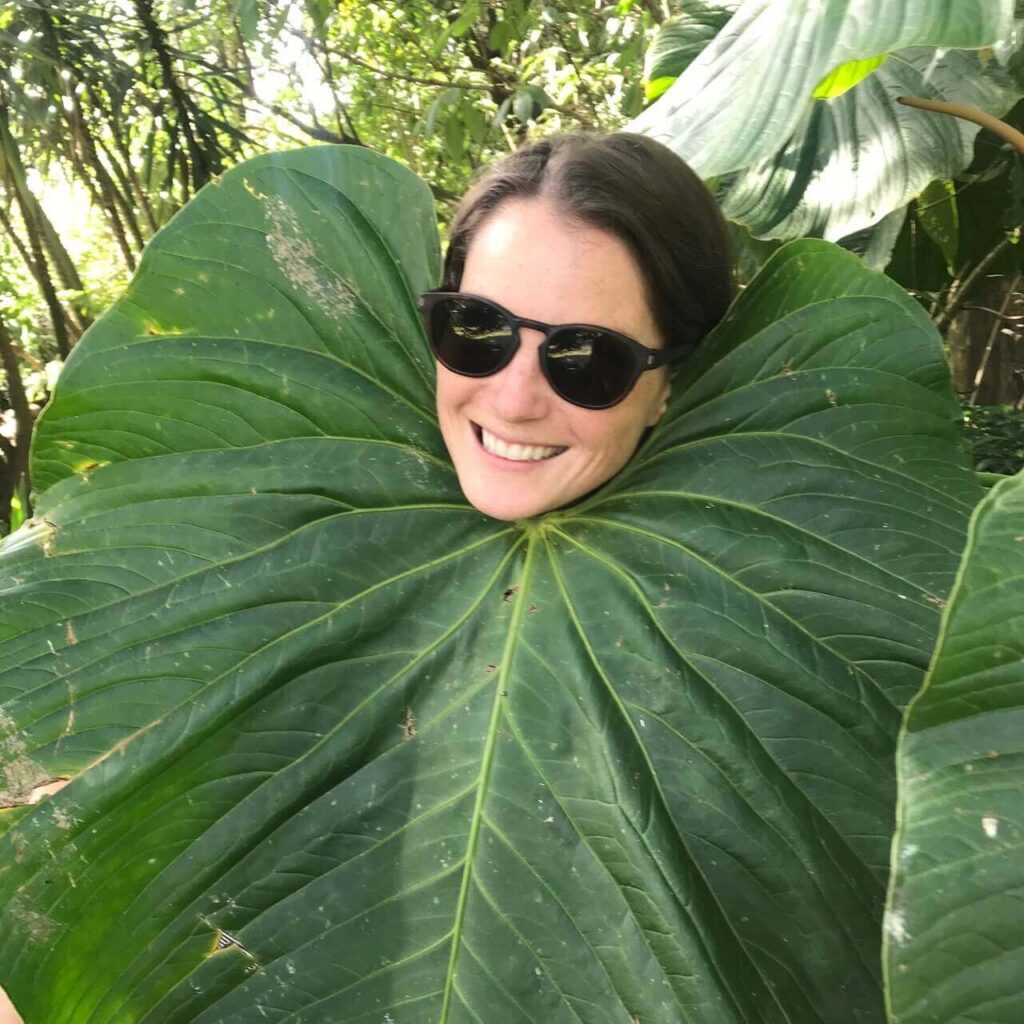

Erika Mitkus, Biology and Science Ethics Teacher, Knowles Fellow, Director of KELP
Erika Mitkus started her career as an experiential and outdoor educator and made the shift into the classroom six years ago. She currently teaches biology and science ethics at the Governor’s Academy in Massachusetts. Erika is also the director of KELP, Knowles Experiential Learning Project, which is a small working group within the Knowles Teacher Initiative. With the support of Knowles, she was able to organize professional development experiences in the Galápagos Islands for thirty teachers in the summer of 2019. KELP fellows have recently published a resource bank of multidisciplinary STEM lessons, all of which are anchored in phenomena from the Galápagos ecosystem, and are working to share them with teachers nationwide. The resource bank is available at www.teachkelp.com. Erika also works as a consultant for other projects focused on science education, including the Biograph2.0 project on complex systems in biology and the DeTECT project, which is focused on developing argumentation and epistemic thinking skills in high school students. When she needs a break from work, she enjoys backcountry skiing, trail running, reading, and traveling as much as possible. She lives a short walk from the ocean in York, Maine.




Piotr Naskrecki, Associate Director, E.O. Wilson Biodiversity Laboratory, Gorongosa National Park
Half-Earth Chair Dr. Piotr Naskrecki is an entomologist, conservation biologist, author, and photographer based at the Museum of Comparative Zoology at Harvard University and a member of the Half-Earth Council. He currently directs the E.O. Wilson Biodiversity Laboratory at Gorongosa National Park in Mozambique, where he trains a new cadre of Mozambican biologists and conservationists and helps rebuild the park, which suffered during the recent civil war in that country. His scientific interests focus on the evolution of communication and sound production in insects and other animals and the phylogenetic reconstruction of insect relationships. He is the author of over 50 scientific, peer-reviewed papers and book chapters.
Piotr’s work focuses on projects that include invertebrate animals in conservation practices, and he strives to promote understanding, appreciation, and conservation of “non-charismatic” animals. In his popular writing and photography, he tries to capture both their beauty and their roles as vital, often critically important members of the planet’s ecosystems. He is one of the founding members of the International League of Conservation Photographers (ILCP), and his photographs and nature writing have been published in a number of national and international publications, including The Smithsonian Magazine, Natural History, National Wildlife, National Geographic, BBC Wildlife Magazine, BBC Knowledge, Terre Sauvage, Time magazine, Ranger Rick, and many others. His books illustrate a multitude of threats faced by invertebrate animals and other organisms (“The Smaller Majority” “A Window on Eternity”), explore ancient organisms and ecosystems around the globe (“Relics”), and his most recent title (“Hidden Kingdom”) showcases the diverse insect fauna of Costa Rica.
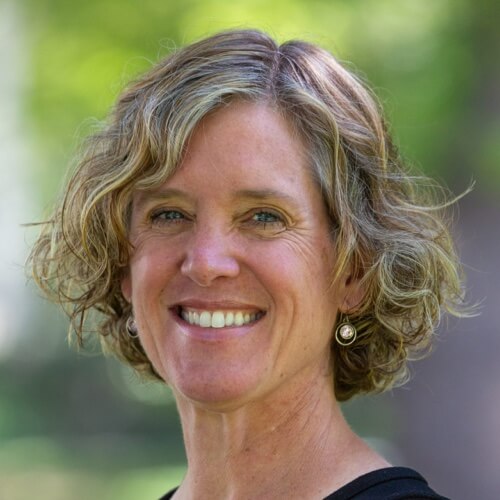

Jennifer Norris, Deputy Secretary for Biodiversity and Habitat, California Natural Resources Agency
Dr. Norris is Deputy Secretary for Biodiversity and Habitat at the California Natural Resources Agency. She is responsible for overseeing their statewide biodiversity strategy, driving landscape-scale restoration through partnerships, and “cutting green tape.” Jennifer most recently served as the field supervisor for the Sacramento Fish and Wildlife Office at the US Fish and Wildlife Service. There, she oversaw the implementation of the Endangered Species Act (ESA) and other laws for over 100 listed and trust species across north-central California. Over the course of her career, Jennifer has held several conservation positions, including Deputy Field Supervisor for the Bay Delta Fish and Wildlife Office, the Rio Grande ESA Coordinator for the Albuquerque Fish and Wildlife Office, State Biologist for the New Mexico State Land Office, and an environmental consultant in San Francisco. She has a B.S. in Resource Policy and Planning from Cornell University, an M.S. in Conservation Biology from the University of Michigan, and a Ph.D. in Ecology from the University of New Mexico. When she is not at work, she can be found exploring beaches, forests, or deserts with her family.
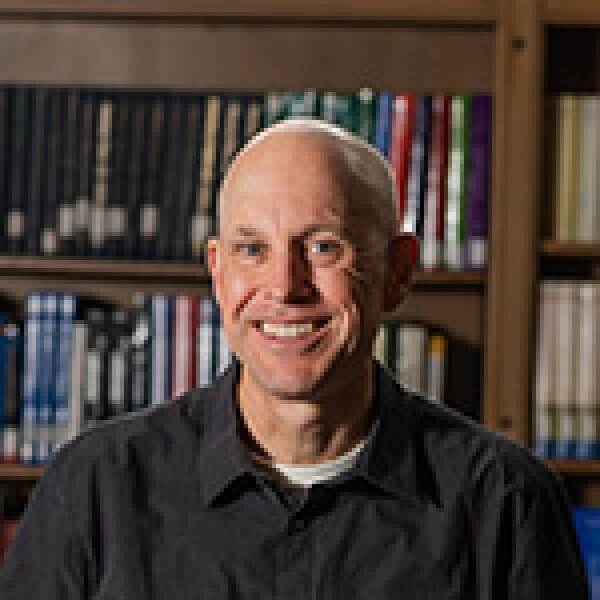

Jim Ottaviani, Writer, Naturalist – A Graphic Adaptation
Jim is the bestselling author of fourteen (and counting) graphic novels about scientists. His most recent books include Astronauts: Women on the Final Frontier, illustrated by Maris Wicks, featuring the first women astronauts, Hawking, illustrated by Leland Myrick, and The Imitation Game, a biography of Alan Turing illustrated by Leland Purvis. His books have been translated into over a dozen languages and have received praise from publications ranging from Nature and Physics World to Entertainment Weekly and Variety.
He lives in Michigan and comes to comics via careers in nuclear engineering and librarianship. Find out more at www.gt-labs.com and on Twitter at @gtlabsrat.
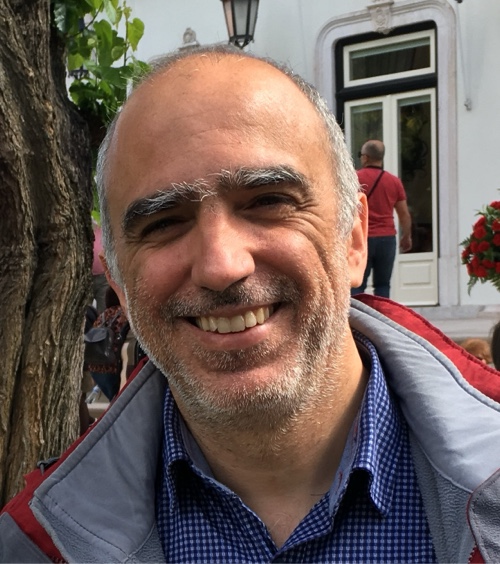

Henrique M. Pereira, Co-Chair, GEO Biodiversity Observation Network, Professor of Biodiversity Conservation, iDiv Germany
Henrique Pereira is one of the world’s leading experts on global biodiversity change. He has worked both as a researcher and as a practitioner, having served as the Director of Peneda-Gerês National Park and as the coordinator of the Portugal Millennium Ecosystem Assessment. Since 2013, he has been the Professor of Biodiversity Conservation at iDiv, the German Center for Integrative Biodiversity Research at Martin Luther University Halle-Wittenberg and an Invited Professor at InBio, Universidade do Porto (Portugal). He is the co-chair of the Biodiversity Observation Network of the Group on Earth Observations and a member of the Taskforce on Scenarios and Models from the Intergovernmental Platform on Biodiversity and Ecosystem Services. He has published over one hundred scientific papers and reports on biodiversity issues.
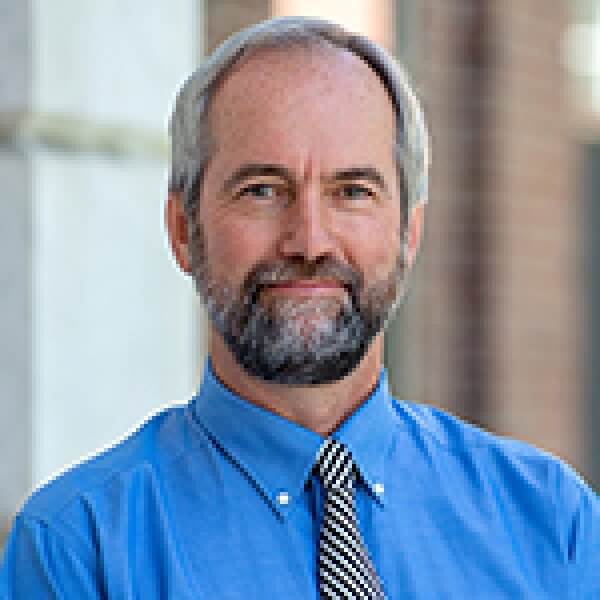

Walter Poleman, Senior Lecturer, Director of Ecological Planning Program, University of Vermont
Walter Poleman specializes in natural history, place-based landscape analysis, and education for sustainability. He teaches courses in natural history and human ecology, landscape inventory and assessment, and conservation science. He is co-director of the Field Naturalist Ecological Planning Graduate Program and serves as faculty advisor to the Sustainability Learning Community. Walter is the founding director of the PLACE (Place-based Landscape Analysis and Community Engagement) Program and co-coordinator of the Greater Burlington Sustainability Education Network. He coordinates the Rubenstein School’s dual master’s degree program with Vermont Law School and teaches ecology there each summer. His teaching awards include the President’s Distinguished Senior Lecturer Award, the Kroespsh-Maurice Award for Excellence in Teaching, and the Outstanding Service-Learning Faculty Award.
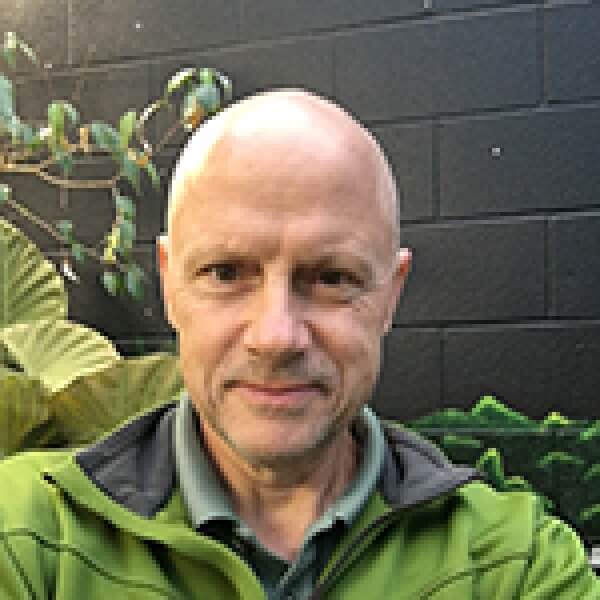

Jim Reding, AP Environmental Science and Ecology Teacher
Over the last 30 years, Jim Reding has taught ecology, environmental studies, advanced placement environmental science, and a class on sustainable agriculture. He is currently employed by the Granville Exempted Village Schools in Granville, Ohio. There, he manages a garden created by his students that was named the Growing to Green Educational Garden of the Year and an outdoor learning space (the Land Lab) that was named the Ohio School Board Association’s Outstanding Project. He was selected as a Fulbright Scholar and received the Environmental Education Council of Ohio Formal Educator of the Year award, The North American Association of Environmental Education Teacher of the Year award, and the Arthur S. Holden Teacher Award for Excellence in Science Education. He lives in Granville, Ohio, with his wife, four kids, two dogs, and two cats. His hobbies are all outdoors.
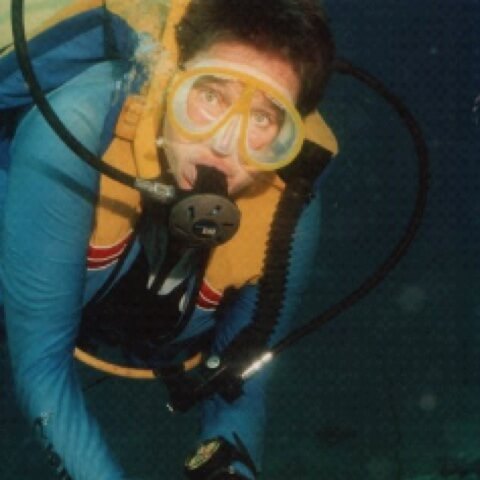

Sibylle Riedmiller, Founder, Chumbe Island Coral Park
German-born social scientist and a former aid worker with UNESCO and the German Aid Agency GTZ/GIZ in Latin America and Africa has since 1991 created the award-winning not-for-profit Chumbe Island Coral Park Ltd (CHICOP, www.chumbeisland.com), which has turned formerly uninhabited Chumbe Island in Zanzibar/Tanzania into a forest reserve and the first privately managed marine park in the world, where a small ecolodge has from 2000 fully funded park management and environmental education programs for local school-children, teachers, fishers and other community members.
Aiming at close to zero carbon footprint and impact on the environment, the Visitors’ Centre and seven bungalows were built with state-of-the-art eco-architecture, where all energy is solar, water is generated by rainwater catchment and sewage is totally avoided by composting toilets and vegetative greywater filtration systems. Sibylle Riedmiller is also co-founder of The Long Run (TLR, www.thelongrun.com), an international network of Privately Protected Areas founded by the renowned German entrepreneur Jochen Zeitz, member of Leadership for Conservation in Africa (LCA, www.lcafrica.org), Member of the IUCN World Commission of Protected Areas (WCPA) and the Chairperson of the Conservation Committee of the Hotels Association of Tanzania (HAT, www.hat-tz.org). In 2016, she received the Bundesverdienstkreuz am Bande (German Order of Merit). Contact: sibylle@chumbeisland.com





Paul Simon, Legendary Recording Artist
In June 2017, net proceeds from Paul Simon’s month-long U.S. tour were donated to benefit the Half-Earth Project, an initiative of the E.O. Wilson Biodiversity Foundation, which is committed to stopping the species extinction crisis by conserving half the planet’s lands and oceans. Paul Simon is a member of the Half-Earth Council and a member of the Board of Directors of the E.O. Wilson Biodiversity Foundation.
During his distinguished career, Paul Simon has been the recipient of many honors and awards, including 16 Grammy Awards. In 2003, he received a Grammy Lifetime Achievement Award for his work as half of the duo Simon & Garfunkel. Simon is a member of the Songwriters Hall of Fame and has been inducted into the Rock ‘n’ Roll Hall of Fame both as a member of Simon & Garfunkel and as a solo artist. Simon was a recipient of the Kennedy Center Honors in 2002 and was named one of Time magazine’s “100 People Who Shape Our World” in 2006. In 2007, Simon was awarded the inaugural Library of Congress Gershwin Prize for Popular Song, which recognizes the profound and positive effect of popular music on the world’s culture. He was elected to the American Academy of Arts and Sciences in 2011. In 2012, he was named the recipient of the prestigious Polar Music Prize along with Yo-Yo Ma. Simon’s philanthropic work includes the co-founding of the Children’s Health Fund (CHF), which donates and staffs 53 mobile medical units that bring health care to low-income children and their families in urban and rural locations around the United States. Since its inception in 1987, CHF has provided more than 3 million doctor/patient visits. Over his career, Simon has also raised millions of dollars for worthy causes as varied as Autism Speaks, The Nature Conservancy, CURE, and Tibet House.



Kristine Tompkins, Co-Founder and President, Tompkins Conservation, UN Patron of Protected Areas
Kristine McDivitt Tompkins is the cofounder and president of Tompkins Conservation and the UN Patron of Protected Areas. The former CEO of Patagonia, Inc, she has spent almost thirty years protecting and restoring Chile and Argentina’s wild beauty and biodiversity through creating national parks, restoring wildlife, inspiring activism, and fostering economic vitality as a result of conservation. A key figure behind the establishment of 13 national parks in Argentina and Chile, she has helped to protect approximately 14.5 million acres through Tompkins Conservation and its partners. With her late husband Douglas Tompkins, who passed away in 2015, Kristine is considered one of the most successful national park-oriented philanthropists in history. In 2017, she received the Carnegie Medal of Philanthropy. Her 2020 TED Talk, entitled “Let’s Make the World Wild Again,” discusses the critical role we all have to play to heal the planet. A global leader in conservation, she currently serves as Chair of National Geographic Society’s Last Wild Places campaign. (Photo credit: George Steinmetz)




Jeff Ubben, Founder and Managing Partner, Inclusive Capital Partners, Board Member, E.O. Wilson Biodiversity Foundation
Jeff Ubben is a Founder, Managing Partner, member of the Management Committee, Chief Investment Officer and Portfolio Manager of Inclusive Capital Partners. Mr. Ubben is a retired Founder of ValueAct Capital, where he was Chief Executive Officer, member of the Management Committee, Chief Investment Officer, and Portfolio Manager. Mr. Ubben is also a Founder and served as Portfolio Manager of the ValueAct Spring Fund. Prior to founding ValueAct Capital in 2000, Mr. Ubben was a Managing Partner at Blum Capital Partners for more than five years. Mr. Ubben is a director of The AES Corporation, where he is a member of the Compensation and Financial Audit Committees, AppHarvest, Enviva Partners, LP, where he is a member of the Compensation and Health, Safety, Sustainability and Environmental Committees, and Nikola Corporation. He is the former chairman and director of Martha Stewart Living Omnimedia, Inc., and a former director of Catalina Marketing Corp., Gartner Group, Inc., Mentor Corporation, Misys plc, Sara Lee Corp., Twenty-First Century Fox Inc., Valeant Pharmaceuticals International, Willis Towers Watson plc, and several other public and private companies. In addition, Mr. Ubben serves on the boards of Duke University, The Nature Conservancy’s NatureVest, and the E.O. Wilson Biodiversity Foundation, and formerly served as Chair of the National Board of the Posse Foundation for nine years. He has a B.A. from Duke University and an M.B.A. from the Kellogg School of Management at Northwestern University.






E.O. Wilson, Biologist and Naturalist
Edward O. Wilson is currently Honorary Curator in Entomology and University Research Professor Emeritus at Harvard University, Chairman of the E.O. Wilson Biodiversity Foundation Board of Advisors, and Chairman of the Half-Earth Council. He is generally recognized as one of the leading scientists in the world. He is also recognized as one of the foremost naturalists in both science and literature, as well as a synthesizer in works stretching from pure biology across to the social sciences and humanities. Wilson is acknowledged as the creator of two scientific disciplines (island biogeography and sociobiology), three unifying concepts for science and the humanities jointly (biophilia, biodiversity studies, and consilience), and one major technological advance in the study of global biodiversity (the Encyclopedia of Life). Among more than one hundred awards he has received worldwide are the U.S. National Medal of Science, the Crafoord Prize (equivalent of the Nobel, for ecology) of the Royal Swedish Academy of Sciences, and the International Prize of Biology of Japan; amamnd in letters, two Pulitzer Prizes in non-fiction, the Nonino and Serono Prizes of Italy and COSMOS Prize of Japan. For his work in conservation, he has received the Gold Medal of the Worldwide Fund for Nature and the Audubon Medal of the Audubon Society.





Dawn Wright, Chief Scientist, Esri, Board Member, E.O. Wilson Biodiversity Foundation
Dr. Dawn Wright is Chief Scientist of the Environmental Systems Research Institute (aka Esri), a world-leading geographic information system (GIS) software and data science company. Core to Esri’s mission is to inspire and enable people to positively impact their future by connecting them with the geoanalytic knowledge needed to make the critical decisions shaping the planet. Hence, Esri believes that geography is at the heart of a more resilient and sustainable future.
As Chief Scientist, Dawn is responsible for strengthening the scientific foundation for Esri software and services, while representing Esri to the scientific community. As such, she has served on many advisory boards including the NOAA and EPA Science Advisory Boards, the National Academy of Sciences Ocean Studies Board, and the Science Advisory Boards of Conservation International, COMPASS Science Communication, and the Ocean Discovery XPRIZE. Dawn is also a Professor of Geography and Oceanography at Oregon State University. She is a Fellow of the American Association for the Advancement of Science, the Geological Society of America, the American Association of Geographers, and the California Academy of Sciences, as well as Stanford University’s Leopold Environmental Leadership Program (now the Earth Leadership Program). She enjoys road cycling, 18th-century pirates, her dog Riley, and SpongeBob SquarePants. Follow her on Twitter @deepseadawn.
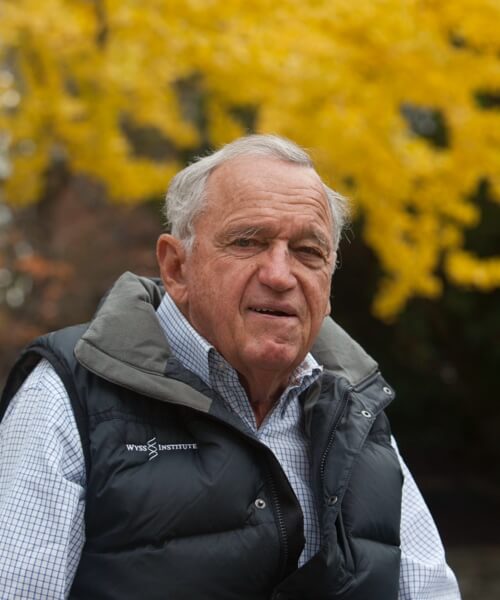

Hansjörg Wyss, Founder and Chairman, The Wyss Foundation
Hansjörg Wyss is a philanthropist dedicated to conserving the planet’s remaining wild places, expanding opportunities for women, advancing social justice causes, and accelerating breakthroughs in medicine and science, among other issues. Since establishing the Wyss Foundation in 1998, Hansjörg has invested more than $650 million to permanently protect more than 55 million acres of public lands and waters in North and South America, Australia, Africa, central Asia, and Europe – more than any other living individual. He recently launched a 10-year, $1 billion campaign to help protect at least 30% of the planet in a natural state by 2030. Elsewhere, his support has enabled Harvard University and four Swiss universities to create multi-disciplinary scientific institutes that are producing ground-breaking research in applied medicine and biology. A native of Switzerland who now lives in Wyoming, Hansjörg’s philanthropy is made possible by his success in starting and growing a medical research and design company, Synthes USA, whose products have helped millions of patients recover from skeletal and soft tissue injuries.
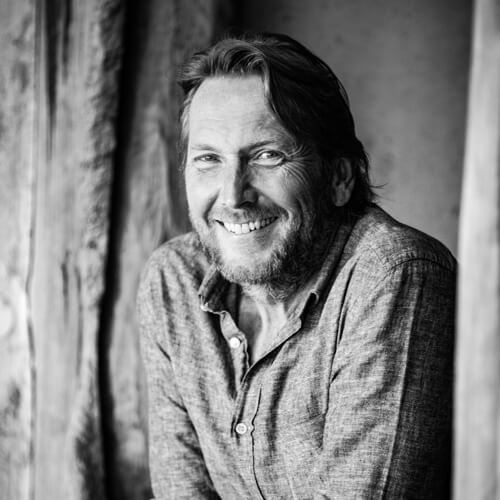

Jochen Zeitz, Founder, The Long Run
Jochen Zeitz is the President, CEO, and Chairman of the Board of Harley Davidson, Inc. Previously Zeitz served 18 years as Chairman and CEO of PUMA (the youngest CEO in German history), during which time he turned PUMA from near-bankruptcy into one of the top 3 sporting goods brands in the world, growing sales to $4 billion and share price by 4000%. While at PUMA, Zeitz also conceived and pioneered the ground-breaking Environmental Profit and Loss account (E P & L) that puts a monetary value on environmental impacts across a business’ supply chain, inspiring a new internationally recognized environmentally and socially conscious business model. Zeitz retired from PUMA and the Kering Group in 2013 to focus on his environmental, sustainability, and philanthropic projects.
In 2014, Zeitz co-founded The B Team with Sir Richard Branson, an initiative that includes 24 of the world’s top business leaders promoting socially and environmentally conscious business practices across the globe. Zeitz is also a Board Member of Cranemere, the Kenya Wildlife Service (KWS), and he was previously a Board Member and Chair of the Sustainability Committee for Wilderness Safaris and Kering, the international luxury goods group (formerly PPR) for whom he developed its global sustainability strategy.
Recognized as one of the world’s leaders in sustainable business, conservation, and philanthropy, Zeitz conserves 50,000 acres of wildlife habitat in Kenya and launched Segera Retreat in 2012, a completely sustainable, luxury eco-safari retreat so he could share his passion for Kenya with the world. Recognized by the Kenya Tourism Regulatory Authority as the only 5-star safari lodge in Kenya, Segera has since become Africa’s “must-see” destination and is celebrated as one of the Top 20 places to visit worldwide by international press including the New York Times and LA Times. An avid conservationist, Zeitz is VP of Fauna & Flora International (FFI), an Honorary Game Warden of Kenya, and Conservation Fellow of the Zoological Society of London (ZSL)
As Founder of the ZEITZ Foundation, a non-profit organization registered in Kenya and Germany that supports sustainable solutions that balance conservation, community, culture, and commerce (the 4Cs), Zeitz has supported the building of 6 eco-sustainable schools (including the winner of LEED’s 2015 “Greenest School in the World” award) educating over 2,000 children, a soccer academy, an initiative for inter-tribal understanding and female empowerment, and provided hundreds of educational bursaries for Kenyan children. Having started as an initiative of the ZEITZ Foundation, ‘The Long Run’ is now one of the world’s largest conservation alliances preserving over 21 million acres of wilderness and touching the lives of 750,000 people across the globe.
In September 2017, Zeitz and his partners at the V&A Waterfront launched the Zeitz Museum of Contemporary Art Africa (Zeitz MOCAA) in Cape Town, South Africa. Zeitz MOCAA is committed to preserving and exhibiting cutting-edge contemporary art from Africa and its diaspora.
As a published author, Zeitz co-wrote “The Manager and The Monk” with Anselm Grün, which has been translated into 15 languages, and “The Breakthrough Challenge: 10 Ways to Connect Today’s Profits with Tomorrow’s Bottom Line” with John Elkington. Zeitz has received numerous awards during his professional career, including “Entrepreneur of the Year”, 3-times “Strategist of the Year” by the Financial Times, “Trendsetter of the Year” and “Best of European Business Award”. In 2004, the German President awarded Zeitz with the Federal Cross of Merit of the Republic of Germany. In 2015, he was ranked #18 of “The World’s Top 100 Compassionate Business Leaders” by Salt Magazine, awarded for his advocacy of Responsible Capitalism by FIRST Magazine, and Zeitz featured in OOM’s 2016 “The World’s Most Inspiring People” list. In 2019, Conde Nast Traveler named Zeitz as one of “The 44 People Changing the Way We Travel”.
Half-Earth Day 2019








Paula J. Ehrlich, President and CEO, E.O. Wilson Biodiversity Foundation, Co-Founder, Half-Earth Project
Paula J. Ehrlich, DVM, PhD, is the President and CEO of the E.O. Wilson Biodiversity Foundation, where she oversees the Foundation’s broad activities to foster a knowing stewardship of our world through biodiversity research and education initiatives that promote and inform worldwide protection of biodiversity.
Dr. Ehrlich leads the Half-Earth Project, which is driving the research needed to better understand and care for our world, providing leadership to guide conservation efforts, and engaging people to participate broadly in the goal to conserve half the Earth and protect 85% or more of species, including ourselves. Dr. Ehrlich has more than 25 years of strategic scientific management and research expertise, and diverse academic, non-profit, and corporate leadership experience. She was formerly President and CEO of the Drug Discovery Center of Innovation in Research Triangle Park, NC, Senior Director of Scientific Affairs at Ansaris (formerly Locus Pharmaceuticals), and Preclinical Oncology Imaging Lead and Associate Franchise Director at Merck Research Laboratories in West Point, PA. At Merck she led initiatives to establish imaging biomarkers and proof-of-concept for over 12 lead compounds, which are currently in clinical trials. She has held research, clinical, and teaching positions at Tufts University School of Veterinary Medicine, the Atlantic Veterinary College, and the Royal Veterinary College. Dr. Ehrlich has a B.S. in Zoology from Duke University, a Masters degree in Environmental Planning from the University of Virginia, a DVM from the Virginia-Maryland Regional College of Veterinary Medicine, and a PhD in Bone Physiology from the Royal Veterinary College, University of London. She has Six Sigma Green Belt training and is a Diplomate of the American College of Veterinary Surgeons.







Walter Jetz, Scientific Chair, E.O. Wilson Biodiversity Foundation, Professor, Yale University
Walter Jetz is a Professor of Ecology and Evolutionary Biology and of Forestry and the Environment at Yale University. He is Scientific Chair of the E.O. Wilson Biodiversity Foundation and the lead scientist for the Half-Earth Project Map. Dr. Jetz is Director of the Yale Center for Biodiversity and Global Change, which links scientists, students and practitioners engaged in the environment, biological, infomatics, policy or health aspects and implications of global biodiversity change. He also leads the Map of Life, which consolidates global biodiversity distribution data sources into a single asset to provide the best possible species range information and species lists for any geographic area worldwide. Dr. Jetz’ work addresses patterns and mechanisms of changing biodiversity distribution and the resulting implications on conservation and environmental management. His research combines remote sensing, phylogenetic, functional, and spatiotemporal biodiversity data with new modeling approaches and informatics tools. Dr. Jetz is particularly interested in how environmental, ecological, and macroevolutionary mechanisms combine to determine the co-occurrence of species and the structure of species assemblages. Dr. Jetz has chaired the IPBES Task Group on Biodiversity Indicators and is Co-Lead of the GEO BON Working Group on Species Distributions. Dr. Jetz was previously a professor of biological sciences at the University of California San Diego. Dr. Jetz earned his MSc in Integrative Bioscience and DPhil in Zoology from the University of Oxford.




Craig Mills, CEO, Vizzuality
Craig Mills is the CEO of Vizzuality. He provides strategic oversight for the mapping core of the Half-Earth Project, which brings to life the species distribution data and analytics that will guide us towards the best opportunities for protecting the most species.




Piotr Naskrecki, Associate Director, E.O. Wilson Biodiversity Laboratory, Gorongosa National Park
Dr. Piotr Naskrecki is an entomologist, conservation biologist, author, and photographer, based at the Museum of Comparative Zoology at Harvard University. He currently directs the E.O. Wilson Biodiversity Laboratory at Gorongosa National Park in Mozambique where he trains a new cadre of Mozambican biologists and conservationists, and helps rebuild the park, which suffered during the recent civil war in that country. His scientific interests focus on the evolution of communication and sound production in insects and other animals, and the phylogenetic reconstruction of insect relationships. He is the author of over 50 scientific, peer-reviewed papers and book chapters.
Piotr’s work focuses on projects that include invertebrate animals in conservation practices and he strives to promote understanding, appreciation, and conservation of “non-charismatic” animals. In his popular writing and photography he tries to capture both their beauty and roles as vital, often critically important members of the planet’s ecosystems. He is one of the founding members of the International League of Conservation Photographers (ILCP) and his photographs and nature writing have been published in a number of national and international publications, including The Smithsonian Magazine, Natural History, National Wildlife, National Geographic, BBC Wildlife Magazine, BBC Knowledge, Terre Sauvage, Time magazine, Ranger Rick, and many others. His books illustrate a multitude of threats faced by invertebrate animals and other organisms (“The Smaller Majority”, “A Window on Eternity”), explore ancient organisms and ecosystems of the globe (“Relics”), and his most recent title (“Hidden Kingdom”) showcases the diverse insect fauna of Costa Rica.




Dennis W. Liu, VP of Education, E.O. Wilson Biodiversity Foundation
Dennis Liu is Vice President of Education at the E.O. Wilson Biodiversity Foundation. A nationally recognized expert in science education, Dennis Liu directed the production of educational media at Howard Hughes Medical Institute, and before that with Videodiscovery, and Microsoft designing multimedia science education programs. His signature programs with EOWBF include the Half-Earth Project Educator Ambassadors Program and the Half-Earth Project Chairs and Scholars Program.
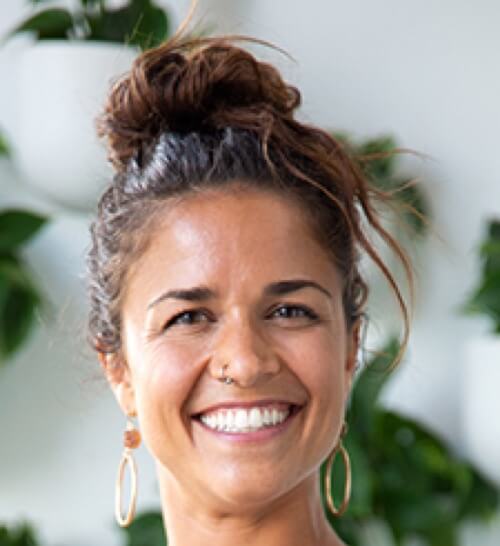

Amanda Briody, Science Teacher, Baltimore Public Schools, Teach For America Alumnus
Amanda Briody is a freelance educational resource developer based in Baltimore, MD. For 10 years, she taught secondary science in the Baltimore City Public Schools System. Amanda began her teaching career as a member of the 2009 Teach for America cohort. Her passion for science and helping her students better understand scientific processes and thinking drove her to seek creative approaches to teaching and learning. Amanda has classroom experience teaching a variety of sciences courses such as Biology, AP Biology, Environmental Science, Anatomy and Physiology, and Forensic Science. She has developed and implemented NGSS-aligned curriculum for each of these science courses. Amanda loves to share her work by designing and facilitating professional learning courses and workshops for Baltimore City Public Schools Science Teachers. Additionally, she has presented at regional conferences such as the Maryland Association for Environmental and Outdoor Education (MAEOE) and the Maryland Association of Science Teachers (MAST), and national conferences such as the National Association of Biology Teachers (NABT) and the National Science Teaching Association (NSTA). Amanda provides professional development opportunities for secondary science teachers at both the district, regional and national level and can be reached at amandabriody@gmail.com.
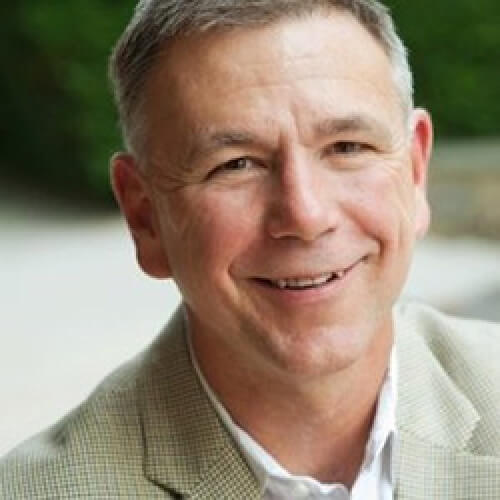

Jim Clark, Next Generation Science Standards and California Standards Expert
Jim taught biology, AP biology and honors anatomy at Arroyo High School in the San Lorenzo Unified School District for 33 years. He founded and directed the Academy of Health and Medicine, a small learning community at Arroyo. He recently retired after serving as the TK-12 district science coordinator, overseeing the implementation of the Next Generation Science Standards (NGSS) for the last 3 years of his career. Among many achievements, Jim is on the writing committee for the California NGSS statewide roll-outs, working on integrating environmental principles and concepts with science instruction. He also works with HHMI on curriculum and professional development nationwide. He served on the board of the California Institute for Biodiversity, coordinating curriculum and professional development around getting kids outside during science classes. Jim received international recognition for his work around growth mindset and classroom ethos through KQED Mindshift, and transformative teaching through AAAS and UC Berkeley. He was Alameda County’s 2008 Teacher of the Year and serves on the UC Berkeley Graduate School of Education board. Jim also co-founded Next Generation Science Innovations (NGSI) a partnership the provides professional development to schools and districts as they move toward full implementation of the NGSS. He also regularly presents at local and national conferences.



D. Scott Rinnan, Post-Doctoral Associate in Ecology and Evolutionary Biology, Yale University
Scott Rinnan is a Post-Doctoral Associate in Ecology and Evolutionary Biology at Yale University with a Ph.D. in Quantitative Ecology and Resource Management from the University of Washington. Scott’s research uses conservation prioritization to identify areas of conservation importance while incorporating global patterns of biodiversity, human pressures, and currently protected areas. His work provides spatially explicit conservation objectives that facilitate the protection of all species, one of the primary goals of Half-Earth.
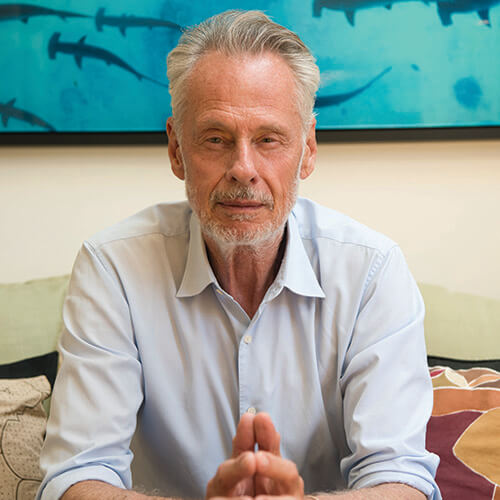

Sven-Olof Lindblad, President and CEO, Lindblad Expeditions
Sven-Olof Lindblad, founder of Lindblad Expeditions, was born in Switzerland. He traveled extensively with his father, renowned adventure-travel pioneer Lars-Eric Lindblad, who led the first non-scientific groups of travelers to Antarctica (1966). In 1979 he launched Special Expeditions, the adventure travel company that became Lindblad Expeditions. In 2004, Lindblad formed a strategic alliance with National Geographic that combines the strengths of two pioneers in global exploration, with the goal of inspiring people to explore and care about the planet.
Lindblad’s personal experience led to a commitment to environmentally responsible travel, which has resulted in numerous travel and environmental awards. He received international recognition for his innovative and successful model of tourism, receiving the “Commandeur de Notre Ordre de Merite Civil et Militaire d’Adolphe de Nassau” from Grand Duke Henri of Luxembourg at the Grand-Ducal Place. He also had a newly discovered endemic species of moth in the Galapagos Islands, Undulambia lindbladi, named in honor of his conservation work.
Sven is an honorary member of the General Assembly of the Charles Darwin Foundation for the Galapagos Islands. He serves on the Board of The Safina Center, and on the Board of Trustees of Rare; is a founding Ocean Elder of the non-profit organization, Ocean Elders, which brings together global leaders to pursue the protection of the ocean’s habitat and wildlife, and serves on the Board of Advisors for Pristine Seas.
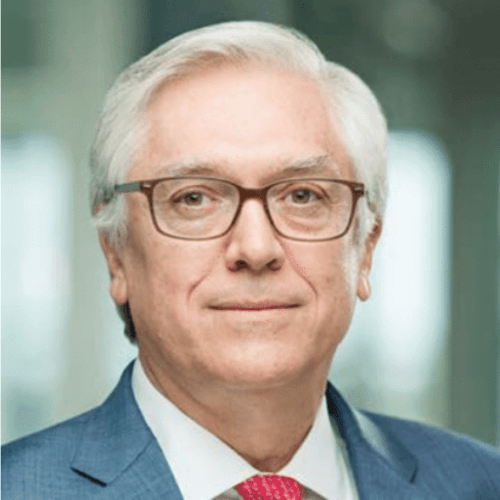

Andrés Gluski, President and CEO, AES
Andrés Gluski has served as President and CEO since 2011, after serving as COO for five years. Previously he served as CEO of AES businesses in South America. Before joining AES in 2000, Andrés held senior positions in banking, telecom, the IMF and the public sector.
Under his leadership, AES has become a world leader in implementing clean technologies, including energy storage and renewables. Navigant Research has consistently ranked Fluence—AES’ joint venture with Siemens—as the #1 grid-scale energy storage integrator in the world. Andrés also established sustainability and corporate social responsibility goals that resulted in AES’ inclusion in the Dow Jones Sustainability Index for North America and designation as one of the World’s Most Ethical Companies by the Ethisphere® Institute. In 2018 the company established aggressive carbon reduction goals and became the first publicly-traded power company to issue a climate report that complies with recommendations from the Task Force on Climate Related Financial Disclosures.
He is a member of the Boards of Waste Management, Fluence and the Edison Electric Institute. He is also Chairman of AS/COA and serves on the US-Brazil and US-India CEO Forums and served on President Obama’s Export Council. Andrés earned his MA and PhD in economics from the University of Virginia.
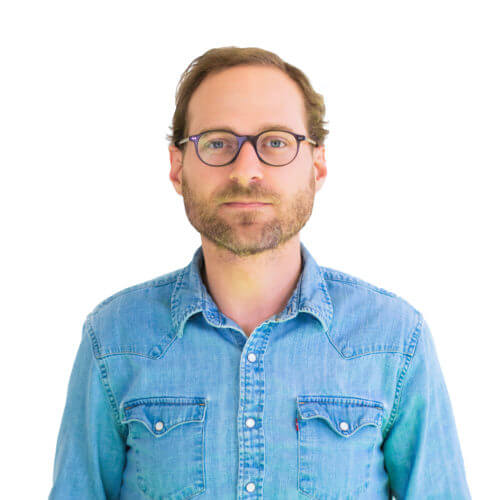

Jonathan Webb, Founder and CEO, AppHarvest
Kentucky native Jonathan Webb is turning his dream of a high-tech farming hub in Appalachia into reality with AppHarvest. The company is building some of the largest indoor farms in the world, combining conventional agricultural techniques with today’s technology to grow non-GMO, chemical-free produce.
The company’s first greenhouse will span 2.76 million square feet and open in 2020 in Morehead, Ky. The facility will use 90% less water than a typical farm, thanks to an on-site 10-acre rainwater retention pond. The company is also less than a day’s drive to more than two-thirds of the U.S. population. That lowers diesel costs by 80%, allowing AppHarvest’s fresher produce to better compete against low-cost foreign imports.
Why Appalachia? Like every Kentuckian, Jonathan grew up knowing of the devastating job losses in the region. He strives to work alongside the hard-working men and women of Eastern Kentucky and build an inclusive economy for the future.



Eva Karlsson, CEO, Houdini Sportswear
Eva Karlsson is the CEO of Houdini Sportswear, a progressive and rapidly growing Swedish outdoor brand and a trailblazer in corporate responsibility. Since 2001, Eva together with a team of likeminded, have been redesigning business to become a force for good – providing state-of-the-art circular products, offering product-as-a-service solutions and building a co-creative community for open-source innovation, sharing knowledge and inspiring to reconnect to nature.
With the ambition of understanding its entire impact on the earth system and setting strategies for how to improve, Houdini pioneered impact assessments using the Planetary Boundaries framework in 2015. The science-based assessments continue, currently by exploring the impacts of lifestyle and the potential benefits of offering attractive and regenerative lifestyle solutions at a broader scale.
Rather than focusing on Houdini’s outstanding track record in sustainable development, Eva emphasizes on the journey ahead. She believes Houdini can and must eventually move beyond zero and become a positive and regenerative force in society and for the planet. Companies face a clear choice, to participate in the ongoing destruction of the living world or to manifest the intrinsic value of nature and celebrate its beauty and the myriad of life it sustains.




Jeffrey Ubben, Founder and CEO, ValueAct Capital
Jeffrey W. Ubben is a Founder and the Chief Executive Officer of ValueAct Capital where he is Co-Portfolio Manager of the ValueAct Spring Fund. Mr. Ubben is the former Chief Investment Officer of ValueAct Capital and is a member of the firm’s Management Committee. Mr. Ubben is a director of The AES Corporation, where he is a member of the Compensation and Financial Audit Committees, and of AppHarvest. He is the former chairman and director of Martha Stewart Living Omnimedia, Inc., and a former director of Catalina Marketing Corp., Gartner Group, Inc., Mentor Corporation, Misys plc, Sara Lee Corp., Twenty-First Century Fox Inc., Valeant Pharmaceuticals International, Willis Towers Watson plc, and several other public and private companies. Prior to founding ValueAct Capital in 2000, Mr. Ubben was a Managing Partner at Blum Capital Partners for more than five years. In addition, Mr. Ubben serves on the boards of Duke University, Northwestern University and the E.O. Wilson Biodiversity Foundation, is a contributing member to the World Economic Forum, and formerly served as chair of the national board of the Posse Foundation for nine years. He has a B.A. from Duke University and an M.B.A. from the Kellogg School of Management at Northwestern University.
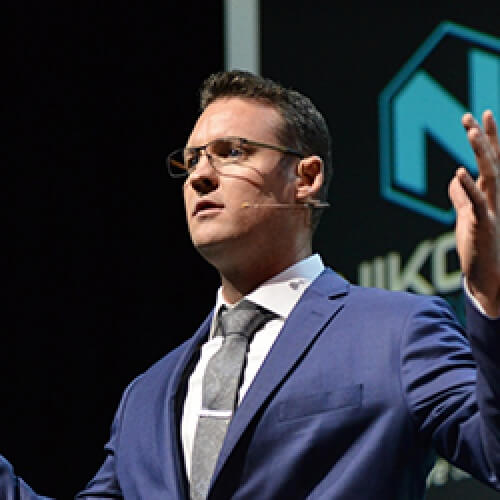

Trevor Milton, CEO, Nikola Motor Company
Nikola is led by its founder and serial entrepreneur, Trevor Milton. Mr. Milton oversees the day-to-day operations of the Company as its CEO. Prior to starting Nikola Motor Company, Trevor was the CEO of dHybrid Systems, LLC a natural gas storage technology company that was acquired by one of America’s largest steel providers, Worthington Industries, Inc. Trevor Milton has spent the last 7 years in the class 8 truck industry, focusing on recalibration of diesel engines and emissions, then moving into storage of high pressure natural gas and hydrogen. Trevor is also the author of several patents and has helped advance green technologies through his years of industry experience.
Mr. Milton holds a controlling interest in the Company and has directed research, development and prototype assembly of the Nikola portfolio. Trevor has also assisted in design of nearly every part of the Nikola One truck; rotor / stator, inverters, controllers, DC to DC, motor gearbox, thermal management, battery and ESS, infotainment and much more. Mr. Milton is a proven leader with a passion for sustainable energy projects through disruptive technologies.
Mr. Milton is fluent in English, Portuguese and is semi-fluent in Spanish having lived in Puerto Rico and Brazil. Mr. Milton has led Nikola Motor Company from startup to over 14 billion dollars in pre-order reservations for the Nikola Hydrogen Electric Truck.
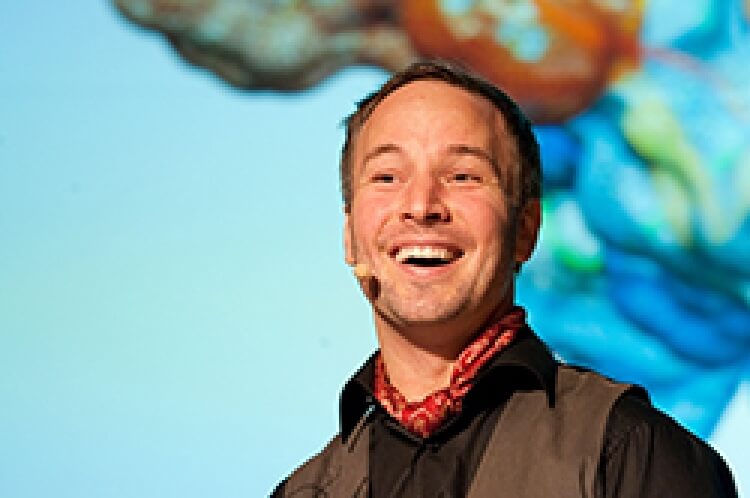

Dennis Pamlin, Entrepreneur and Founder of 21st Century Frontiers
Dennis Pamlin is an entrepreneur and founder of 21st Century Frontiers. His background is in engineering, industrial economy and marketing.
He is a senior advisor at RISE, senior associate at Chinese Academy of Social Sciences, visiting research fellow at the Research Center of Journalism and Social Development at Renmin university, advisor to Centre for Sustainable Development at Confederation of Indian Industries (CII), and accelerator of digital sustainability/net-positive at Cybercom.
He is currently leading Mission Innovation 1.5C compatible solution initative with the Avoided Emissions Framework and a Trend Scanning project with UNDP and UNFCC.
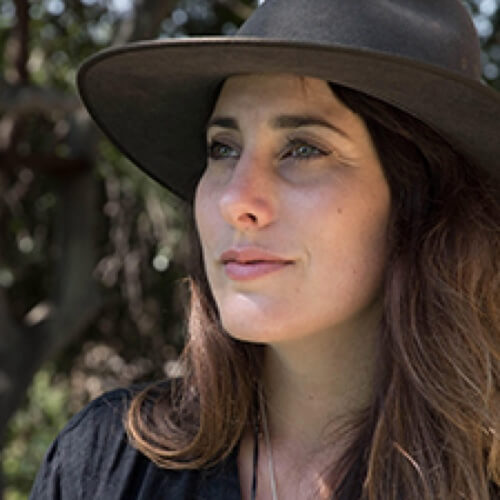

Jennifer McGowan, Spatial Planning Technical Coordinator, The Nature Conservancy
Jennifer is a decision scientist currently acting as the Spatial Planning Technical Coordinator for The Nature Conservancy where she develops strategies and frameworks to support spatial action planning and conservation prioritization for a variety of TNC’s innovative projects. These projects include government debt conversions to fund conservation in Small Island Developing States, payments for ecosystem services through water funds in Africa, ecosystem-based adaptation in the Caribbean and protected area planning across the globe.
Jennifer has spent the last five years helping countries and NGOs integrate decision-support tools into their biodiversity and conservation strategies. She has worked on a diverse range of government-led marine spatial planning projects from the highly contested waters of the Adriatic Sea to the remote seascapes of Papua New Guinea.
She also invests significant time into teaching spatial planning theory and advancing the technical capacity of conservation practitioners. She has trained over 600 scientists and policy-makers across 15 countries in the world’s leading spatial planning decision-support tool, Marxan.
Jennifer received her PhD in spatial conservation prioritization and decision science from the University of Queensland, Australia. She also holds an MA from San Francisco State University in Environmental Planning and Resource Management.


William Cheung, Director, Changing Ocean Research Unit, University of British Columbia
Dr. William Cheung is a Professor and a Canada Research Chair (Ocean Sustainability and Global Change) at the Institute for the Oceans and Fisheries, the University of British Columbia (UBC). He serves as the Director (Science) of the Nippon Foundation-UBC Nereus Program. His main research areas include understanding the responses and vulnerabilities of marine ecosystems and fisheries to global change, and the use of models and scenarios to explore pathways for marine conservation and sustainable ocean development. His works cut across multiple disciplines, from oceanography to ecology, economics and social sciences, and range from local to global scales. William is also actively involved in international and regional initiatives that bridge science and policy such as the Intergovernmental Panel on Climate Change (IPCC) and the Intergovernmental Platform on Biodiversity and Ecosystem Services (IPBES). William obtained his BSc in Biology and M.Phil. from the University of Hong Kong, and his Ph.D. in Resource Management and Environmental Studies at UBC. From 2009 to 2011, he was Lecturer in Marine Ecosystem Services in the School of Environmental Sciences, University of East Anglia. He received the Prix’d Excellence Award of the International Council for the Exploration of the Seas in 2017 and the Ehor Boyanowsky Academic of the Year Award in 2018 from the Confederation of University Faculty Associations of British Columbia (CUFA BC). He is inducted as a member of Royal Society of Canada College of New Scholars, Scientists and Artists in 2018.
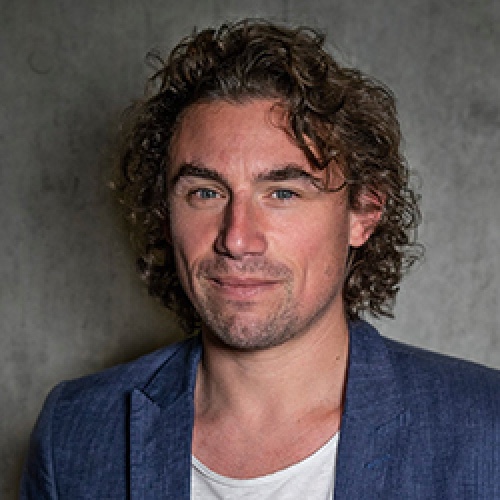

Gabriel Reygondeau, Post-Doctoral Associate in Ecology and Evolutionary Biology at Yale University
Gabriel Reygondeau is a Research Scientist in the Department of Ecology and Evolutionary Biology at Yale University, and a Research Associate in the Changing Ocean Research Unit (CORU) at the Institute for Ocean and Fisheries, University of British Columbia. Gabriel’s research in identifying and tracking the spatial distribution of marine organisms, communities and ecosystems provides important insights in marine biodiversity at regional and global scales. His work is featured on the Half-Earth Map.
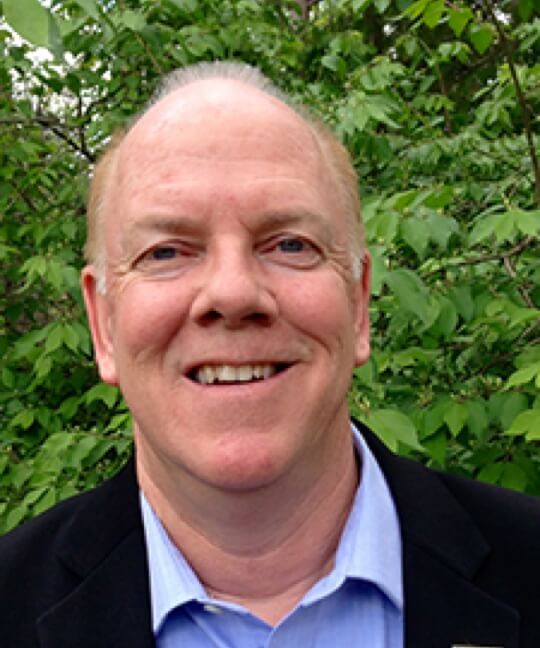

Roger Sayre, U.S. Geological Survey
Dr. Roger Sayre is an ecosystems geographer at the U.S. Geological Survey. He is a Task Leader for an intergovernmental effort to produce standardized, robust, and practical global ecosystem classifications and maps for terrestrial, freshwater, and marine environments. In that capacity, he works with Esri scientists and international experts to develop high spatial resolution, first-of-their-kind maps of global ecosystems. The maps are intended to be useful for conservation priority setting, ecosystem accounting, and other applications.
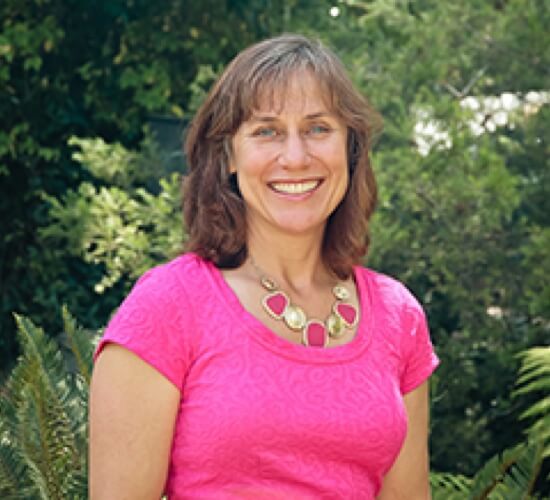

Adina Merenlender, Cooperative Extension Specialist, UC Berkeley
Adina Merenlender is a Cooperative Extension Specialist in the Department of Environmental Science, Policy and Management at UC Berkeley. She is a conservation biologist with over 100 scientific research articles on the forces that influence biodiversity loss. Her work in environmental problem solving includes the use of spatially-explicit decision support systems for conservation planning. Adina started the UC California Naturalist program and is now helping to build UC Climate Stewards to increase environmental literacy and help citizens take an active role in conservation and climate action. She is also the co-author of “Corridor Ecology” and “The California Naturalist Handbook” See more at ucanr.org/sites/merenlender
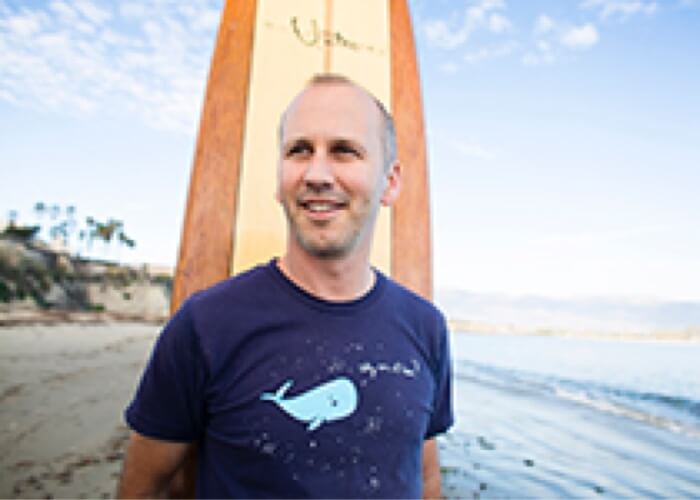

Ben Halpern, Executive Director, National Center for Ecological Analysis and Synthesis, University of Santa Barbara
Dr. Ben Halpern is the Executive Director of the National Center for Ecological Analysis and Synthesis (NCEAS) and Professor in the Bren School of Environmental Science and Management at UC Santa Barbara. He received his Ph.D. in marine ecology in 2003 from UCSB and then held a joint post-doctoral fellowship at NCEAS and the Smith Fellowship Program. He was a Research Associate at NCEAS the following decade until joining the faculty at the Bren School.
Dr. Halpern focuses his research at the interface between marine ecology and conservation planning. He has led several key synthetic research initiatives that have advanced our understanding of the state and conservation of the world’s oceans. In particular he has led the development and mapping of cumulative impact assessments at global and regional scales and has been the lead scientist for the Ocean Health Index project since inception. In the past 15 years Dr. Halpern has published over 200 peer-reviewed articles and was recently named one of the World’s Most Influential Scientific Minds by Thompson-Reuters. In 2016 he was awarded the A.G Huntsman Award for Excellence in Marine Science by the Royal Society of Canada, in 2017 the Peter Benchley Ocean Award for Excellence in Science and inducted into the California Academy of Sciences, and in 2018 the Ocean Award in Science.
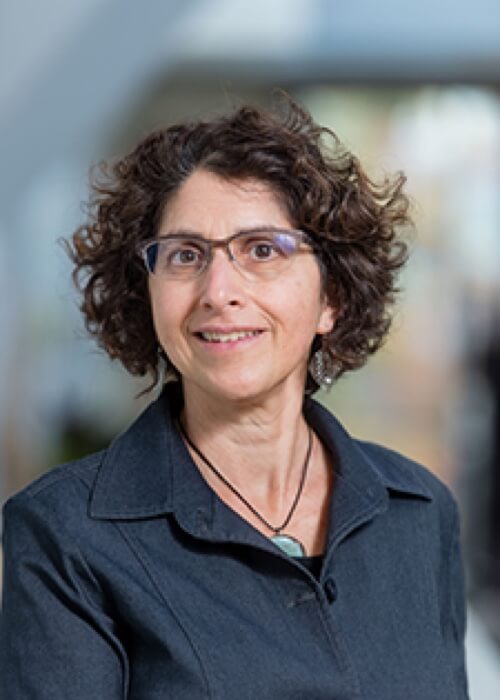

Claire Kremen, Professor and President’s Excellence Chair in Biodiversity, University of British Columbia
Professor Claire Kremen is President’s Excellence Chair In Biodiversity with joint appointments in the Institute for Resources, Environment and Sustainability and the Department of Zoology at University of British Columbia. She is an ecologist and conservation biologist whose work characterizes the relationship between biodiversity and ecosystem services, and utilizes this information to develop conservation and sustainable management plans, considering both protected areas and the working lands matrix around them. She held prior faculty appointments at Princeton University and at University of California, Berkeley, where she was also Founding Faculty Director for the Center for Diversified Farming Systems and the Berkeley Food Institute. Before those appointments, she worked for over a decade for the Wildlife Conservation Society and the Xerces Society, designing protected area networks and conducting biodiversity research in Madagascar. She has won numerous honors, including the MacArthur Foundation Fellowship, the Ecological Society of America Sustainability Science Award, and a California Academy of Sciences Fellowship. She is Field Chief Editor for Frontiers in Sustainable Food Systems, has published over 130 peer-reviewed papers, and has been a Thomson-Reuter/Clarivate Analytics Highly Cited Researcher annually since 2014.
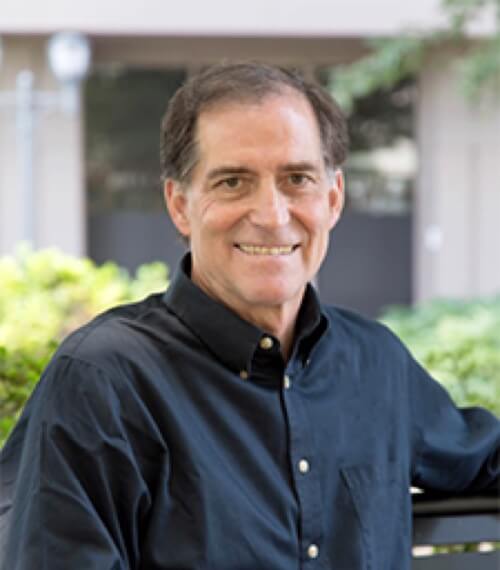

Daniel Ashe, President and CEO, Association of Zoos and Aquariums
Dan is the President and Chief Executive Officer of our organization of 236 aquariums, zoos and science centers and more than 7,000 individual members. With his team of staff members and over 400 committee member volunteers, Dan is charged with advancing AZA’s vision, mission and strategic priorities.
A lifelong animal conservationist, Dan joined AZA in January 2017 after serving as the Director of the U.S. Fish and Wildlife Service for nearly six years, successfully leading the agency, and its thousands of employees, during a period of great challenges. Following a 13-year career as a professional staff member of the former Committee on Merchant Marine and Fisheries in the U.S. House of Representatives, Dan held positions of increasing responsibility at the Service. They include Assistant Director for External Affairs, Chief of the National Wildlife Refuge System, Science Advisor to the Director and Deputy Director.
Dan earned a bachelor degree in Biological Science from Florida State University, and graduate degree in Marine Affairs from the University of Washington, where he studied under a fellowship from the Jessie Smith Noyes Foundation. His master’s thesis, on estuarine wetland mitigation, was published in the Coastal Zone Management Journal, in 1982.
Dan’s journey to the greater D.C. area was made possible by the National Sea Grant College Program. He was awarded a National Sea Grant Congressional Fellowship in 1982.
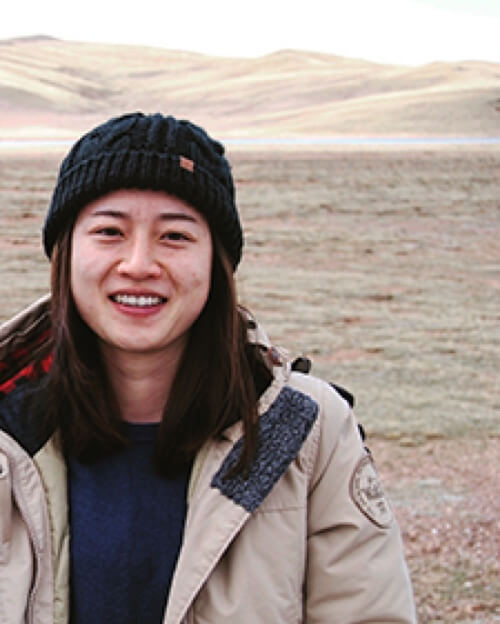

Thea Yang, Master of Landscape Architecture, UC Berkeley
Thea Yang is a recent UC Berkeley graduate, with a master degree in Landscape Architecture. Her research focuses on National Park system in both United States and China. With her passion about parks and trainings in geospatial analysis, design and planning, Thea is now working for Executive Director of the Institute for Parks, People and Biodiversity, Jon Jarvis, on projects and trainings that help support the establishment of National Park system in China.
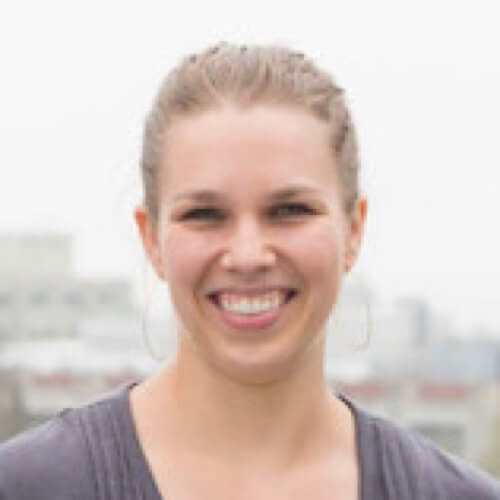

Seren Pendleton-Knoll, Associate Director, Berkeley-Haas Center for Responsible Business
Seren Pendleton-Knoll is the Associate Director at the Berkeley-Haas Center for Responsible Business. Her work is primarily focused on sustainable innovation, and how companies are utilizing open innovation and systems thinking in regards to sustainability. Her content expertise has been key in authoring CRB case studies tackling pressing sustainability challenges for leading companies in partnership with the Berkeley-Haas Case Series, with topics ranging from regenerative organic agriculture, to flexible plastic film packaging. In 2015 she developed the Patagonia Case competition, which has become the leading sustainability case competition globally where graduate students from across the US tackle the interconnected business and sustainability aspects of a current, real-life issue facing Patagonia. Prior to the CRB, Seren worked in social services and youth empowerment throughout the Bay Area. She received her MS in Development Practice from the College of Natural Resources at UC Berkeley, and her BA with honors in Clinical Psychology and Applied Theater from Whitman College.
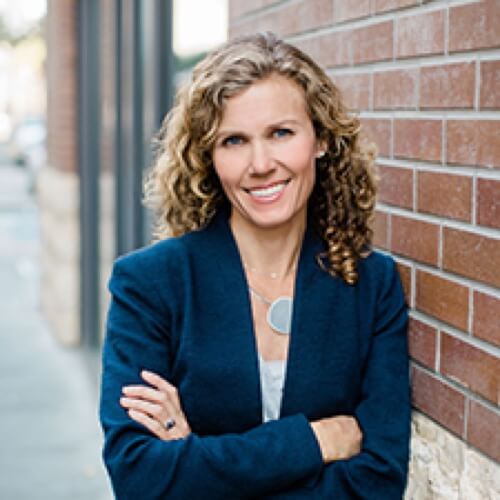

Lynelle Cameron, Vice President, Sustainability, CEO, Autodesk Foundation
Lynelle Cameron has over 20 years of experience helping companies capitalize on market opportunities related to sustainability and climate change.
A cultural anthropologist by training, Cameron spent the early part of her career working at the intersection of conservation and economic development with World Wildlife Fund, The Mountain Institute and NOLS.
Today Cameron is Vice President of Sustainability at Autodesk and CEO of the Autodesk Foundation. She leads a team transforming the design, manufacturing and construction industries to capitalize on the business opportunities of a low-carbon economy.
Under her leadership, Autodesk has won awards for sustainability, climate leadership and philanthropy. Through the Autodesk Foundation, she has invested over $15 million in entrepreneurs and innovators designing a sustainable world. Cameron is proving that companies can do well by doing good – in ways that strengthen brand reputation, recruit and retain employees, and deliver financial results.
Cameron has served on a number of Boards including Innovators International, CEH, UC Berkeley CRB, Biomimicry 3.8, and Net Impact.
Lynelle was recognized as one of the Most Influential Women in Business by the SFBT and is a recipient of the YWCA’s Tribute to Women Awards. She has an MBA from UC Berkeley, MS from U of Michigan, and a BA from Middlebury College.
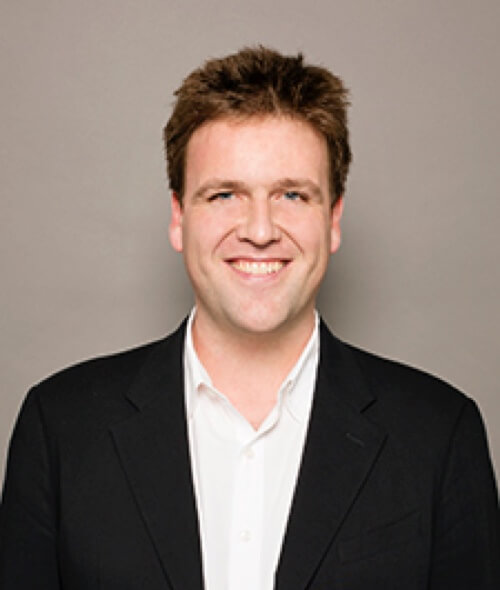

Jason Kibbey, CEO, Higg Co
Jason Kibbey is the CEO of Higg Co. Higg Co is a technology company that delivers, implements, and supports the Higg Index for consumer goods industries. Developed by the Sustainable Apparel Coalition, the Higg Index is a suite of tools that enables brands, retailers, and facilities to measure and score company or product sustainability. Jason was the first employee and CEO of the Sustainable Apparel Coalition, an industry-wide group of leading apparel and footwear brands, retailers, manufacturers, non-governmental organizations, and academic experts working to reduce the environmental and social impacts of apparel and footwear. He was the CEO and co-founder of PACT, an apparel company combining design, sustainability, and philanthropy. He served as Co-Founder and interim Executive Director of Freedom to Roam, a non-profit initiative that brings together people, organizations and businesses to enhance and protect wildlife corridors and landscape connectivity in North America. He developed Freedom to Roam while working on environmental campaigns for Patagonia. He started his career as an Associate Consultant at Bain & Company. Jason graduated from University of California (UC) Berkeley with a BS Environmental Economics and Policy and BA in Religious Studies. He received his MBA from UC Berkeley’s Haas School of Business.


Nick Wobbrock, Co-Founder, Blue Forest Conservation
Nick Wobbrock is a co-founder of Blue Forest Conservation (BFC), a non profit using innovative finance to solve environmental challenges. Blue Forest developed the Forest Resilience Bond, a public-private financing vehicle to bring resources to protect our forests, cultural, and water resources from the challenges of climate change and large damaging fires. He has been dedicated to environmental conservation, sustainability, and public health since studying environmental engineering in college. From 2007 to 2009 he was a water and sanitation volunteer with the U.S. Peace Corps in La Paz, Honduras where he designed and constructed drinking water, sanitation, and watershed protection projects. He later worked for Doctors Without Borders in Malawi as a logistics manager to support the sanitation infrastructure for rural HIVdavid mi clinics. Nick is a licensed professional civil engineer and is on the board of the EOS International, an NGO working in Honduras and Nicaragua. Previously, he worked as a consulting engineer for Brown & Caldwell and worked on infrastructure projects for utilities in the U.S. Nick earned an MBA from the UC Berkeley Haas School of Business, an MS in Civil and Environmental Engineering from Stanford University, and a BS in Biological and Environmental Engineering with honors from Cornell University.
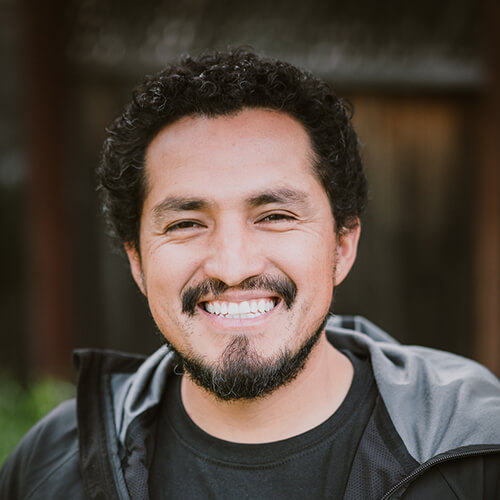

José González, Founder and Emeritus President, Latino Outdoors
José G. González is the Founder of Latino Outdoors. He is an experienced educator as a K-12 public education teacher, environmental education advisor, outdoor education instructor and coordinator, and university adjunct faculty. He is also an illustrator and science communicator.
His commentary on diversity and environmental/outdoor equity has been featured by High Country News, Outside Magazine, Earth Island Journal, and Latino USA, and he engaged in collaborations with the White House Council on Environmental Quality, U.S. Department of Interior, and the National Park Service during the Obama Administration. He also represented Latino Outdoors in several coalitions including the Latino Conservation Alliance, the Next 100 Coalition, and California Parks Now. He has been recognized with several honors, including the National Wildlife Federation Environmental Educator Award, Grist Magazine “Grist 50”, and The Murie Center Spirit of the Muries, among others. You may have also seen him in various outdoor spaces or read his poetic musings.
He received his B.A. at the University of California, Davis, and his M.S. at the University of Michigan School of Natural Resources and Environment. You can connect with him on social media @JoseBilingue.
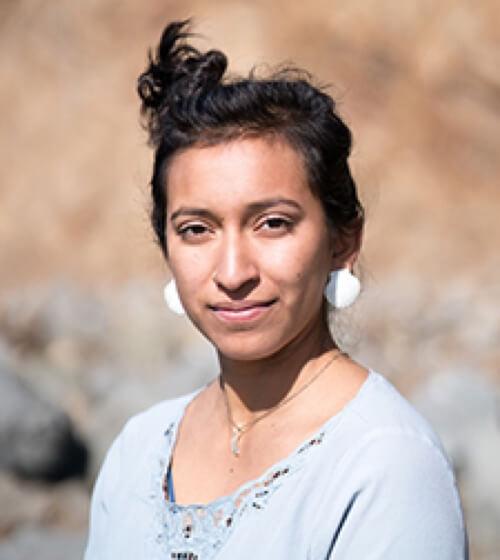

Olivia Lomasi VanDamme, Coastal Access Activist and Surfer
Olivia VanDamme is a Latina, mixed race woman who is passionate about connecting people to the outdoors especially in the ocean. She loves rock climbing, and surfing along the California coast. She graduated from CSU Chico with a BA in Geography and Latin American Studies, was an NHRE intern at the Smithsonian Museum of Natural History, has volunteered or worked for over 8 non-profits in the Bay Area. Her most recent role was as the Program Director for City Surf Project in San Francisco. She is an alumni of the Youth Outside Rising Leaders Fellowship, member of Environmental Educators of Color group, and has spoken at the This Way to Sustainability, Institute for Women Surfers, SDSU Surf Conference and PGMONE conference. She is also a contributor to the Brown Environmentalist Media Co. Through advocacy, she hopes to continue to make the California coast more accessible to ALL Californians.
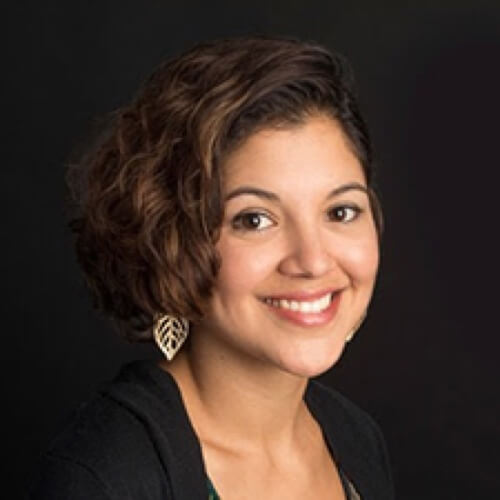

Amanda Machado, Writer and Facilitator
Amanda Machado is a writer, educator, and facilitator who is passionate about exploring the intersection between storytelling, social justice and the outdoors. She realized her love for natural spaces when she embarked on a fifteen-month trip around the world that took her hiking in the Andes and the Himalayas, skiing in the Alps, and hitchhiking across Patagonia. Since then, she’s committed to writing stories that increase the representation of communities of color in nature.
Amanda has been published in The Atlantic, The Washington Post, Harper’s Bazaar, Vox, Quartz, REI Co-Op Journal, Business Insider, and others, and has worked as a social justice editor for Matador Network, the world’s largest independent travel magazine. She also develops writing content and strategy, and facilitates workshops on equity and inclusion for organizations around the world.
Amanda has a degree in Nonfiction Writing from Brown University and currently lives in Oakland, California.
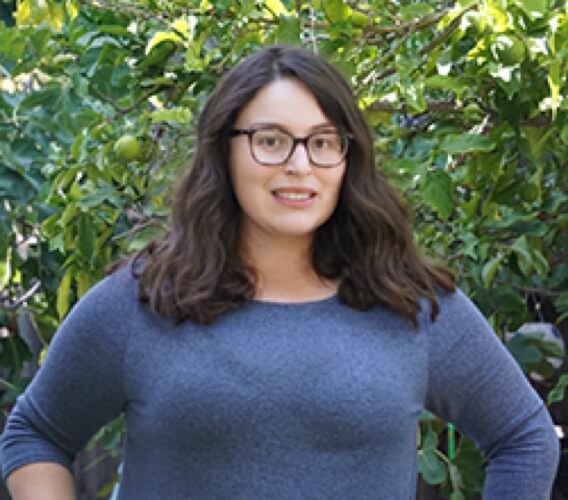

Jennifer Adams, Regional Coordinator, Latino Outdoors
Jennifer Adams is a Regional Coordinator at Latino Outdoors in the SF Bay Area. She works with numerous partners to help provide outdoor and culture experiences to her local community. She’s a recent graduate from the University of California Santa Cruz with a degree in Ecology Evolutionary Biology. She wants to bridge conservation, and stewardship within her community.
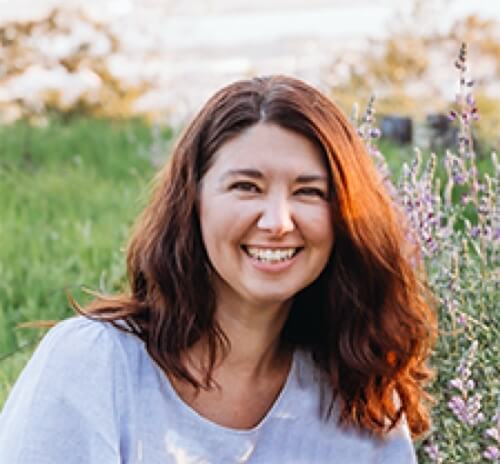

Kirk Anne Taylor, Director of Community Engagement, Ten Strands
Kirk Anne Taylor is a collaborative leader with more than 18 years experience in nonprofit and educational institutions. As Director of Community Engagement for Ten Strands, Kirk Anne leads policy initiatives, manages communications, and supports strategic partnerships to advance environmental literacy for all of California’s 6.2 million K–12 students. Prior to joining Ten Strands, Kirk Anne was the inaugural Executive Director of ChangeScale, a partnership of organizations working together to equitably expand environmental learning in the San Francisco and Monterey Bay areas. Kirk Anne also served as the Urban Conservation Manager for The Field Museum in Chicago, developing environmental education programming, facilitating teacher professional development, and supporting student-led, conservation-action projects.
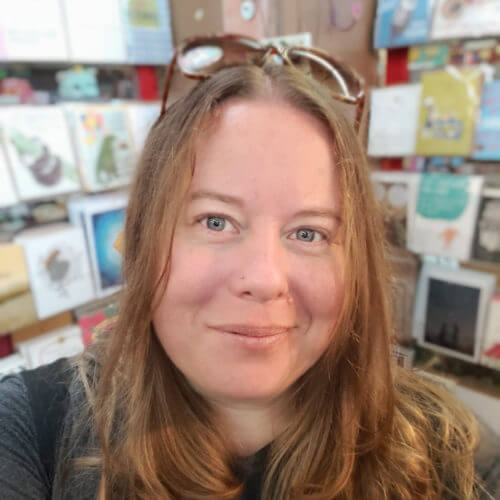

Alison Young, Co-Director of Citizen Science, California Academy of Sciences
Alison is the Co-Director of Citizen Science at the California Academy of Sciences, where she builds communities of the public, scientists, and resource managers through learning about, discovering, and documenting biodiversity. Alison is one of the two lead organizers of the annual City Nature Challenge, an international event that engages people around the world in a 4-day bioblitz to find and document the nature in their cities; in 2019 more than 150 cities participated, with over 35,000 people sharing almost 1 million observations of nature in the four days of the challenge, making it one of the largest citizen science events in the world. Alison and her co-director also run Snapshot Cal Coast, an annual citizen science campaign funded by the State of California to mobilize the public to document species along the California coastline. Alison sits on the Board of Directors for the Citizen Science Association and in 2017, she and her co-director were awarded the Bay Nature Institute’s “Local Hero for Environmental Education” award. Alison’s background is in marine biology, she holds a Masters in Biology from Humboldt State University for research focused on the potential effects of climate change on rocky intertidal communities along the California coast.



Joe Grabowski, Founder, Exploring by the Seat of Your Pants, Emerging Explorer and Fellow, National Geographic
Joe Grabowski is a science communicator working to inspire the next generation of scientists and explorers. He is the founder of the non-profit Exploring by the Seat of Your Pants, which brings science, exploration, adventure, and conservation into classrooms across North America through virtual speakers and field trips. Since 2015, he’s hosted well over 1,000 live events connecting hundreds of thousands of students with leading scientists and explorers from over 70 countries. Joe is using technology to open the most remote corners of the planet to classrooms, sending textbook-sized satellite units into the field with explorers so they can live broadcast into classrooms from the most remote regions on the planet. In 2017, he was selected as a National Geographic Emerging Explorer and shortly after became National Geographic’s first Education Fellow. Joe is a Top 50 Finalist for the Global Teacher Prize, and is a Fellow of the Royal Canadian Geographical Society and Explorers Club. An avid scuba diver for the past decade, he has had an incredible series of experiences exploring the ocean around the world.
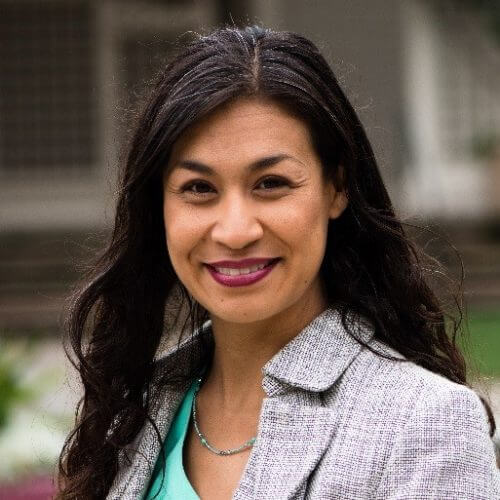

Laura Rodriguez, Director of Programs, Youth Outside
Laura Rodriguez is driven by a commitment to access, inclusion and community power. For over 14 years, Laura’s career has centered on supporting communities in gaining access to healthcare, social services, education, and most recently access to the outdoors. As Director of Programs for Youth Outside, Laura is guided by her values of racial justice and inclusion, which inform all aspects of her work, including the programs she leads, the conversations she facilitates, and the support she provides to the broader sector in understanding its role in advancing equity. Her passion for the outdoors is matched by her desire to affect change within the outdoor field; and to this end, she approaches the work of equity, inclusion and cultural relevancy with resolve, authenticity, and empathy.
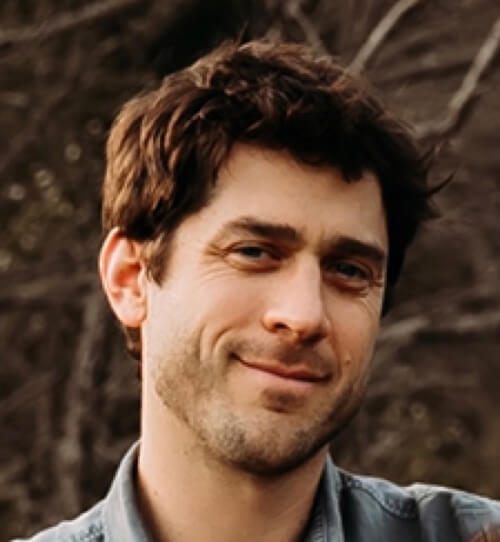

Matthew Kling, PhD Student, UC Berkeley Department of Integrative Biology
Matthew Kling is a PhD student in Integrative Biology at Berkeley. His research focuses on understanding what shapes spatial biodiversity patterns and how we can predict and prevent the erosion of biodiversity under global environmental change. A conservation biologist and macroecologist, Matthew is also passionate about data visualization and open science. He is an NSF Graduate Research Fellow, a Berkeley Fellow, and an NSF NRT Fellow in Data Science.
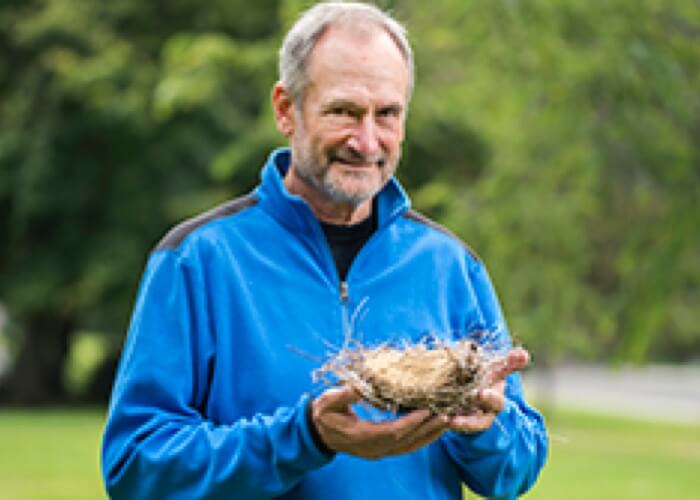

Steve Beissinger, Professor of Ecology and Conservation Biology, UC Berkeley Department of Department of Environmental Science, Policy and Management, Museum of Vertebrate Zoology
Steve Beissinger is Professor of Ecology and Conservation Biology at UC Berkeley, where he held the A. Starker Leopold Chair in Wildlife Biology (2003-13), is a research associate of the Museum of Vertebrate Zoology and is the co-director of the Berkeley Institute for Parks, People, and Biodiversity. Professor Beissinger’s current research centers on wildlife responses to global change and species extinctions – with recent fieldwork carried out in protected areas and working landscapes in California and Latin America. Steve directs the Grinnell Resurvey Project – a 15-year effort to revisit locations throughout California first surveyed by Joseph Grinnell in the early 1900’s in order to quantify the impacts of a century of climate and land-use change on the birds and mammals of California. Steve has authored over 200 scientific publications and is senior editor of three books. He served on the editorial boards of Ecology Letters, Ecology, Conservation Biology, Studies in Avian Biology, and Climate Change Responses. Steve is a Fellow of the American Association for the Advancement of Science, Ecological Society of America, Wissenschaftskolleg zu Berlin, and American Ornithological Society, which awarded him the William Brewster Memorial Award in 2010 for his research on Western Hemisphere birds.
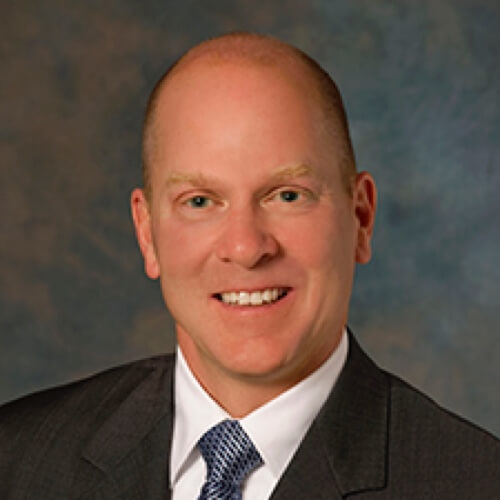

Chuck Bonham, Director, California Department of Fish and Wildlife
Charlton “Chuck” Bonham is the Director of the California Department of Fish and Wildlife (previously the Department of Fish and Game). Bonham was appointed by Governor Edmund G. Brown in August 2011. His eight years of service make Bonham one of the longest-standing Directors in recent history.
Prior to his appointment, Bonham served in a number of roles for Trout Unlimited (TU) for over ten years, including as the organization’s California Director and as a Senior Attorney. He was responsible for developing, managing, and implementing TU’s programs in California.
Bonham has also served as a gubernatorial appointee on the Board of Directors of the Delta Conservancy. Bonham received his J.D. and Environmental and Natural Resources Law Certificate from the Northwestern School of Law of Lewis and Clark College in Portland, Oregon. He was also a Peace Corps Volunteer in Senegal, West Africa.
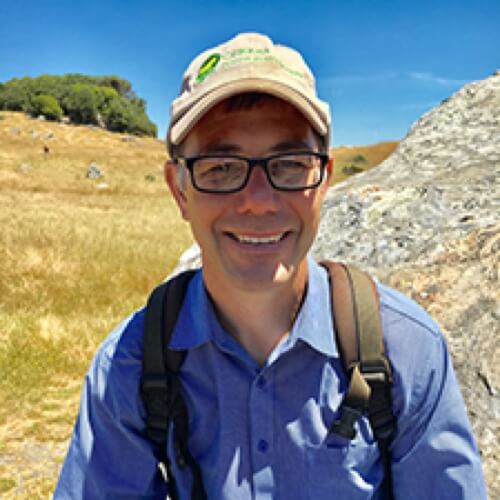

Dan Gluesenkamp, Executive Director, The California Native Plant Society
Daniel works to protect, understand, and celebrate California’s native flora. Dan earned his Ph.D. at UC Berkeley studying the ecology of thistles and their insect communities, and previously worked as Executive Director of The Calflora Database, where he led development of exciting new tools for conservation and research, and as Director of Habitat Protection and Restoration for Audubon Canyon Ranch’s 30 preserves. His history with California plant conservation and research includes on-the-ground experience restoring native habitat, and experimental research on invasive turkey impacts, nitrogen deposition, and sierra meadows. Dan is a founder of the California Invasive Plant Council, and the Bay Area Early Detection Network, and in 2009 discovered a presumed-extinct Franciscan manzanita plant growing on a traffic island at the Golden Gate Bridge.
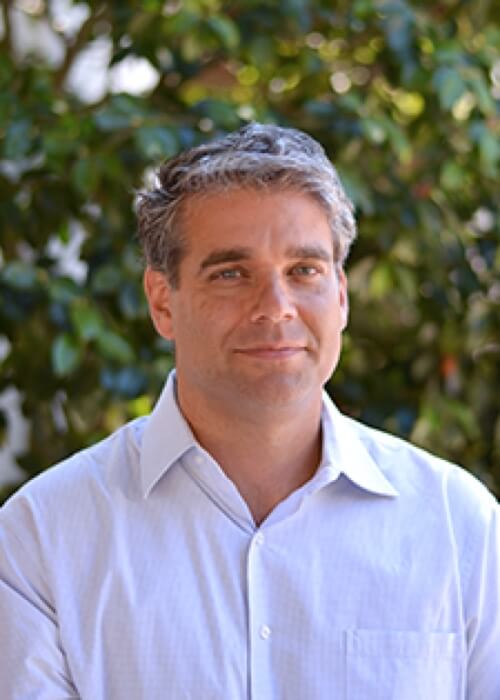

Justin Brashares, Professor and G.R. and W.M. Goertz Chair
Justin Brashares is the G.R. & W.M. Goertz Professor of Wildlife Biology at the University of California, Berkeley, and director of Berkeley’s Biodiversity, Health and Livelihoods Initiative. He also serves on the Executive Committee of the National Geographic Society and on the board of the Benioff Ocean Initiative. In his research, Brashares combines traditional ecology with interdisciplinary science to study how human activities are impacting ecosystems, and to highlight and communicate the everyday consequences of these impacts for society. Through these efforts, Brashares’ work combines biodiversity conservation with economics, anthropology, public health, nutrition, environmental justice, and journalism.
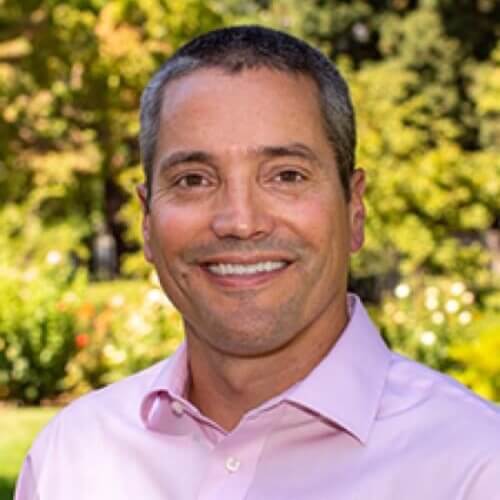

Wade Crowfoot, Secretary, California Natural Resources Agency
Wade Crowfoot was appointed California Secretary for Natural Resources by Governor Gavin Newsom in January 2019. Secretary Crowfoot oversees an agency of 19,000 employees charged with protecting and managing California’s diverse resources. As a member of the Governor’s cabinet, he advises the Governor on natural resources and environmental issues.
Crowfoot brings over two decades of public policy and environmental leadership to the office, with expertise in water, fisheries, climate and sustainability issues. He most recently served as chief executive officer of the Water Foundation, a nonprofit philanthropy that builds shared water solutions for communities, economy, and the environment across the American West.
Prior to joining the foundation, Crowfoot served in Governor Jerry Brown’s Administration as deputy cabinet secretary and senior advisor to the Governor. In that role he led the administration’s drought response efforts and spearheaded several of the Governor’s priority initiatives to build California’s resilience to climate change.
Crowfoot received a bachelor’s degree in political science from the University of Wisconsin-Madison in 1996 and earned a master’s degree in public policy from the London School of Economics in 2004, where he graduated with honors.
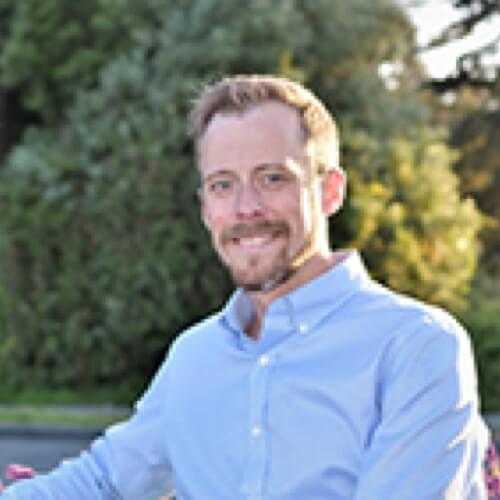

Sam Young, Important Plant Areas Program Manager, The California Native Plant Society
Sam Young is developing the Important Plant Areas (IPA) Program at the California Native Plant Society (CNPS), which seeks to model and map the most important areas for conserving California’s unique botanical biodiversity. The CNPS IPA Program aims to bridge the gap between existing research and on-the-ground conservation action by bringing together regional experts representing a wide range of perspectives, from academics and activists to land managers and regulators. By collaboratively engaging such stakeholders throughout the modelling process, the IPA program aspires to engender a sense of ownership and buy-in to using mapped IPAs for prioritizing conservation activities in California. Prior to joining CNPS, Sam earned his master’s degree in Environmental Science and Management, specializing in Conservation Planning, from the Bren School at UC Santa Barbara. He brings a unique perspective to CNPS having previously worked in private environmental consulting preparing environmental impact assessments, the United States Forest Service, and international NGOs. His areas of expertise include spatial modelling, floristic surveys, terrestrial vertebrate surveys, and conflict management. When he is not mapping IPAs, Sam enjoys backpacking, surfing, craft beers, and volunteering at the California Academy of Sciences.
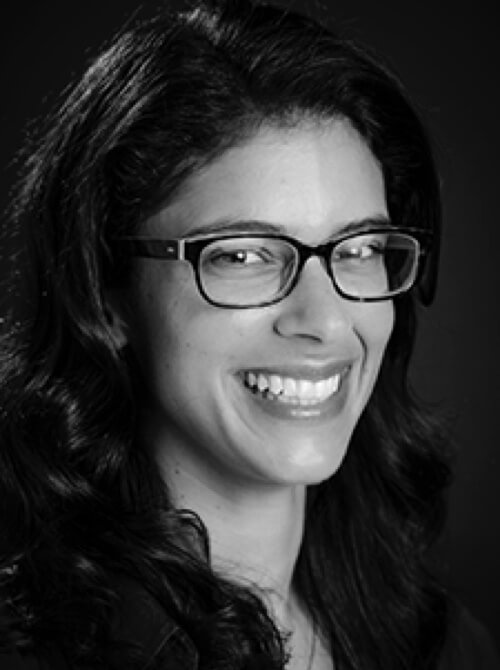

Lauren Ponisio, Assistant Professor of Entomology, UC Riverside
Lauren Ponisio is an Assistant Professor and the University of California Riverside. She is an ecologist and conservation biologist working on understanding the mechanisms by which species interactions maintain species diversity, and how we can harness these processes to manage and restore diversity in human-modified systems. As a native of the Central Valley of CA, she also has a personal connection to issues concerning agriculture sustainability. She has investigated strategies for designing agricultural systems to promote biodiversity conservation and the links between conservation strategies and improving livelihoods.
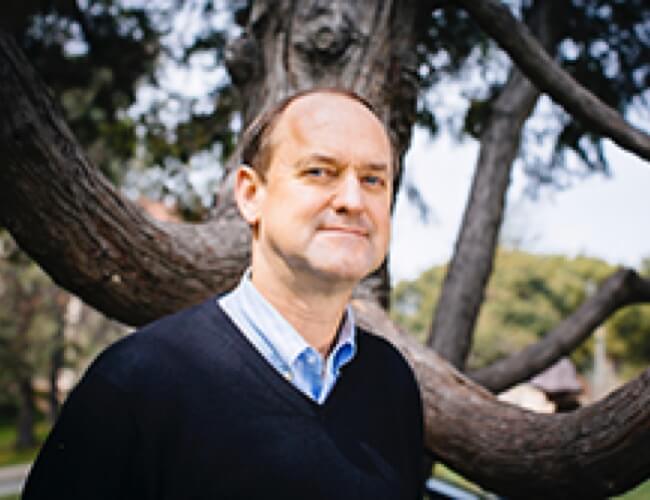

David Ackerly, Dean of the College of Natural Resources (CNR) and Professor, UC Berkeley
David Ackerly is the Dean of the College of Natural Resources and has a joint appointment in the departments of Integrative Biology and Environmental Science, Policy, and Management at the University of California Berkeley. His research group studies plant ecology and evolution, with an emphasis on the native plants of California. Current work examines drought tolerance of native tree species, potential impacts of climate change on plant communities, and post-fire forest dynamics at sites that burned in the 2017 northern California wildfires. His research is used to inform strategies of biodiversity conservation in the face of climate change, with a focus on California parks and open space. Ackerly is a recipient of the 2011 Distinguished Faculty Mentor Award, a Senior Fellow with the Berkeley Institute of Data Sciences, a Fellow of the California Academy of Sciences, and a Fellow of the Ecological Society of America. He received his B.A. in Biological Sciences from Yale University in 1984 and his Ph.D. in Organismic and Evolutionary Biology from Harvard University in 1993. He joined the faculty at UC Berkeley in 2005.
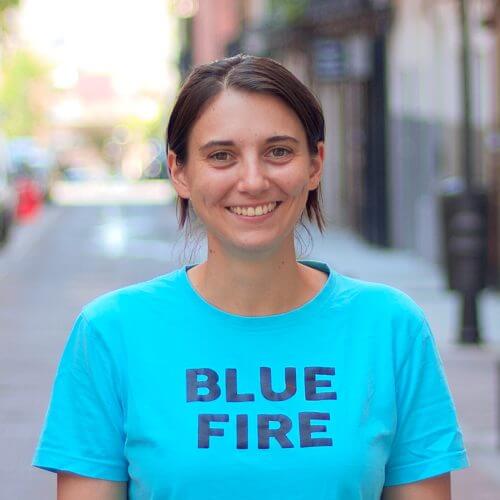

Greta Carrete Vega, Scientist, Vizzuality
Greta is a Scientist at Vizzuality with a PhD in Conservation of Natural Resources. She provides scientific context to the biodiversity and conservation data and works with the designer and developer teams to visualize and code the Half-Earth Map.
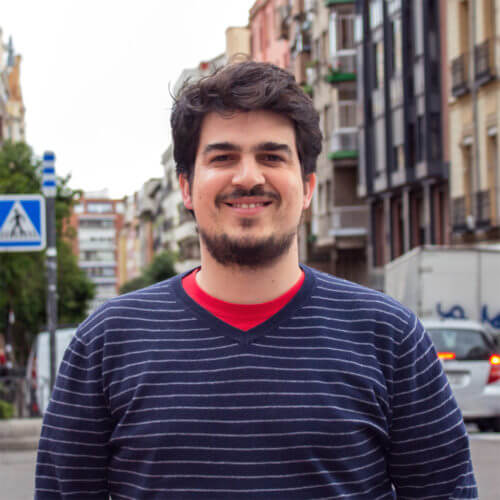

Simão Belchior, Project Manager, Vizzuality
Simão Belchior is a Project Manager at Vizzuality with a Masters In Software Engineering. Simão manages and coordinates Vizzuality’s contribution to the Half-Earth project; the design and development of the Half-Earth Maps that bring species distribution data to life.
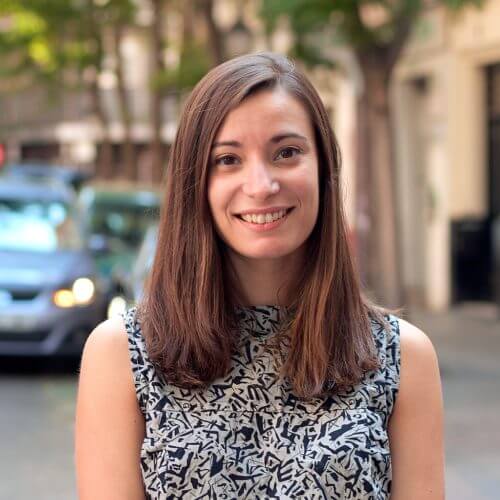

Estefanía Casal, Designer, Vizzuality
Estefanía is a Designer at Vizzuality with a Masters in Art Direction. Estefanía designs the maps you can explore at half-earthproject.org, which aim to spark curiosity and engagement with the Half-Earth mission and make information easier to understand and take action with.
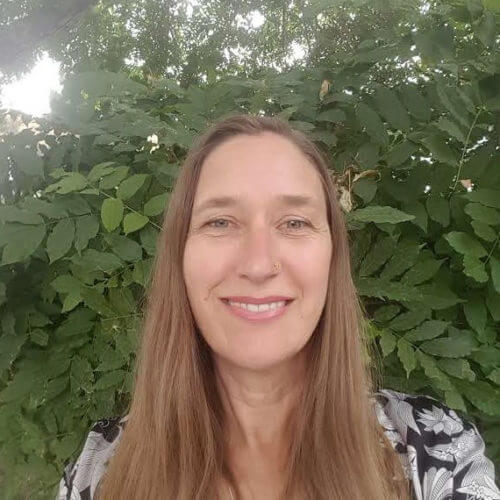

Amity Sandage, Environmental Literacy Coordinator Santa Cruz County Office of Education
Amity Sandage serves as Environmental Literacy Coordinator for Santa Cruz County Office of Education, leading a strategic countywide effort to build environmental literacy of all students in the public education system. Ms. Sandage works to increase K-12 student access to powerful outdoor learning experiences and to support teachers in using local environmental connections to increase relevancy of core instruction across content areas as well as to create opportunities for civic action.Ms. Sandage served as a Regional Coordinator for California Department of Education’s California Regional Environmental Education Community (CREEC) Network; director of the BioSITE (Students Investigating Their Environment), a nationally recognized watershed monitoring and cross-age teaching program in San Jose, CA serving youth underrepresented in STEM fields; and Program Coordinator for the Pitizer College Experience in Nepal Program. As a graduate of Pitzer College and the CILS (Center for Informal Learning and Schools) Program, she focused on environmental studies, anthropology, inquiry-based science program development and the integration of school and community-based education programs.
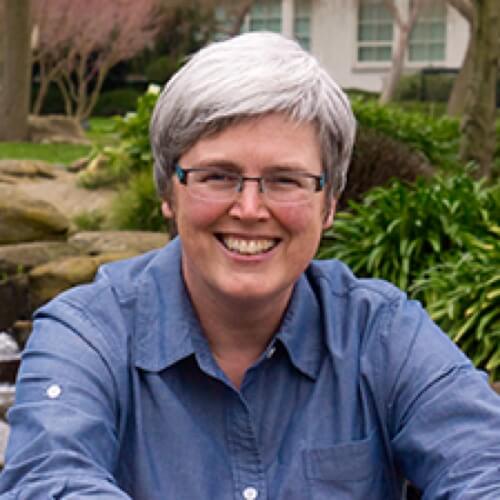

Karen Cowe, Chief Executive Officer, Ten Strands
Karen is the CEO of Ten Strands, a California-based nonprofit whose mission is to build and strengthen the partnerships and strategies that will bring environmental literacy to all of California’s 6.2 million K–12 students. In this role, she combines her deep personal interest in environmental stewardship and place-based education with her extensive experience in sales, marketing, professional development, business development, and operations. Karen is also the Project Director of the California Environmental Literacy Initiative (CAELI)—a statewide public-private partnership focused on implementing California’s Blueprint for Environmental Literacy. Prior to leading Ten Strands and CAELI, Karen was President and CEO at Key Curriculum Press.
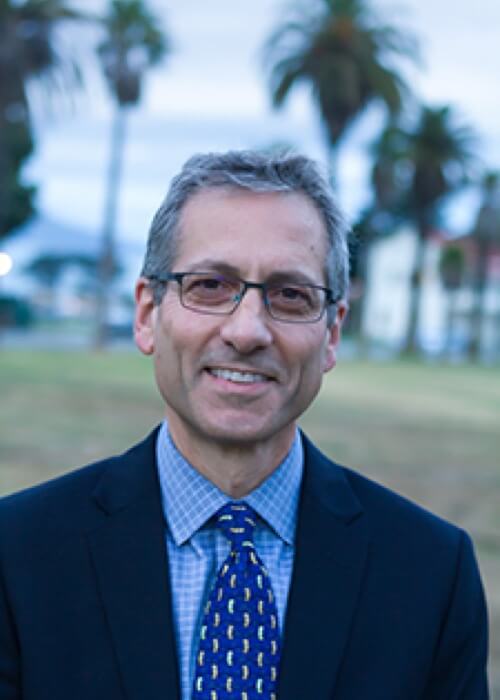

Craig Strang, Associate Director for Learning and Teaching, Lawrence Hall of Science
Craig directs the Learning and Teaching Group which designs and carries out professional learning programs around the country and internationally for leaders in schools, science centers, aquariums, museums, colleges, and universities, and delivers science programs for school groups throughout the Bay Area. He is founding Director of MARE: Marine Activities, Resources and Education, an award-winning, K-8 professional learning and curriculum development program. He was Principle Investigator of the Center for Ocean Sciences Education Excellence—California from 2002-2014. He has received multiple awards for his national and international work to promote Ocean Literacy. Craig is currently the Director of BaySci which improves school districts’ capacity to ensure high-quality science and environmental literacy in the NGSS/Common Core era. He is PI of the BEETLES Project which designs research-based professional learning tools and student activities for outdoor science programs. Craig is on the Steering Committee of ChangeScale, the San Francisco Bay Area environmental education collaborative. He co-chaired the Environmental Literacy Task Force that developed the California Blueprint for Environmental Literacy, and now is co-chair of the California Environmental Literacy Initiative, implementing the Blueprint. Previously, he did research on marine mammals and led ecotours in East Africa, the Sea of Cortez, and Galapagos Islands.
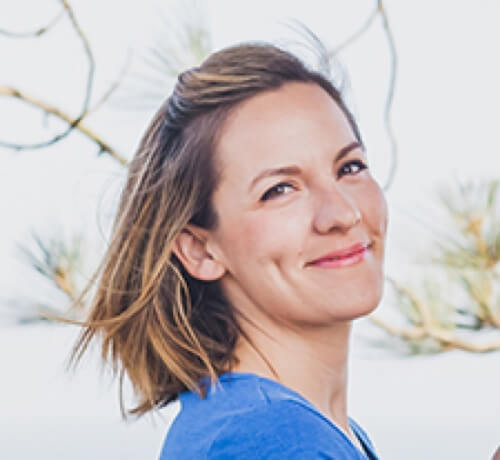

Katie Kriscunas, Assistant Principal, Aptos High School
Kathryn “Katie” Kriscunas is a newly appointed Assistant Principal at Aptos High School (AHS), and a former Environmental Science teacher at AHS. Mrs. Kriscunas has been serving students in the Pajaro Valley Unified School District since 2015 as a science teacher, Tech Liaison, School Site Council Member, Instructional Rounds leader and WASC Coordinator. Prior to PVUSD, Katie was a teacher at North Monterey County High School, where she worked with the Elkhorn Slough Foundation and Moss Landing Marine Laboratories to obtain a grant through NOAA to educate students in the community on wetland ecology and conservation. Mrs. Kriscunas has collaborated with university professors and graduate students to develop curriculum for the Next Generation Science Standards with the Great American Biotic Research Experience for Teachers at the University of Florida. As well, she was a Teacher Fellow at COSMOS for the University of Santa Cruz, and a contributor on KQED’s In the Classroom. Among her many awards, Mrs. Kriscunas was a County Science Initiative Teacher leader, Mariner of the Year at Aptos High School, Dragon Slayer Awardee and Rookie of the Year in North Monterey County. At San Jose State University, she obtained a teaching credential and was named a Dean’s Scholar while earning her Bachelor’s Degree in Biological Sciences in Conservation and Organismal Biology.





Dawn Wright, Chief Scientist, Esri, Board Member, E.O. Wilson Biodiversity Foundation
Dr. Dawn Wright is Chief Scientist of the Environmental Systems Research Institute (aka Esri), a world-leading geographic information system (GIS) software and data science company. Core to Esri’s mission is to inspire and enable people to positively impact their future by connecting them with the geoanalytic knowledge needed to make the critical decisions shaping the planet. Hence, Esri believes that geography is at the heart of a more resilient and sustainable future.
As Chief Scientist, Dawn is responsible for strengthening the scientific foundation for Esri software and services, while representing Esri to the scientific community. As such, she has served on many advisory boards including the NOAA and EPA Science Advisory Boards, the National Academy of Sciences Ocean Studies Board, and the Science Advisory Boards of Conservation International, COMPASS Science Communication, and the Ocean Discovery XPRIZE. Dawn is also a Professor of Geography and Oceanography at Oregon State University. She is a Fellow of the American Association for the Advancement of Science, the Geological Society of America, and the California Academy of Sciences, as well as Stanford University’s Leopold Environmental Leadership Program. She enjoys road cycling, 18th-century pirates, her dog Riley, and SpongeBob Squarepants. Follow her on Twitter @deepseadawn.
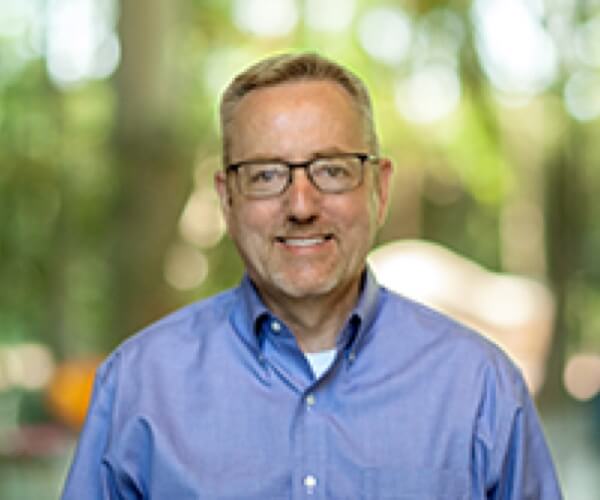

Kevin Butler, Spatial Statistics Product Engineer, Esri
Kevin Butler is a Product Engineer on Esri ‘s Analysis and Geoprocessing Team working as a liaison to the science community. He holds a Ph.D. in Geography from Kent State University. Over the past decade he has worked on strategic projects, partnering with customers and other members of the science community to assist in the development of large ecological information products such as the ecological land units, ecological marine units and ecological coastal units. His research interests include a thematic focus on spatial statistical analytical worliflows, a methodological focus on spatial clustering techniques and a geographic focus on Puerto Rico and midwestern cities.





Sean Breyer, Program Manager, ArcGIS Living Atlas of the World, Esri
Sean Breyer is the Living Atlas of the World Program Manager for the Esri. He and his team manage a massive collection of cloud-based ready-to-use content made available to the GIS community. Sean has been in the GIS industry for over 25 years, working in the federal space at Sandia National Labs, in state government as GIS Manager for the South Carolina Department of Commerce, and the commercial industry as GIS/IT Director at Rand McNally before moving to Esri. Sean is a strong advocate for GIS in the K-12 and supports many global conservation projects ranging from ecosystems mapping, climate change, flood prediction mapping, and the Half-Earth Project.
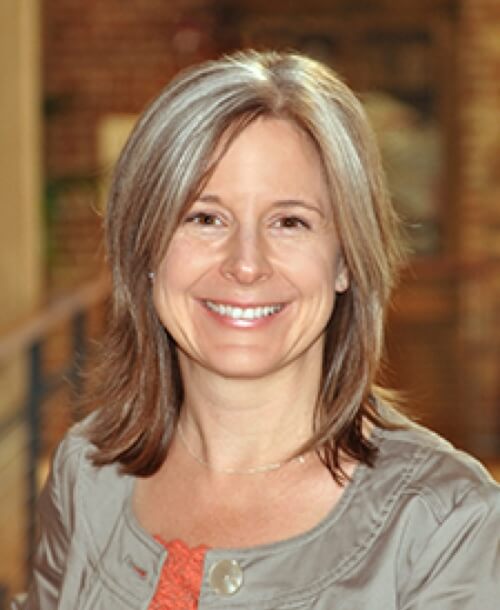

Paula Alexander, Director, Sustainable Business and Innovation, Burt’s Bees and President, Burt’s Bees Foundation
Paula Alexander is Director of Sustainable Business and Innovation for Burt’s Bees. Since 2006, Paula has served in leadership roles in Brand Development, Marketing, and Global Insights. She has served on the Burt’s Bees Leadership Team since 2012 and has played an important role in influencing sustainability strategy at The Clorox Company, Burt’s Bees’ parent company.
Paula’s source-to-disposal sustainability approach ensures that Burt’s Bees prioritizes sustainability in all business functions at all levels. Serving as President of The Burt’s Bees Foundation, she drives the foundation’s mission to protect biodiversity and reconnect people to nature. Paula is also Business Unit Director of the Burt’s Bees Natural Launchpad, a grant program and ecosystem for women-led companies in the natural products space.
Paula began her career in consumer packaged goods at Unilever and was brand manager at Dove during the Campaign for Real Beauty launch. Paula holds a BBA from Texas A&M University and an MBA from Duke University’s Fuqua School of Business. She is a frequent marketing and sustainability guest speaker at leading US business schools and industry conferences. Paula was named one of the Triangle Business Journal 2018 C-Suite Award Winners and received the 2013 Duke Fuqua Leader of Consequence Award.
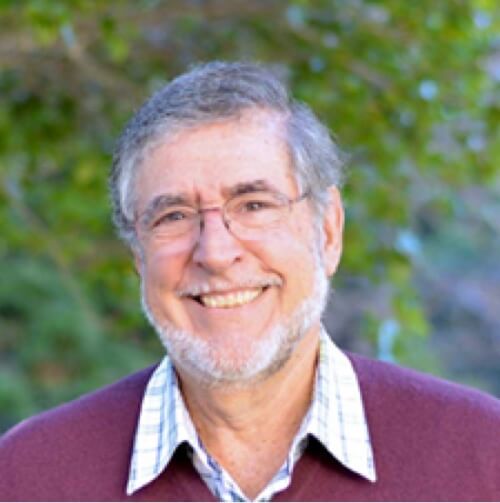

Gordon Frankie, Professor and Research Entomologist at the University of California, Berkeley
Gordon W. Frankie is a professor and research entomologist at the University of California, Berkeley. His specialty is the behavioral ecology of solitary bees in wildland, agricultural, and urban environments of California and Costa Rica, and he is particularly involved with questions of how people relate to bees and their plants in these environments, and how to raise human awareness about bee-plant relationships. Dr. Frankie also teaches conservation and environmental problem-solving at UC Berkeley. More information on his projects can be found at www.helpabee.org.
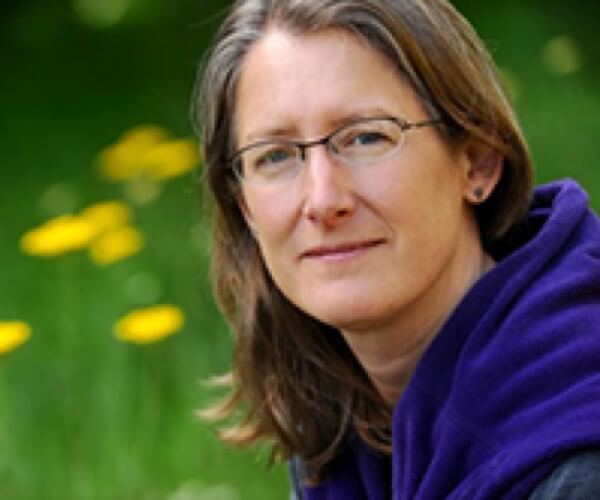

Gretchen Le Buhn, Professor of Biology, San Francisco State University and Director, Great Sunflower Project
Gretchen Le Buhn is a professor of Biology at San Francisco State University and the Director of the Great Sunflower Project. Her research spans the fields of ecology, biodiversity and conservation biology. She has worked on understanding and conserving plant and pollinator systems from the mountains of Ecuador and California to the canyons of urban San Francisco. She has published three books on pollinators and pollinator conservation FAO and was a lead author on the Intragovernmental Panel on Biodiversity and Ecosystem Services. In other work, Dr. Le Buhn has developed standardized, cost-effective methods for monitoring biodiversity for species including spotted owls, prairie falcons, and bat, plant and bee communities. She is a former Fulbright Scholar and a Fellow of the California Academy of Sciences.
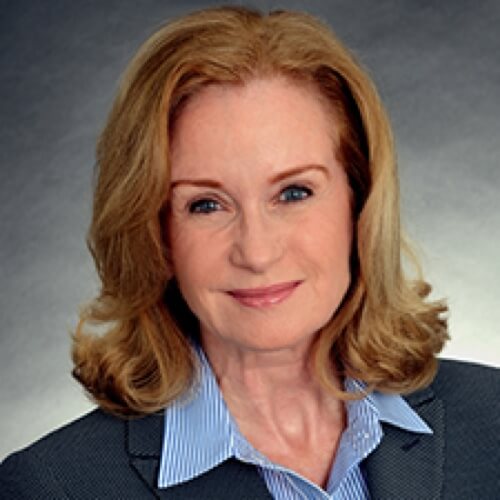

Laurie Davies Adams, President and CEO, Pollinator Partnership
Laurie Davies Adams is President and CEO of the Pollinator Partnership (P2), (www.pollinator.org) and has presided over the growth of P2’s signature initiatives, the North American Pollinator Protection Campaign (NAPPC – www.nappc.org), Global Pollinator Week, and Eco-regional Planting Guides for the U.S. and Canada providing lists of plants for pollinators in gardens, farms, and corporate landscapes.
NAPPC has 170 major organizations representing all pollinator stakeholders including pollinator science, industry, government agencies, conservation groups, and academia in the U.S., Canada, and Mexico. She signed pollinator conservation agreements for P2 with U.S. federal agencies that influence over 1.5 billion acres of US land.
Adams was a major contributor to the 2017 Presidential Memorandum on Pollinators which led to the Federal Strategy to Support the Health of Honey Bees and Other Pollinators, each introduced at or around the annual Pollinator Week in June. From 2015 to 2019, every governor in the United States has signed a state proclamation for Pollinator Week at the behest of Pollinator Partnership. She was one of the co-founders of the National Pollinator Garden Network which instituted and completed the Million Pollinator Garden Challenge, a highly successful campaign introduced at the White House by First Lady Michelle Obama.
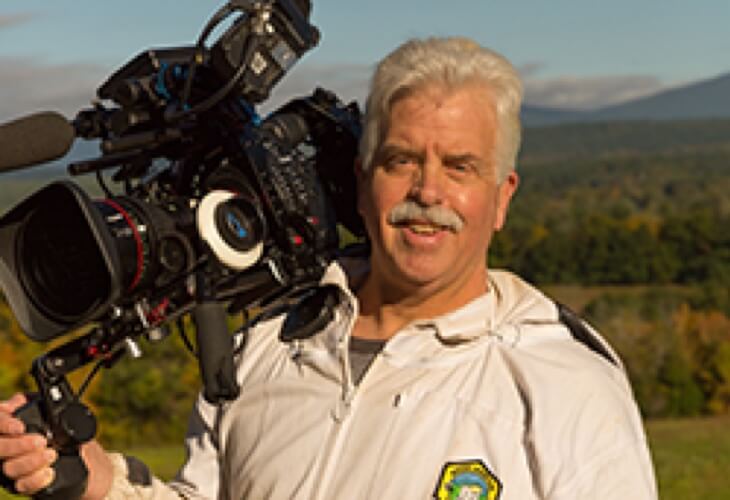

Peter Nelson, The Pollinators Documentary
The Pollinators documentary follows migratory beekeepers around the country looking at our food system and the importance of honey bees to agriculture. The Pollinators is Peter’s debut feature film as a director and is screening widely at film festivals and will be in theaters this fall. His short film, Dance of the Honey Bee had its broadcast premiere on Moyers & Company on PBS.
For over 27 years Peter’s signature naturalistic style of cinematography has taken him around the world to capture life as it happens for documentaries, feature films and commercials. Peter has done domestic and international cinematography work for PBS, HBO, National Geographic and the BBC. Commercial work includes campaigns for IBM, Google, SNHU, Black Rock, ESPN/NASCAR, Dunkin Donuts, Volvo and many others. Peter received a BFA in Film and Television from NYU’s Tisch School of the Arts.
Peter lives in the Hudson Valley of New York where he’s been an enthusiastic backyard beekeeper for over 30 years and serves on the board of the Rondout-Esopus Land Conservancy. A passion for nature and documentaries keeps leading him back to explore the intersection between people and the natural world around us.






E.O. Wilson, Biologist and Naturalist
Edward O. Wilson is currently Honorary Curator in Entomology and University Research Professor Emeritus at Harvard University, Chairman of the E.O. Wilson Biodiversity Foundation Board of Advisors, and Chairman of the Half-Earth Council. He is generally recognized as one of the leading scientists in the world. He is also recognized as one of the foremost naturalists in both science and literature, as well as a synthesizer in works stretching from pure biology across to the social sciences and humanities. Wilson is acknowledged as the creator of two scientific disciplines (island biogeography and sociobiology), three unifying concepts for science and the humanities jointly (biophilia, biodiversity studies, and consilience), and one major technological advance in the study of global biodiversity (the Encyclopedia of Life). Among more than one hundred awards he has received worldwide are the U.S. National Medal of Science, the Crafoord Prize (equivalent of the Nobel, for ecology) of the Royal Swedish Academy of Sciences, and the International Prize of Biology of Japan; and in letters, two Pulitzer Prizes in non-fiction, the Nonino and Serono Prizes of Italy and COSMOS Prize of Japan. For his work in conservation, he has received the Gold Medal of the Worldwide Fund for Nature and the Audubon Medal of the Audubon Society.



Jack Dangermond, Founder and President, Environmental Systems Research Institute (Esri)
A landscape architect by training, Jack Dangermond founded Environmental Systems Research Institute (Esri) in 1969 with a vision that computer mapping and analysis could help us design a better future. Under Dangermond’s leadership, that vision has continued to guide Esri in creating cutting-edge GIS and Geodesign technologies used in every industry to make a difference worldwide.
Dangermond fostered the growth of Esri from a small research group to an organization recognized as the world leader in GIS software development. Esri employs more than 4,000 people worldwide.; many who shared his passion for GIS in the early days are still with the company and remain dedicated to helping our users be successful.
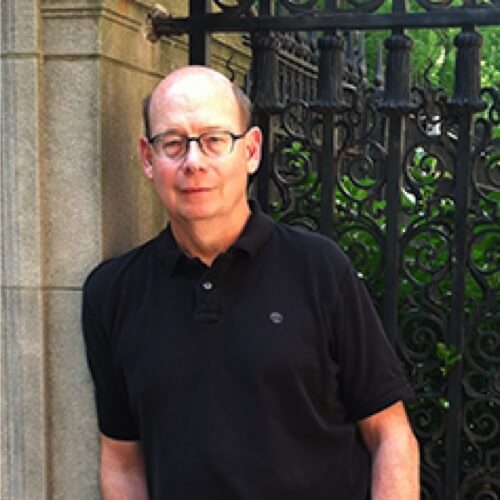

David Miller, President, Island Press
David Miller is the president and publisher of Island Press, based in Washington, DC. Island Press is the world’s leading publisher on raising awareness of environment issues and helping people more effectively solve them. Island Press authors and experts inform and inspire change by reaching out to millions of people through their books, articles, webinars, podcasts, in the classroom, and in person.
In his more than thirty-five years in the industry, David has published a number of bestselling authors and among his many award-winning books are several National Book Award finalists and Pulitzer Prize winners. David has served on the executive board of the trade division and the international division of the Association of American Publishers. He has extensive experience in international publishing, and has been actively involved in developing educational and trade publishing globally, and in establishing companies and publishing programs in countries around the world. He is a long-standing instructor at the Columbia Publishing Course in New York and at Oxford University.
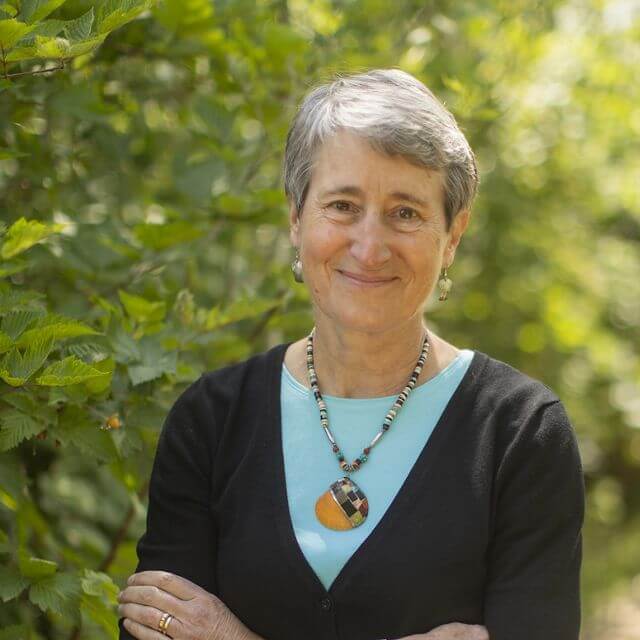

Sally Jewell, Interim CEO, The Nature Conservancy
Sally Jewell is the Interim Chief Executive Officer for The Nature Conservancy.
Previously, Jewell was U.S. Secretary of the Interior from 2013 to 2017. During her tenure, she was recognized for using a science-based, landscape-level, collaborative approach to natural resources management. Her work included championing the importance of science and sharing data to better understand the earth’s systems, encouraging investments for more sustainable use of water in the West, deepening relationships with indigenous communities and long-term conservation of the nation’s most vulnerable and irreplaceable natural, cultural and historic treasures. She demonstrated a commitment to connecting people to nature, particularly youth, with efforts to encourage tens of millions of young people to play, learn, serve and work on public lands.
Jewell was previously President and CEO of REI, a $2.6 billion retailer dedicated to facilitating outdoor adventures. Earlier in her career, she served for 19 years in commercial banking across a wide range of industries and began her career as an engineer in the energy sector. She has been active in governance and board leadership for corporations and nonprofit organizations, including serving as a Regent of the University of Washington where she is currently a Distinguished Fellow in the College of the Environment.
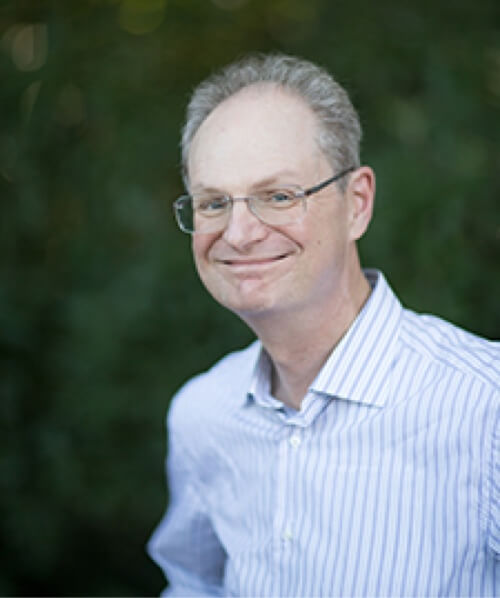

Paul Alivisatos, Executive Vice Chancellor and Provost, UC Berkeley
A celebrated chemist, accomplished administrator, and longtime member of the Berkeley community, Paul Alivisatos assumed the role of Executive Vice Chancellor and Provost (EVCP) for the UC Berkeley campus on July 1, 2017. As EVCP, Alivisatos works in close partnership with Chancellor Carol Christ, and plays a critical role in developing and implementing her vision and priorities for the Berkeley campus. He also has responsibility for the planning, development, implementation, assessment, and improvement of all campus academic programs, policies, and supporting infrastructure.
In addition to his role as EVCP, Alivisatos is the Samsung Distinguished Professor of Nanoscience and Nanotechnology, the founding Director of the Kavli Energy Nanoscience Institute, and Director Emeritus of Lawrence Berkeley National Laboratory (Berkeley Lab), where he remains a senior faculty scientist. He also holds professorships in UC Berkeley’s departments of chemistry and materials science.
Alivisatos received his Bachelor’s degree in chemistry in 1981 from the University of Chicago and his Ph.D. in chemistry from Berkeley in 1986. He joined the campus as a faculty member in 1988. Alivisatos is a founder of two prominent nanotechnology companies, Nanosys and Quantum Dot Corp, now a part of Thermo Fisher. He is also the founding editor of Nano Letters, a publication of the American Chemical Society, and formerly served on the senior editorial board of Science magazine, a publication of the American Association for the Advancement of Science.
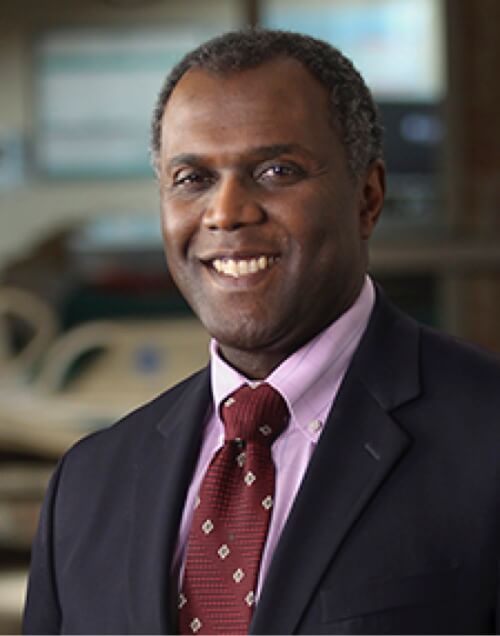

Stephen H. Lockhart, Chief Medical Officer, Sutter Health
Stephen H. Lockhart, MD, PhD, is Chief Medical Officer for Sutter Health, a not-for-profit integrated system of hospitals, physician organizations, and research institutions in Northern California. A Rhodes Scholar, he obtained his Masters degree in Economics from Oxford University, and M.D. and Ph.D. degrees from Cornell University. As Chief Medical Officer, he has responsibility for quality, patient safety, research, and education.
An avid climber and backpacker, he has a passion for environmental protection and providing equitable access to public lands. He has worked extensively to promote environmental science education and to introduce the outdoors to an increasingly diverse population. Dr. Lockhart has served on the Boards of NatureBridge (emeritus), the National Parks Conservation Association, REI, Land Trust Alliance, Parks California, and the David and Lucile Packard Foundation. He was previously a member of the National Parks Second Century Commission, an independent group of respected leaders and experts who convened to articulate a vision for the second century of the National Park Service and whose recommendations to Congress, the Administration, and the American people were published in September 2009. He also served as a member of California’s Parks Forward Commission, designed to provide strategic support for California State Parks.
Half-Earth Day 2018






E.O. Wilson, Biologist and Naturalist
E.O. Wilson is currently Honorary Curator in Entomology and University Research Professor Emeritus at Harvard University, Chairman of the E.O. Wilson Biodiversity Foundation Board of Advisors, and Chairman of the Half-Earth Council.
Edward Osborne Wilson is generally recognized as one of the leading scientists in the world. He is also recognized as one of the foremost naturalists in both science and literature, as well as a synthesizer in works stretching from pure biology across to the social sciences and humanities. Wilson is acknowledged as the creator of two scientific disciplines (island biogeography and sociobiology), three unifying concepts for science and the humanities jointly (biophilia, biodiversity studies, and consilience), and one major technological advance in the study of global biodiversity (the Encyclopedia of Life). Among more than one hundred awards he has received worldwide are the U.S. National Medal of Science, the Crafoord Prize (equivalent of the Nobel, for ecology) of the Royal Swedish Academy of Sciences, and the International Prize of Biology of Japan; and in letters, two Pulitzer Prizes in non-fiction, the Nonino and Serono Prizes of Italy and COSMOS Prize of Japan. For his work in conservation, he has received the Gold Medal of the Worldwide Fund for Nature and the Audubon Medal of the Audubon Society.





Paul Simon, Legendary Recording Artist
In June 2017, net proceeds from Paul Simon’s month-long U.S. tour were donated to benefit the Half-Earth Project, an initiative of the E.O. Wilson Biodiversity Foundation, which is committed to stopping the species extinction crisis by conserving half the planet’s lands and oceans. Paul Simon is a member of the Half-Earth Council and a member of the Board of Directors of the E.O. Wilson Biodiversity Foundation.
During his distinguished career, Paul Simon has been the recipient of many honors and awards, including 16 Grammy Awards. In 2003, he received a Grammy Lifetime Achievement Award for his work as half of the duo Simon & Garfunkel. Simon is a member of the Songwriters Hall of Fame and has been inducted into the Rock ‘n’ Roll Hall of Fame both as a member of Simon & Garfunkel and as a solo artist. Simon was a recipient of the Kennedy Center Honors in 2002 and was named one of Time magazine’s “100 People Who Shape Our World” in 2006. In 2007, Simon was awarded the inaugural Library of Congress Gershwin Prize for Popular Song, which recognizes the profound and positive effect of popular music on the world’s culture. He was elected to the American Academy of Arts and Sciences in 2011. And in 2012, he was named the recipient of the prestigious Polar Music Prize along with Yo-Yo Ma. Simon’s philanthropic work includes the co-founding of the Children’s Health Fund (CHF), which donates and staffs 53 mobile medical units that bring health care to low-income children and their families in urban and rural locations around the United States. Since its inception in 1987, CHF has provided more than 3 million doctor/patient visits. Over his career, Simon has also raised millions of dollars for worthy causes as varied as Autism Speaks, The Nature Conservancy, CURE, and Tibet House.
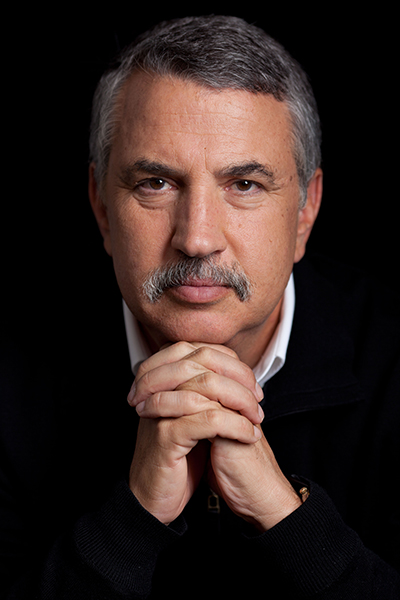

Thomas L. Friedman, Author and Journalist, The New York Times
Thomas L. Friedman, an internationally known author and journalist, has won the Pulitzer Prize three times for his work at The New York Times. His foreign affairs column in The New York Times reports on US domestic politics and foreign policy, Middle East conflicts, international economics, environment, biodiversity, and energy.
For his coverage of the Middle East, Mr. Friedman was awarded the Pulitzer Prize in 1983 and 1988 for international reporting. He was awarded the 2002 Pulitzer Prize for Distinguished Commentary for “his clarity of vision…in commenting on the worldwide impact of the terrorist threat.” In 2004, he was awarded the Overseas Press Club Award for lifetime achievement and the honorary title, Order of the British Empire (OBE), by Queen Elizabeth II. Friedman is the author of From Beirut to Jerusalem, which won both the National Book and the Overseas Press Club Awards in 1989, a revised edition was released in December 2012. The Lexus and the Olive Tree, winner of the 2000 Overseas Press Club Award for best non-fiction book on foreign policy. Longitudes and Attitudes: Exploring the World After September 11, issued in 2002, consists of columns Friedman published about September 11. The World is Flat: A Brief History of the Twenty-first Century, issued in April 2005 and updated in 2006 and 2007, received the inaugural Goldman Sachs/Financial Times Business Book of the Year Award. In 2008 he brought out Hot, Flat, and Crowded, which was published in a revised edition a year later. His sixth book, That Used to Be Us: How America Fell Behind in the World We Invented and How We Can Come Back, co-written with Michael Mandelbaum, was released in 2011. His new book, Thank You For Being Late: An Optimist’s Guide to Thriving in the Age of Accelerations 2.0, was updated and released in 2017.
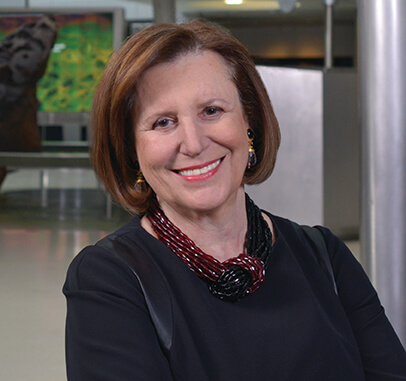

Ellen V. Futter, President, American Museum of Natural History
Ellen V. Futter has been President of the American Museum of Natural History since 1993. During her tenure, the Museum has been in one of the most active periods of growth in its history, including extending the role of museums more broadly in formal education and promoting science literacy among the general public.
Before joining the Museum, Ms. Futter served as President of Barnard College for 13 years, where, at the time of her inauguration, she was the youngest person ever to have assumed the presidency of a major American college. Ms. Futter is committed to public service and is widely recognized as a spokesperson on behalf of science education and women’s issues. She serves on the boards of several nonprofit and for-profit organizations, including The Brookings Institution, Memorial Sloan-Kettering Cancer Center, NYC & Company, and Consolidated Edison, and she is a member of the Council on Foreign Relations and a fellow of the American Academy of Arts and Sciences, where she serves on the steering committee for its Public Face of Science initiative. She has received numerous honorary degrees and awards, including the Rachel Carson Award of the Audubon Society. Ms. Futter has the distinction of having been the first woman to head a major New York City cultural institution and the first woman to be chairman of the board of the Federal Reserve Bank of New York. Ms. Futter graduated Phi Beta Kappa, magna cum laude, from Barnard College and earned her J.D. degree from Columbia Law School. She began her career at Milbank, Tweed, Hadley & McCloy, where she practiced corporate law.








Paula J. Ehrlich, President and CEO, E.O. Wilson Biodiversity Foundation, Co-Founder, Half-Earth Project
Paula J. Ehrlich, DVM, PhD, is the President and CEO of the E.O. Wilson Biodiversity Foundation, where she oversees the Foundation’s broad activities to foster a knowing stewardship of our world through biodiversity research and education initiatives that promote and inform worldwide protection of biodiversity.
Dr. Ehrlich leads the Half-Earth Project, which is driving the research needed to better understand and care for our world, providing leadership to guide conservation efforts, and engaging people to participate broadly in the goal to conserve half the Earth and protect 85% or more of species, including ourselves. Dr. Ehrlich has more than 25 years of strategic scientific management and research expertise and diverse academic, non-profit, and corporate leadership experience. She was formerly President and CEO of the Drug Discovery Center of Innovation in Research Triangle Park, NC, Senior Director of Scientific Affairs at Ansaris (formerly Locus Pharmaceuticals), and Preclinical Oncology Imaging Lead and Associate Franchise Director at Merck Research Laboratories in West Point, PA. At Merck, she led initiatives to establish imaging biomarkers and proof-of-concept for over 12 lead compounds, which are currently in clinical trials. She has held research, clinical, and teaching positions at Tufts University School of Veterinary Medicine, the Atlantic Veterinary College, and the Royal Veterinary College. Dr. Ehrlich has a B.S. in Zoology from Duke University, a Masters degree in Environmental Planning from the University of Virginia, a DVM from the Virginia-Maryland Regional College of Veterinary Medicine, and a PhD in Bone Physiology from the Royal Veterinary College, University of London. She has Six Sigma Green Belt training and is a Diplomate of the American College of Veterinary Surgeons.
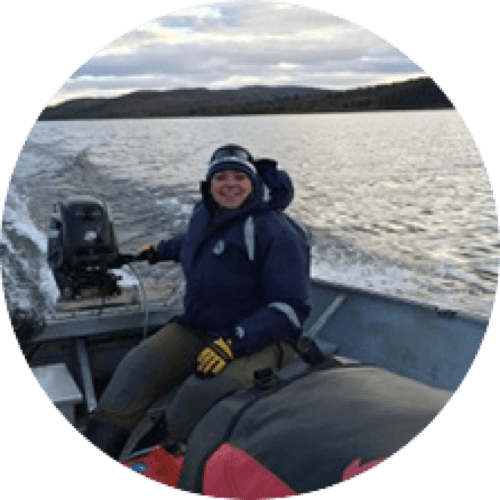

Valérie Courtois, Indigenous Leadership Initiative, Canada
Valérie Courtois is a registered professional forester who specializes in Indigenous issues, forest ecology, and ecosystem-based management and planning. She is a member of the Innu community of Mashteuiatsh, located on the shore of Peikuakami, or Lac-St-Jean. Valérie holds a degree in forestry sciences from the Université de Moncton. She has served as a forestry advisor for the Assembly of First Nations of Québec and Labrador, forestry planner for the Innu Nation, and as a consultant in Aboriginal forestry, including certification and spatial planning, and caribou planning. In 2007, Valérie was awarded the James M. Kitz award from the Canadian Institute of Forestry for her early-career contributions to the forestry profession. She has been the Director of the Indigenous Leadership Initiative since 2013. In addition to her work in conservation and planning, Valérie is an avid photographer. She is also on the Board of Directors of the Corporation du Mushuau–nipi, a non-profit that encourages cultural and professional exchanges on the George River. Valérie was also one of the inaugural recipients of the Labradorian of Distinction award in 2017, for her work caring for Labrador’s environment throughout her career. She lives in Happy Valley—Goose Bay, Labrador.
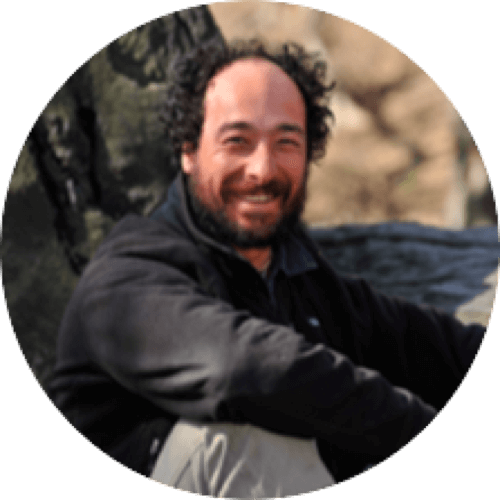

Christopher Filardi, Nia Tero
Christopher Filardi is a research scientist by training, with 30 years of experience building grassroots partnerships with indigenous peoples to sustain thriving natural systems under their stewardship. Chris helped establish community-based wildlife reserves in Papua New Guinea, facilitated strategies for customary protected areas in the Solomon Islands, and has contributed to indigenous-led large-scale conservation initiatives in North America. He established and then directed Pacific Programs for over 10 years at the American Museum of Natural History and has worked with Conservation International, the Nature Conservancy, and the Wildlife Conservation Society on integrating science and reciprocal agreements with indigenous peoples into large-scale conservation programs.
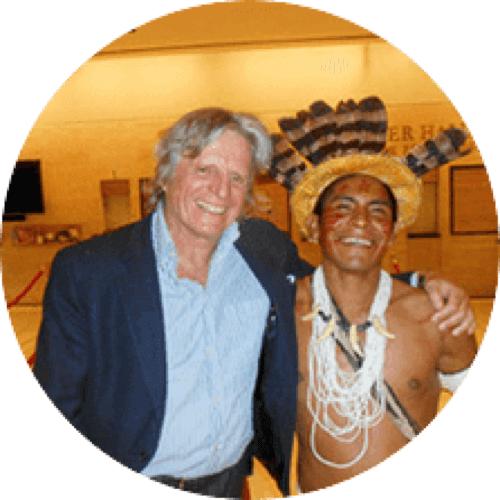

Martín von Hildebrand, Founding Director, Gaia Amazonas Foundation
Martín von Hildebrand has dedicated the last 40 years to strengthening the indigenous communities and conservation of the Amazon. In the 1970s, he moved from Bogota to the Colombian Amazon to live with and learn from indigenous groups as part of his PhD studies in ethnology. In the 1980s, he focused on shaping laws in the Colombian Interior Ministry to grant land rights to indigenous groups. In 1991, as the coordinator for the Amazon in the president’s office, he secured constitutional support for granting land rights to Colombian indigenous people. Martín set up an NGO Amazon coalition for the Consolidation of the Amazon Region COAMA and Gaia Amazonas Foundation in the 1990s to help indigenous groups access and defend their constitutional rights. A remarkable 55% of the Colombian Amazon is now indigenously owned. Martin is currently coordinating the Andes Amazon Atlantic Corridor initiative to safeguard the ecosystem connectivity and the environmental services in the northern region of the Amazon as a concrete solution to tackle climate change. He has dedicated the last three years to articulating this goal with governments, NGOs, and indigenous organizations across borders of the eight countries involved, in order for a wide range of stakeholders to commit to this vision for the future of the region. Martín is the recipient of numerous awards, including the Right Livelihood Award (the Alternative Nobel Prize), Operation Hope’s Man of the Year 2006, and the 2009 Skoll Award for Social Entrepreneurship.
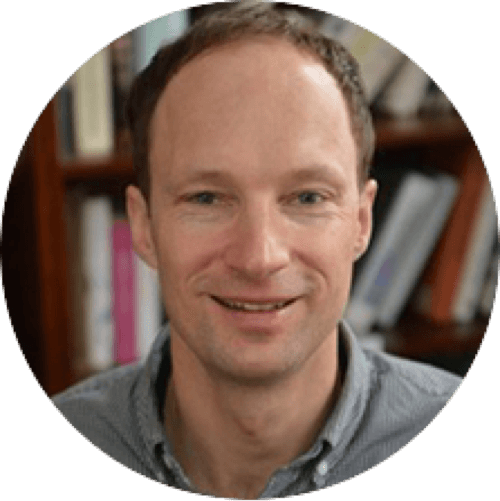

Walter Jetz, Scientific Chair, E.O. Wilson Biodiversity Foundation, Professor, Yale University
Walter Jetz is the Scientific Chair of the E.O. Wilson Biodiversity Foundation and leads the Half-Earth Project mapping initiative. He is a Professor of Ecology and Evolutionary Biology and Adjunct Professor in the School of Forestry and the Environment at Yale University. Dr. Jetz is Director of the Yale Center for Biodiversity and Global Change, which links scientists, students and practitioners engaged in the environment, biological, informatics, policy or health aspects and implications of global biodiversity change. He also leads the Map of Life, which consolidates global biodiversity distribution data sources into a single asset to provide the best possible species range information and species lists for any geographic area worldwide. Dr. Jetz’ work addresses patterns and mechanisms of changing biodiversity distribution and the resulting implications on conservation and environmental management. His research combines remote sensing, phylogenetic, functional, and spatiotemporal biodiversity data with new modeling approaches and informatics tools. Dr. Jetz is particularly interested in how environmental, ecological, and macroevolutionary mechanisms combine to determine the co-occurrence of species and the structure of species assemblages. In addition to his work at Yale, Dr. Jetz chairs the IPBES Task Group on Biodiversity Indicators and is Co-Lead of the GEO BON Working Group on Species Distributions. Dr. Jetz was previously a professor of biological sciences at the University of California San Diego. Dr. Jetz earned his MSc in Integrative Bioscience and DPhil in Zoology from the University of Oxford.


Chen Jin, Xishuangbanna Tropical Botanical Garden, China
Chen Jin has more than 30 years of research experience in tropical China at Xishuangbanna, a biologically and culturally diverse area near the border to countries Laos and Myanmar. His research interests include the ecology and evolution of plant-animal interaction, environmental education, and conservation biology, with over 70 papers published in international journals. Chen Jin has been the director of Xishuangbanna Tropical Botanical Garden of the Chinese Academy of Sciences since 2005, and the President of the Chinese Union of Botanical Gardens (CUBG) since its establishment in 2013, now with 110 member gardens in China. He served as the first President of the Asia-Pacific Chapter of the Association of Tropical Biology and Conservation (ATBC)(2006-2008), Councilor of ATBC (2005-2007), and associate editor of several journals including Proceedings B. He was honored as one of the “Top 10 National Outstanding Science and Technology Workers” by the China Association for Science and Technology in 2010. Chen Jin received a bachelor’s degree in horticulture from Nanjing Agricultural University (1986) and a doctor degree in botany from Kunming Institute of Botany of Chinese Academy of Sciences (2003).
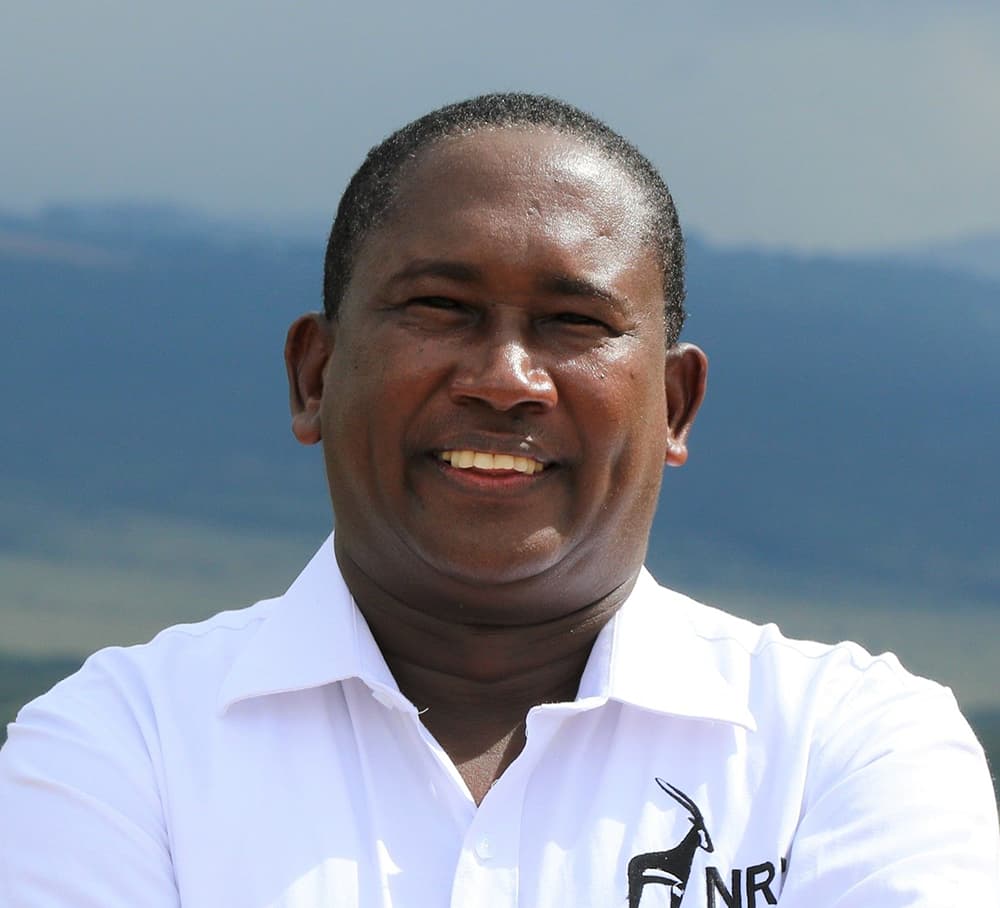

Tom Lalampaa, Northern Rangelands Trust, Kenya
Tom Lalampaa is a Samburu from the West Gate Community Conservancy, one of the most well-established Northern Rangelands Trust (NRT) member conservancies, and has been a leader in the design, development, and expansion of the NRT for the past 10 years. As someone with an in-depth knowledge of the challenges attached to pastoral life in north Kenya, he has earned a great deal of respect among the 15 different ethnic groups he serves. Tom is the founding Chairman of the Kenya Wildlife Conservancies Association (KWCA), a trustee of the Kenya Wildlife Service Board, and has served as the Vice Chair of the Wildlife Security Task Force formed by the government of Kenya. Tom was awarded the Tusk Conservation Award by the Duke of Cambridge 2013, and the Stanford University Law School Bright Award for Environmental Sustainability in 2016. In 2015, Tom made a presentation to President Obama during his visit to Kenya.
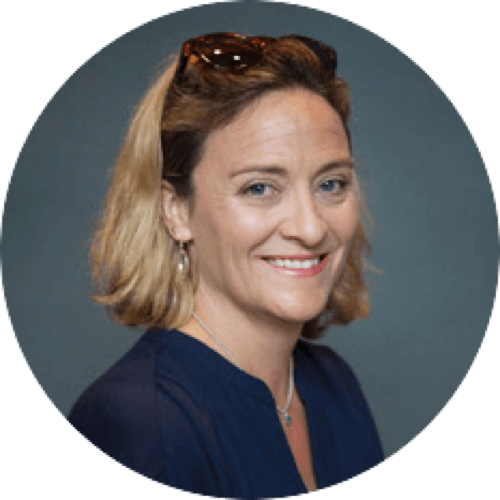

Laly Lichtenfeld, Co-Founder, African People and Wildlife, Tanzania
Dr. Laly Lichtenfeld believes in finding the balance for communities and nature. A long-time resident of Tanzania, Laly co-founded African People and Wildlife in 2005 to help rural communities conserve and benefit from their wildlife and natural resources. Laly specializes in human-wildlife conflict prevention, species conservation focusing on lions and other big cats, community empowerment and engagement in natural resource management, and the development of conservation incentives for rural people. As a female CEO in East African conservation, Laly is often one of few women at the senior leadership table, a responsibility she does not take lightly. In 2018, Laly became an invited member of the Ngorongoro Conservation Area Authority Research Advisory Committee. Laly received her Ph.D. from Yale University in 2005. She is an accomplished speaker, a Distinguished Alumni of the Yale Tropical Resources Institute, a National Geographic Explorer, and a recipient of the 2016 Lowell Thomas Award for Open Space Conservation from the historic Explorers Club.


Laura Macamo, E.O. Wilson Biodiversity Laboratory, Gorongosa Restoration Project, Mozambique
Laura Macamo was born and raised in Maputo, Mozambique, one of the youngest daughters of seven children. Her father was the first of his mother’s sons to graduate from University, and he always encouraged Laura and her siblings to pursue their dreams through Education. Science has always been Laura’s #1 passion, particularly the fields of Biology and Chemistry. She studied Applied Biology at Universidade Eduardo Mondlane, where she spent two semesters working as a Genetics module monitor. After that experience, she decided she wanted to spend the rest of her life studying DNA. After college Laura studied microbiology and molecular biology lab practices at the National Health Institute. In 2017, Laura visited Gorongosa National Park for the first time for a Genetics Conservation seminar. Following the seminar, she trained as a lab manager at Instituto de Agronomia’s Plant Biotechnology in Lisbon. Laura currently coordinates the MoBioGenLab (Laboratory of Molecular Biology and Genetics), the first Molecular Biology and Genetics lab inside a conservation park in Mozambique. “I’m always rewarded with a beautiful landscape and natural environment. This is an opportunity to give back for free the knowledge I received for free.”
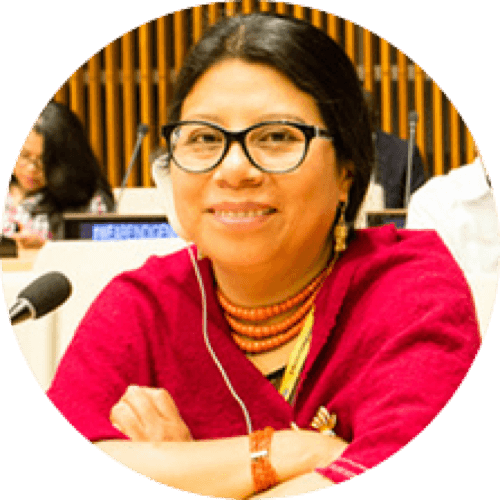

Mirian Masaquiza, Indigenous Peoples And Development Branch, Desa, United Nations Headquarters, NY
Mirian Masaquiza belongs to the Kichwa-Salasaka community of Ecuador. She has worked on three fronts: as an indigenous activist; as a staff member of the United Nations; and as a diplomat/advisor to the Government of Ecuador. Mirian has worked for the United Nations since 2003. Most of her work has related to the rights of indigenous peoples, as well as a range of other issues including gender, cultural and education, climate change, inter-agency affairs, outreach, political analysis, and non-governmental organizations. Mirian was instrumental in preparations for and organization of the 2014 World Conference on Indigenous Peoples; supported the negotiations for the adoption of the UN Declaration on the Rights of Indigenous Peoples in 2007; assisted intergovernmental negotiations related to resolutions pertinent to indigenous peoples’ issues; drafted and edited reports, speeches, and other relevant information. Other roles include: member of the Cabinet of the President of the 63rd session of the United Nations General Assembly; advisor at the Ministry of Cultural and National Heritage of Ecuador; and diplomat of the Permanent Mission of Ecuador to the United Nations in New York City. Before taking on these many roles, Mirian worked in her home country with indigenous peoples’ organizations to strengthen the participation of indigenous youth and women in various forums at both national and international levels.
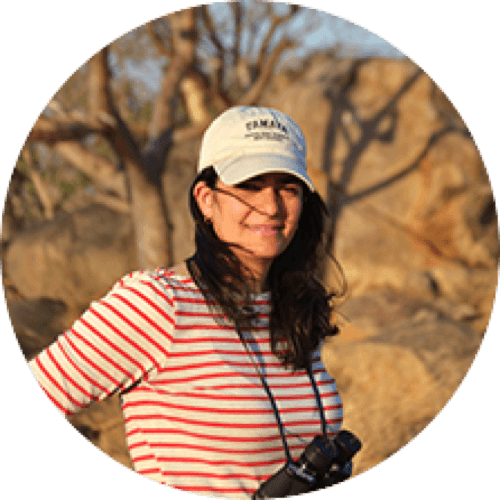

Ana Porzecanski, Director, Center for Biodiversity and Conservation, American Museum of Natural History
Ana Luz Porzecanski is an evolutionary and conservation biologist whose primary interests center on understanding biodiversity and how to sustain it effectively for the future through evidence-based management and capacity development. As Director of the American Museum of Natural History’s Center for Biodiversity and Conservation, Ana oversees a multidisciplinary staff leading biodiversity research and conservation initiatives worldwide. Ana joined the Center in 2003, and since 2010 has also directed its Network of Conservation Educators and Practitioners (NCEP), coordinating and leading conservation capacity development projects, designing teaching materials and curricula for university professors and conservation professionals, and leading professional development for diverse educator audiences in Latin America, Africa, and the United States. She has also led experimental research on the development of critical thinking and related skills in undergraduates, and taught courses on evolution, conservation and sustainability at Columbia University and New York University. Ana studied biological sciences at the Universidad de la República, Uruguay, and earned her Ph.D. from Columbia University, where she led research on the systematics and historical biogeography of South American aridland birds, as well as international environmental policy issues.
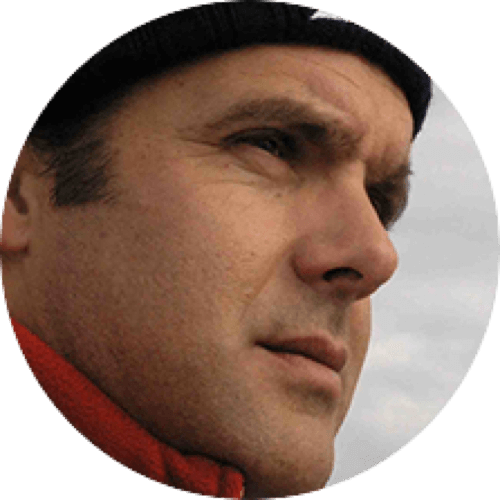

Enric Sala, Pristine Seas, National Geographic Explorer-in-Residence
Enric Sala is a National Geographic Explorer-in-Residence dedicated to restoring the health and productivity of the ocean. His more than 120 scientific publications are widely recognized and used for real-world conservation efforts such as the creation of marine reserves. Enric is currently working to help protect the last pristine marine ecosystems worldwide and to develop new business models for marine conservation. He founded and leads National Geographic’s Pristine Seas, a project that combines exploration, research, and media to inspire country leaders to protect the last wild places in the ocean. To date, Pristine Seas has helped to create 13 marine reserves—some of which are the largest on the planet—covering an area of nearly 4.4 million square km. Enric has received many awards, including 2008 Young Global Leader by the World Economic Forum, 2013 Research Award from the Spanish Geographical Society, 2013 Lowell Thomas Award from the Explorers Club, and the 2013 Hero Award from the Environmental Media Association. He is a fellow of the Royal Geographical Society. Enric’s experience and scientific expertise contribute to his service on advisory boards of international organizations and governments. Enric obtained his Ph.D. in Ecology from the University of Aix-Marseille, France, in 1996.
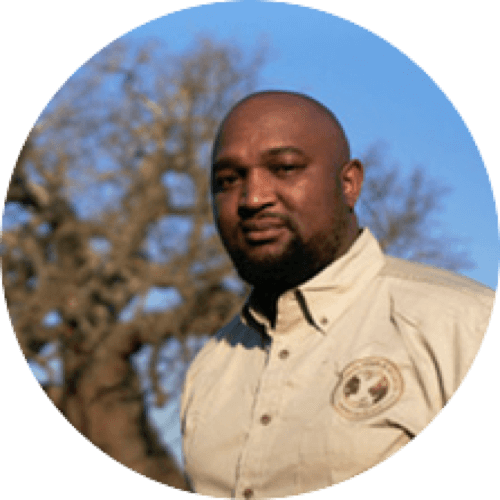

Neovitus Sianga, Community Conservation and Environment Program Officer, African People and Wildlife
Neovitus Cassian Sianga is the Community Conservation and Environment Program Officer at Tanzania People and Wildlife (TPW). Prior to assuming responsibilities in TPW’s rangeland management program, Neovitus held the position of environmental education program officer, offering critical input to the educational curriculum and activities. With a long history of family involvement in conservation, Neovitus feels Tanzania has a strong future in the conservation of its environments as long as rural communities are empowered to manage their natural resources wisely. Before joining the team in 2011, Neovitus received a bachelor’s degree in educational psychology from the University of Dar es Salaam. He is currently pursuing a master’s degree in natural resource assessment and management at the University of Dar es Salaam with a Sydney Byers Scholarship from the Wildlife Conservation Network.
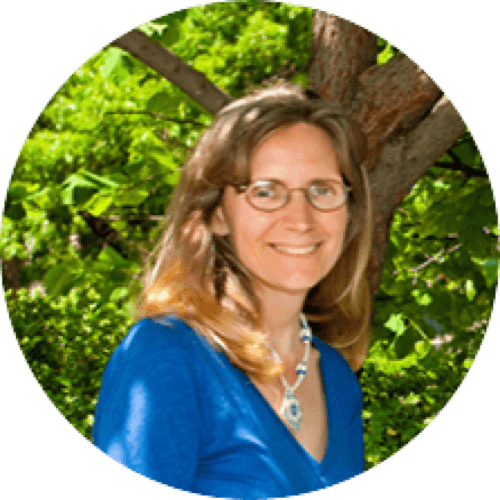

Eleanor Sterling, Jaffe Chief Conservation Scientist, Center for Biodiversity and Conservation, American Museum of Natural History
Eleanor Sterling is Jaffe Chief Conservation Scientist at the American Museum of Natural History’s Center for Biodiversity and Conservation. Building on her interdisciplinary training and over 30 years of field experience in Africa, Asia, Latin America, and Oceania, her work focuses on the intersection between biodiversity, culture, and languages; the factors influencing ecological and social resilience; and the development of indicators of wellbeing in biocultural landscapes. Eleanor is a world authority on the aye-aye, a nocturnal lemur endemic to Madagascar, and collaborates on an initiative integrating biology and econometrics across multiple scales for sustainable wildlife trade in Vietnam. She is also an expert in strategic planning and in implementation and evaluation of capacity development. She is currently Deputy Vice Chair for the International Union for Nature and Natural Resources World Commission on Protected Areas Core Capacity Development group where she co-leads working groups on Capacity Development Evaluation and on Indigenous Peoples and Local Communities. She co-founded the Equity, Inclusion, and Diversity Committee of the Society for Conservation Biology and the Women in Natural Sciences New York chapter of the Association for Women in Science. Eleanor is currently an adjunct professor at Columbia University. She received her B.A. degree from Yale College, and MPhil and PhD degrees in Anthropology and Forestry and Environmental Studies from Yale University.
Half-Earth Day 2017






E.O. Wilson, Biologist and Naturalist
Edward Osborne Wilson is generally recognized as one of the leading scientists in the world. He is also recognized as one of the foremost naturalists in both science and literature, as well as synthesizer in works stretching from pure biology across to the social sciences and humanities. Wilson is acknowledged as the creator of two scientific disciplines (island biogeography and sociobiology), three unifying concepts for science and the humanities jointly (biophilia, biodiversity studies, and consilience), and one major technological advance in the study of global biodiversity (the Encyclopedia of Life). Among more than one hundred awards he has received worldwide are the U.S. National Medal of Science, the Crafoord Prize (equivalent of the Nobel, for ecology) of the Royal Swedish Academy of Sciences, and the International Prize of Biology of Japan; and in letters, two Pulitzer Prizes in non-fiction, the Nonino and Serono Prizes of Italy and COSMOS Prize of Japan. For his work in conservation he has received the Gold Medal of the Worldwide Fund for Nature and the Audubon Medal of the Audubon Society. He is currently Honorary Curator in Entomology and University Research Professor Emeritus at Harvard University, Chairman of the E.O. Wilson Biodiversity Foundation Board of Advisors, and Chairman of the Half-Earth Council.


Sean B. Carroll, Head of Studio, HHMI Tangled Bank Studios
Sean B. Carroll is an award-winning scientist, author, educator, and film producer. He is Vice President for Science Education of the Howard Hughes Medical Institute, the largest private supporter of science education activities in the US, and Professor of Molecular Biology and Genetics at the University of Wisconsin.
Sean is the author of several books for general audiences including The Serengeti Rules, Brave Genius, The Making of the Fittest, Endless Forms Most Beautiful, and Remarkable Creatures, which was a finalist for the National Book Award for non-fiction. Sean received the 2016 Lewis Thomas Prize for Writing about Science.
The architect of HHMI’s documentary film initiative and Executive Director of HHMI’s Tangled Bank Studios, Sean has served as executive producer and/or on-screen presenter of more than a dozen films including Mass Extinction, Amazon Adventure, and The Farthest, and earned two Emmy nominations. His newest book, The Serengeti Rules, which chronicles the stories of several pioneering ecologists, is the basis for an upcoming feature film in 2018.
Sean’s pioneering research has centered on the genes that play major roles in the evolution of animal diversity. He has received the Benjamin Franklin Medal in Life Sciences, been elected a member of the National Academy of Sciences, the European Molecular Biology Organization, the American Philosophical Society, and a Fellow of the American Academy of Arts and Sciences. Sean is a member of the Half-Earth Council.





Paul Simon, Legendary Recording Artist
During his distinguished career, Paul Simon has been the recipient of many honors and awards, including 16 Grammy Awards, three of which—Bridge over Troubled Water, Still Crazy after All These Years, and Graceland—were Albums of the Year. In 2003, he received a Grammy Lifetime Achievement Award for his work as half of the duo Simon & Garfunkel. Simon is a member of the Songwriters Hall of Fame and has been inducted into the Rock ‘n’ Roll Hall of Fame both as a member of Simon & Garfunkel and as a solo artist.
Simon was a recipient of the Kennedy Center Honors in 2002 and was named one of Time magazine’s “100 People Who Shape Our World” in 2006. In 2007, Simon was awarded the inaugural Library of Congress Gershwin Prize for Popular Song, which recognizes the profound and positive effect of popular music on the world’s culture. He was elected to the American Academy of Arts and Sciences in 2011. And in 2012, he was named the recipient of the prestigious Polar Music Prize along with Yo-Yo Ma.
Simon’s philanthropic work includes the co-founding of the Children’s Health Fund (CHF), which donates and staffs 53 mobile medical units that bring health care to low-income children and their families in urban and rural locations around the United States. Since its inception in 1987, CHF has provided more than 3 million doctor/patient visits.
Over his career, Simon has also raised millions of dollars for worthy causes as varied as Autism Speaks, The Nature Conservancy, CURE, and Tibet House. In June 2017, net proceeds from Paul Simon’s month-long U.S. tour were donated to benefit the Half-Earth Project, an initiative of the E.O. Wilson Biodiversity Foundation, which is committed to stopping the species extinction crisis by conserving half the planet’s lands and oceans. Paul Simon is a member of the Half-Earth Council.
Gary E. Knell, President and CEO, National Geographic Society
Gary E. Knell is the President and CEO of the National Geographic Society, where he oversees the Society’s vast nonprofit activities globally. He also serves on the board of National Geographic Partners, the Society’s for-profit arm that oversees all of National Geographic’s storytelling assets, including television, print and digital, and ancillary operations, which include travel expeditions. A member of the Society’s Board of Trustees since April 2013, Knell also has served on the Board of Governors of the National Geographic Education Foundation since November 2003. Additionally, Knell is a member of the boards of the National Museum of Natural History and the Economic Club of Washington, D.C. Prior to his role at the Society, Knell served as president and CEO of National Public Radio from 2011 to 2013.
His career in media spans more than three decades, including 22 years at Sesame Workshop, where he served as president and CEO for 12 years. Prior to Sesame Workshop, Knell was managing director of Manager Media International, a multimedia publishing company based in Bangkok, Hong Kong, and Singapore. He also served as senior vice president at WNET/Channel 13 in New York, was counsel to the U.S. Senate Judiciary and Governmental Affairs Committees in Washington, D.C., and worked in the California State Legislature and Governor’s Office. Knell is a member of the Council on Foreign Relations and serves on the boards of Heidrick & Struggles, an executive search firm, and Common Sense Media. He is an adviser to the Annenberg School for Communication and Journalism at the University of Southern California and to the Military Child Education Coalition.
Knell has a B.A. in political science from UCLA, where he was editorial director of the UCLA Daily Bruin and a stringer for the Associated Press. He has a J.D. from Loyola University of Los Angeles, where he was recently named a Top 50 Alumni. He has been awarded honorary doctorates from Kenyon College in Ohio, Mercy College in New York, and Franklin University in Switzerland. He has been a commencement speaker at the University of Redlands, UCLA, the University of Texas–Austin, and Johns Hopkins University.








Paula J. Ehrlich, President and CEO, E.O. Wilson Biodiversity Foundation, Co-Founder, Half-Earth Project
Paula J. Ehrlich, DVM, PhD, is the President and CEO of the E.O. Wilson Biodiversity Foundation, where she oversees the Foundation’s broad activities to foster a knowing stewardship of our world through biodiversity research and education initiatives that promote and inform worldwide protection of biodiversity. Dr. Ehrlich leads the Half-Earth Project, which is driving the research needed to better understand and care for our world, providing leadership to guide conservation efforts, and engaging people to participate broadly in the goal to conserve half the Earth and protect 85% or more of species, including ourselves.
Dr. Ehrlich has more than 25 years of strategic scientific management and research expertise and diverse academic, non-profit, and corporate leadership experience. She was formerly President and CEO of the Drug Discovery Center of Innovation in Research Triangle Park, NC, Senior Director of Scientific Affairs at Ansaris (formerly Locus Pharmaceuticals), and Preclinical Oncology Imaging Lead and Associate Franchise Director at Merck Research Laboratories in West Point, PA. At Merck, she led initiatives to establish imaging biomarkers and proof-of-concept for over 12 lead compounds, which are currently in clinical trials. She has held research, clinical, and teaching positions at Tufts University School of Veterinary Medicine, the Atlantic Veterinary College, and the Royal Veterinary College.
Dr. Ehrlich has a B.S. in Zoology from Duke University, a Master’s degree in Environmental Planning from the University of Virginia, a DVM from the Virginia-Maryland Regional College of Veterinary Medicine, and a PhD in Bone Physiology from the Royal Veterinary College, University of London. She has Six Sigma Green Belt training and is a Diplomate of the American College of Veterinary Surgeons.
Jonathan Baillie, Chief Scientist and Senior Vice President of Science and Exploration, National Geographic Society
Jonathan Baillie is the Chief Scientist and Senior Vice President of Science and Exploration at the National Geographic Society. Baillie leads grant-making in the areas of science and exploration across a variety of disciplines and serves as vice chair of the National Geographic Society’s Committee for Research and Exploration. Baillie joined the Society after 14 years at the Zoological Society of London (ZSL), where he served in various capacities, most recently as Conservation Programmes Director. As director, Baillie was responsible for conservation projects focusing on threatened species and their habitats in more than 50 countries.
Among his achievements at ZSL, Baillie founded the EDGE of Existence program, which focuses on Evolutionary Distinct and Globally Endangered (EDGE) species. Additionally, he has served as co-chair of the International Union for Conservation of Nature (IUCN) National Red List Working Group and co-chair of the IUCN Pangolin Specialist Group. Baillie helped initiate United for Wildlife, led by the Duke of Cambridge, a collaboration of seven of the most influential conservation organizations working to address illegal wildlife trade at scale. He has also been a visiting professor of zoology at the University of Oxford.
Baillie completed his undergraduate studies at Queen’s University in Canada and received a master’s degree in conservation biology at Yale University and a Ph.D. in biology at Silwood Park, Imperial College London. His extensive fieldwork includes research and monitoring of western lowland gorillas in Gabon; developing ecotourism sites in Central Africa; searching for extremely rare endemic birds in New Guinea; and conducting behavioral studies of desert baboons in Namibia.
Tom Butler, Vice President for Conservation Advocacy, Tompkins Conservation
Tom Butler is the vice president for conservation advocacy for the Tompkins Conservation family of foundations and past board president of Northeast Wilderness Trust, a regional land trust. A conservationist and writer, his books include Wildlands Philanthropy, Plundering Appalachia, Protecting the Wild, and Energy: Overdevelopment and the Delusion of Endless Growth. His recent book, Overdevelopment, Overpopulation, Overshoot (“OVER” for short), is a photo-format volume depicting how human numbers and behavior are transforming the Earth. Butler curated the new exhibit, “Douglas R. Tompkins: On Beauty” at the David Brower Center in Berkeley, and coauthored the companion book On Beauty: Douglas R. Tompkins—Aesthetics and Activism, about the way that beauty was an animating force in the life and work of Doug Tompkins, founder of Tompkins Conservation.


Alison Fox, President, American Prairie Reserve
Alison Fox is President of American Prairie Reserve (APR), an organization dedicated to creating the largest wildlife complex ever assembled in the continental United States. When complete, the reserve will comprise 3.5 million contiguous acres of native grassland in northeastern Montana, with a goal of restoring the wildlife abundance the landscape once contained.
Over the past decade, Ms. Fox has served in many leadership and management roles at American Prairie Reserve, including communications, marketing and branding, institutional partnerships, and fundraising. She was appointed President in April 2017. Ms. Fox holds an MBA from the McDonough School of Business at Georgetown University, where she focused on marketing and nonprofit management, and a BA in History from Dartmouth College. Prior to joining APR in 2007, she worked in marketing and communications roles at RightNow Technologies.
Ms. Fox is delighted to be part of a team creating a uniquely American park for wildlife and people, funded through private philanthropy and located in Montana, the state that first introduced her to our country’s incredible system of public lands and our nation’s rich conservation legacy.
Dominique Gonçalves, Gorongosa Restoration Project
I was born in Beira, a town near Gorongosa National Park in central Mozambique. My passion for biology made me move to Maputo in 2010 to study Ecology and Conservation of Terrestrial Biodiversity at Eduardo Mondlane University. After finishing undergrad I had the opportunity to work in a Sustainable Poverty Alleviation through Ecosystem Services (SPACES) in Northern Mozambique. This coastal community project helped to understand better the importance of the social aspect for conservation.
During my childhood, I always heard about Parque Nacional da Gorongosa and all its wonders. As a young conservation ecologist, I am fascinated by the ecology and the interconnectedness of wild landscapes and I am aware of the priceless and irreplaceable biodiversity this area owns, especially the efforts that have been made for its recovery, maintaining healthy ecosystems, sustainable community development and integration of the conservation efforts; things that Gorongosa National Park has played successfully which makes it a remarkable conservation mark.
In 2015, I joined Gorongosa Project under their research fellowship program and joined Joyce Poole in the elephant project. Following my willingness and enthusiasm to help this noble cause, and with a better understanding of social systems I completed this year my MSc in Conservation Biology at Durrell Institute of Conservation and Ecology at the University of Kent-UK.
Andrea Heydlauff, Chief Marketing and Communications Officer, African Parks
Andrea Heydlauff is the Chief Marketing and Communications Officer for African Parks, a conservation NGO that manages protected areas on behalf of governments across the continent. Over the past two years, she has helped position the organization on a global scale, focusing on creating and telling stories of impact including the historic ‘500 Elephants’ initiative and the ‘Return of Rhinos to Rwanda’. Andrea began her career managing the Tiger Program across nine countries in Asia for the Wildlife Conservation Society, and was a co-author of “Setting Priorities for the Conservation and Recovery of Wild Tigers: 2005 – 2015”. She then was the founding employee and Senior Vice President of Panthera for eight years, helping to establish them as a leading big cat conservation organization. Born and raised in England, Andrea earned her B.A. in British Literature and M.Sc. in Wildlife Biology from the University of Arizona on human-wildlife conflict. Over 16 years, Andrea has written and co-authored numerous scientific and popular publications on conservation, has spoken widely at conferences, and is an award-winning filmmaker.


Enric Sala, Pristine Seas, National Geographic Explorer-in-Residence
Dr. Enric Sala is a National Geographic Explorer-in-Residence dedicated to restoring the health and productivity of the ocean. His more than 120 scientific publications are widely recognized and used for real-world conservation efforts such as the creation of marine reserves. Enric is currently working to help protect the last pristine marine ecosystems worldwide and to develop new business models for marine conservation. He founded and leads National Geographic’s Pristine Seas, a project that combines exploration, research, and media to inspire country leaders to protect the last wild places in the ocean. To date, Pristine Seas has helped to create 13 marine reserves—some of which are the largest on the planet—covering an area of nearly 4.4 million square km.
Enric has received many awards, including 2008 Young Global Leader by the World Economic Forum, 2013 Research Award from the Spanish Geographical Society, 2013 Lowell Thomas Award from the Explorers Club, 2013 Hero Award from the Environmental Media Association. He is a fellow of the Royal Geographical Society. Enric’s experience and scientific expertise contribute to his service on advisory boards of international organizations and governments.
Enric obtained his Ph.D. in Ecology from the University of Aix-Marseille, France, in 1996.
James Shreeve, Contributing Writer, National Geographic Magazine
James (Jamie) Shreeve is a Contributing Writer at National Geographic and the former Deputy Chief Editor of the magazine. Before joining the Geographic staff in 2006, he was a freelance science writer and author specializing in human evolution and biology. His books include The Genome War (Knopf, 2004); The Neandertal Enigma: Solving the Mystery of Modern Human Origins (William Morrow, 1995); and Lucy’s Child: The Discovery of a Human Ancestor (William Morrow, 1989, with Donald wson).
Mr. Shreeve received his B.A. in English from Brown University in 1973. A 1979 graduate of the Iowa Writers Workshop, he contributed fiction to various literary magazines before turning to science writing. From 1983 to 1985, he was Public Information Director at the Marine Biological Laboratory in Woods Hole, Massachusetts, and founding director of the MBL Science Writing Fellowship Program. He has been awarded fellowships from the Alfred P. Sloan Foundation, the Alicia Patterson Foundation, and the Knight Foundation. Mr. Shreeve lives in Bellport, New York, and Washington, DC.


Craig Mills, CEO, Vizzuality
Craig Mills is CEO of vizzuality. Craig has spent over 20 years working as a data activist, first with the UK government to map and model the movement of depleting fish stocks and the fishing fleets chasing them. From there Craig went on to the UN Environment Programme where he led teams of engineers and designers working on communicating biodiversity and land planning mapping. Now at vizzuality, Craig works with the biggestb non-profits and governments in the world – from the White House to the World Resources Institute, Conservation International to Care, The European Space Agency to NASA – to design applications that inform people’s learning and perspective and shape their decisions to improve our planet.







Walter Jetz, Scientific Chair, E.O. Wilson Biodiversity Foundation, Professor, Yale University
Walter Jetz is a Professor in Ecology and Evolutionary Biology at Yale University where he directs the Center for Biodiversity and Global Change and is Lead of Map of Life. His work addresses patterns and mechanisms of the changing distribution of biodiversity and the resulting implications for conservation and environmental management. His research combines remote sensing, phylogenetic, functional, and spatiotemporal biodiversity data with the development of new modeling approaches and informatics tools. Walter also chairs the IPBES Task Group on Biodiversity Indicators and is Co-Lead of the GEO BON Working Group on Species Distributions.
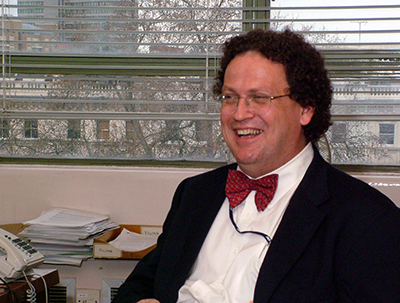

Quentin Wheeler, President, College of Environmental Science and Forestry
Quentin Wheeler is president of the College of Environmental Science and Forestry in Syracuse, New York. Before joining ESF in 2014, he was vice president and dean of the College of Liberal Arts and Sciences at Arizona State University, keeper of entomology in London’s Natural History Museum, director of the division of environmental biology of the NSF, and a professor at Cornell University. His interests include the theory and practice of taxonomy and cyber-taxonomy, the exploration and conservation of biodiversity, and the evolution and classification of insects.

